Let's learn about Privacy via these 590 free stories. They are ordered by most time reading created on HackerNoon. Visit the /Learn Repo to find the most read stories about any technology.
How hackers are hacking your stuff and stealing your data
1. Introducing DChat - Decentralized Chat for All
 Messaging is a core feature of the internet. It was described as the internet’s killer app. It enabled anyone to communicate with anyone else in the world instantly, and for free. Billions of people chat every day.
Messaging is a core feature of the internet. It was described as the internet’s killer app. It enabled anyone to communicate with anyone else in the world instantly, and for free. Billions of people chat every day.
2. How To Stop Sharing Your Location On iPhone (Without Them Knowing)
 There is no doubt that iOS has fewer customization options for consumers than Android. As a result, many features and functions on the iPhone are difficult to change, despite the fact that such a change may be very beneficial to you.
There is no doubt that iOS has fewer customization options for consumers than Android. As a result, many features and functions on the iPhone are difficult to change, despite the fact that such a change may be very beneficial to you.
3. The Benefits of Proxy Servers for Businesses
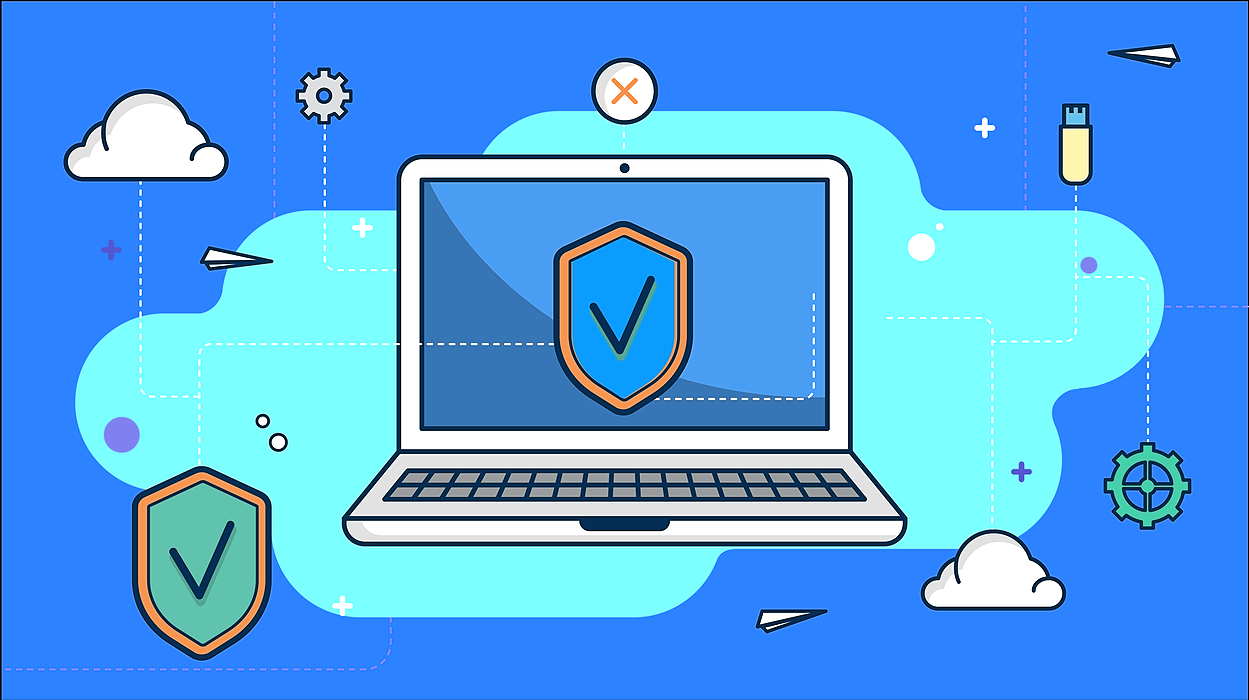 Most people hardly know what proxy servers are used for. If you are like most individuals, chances are you think proxy servers are only used to access content that’s not allowed in your country or stay secure on open WiFi networks. However, proxy servers have many other uses and are particularly crucial for businesses.
Most people hardly know what proxy servers are used for. If you are like most individuals, chances are you think proxy servers are only used to access content that’s not allowed in your country or stay secure on open WiFi networks. However, proxy servers have many other uses and are particularly crucial for businesses.
4. How to Track an IP Address from an Email: Gmail, Outlook, Apple Mail?
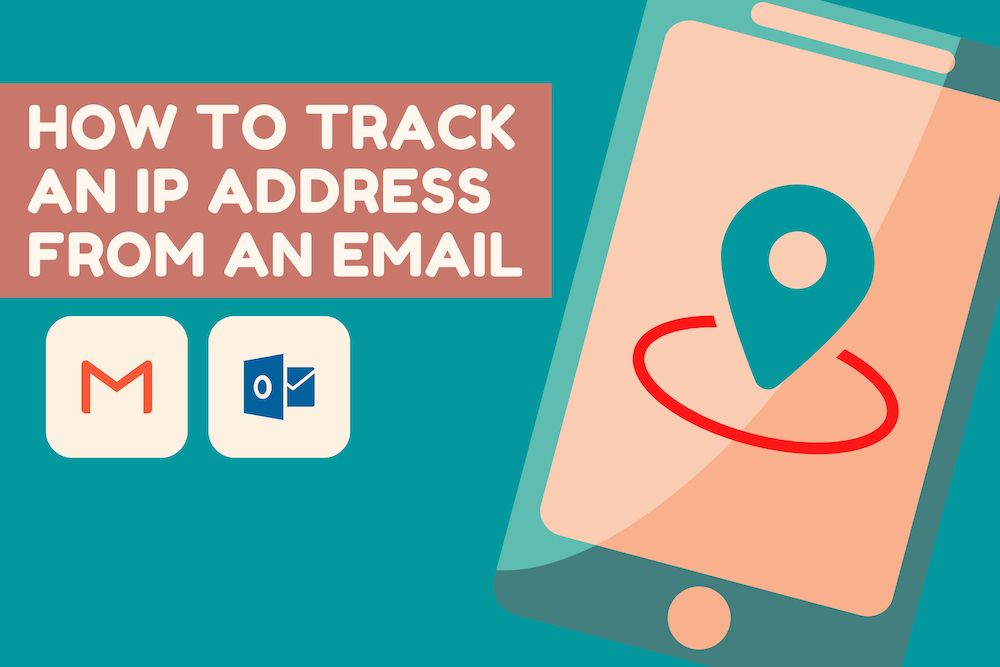 Have you ever wanted to find out the IP address of an email's sender? it is possible to find out the IP address of an email's sender with a few simple steps.
Have you ever wanted to find out the IP address of an email's sender? it is possible to find out the IP address of an email's sender with a few simple steps.
5. 10 Features of a Secure Website
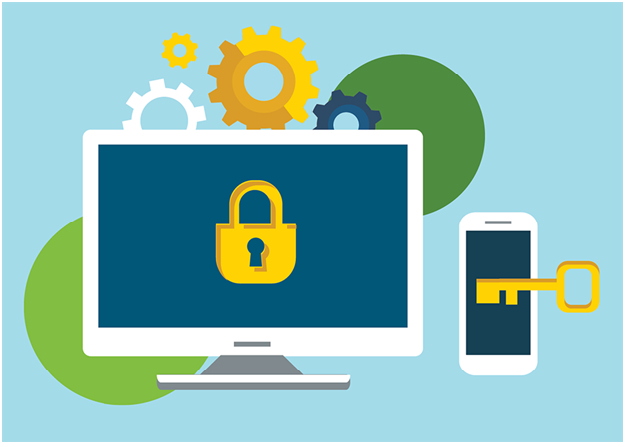 Website security is a primary consideration in web development but it is often not taken seriously by a lot of website owners. If you have built a secure website, then you must have sought out the services of a security expert who spots areas of weaknesses in your system and also carry out routine maintenance checks for new flaws and vulnerabilities. These are the minimum requirements for any safe website and I have grouped them into 10 must-have features for your website.
Website security is a primary consideration in web development but it is often not taken seriously by a lot of website owners. If you have built a secure website, then you must have sought out the services of a security expert who spots areas of weaknesses in your system and also carry out routine maintenance checks for new flaws and vulnerabilities. These are the minimum requirements for any safe website and I have grouped them into 10 must-have features for your website.
6. A Short Guide to Digital Privacy for College Students
 Many learning management systems are compatible with Chrome, making it a challenge to maintain your digital privacy while getting your homework done.
Many learning management systems are compatible with Chrome, making it a challenge to maintain your digital privacy while getting your homework done.
7. 7 Ways to Secure Your Social Media Accounts
 In the world today, cybersecurity attacks happen every 39 seconds. 300,000 new malware is created every day; our beloved Facebook is attacked 100k+ a day; and, just very recently had a massive security breach.
In the world today, cybersecurity attacks happen every 39 seconds. 300,000 new malware is created every day; our beloved Facebook is attacked 100k+ a day; and, just very recently had a massive security breach.
8. How to Make Requests Over Tor Browser Using Python
 To make requests over Tor using Python3, we are going to be utilizing a Python controller library for Tor called Stem.
To make requests over Tor using Python3, we are going to be utilizing a Python controller library for Tor called Stem.
9. What Is the Best Browser for Your Privacy?
 How to pick out the right web browser when you're focused on privacy and functionality.
How to pick out the right web browser when you're focused on privacy and functionality.
10. Ethereum is Supposed to go PoS (Proof of Stake) in 2022 Which Will Make it More Scalable
 This article talks about DAOs, ethereum scaling and why DAOs will be the future of governance.
This article talks about DAOs, ethereum scaling and why DAOs will be the future of governance.
11. How Big Tech Influences Privacy Laws
 The Markup reviewed public hearing testimony in all 31 states that have considered consumer data privacy legislation since 2021 and found a campaign by Big Tech
The Markup reviewed public hearing testimony in all 31 states that have considered consumer data privacy legislation since 2021 and found a campaign by Big Tech
12. 3 Simple Upgrades to Improve SMB Cybersecurity
 If there's one thing that there's no shortage of, it's small businesses. In the US alone, there are over thirty million of them. And by and large, they're doing a miserable job of protecting themselves against a rising wave of cyber-attacks and digital risk.
If there's one thing that there's no shortage of, it's small businesses. In the US alone, there are over thirty million of them. And by and large, they're doing a miserable job of protecting themselves against a rising wave of cyber-attacks and digital risk.
13. How to Implement QA Testing in a Confidential and Secure Manner
 ‘Privacy’ and ‘Confidentiality’ are often used interchangeably but they are not the same.
‘Privacy’ and ‘Confidentiality’ are often used interchangeably but they are not the same.
14. Ethereum, You Are A Centralized Cryptocurrency. Stop Telling Us That You Aren't
 When looking at Ethereum, there are some good things I can say about it and some bad. Ethereum did early stage investors in their ICO right, in the fact that the 2014 ICO price was $0.30.
When looking at Ethereum, there are some good things I can say about it and some bad. Ethereum did early stage investors in their ICO right, in the fact that the 2014 ICO price was $0.30.
15. 5 CSRF Vulnerabilities Known For Highest Bounty Rewards
 If you don’t know, a bug bounty program is a modern strategy to encourage the public to find and report bugs or vulnerabilities in software — especially the security bugs that may be misused by cybercriminals. Most of the big technology companies like Facebook, Google, and Microsoft employ bug bounties.
If you don’t know, a bug bounty program is a modern strategy to encourage the public to find and report bugs or vulnerabilities in software — especially the security bugs that may be misused by cybercriminals. Most of the big technology companies like Facebook, Google, and Microsoft employ bug bounties.
16. Daniel Jeffries, author, engineer, futurist, pro blogger and Noonies nominee
 Daniel Jeffries is Chief Technology Evangelist at Pachyderm, author, engineer, futurist and pro blogger.
Daniel Jeffries is Chief Technology Evangelist at Pachyderm, author, engineer, futurist and pro blogger.
17. U.S. Federal Study Shows That Police Surveillance Oversight is Outdated
 A federal study found that police surveillance oversight is outdated as it doesn't take into account modern technology.
A federal study found that police surveillance oversight is outdated as it doesn't take into account modern technology.
18. How To Improve Banking App Security With GPS Data
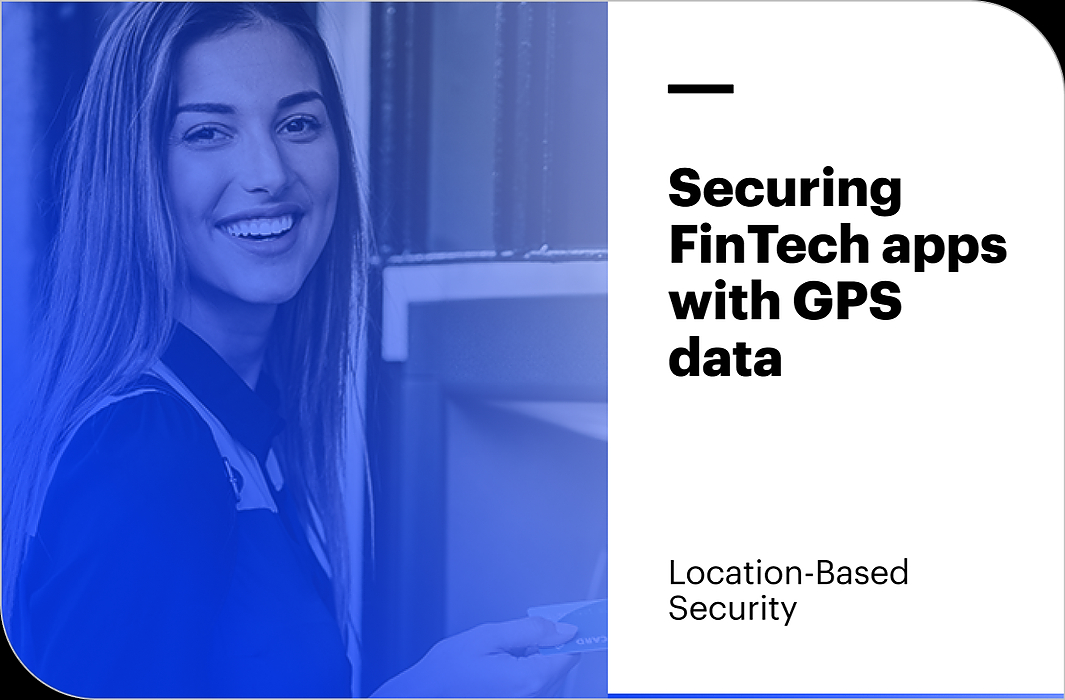 Mobile-based fintech solutions are becoming the first port of call for many financial services, as people embrace the simplicity, cost-effectiveness and speed of mobile payments. However, digital fraud is rising as fast, if not faster, and thus fraud monitoring based on robust customer authentication have become as important as the services mCommerce has to offer customers.
Mobile-based fintech solutions are becoming the first port of call for many financial services, as people embrace the simplicity, cost-effectiveness and speed of mobile payments. However, digital fraud is rising as fast, if not faster, and thus fraud monitoring based on robust customer authentication have become as important as the services mCommerce has to offer customers.
19. How The Rise of Vulnerabilities Has Shaped Modern Patch Management Practices
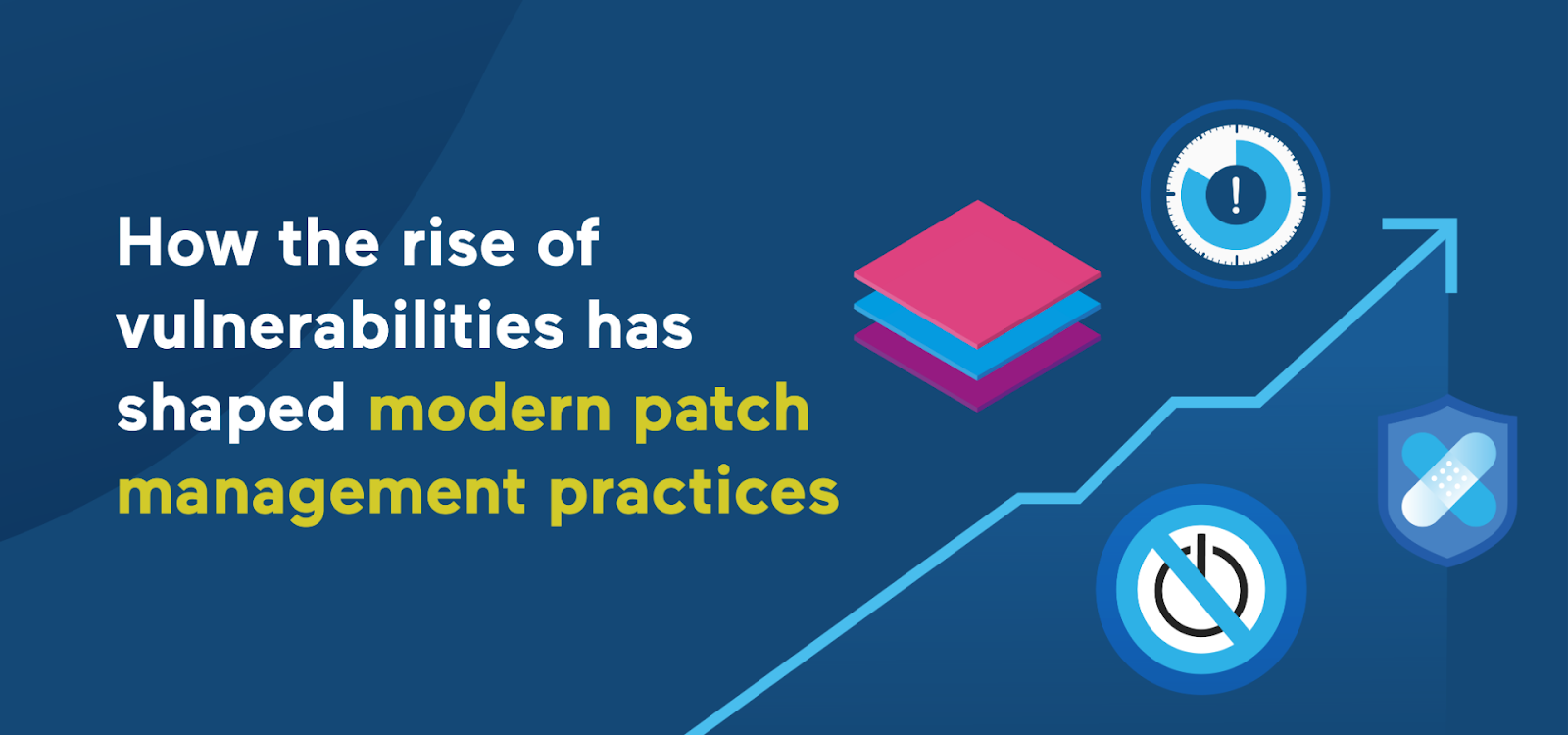 Vulnerabilities can seriously damage company’s operations and reputation, but you can protect it by automating live patching of infrastructures with KernelCare.
Vulnerabilities can seriously damage company’s operations and reputation, but you can protect it by automating live patching of infrastructures with KernelCare.
20. Delete Your Old Tweets: 90% of Employers Consider Your Social Media Activity When Hiring
 A survey shows that 90% of employers consider your social media activity when hiring and a whopping 79% of HR have rejected a candidate because of social media.
A survey shows that 90% of employers consider your social media activity when hiring and a whopping 79% of HR have rejected a candidate because of social media.
21. Opinion: There’s Nothing Wrong With Being Tracked by Google
 Why you should be happy about companies collecting your data.
Why you should be happy about companies collecting your data.
22. VPNs Leaked 1.2TB of Your Data and That is Pretty Awkward
 20 Million VPN users across seven different VPN services had their data compromised when it ended up on the dark web.
20 Million VPN users across seven different VPN services had their data compromised when it ended up on the dark web.
23. The Ethics Behind Data Collection and Privacy [Infographic]
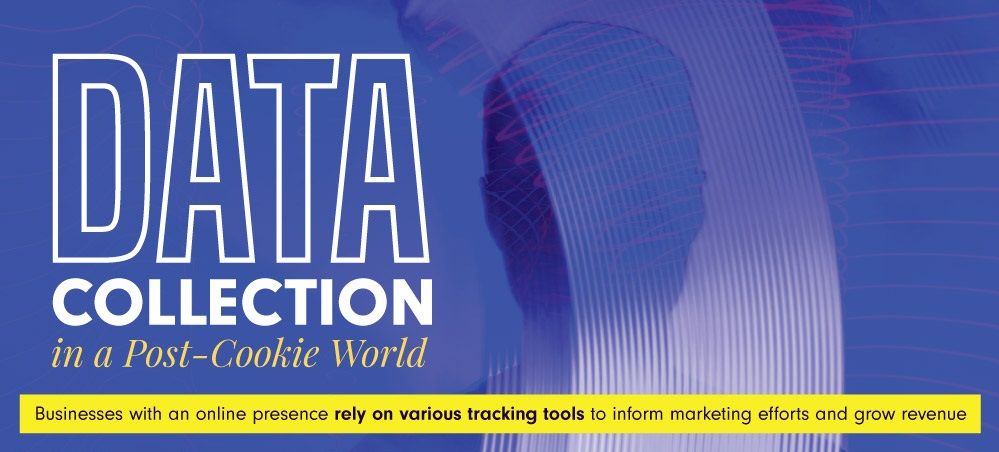 A look at the future of data collection and online privacy through cookieless tracking.
A look at the future of data collection and online privacy through cookieless tracking.
24. Contributing to Open Source Privacy Projects is Easier Than You Think
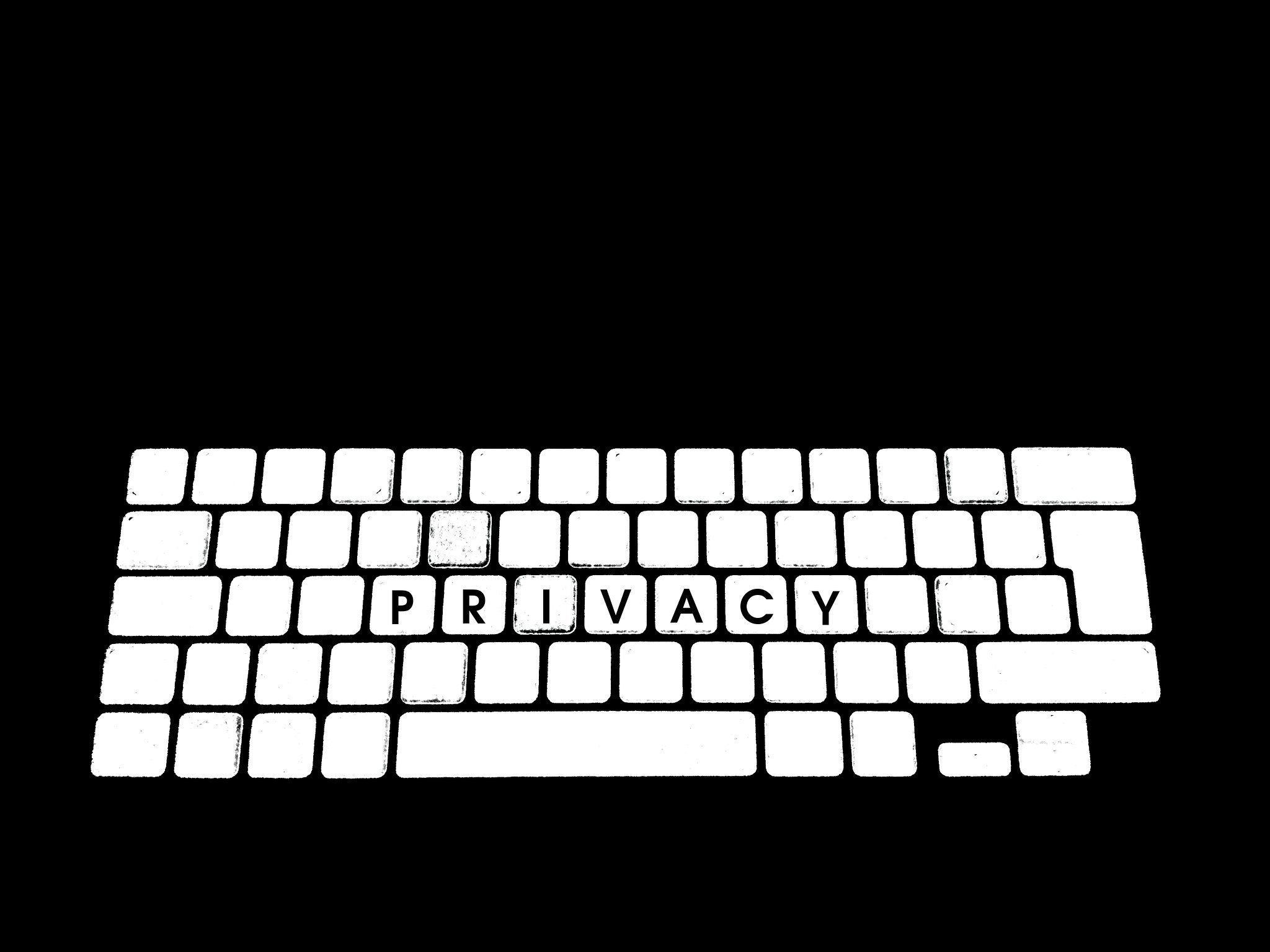 I am sure that feel bored with your work from time to time. See how to solve it with a simple lifehack: Contribute to a privacy-related project.
I am sure that feel bored with your work from time to time. See how to solve it with a simple lifehack: Contribute to a privacy-related project.
25. Artificial Intelligence talks with Daniel Jeffries, AMA on August 25th, 10 am EST
 Daniel Jeffries is Chief Technology Evangelist at Pachyderm, author, engineer, futurist and pro blogger.
Daniel Jeffries is Chief Technology Evangelist at Pachyderm, author, engineer, futurist and pro blogger.
26. The 5 Best Cybersecurity Strategies and Tools for Your Remote Team
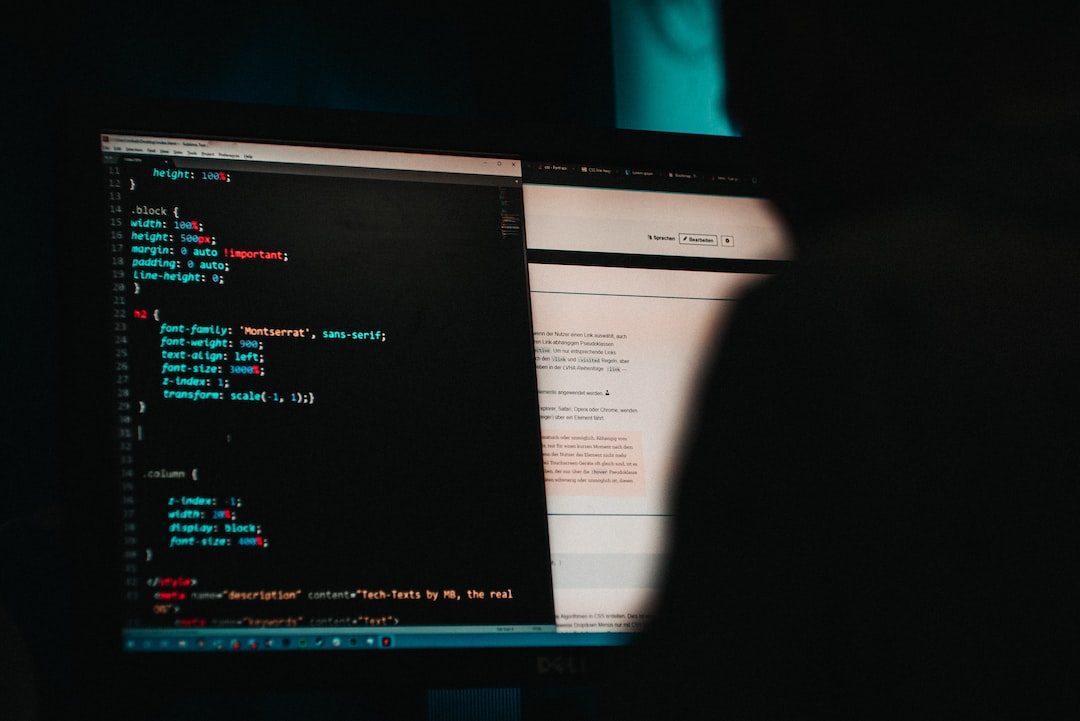
27. Proxy Vs. VPN Vs. SmartDNS [A Comparison]

28. [Mythbusting] How to Choose the Right VPN Service?
 This is not a traditional bullshit article talking about common elements for finding the right VPN service. We will explore items like a VPN kill switch, IPv6 leak protection, or why the privacy policy matters.
This is not a traditional bullshit article talking about common elements for finding the right VPN service. We will explore items like a VPN kill switch, IPv6 leak protection, or why the privacy policy matters.
29. Privacy protection and how Nym can help
 Privacy is a broad term, but, briefly speaking, it is the ability to share what you want with whom you want and how you want to do it. So, privacy is about the
Privacy is a broad term, but, briefly speaking, it is the ability to share what you want with whom you want and how you want to do it. So, privacy is about the
30. How to Deal with Tech Trust Deficit
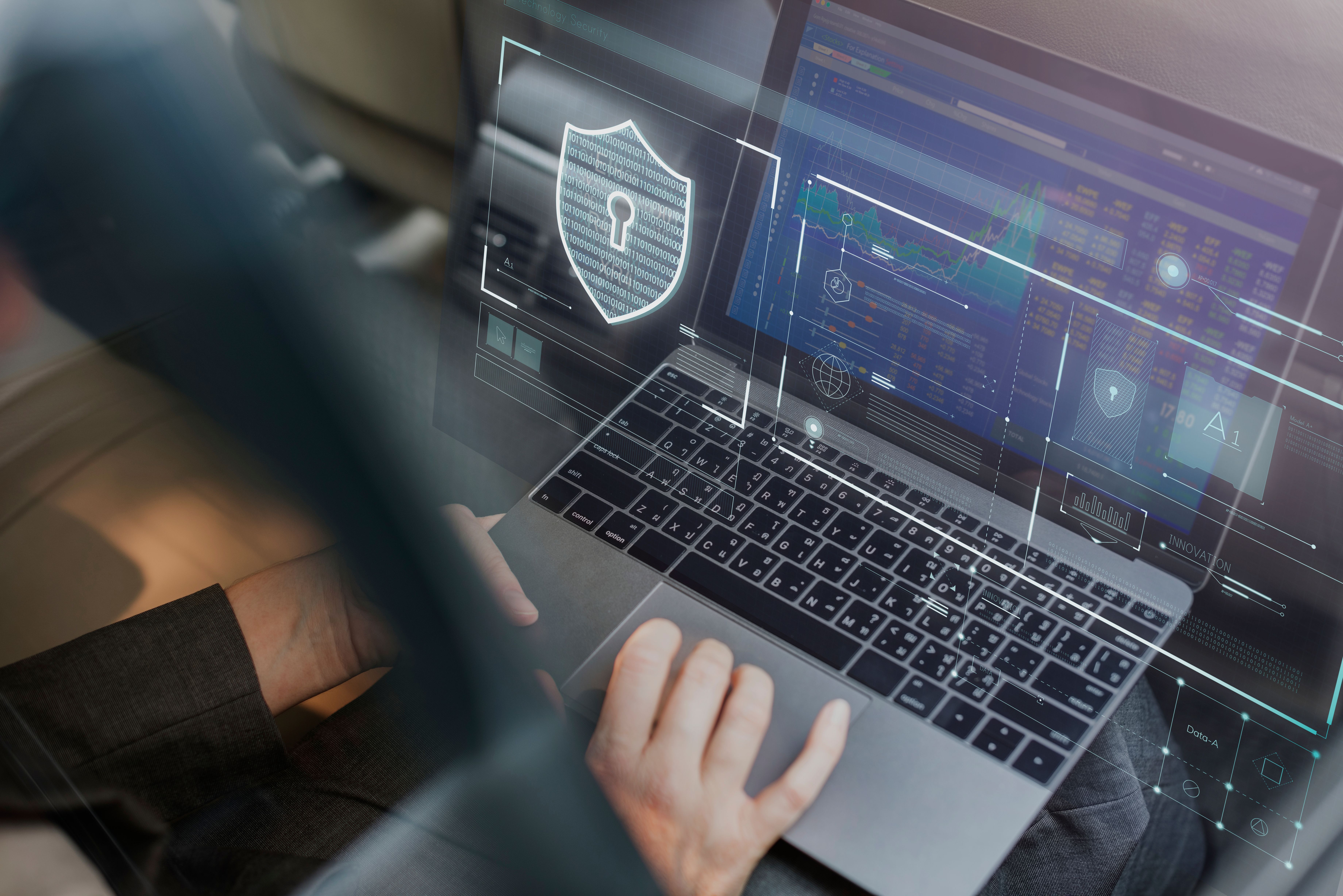 We’re more dependent on tech and e-commerce than ever before, and customers want to know that brands are protecting their data and privacy.
We’re more dependent on tech and e-commerce than ever before, and customers want to know that brands are protecting their data and privacy.
31. The Future Of Email on The Blockchain Launches An IEO To Accelerate Its Development
 SafePost, the innovative and secure solution alternative to traditional emails and document storage (a market of more than $ 200 billion / year with more than 3.5 billion users), will hold its first-ever Initial Exchange Offering (IEO) through the P2PB2B launchpad from March
16th to April 19th, 2020.
SafePost, the innovative and secure solution alternative to traditional emails and document storage (a market of more than $ 200 billion / year with more than 3.5 billion users), will hold its first-ever Initial Exchange Offering (IEO) through the P2PB2B launchpad from March
16th to April 19th, 2020.
32. The Issue of Privacy on Social Networks
 Personal data becomes publicly accessible in ways and in quantities hitherto unknown; above all, this happens concerning an enormous quantity of images
Personal data becomes publicly accessible in ways and in quantities hitherto unknown; above all, this happens concerning an enormous quantity of images
33. 23 Cybersecurity Tips to Level up Your Data Privacy Game
 It's important to keep yourself up-to-date on the latest security measures. Cybercrime has increased, secure your data.
It's important to keep yourself up-to-date on the latest security measures. Cybercrime has increased, secure your data.
34. Who are the Data Brokers Spending Big Bucks to Lobby Congress
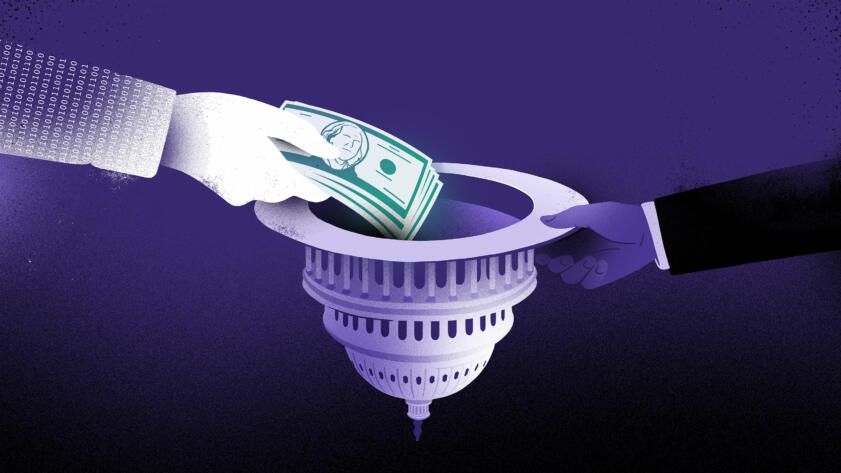 Data brokers’ millions of dollars in lobbying spending in 2020 rivaled that of some Big Tech firms with serious consequences for everyone else in the world.
Data brokers’ millions of dollars in lobbying spending in 2020 rivaled that of some Big Tech firms with serious consequences for everyone else in the world.
35. Amazon Engineer Jackson Kelley is Working on Data Privacy in Alexa
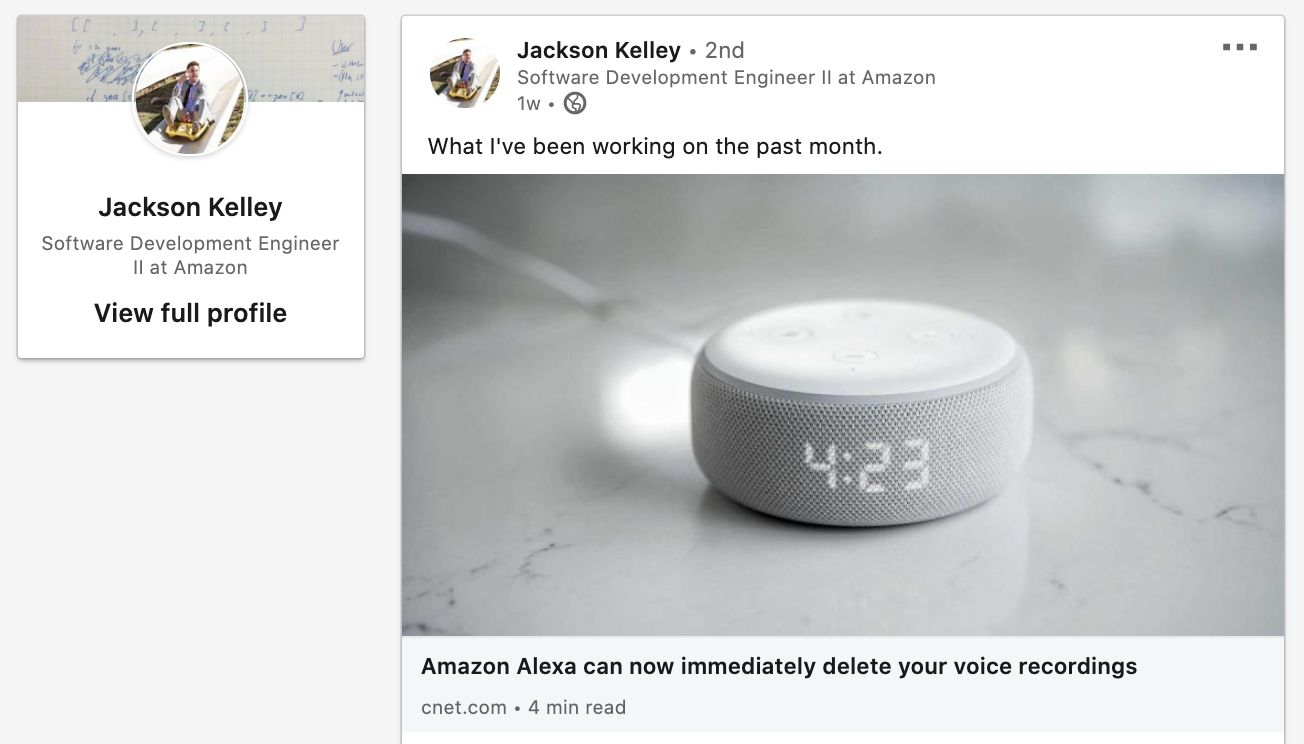 Ex block.one consultant (and formerly ML infrastructure engineer in retail at Amazon) Jackson Kelley has been nominated for a 2020 Noonie for contributions to the sticky subject of politics here on Hacker Noon. Scroll on for a a summary of what Jackson's been doing and thinking lately, including a new YouTube series, and which of his controversial opinions most people would definitely disagree with.
Ex block.one consultant (and formerly ML infrastructure engineer in retail at Amazon) Jackson Kelley has been nominated for a 2020 Noonie for contributions to the sticky subject of politics here on Hacker Noon. Scroll on for a a summary of what Jackson's been doing and thinking lately, including a new YouTube series, and which of his controversial opinions most people would definitely disagree with.
36. Great News About Self-Regulation In VPN industry: i2Coalition’s VTI Essentials
 In the last decade, the VPN market has been steadily growing, and this growth was spiked even further in 2020. Two main reasons contributed to an even more expansive use of VPN software: 1) Covid-19, quarantine, and work from home set the needs for home network security; 2) cybercrime has been on the rise and cybersecurity became a more common issue.
In the last decade, the VPN market has been steadily growing, and this growth was spiked even further in 2020. Two main reasons contributed to an even more expansive use of VPN software: 1) Covid-19, quarantine, and work from home set the needs for home network security; 2) cybercrime has been on the rise and cybersecurity became a more common issue.
37. Posting Videos of Your Kids on YouTube Is Weird

38. When Messenger Apps Adopt Fintech: Privacy Issues and Implications
 There are many ways in which the world is divided up: borders, differing cultures, and even vast masses of water serve to partition the globe. Preference per region for Messenger apps is one of the less initially visible ways this is done.
There are many ways in which the world is divided up: borders, differing cultures, and even vast masses of water serve to partition the globe. Preference per region for Messenger apps is one of the less initially visible ways this is done.
39. You Are Not Worth Tracking, Sorry
 I do not track you. I don't have to, and I don't care to.
I do not track you. I don't have to, and I don't care to.
40. 10 Websites That You Should Know About
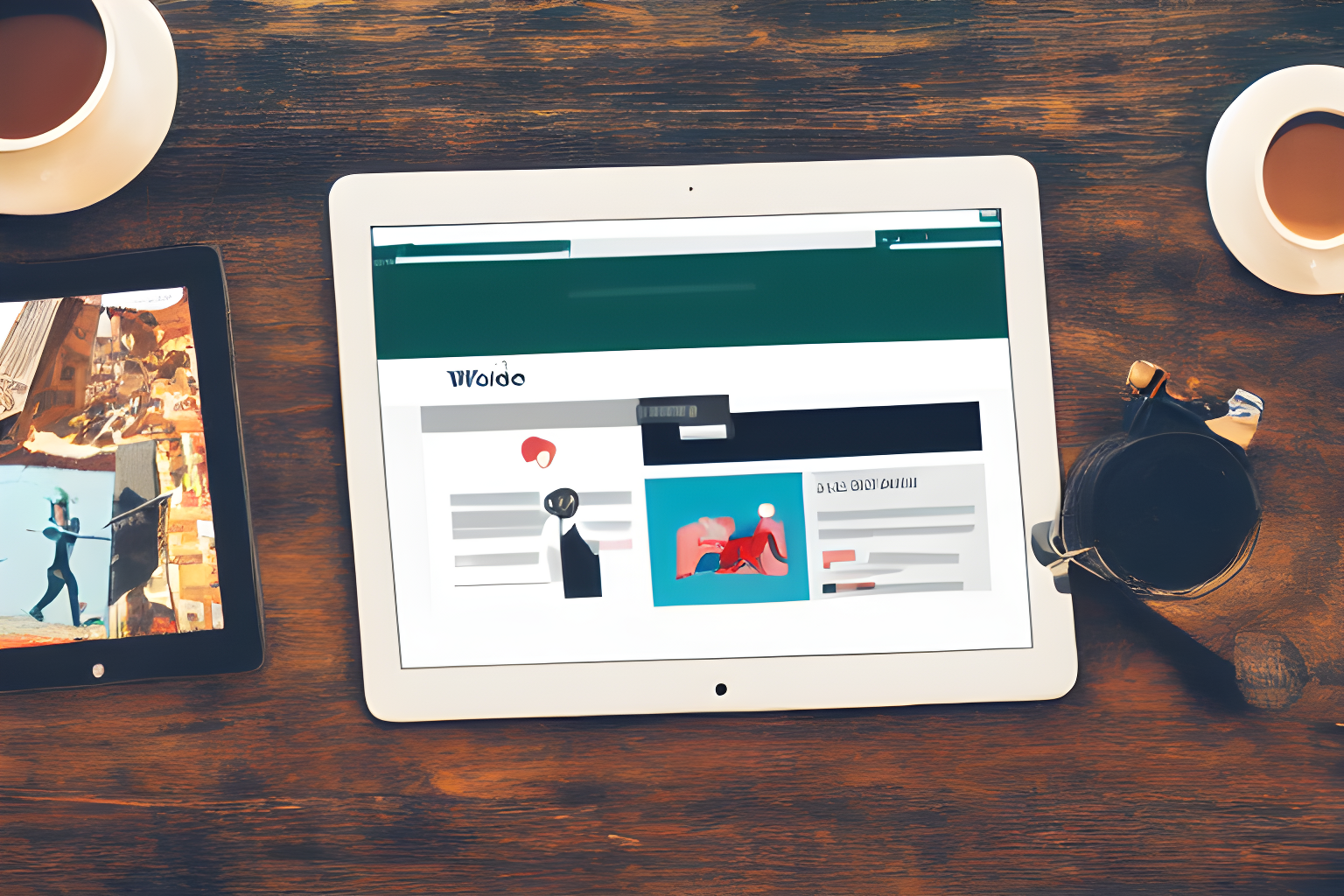 Gurwinder goes over 10 little-known websites.
Gurwinder goes over 10 little-known websites.
41. Should VPN Companies Listen to the Film Industry and Log User Data?
 A group of movie companies continues its legal efforts to hold VPN services liable for pirating subscribers.
A group of movie companies continues its legal efforts to hold VPN services liable for pirating subscribers.
42. Bringing Back Data Ownership to Humans With Decentralizion
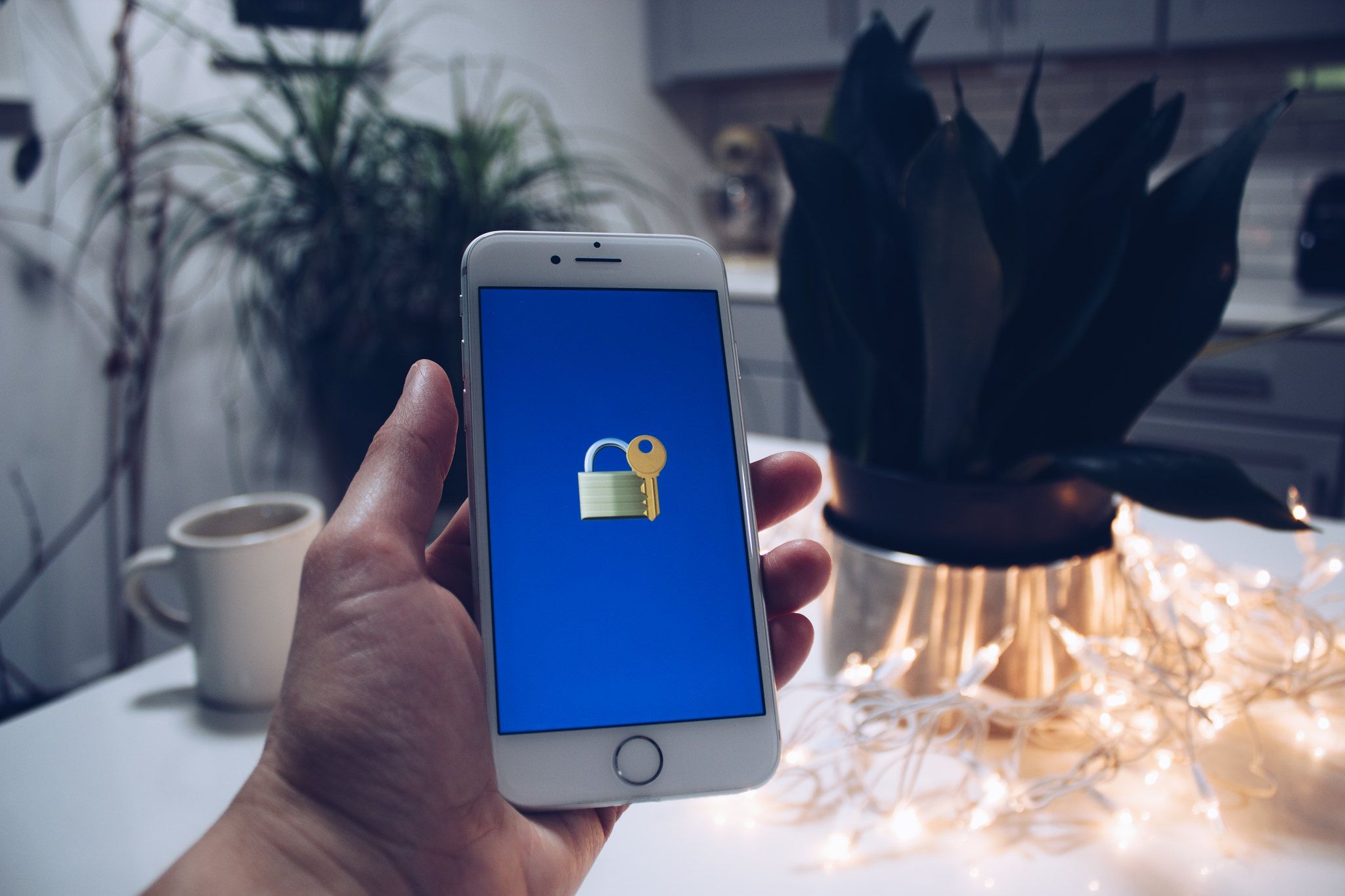 Are we ready as humans to take the data ownership back? Here is a use case for you.
Are we ready as humans to take the data ownership back? Here is a use case for you.
43. Ax Sharma's Top 5 AMA Answers: from Black Mirror to Governmental Attacks
 Ax Sharma is Senior Security Researcher at Sonatype and engineer, who is passionate about perpetual learning. He is an expert in vulnerability research, software development, and web app security.
Ax Sharma is Senior Security Researcher at Sonatype and engineer, who is passionate about perpetual learning. He is an expert in vulnerability research, software development, and web app security.
44. TikTok: A Ticking Time Bomb?
 One of the most popular apps of 2019, TikTok ruled the download charts in both the Android and Apple markets. Having more than 1.5 billion downloads and approximately half a billion monthly active users, TikTok definitely has access to a trove of users. With that large user base comes a hidden goldmine: their data.
One of the most popular apps of 2019, TikTok ruled the download charts in both the Android and Apple markets. Having more than 1.5 billion downloads and approximately half a billion monthly active users, TikTok definitely has access to a trove of users. With that large user base comes a hidden goldmine: their data.
45. What Will Life Be Like In 100 Years?
 Some light-hearted thinks after a long Friday...
Some light-hearted thinks after a long Friday...
46. Riddhiman Das, CEO TripleBlind, on Breaking Data Monopolies
 TripleBlind has created a new data privacy solution that enables highly-regulated enterprises to share data without ever decrypting it.
TripleBlind has created a new data privacy solution that enables highly-regulated enterprises to share data without ever decrypting it.
47. What do we expect in innovation and technology by 2020
 With the beginning of a new decade, many users set expectations for the new year. But what are the novelties that will be in technology and innovation
With the beginning of a new decade, many users set expectations for the new year. But what are the novelties that will be in technology and innovation
48. Google’s Data-Hungry Ecosystem is Threatening Your Privacy. Here’s How.
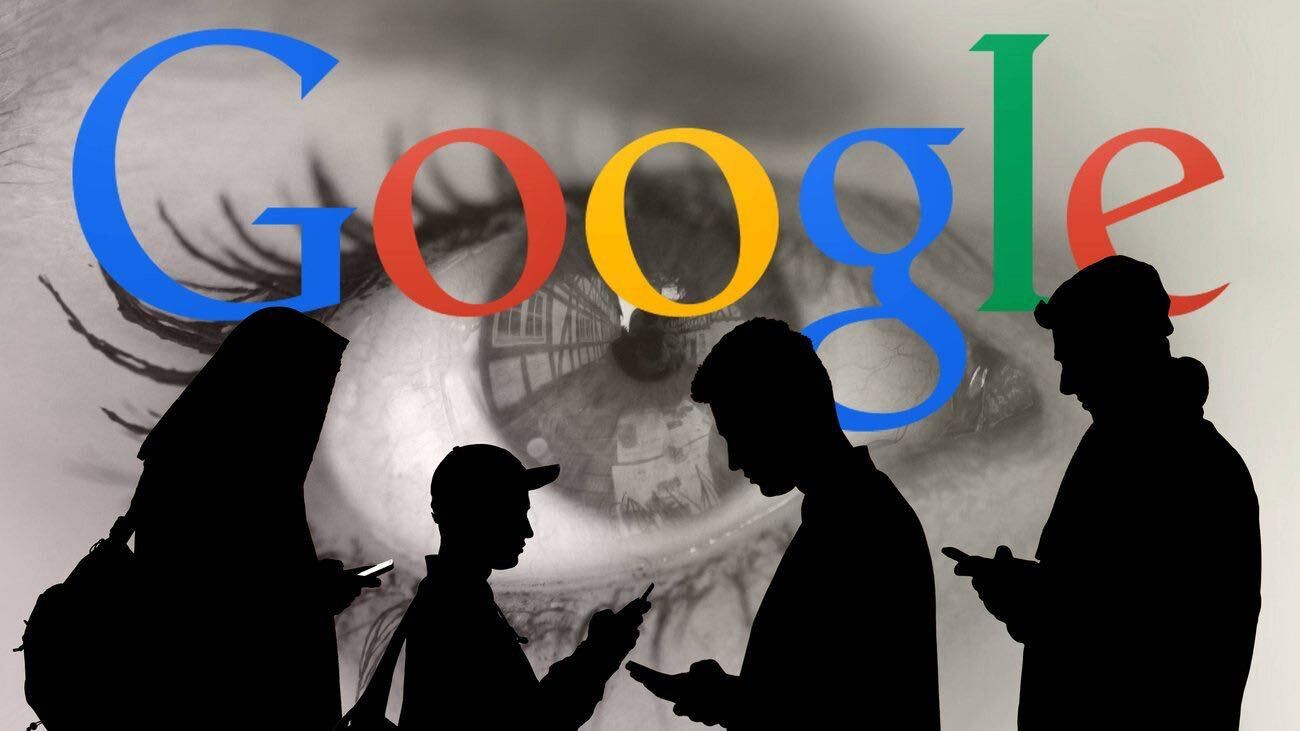 Google rewards data brokers for violating your privacy. Understand the hidden relationship between the #1 search engine and information brokers.
Google rewards data brokers for violating your privacy. Understand the hidden relationship between the #1 search engine and information brokers.
49. Dealing with My Annoying & Malicious Chrome Extensions
 As much as we love Chrome extensions and the ease they bring to use while surfing the web, it is wise to note that not all of them are authentic.
As much as we love Chrome extensions and the ease they bring to use while surfing the web, it is wise to note that not all of them are authentic.
50. Liberating Federated Learning for the Everyday Developer
 Introduction to Federated Learning for Data Scientists on how to access sensitive datasets for training and evaluating Machine Learning Models
Introduction to Federated Learning for Data Scientists on how to access sensitive datasets for training and evaluating Machine Learning Models
[51. Facebook & the Libra Effect:
The New Importance of Privacy in Online Marketplaces](https://hackernoon.com/facebook-and-the-libra-effect-the-new-importance-of-privacy-in-online-marketplaces-esfj3y5p)
 Members of the Libra Association, a group of 28 companies and not-for-profit groups including and brought together by Facebook may soon have the power to forever change the history of the online marketplace worldwide. The Senate and House hearings in Washington July 18th and 19th - as theatrical as they were - may still only be a subtle indication of the grand ramifications of a marketplace where privacy does not exist for buyers and sellers.
Members of the Libra Association, a group of 28 companies and not-for-profit groups including and brought together by Facebook may soon have the power to forever change the history of the online marketplace worldwide. The Senate and House hearings in Washington July 18th and 19th - as theatrical as they were - may still only be a subtle indication of the grand ramifications of a marketplace where privacy does not exist for buyers and sellers.
52. Cybersecurity Awareness Month - MacPaw Supports Ukraine
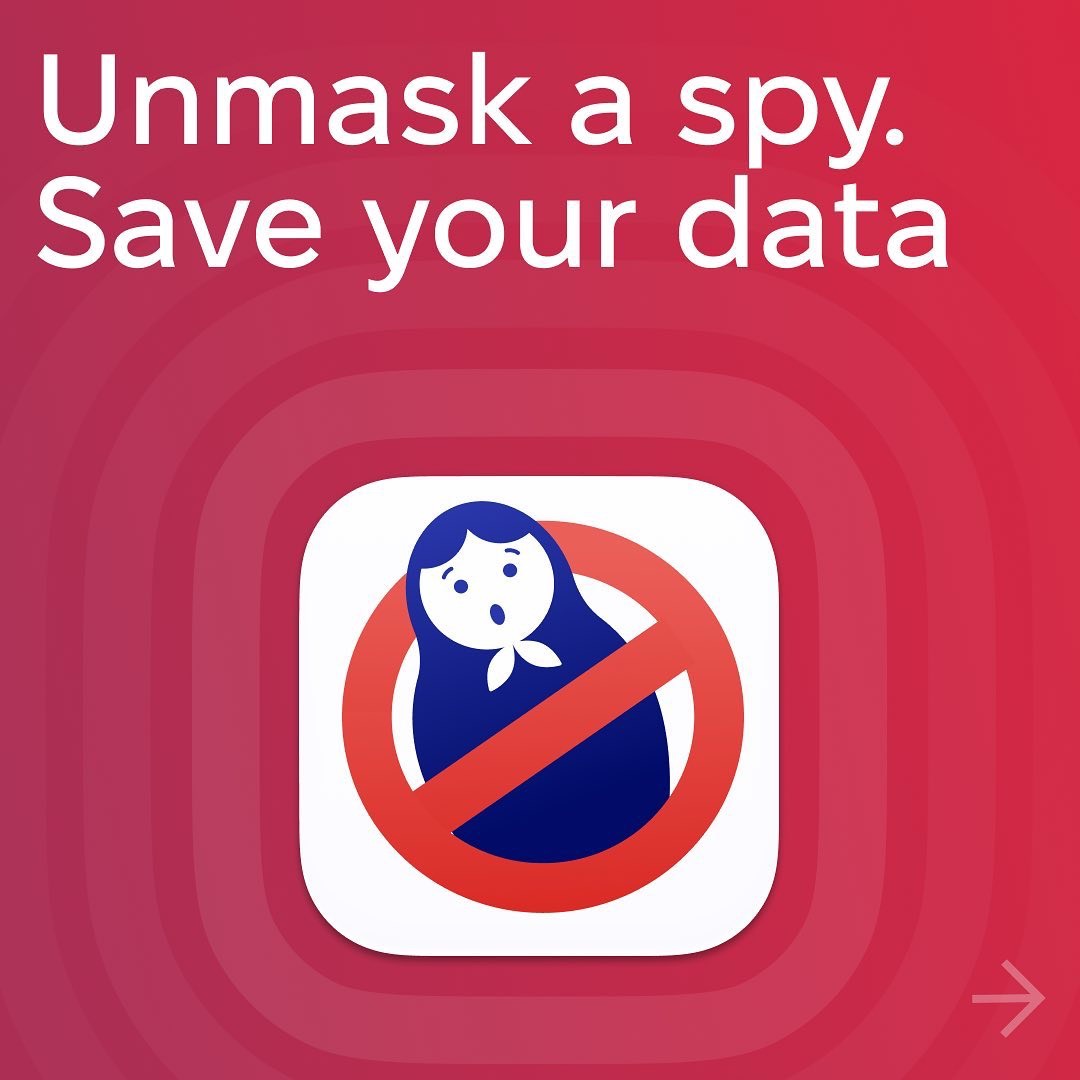 How can two apps from Ukrainian developers, MacPaw, help ensure your data and personal security?
How can two apps from Ukrainian developers, MacPaw, help ensure your data and personal security?
53. 6 Browser Extensions for Online Privacy in 2020
 A lot of things happened in 2019 that lead people talking and caring more about their privacy online. You might hear a lot of people saying that there isn’t such a thing as privacy online. Our actions online are being monitored, we get personalized ads, that are not just influencing us to buy something, but even influences our political views, influences our values, our actions.
A lot of things happened in 2019 that lead people talking and caring more about their privacy online. You might hear a lot of people saying that there isn’t such a thing as privacy online. Our actions online are being monitored, we get personalized ads, that are not just influencing us to buy something, but even influences our political views, influences our values, our actions.
54. Why Did Today Feel like a Black Mirror Episode?
 Are the recent tech giant privacy policy updates of September 2022 pushing us further into dystopia? strfsh live report
Are the recent tech giant privacy policy updates of September 2022 pushing us further into dystopia? strfsh live report
55. How IP Obfuscation Works for Streaming Geo-Restricted Content
 IP obfuscation is a process of making the geographic location of a user to be concealed or masked. IP obfuscation, which is also known as geo-spoofing, includes everything that makes a user's identity to be hidden or made anonymous with different methods.
IP obfuscation is a process of making the geographic location of a user to be concealed or masked. IP obfuscation, which is also known as geo-spoofing, includes everything that makes a user's identity to be hidden or made anonymous with different methods.
56. SocialKYC Brings Privacy-based Identity and On-Chain DIDs to Metaverse and KILT
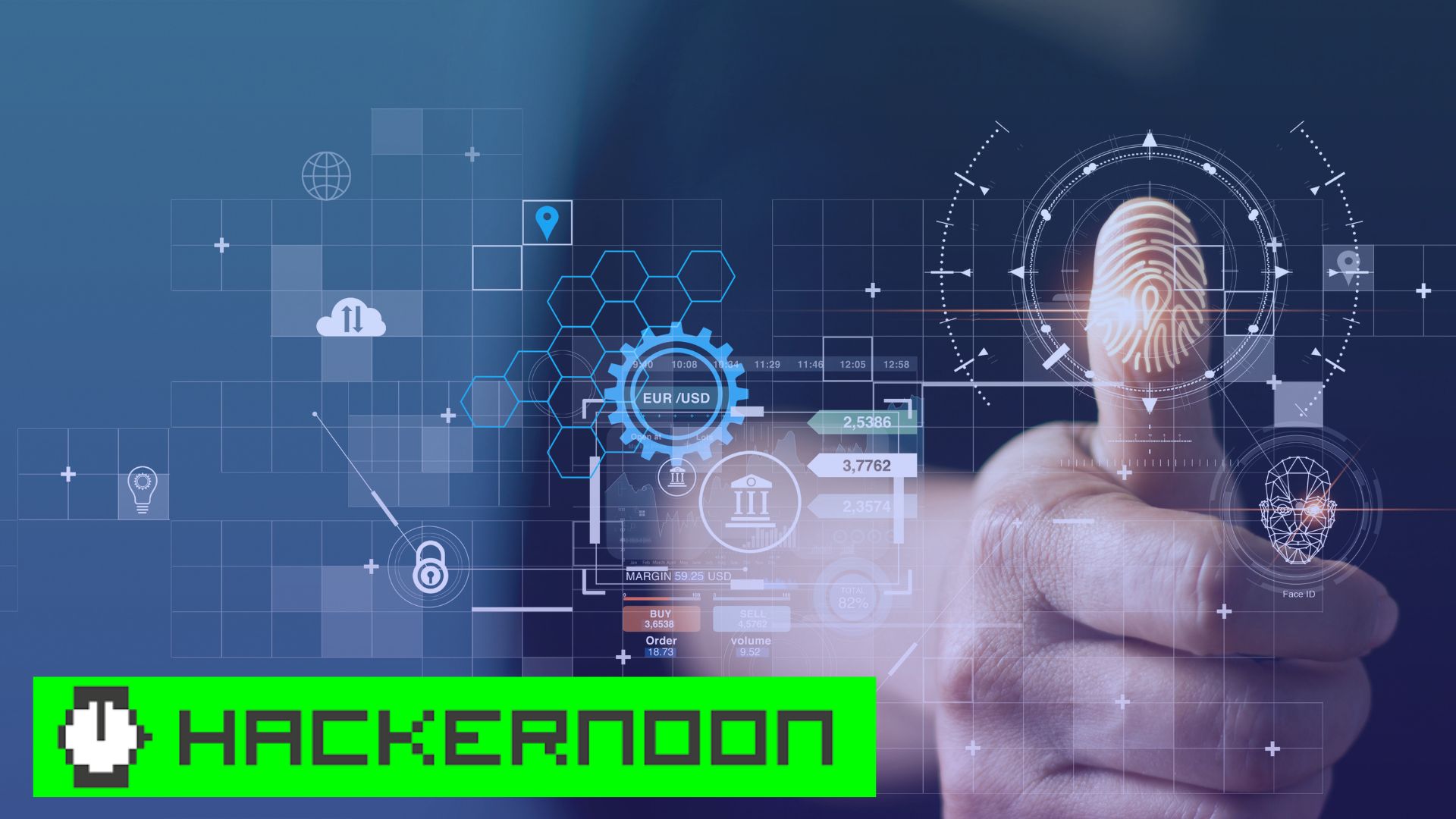 SocialKYC is a decentralized identity protocol that allows self-sovereign identity and allows privacy solutions to users integrated with KILT.
SocialKYC is a decentralized identity protocol that allows self-sovereign identity and allows privacy solutions to users integrated with KILT.
57. Hidden Cameras in Hotels and Rented Houses: How to Find Out if Someone Is Spying on You
 Beware of the possible presence of hidden cameras in hotels and rental homes. Let's go into the details and see how to find out if someone spies on us.
Beware of the possible presence of hidden cameras in hotels and rental homes. Let's go into the details and see how to find out if someone spies on us.
58. A Few Thoughts On Email
 Email has been discussed a lot lately. Perhaps it's because we all rely on it more during this period of lockdown. Maybe it's due to Hey being released? Or are we all realising that email is an old technology and we need to move on? Whatever the reason may be, people are talking about email; heres my take on it.
Email has been discussed a lot lately. Perhaps it's because we all rely on it more during this period of lockdown. Maybe it's due to Hey being released? Or are we all realising that email is an old technology and we need to move on? Whatever the reason may be, people are talking about email; heres my take on it.
59. Announcing our Data Breach website on Data Privacy Day
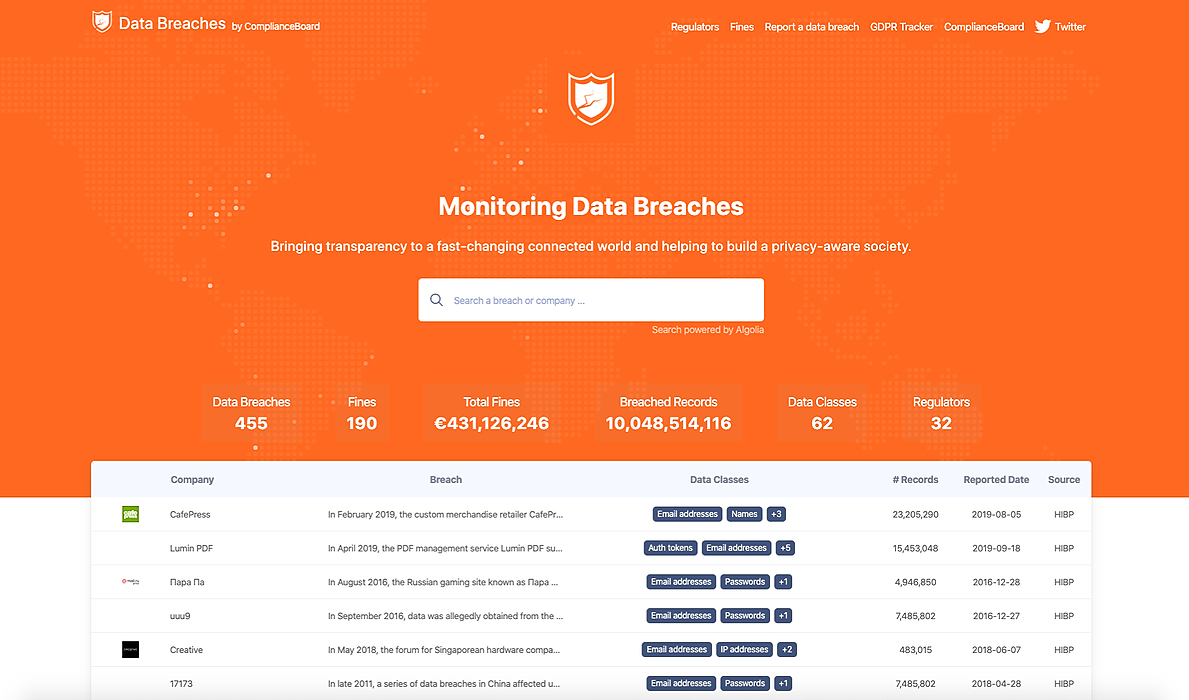 We are happy to announce our Data Breach website Databreach.es, our latest community project. With this project, we strive to create insights into global data breaches. Which companies have been breached, what kind of data got lost, what's the impact on your privacy and how did these companies handle the situation.
We are happy to announce our Data Breach website Databreach.es, our latest community project. With this project, we strive to create insights into global data breaches. Which companies have been breached, what kind of data got lost, what's the impact on your privacy and how did these companies handle the situation.
60. Are Smart Devices Worth the Privacy Risk?
 Smart devices are great. They help you search the internet with only your voice, allow you to order essentials without using your phone or computer, and let you see who's at the door. But they also do one other thing. They are listening, all the time. While Alexa is best known for this morally dubious listening, it's not just them. Google has just been shown to do the same. It seems like every smart device is listening in to your conversations. Let's talk about potential concerns and why these companies are doing this.
Smart devices are great. They help you search the internet with only your voice, allow you to order essentials without using your phone or computer, and let you see who's at the door. But they also do one other thing. They are listening, all the time. While Alexa is best known for this morally dubious listening, it's not just them. Google has just been shown to do the same. It seems like every smart device is listening in to your conversations. Let's talk about potential concerns and why these companies are doing this.
61. Google Pronounced The End Of The Cookies' Era And It Will Change Advertising As We Know It
 Web cookies have always been instrumental in achieving the goal of digital marketing. Cookies help advertisers to reach their targeted audience, and also to better understand which part of the marketing campaign that probably needs total reworking. Usually, a cookie is a piece of a snippet that gets integrated into users’ browsers over a period.
Web cookies have always been instrumental in achieving the goal of digital marketing. Cookies help advertisers to reach their targeted audience, and also to better understand which part of the marketing campaign that probably needs total reworking. Usually, a cookie is a piece of a snippet that gets integrated into users’ browsers over a period.
62. 3 Gmail Alternatives for a Better Email Experience
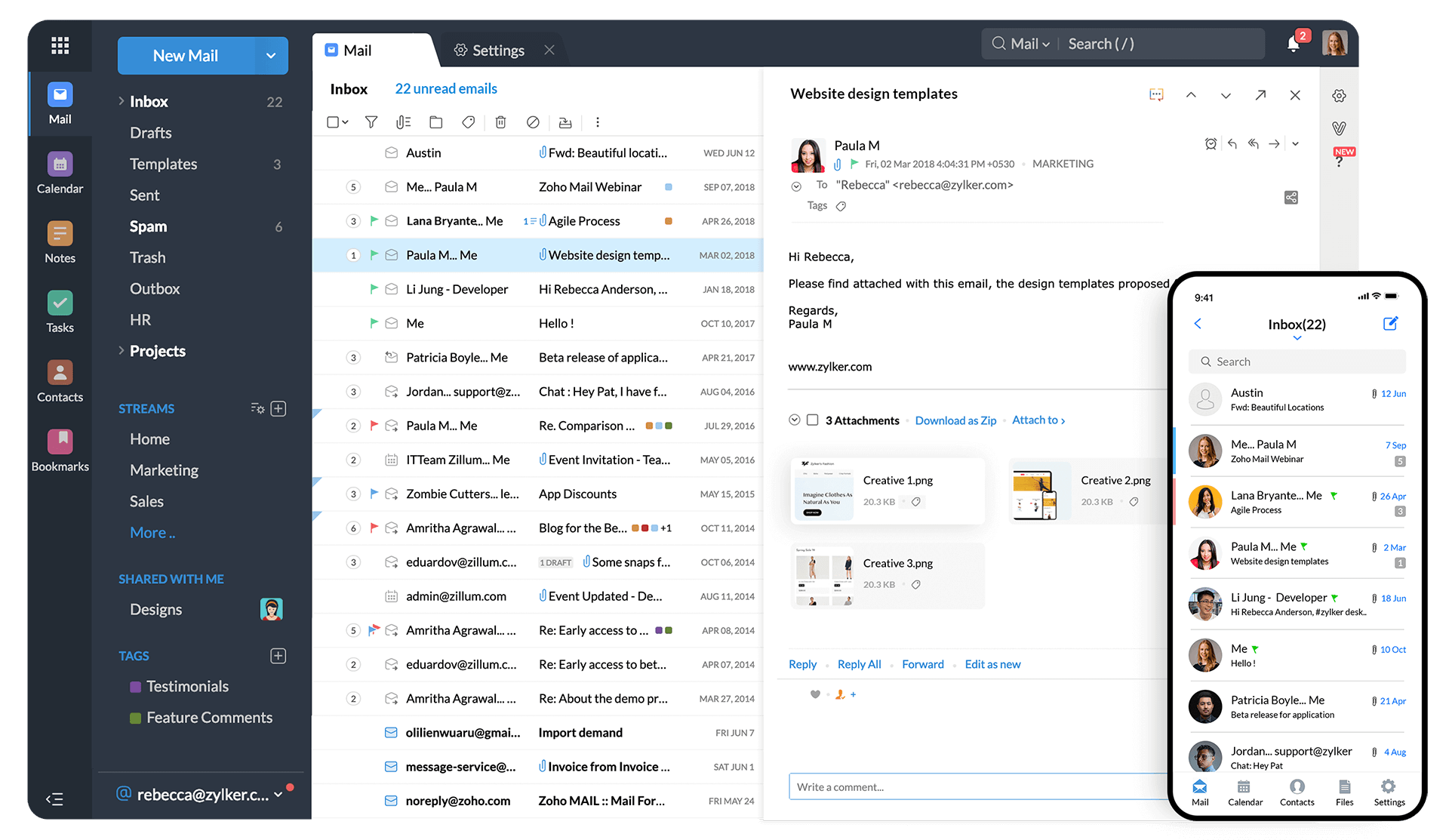 Check out these alternatives to Gmail that will give you more control over how and where your emails are stored, and keep your inbox organized.
Check out these alternatives to Gmail that will give you more control over how and where your emails are stored, and keep your inbox organized.
63. 7 Ways To Protect Your Personal Information on the Internet

64. Reconstruction Attacks: Examples of Invasion of Your Privacy Without Consent
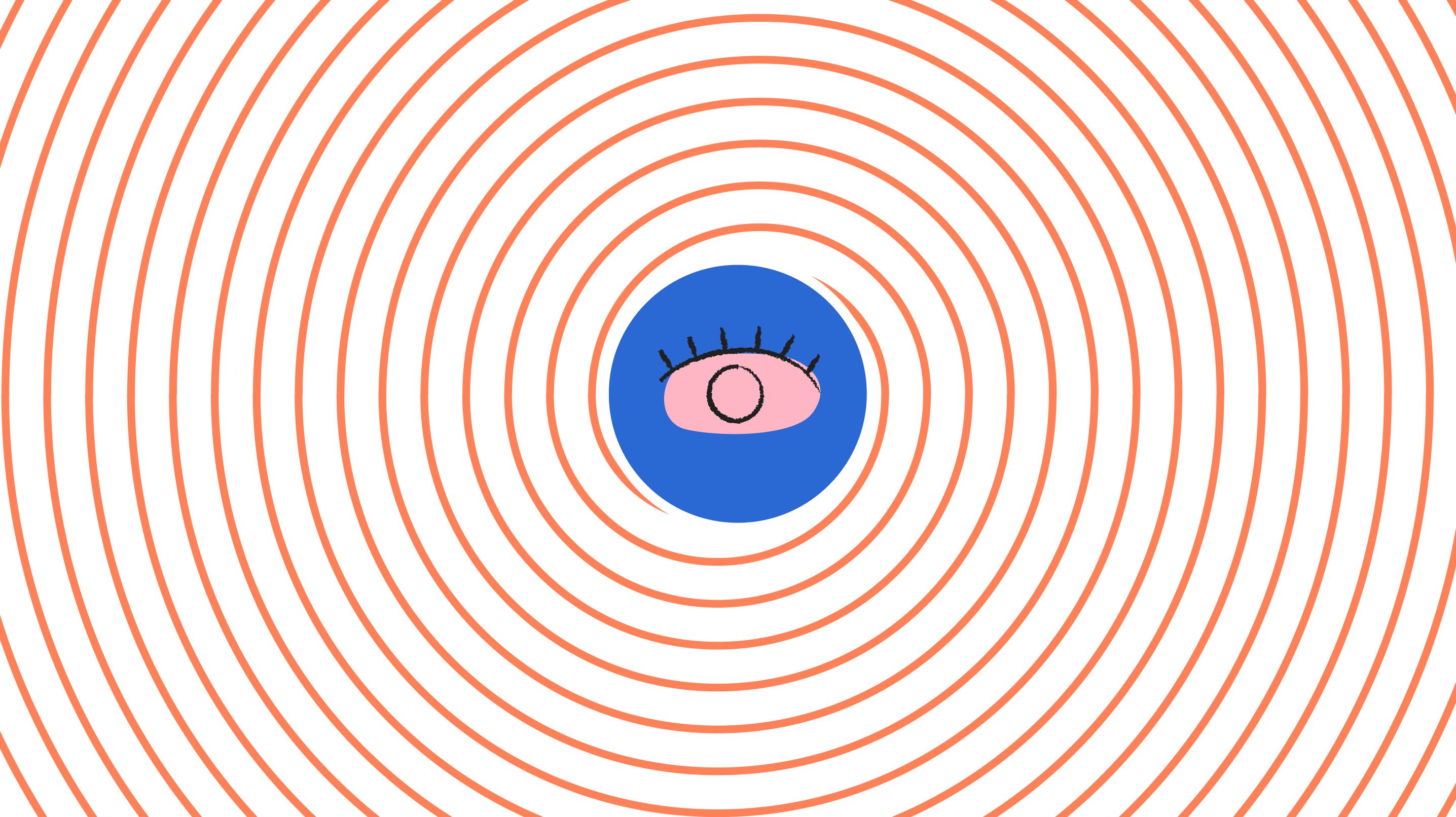
65. So Much Data. So Little Time for Ineffective Searches.
 How can we access this data correctly? Without simplifying it or opening this door, information is just bits.
How can we access this data correctly? Without simplifying it or opening this door, information is just bits.
66. Random Password Generator Command in Linux we Rarely Use
 Password generators are now in abundance. Particularly surprising are the many web applications for this purpose.
Password generators are now in abundance. Particularly surprising are the many web applications for this purpose.
67. 5 Reasons Why Privacy by Design is More Critical Than Ever in 2023
 The more manual work is involved in managing data privacy, the greater the risk of costly data and compliance breaches.
The more manual work is involved in managing data privacy, the greater the risk of costly data and compliance breaches.
68. Why Google Faces $5 Billion Lawsuits in the USA

69. Swann Security Camera Review: Outdoor Wi-fi Spotlight Model
 In this Swann Security Camera Review, we look at the design, features, and performance of the Swann Outdoor Wi-Fi Spotlight Camera.
In this Swann Security Camera Review, we look at the design, features, and performance of the Swann Outdoor Wi-Fi Spotlight Camera.
70. Have Your Privacy Cake on Android and Eat it Too
 How to set up your Android phone to provide ultimate privacy while also letting you use the latest applications.
How to set up your Android phone to provide ultimate privacy while also letting you use the latest applications.
71. Facial Recognition Login: Is This The New Security Standard?
 Facial recognition could help your business enhance security standards 10X. We explore the business challenges the technology can solve.Thirty thousand. That’s the number of infrared dots used by the latest standard today to create a map of your face for authentication and enable you to securely access your device. The process is as simple as it can get - look right into the camera and the facial login system does the rest. Today, facial recognition login isn’t restricted to unlocking phones, tagging people on social media or scanning crowds for security threats. It’s made its way into gaming, grocery stores, airports and payment platforms. Facial recognition login software and biometric technology are making inroads into building robust security platforms - with a system that’s designed to prevent spoofing by masks or photos. It’s permeated into security and law enforcement, even making paperless travel a reality.
Facial recognition could help your business enhance security standards 10X. We explore the business challenges the technology can solve.Thirty thousand. That’s the number of infrared dots used by the latest standard today to create a map of your face for authentication and enable you to securely access your device. The process is as simple as it can get - look right into the camera and the facial login system does the rest. Today, facial recognition login isn’t restricted to unlocking phones, tagging people on social media or scanning crowds for security threats. It’s made its way into gaming, grocery stores, airports and payment platforms. Facial recognition login software and biometric technology are making inroads into building robust security platforms - with a system that’s designed to prevent spoofing by masks or photos. It’s permeated into security and law enforcement, even making paperless travel a reality.
72. MobileCoin is the World's First Carbon-Negative Cryptocurrency
 MobileCoin has a significantly smaller impact on our planet and uses far less energy compared to other cryptocurrencies. This is how...
MobileCoin has a significantly smaller impact on our planet and uses far less energy compared to other cryptocurrencies. This is how...
73. Reflecting on What Made the Twitter Hack Possible
 Remember those scam callers who pretend to be the bank’s manager, without even knowing which bank you’ve got an account in? They ask for your card details for some verification shit.
Remember those scam callers who pretend to be the bank’s manager, without even knowing which bank you’ve got an account in? They ask for your card details for some verification shit.
74. Can Blockchains Overcome the Scalability Trilemma?
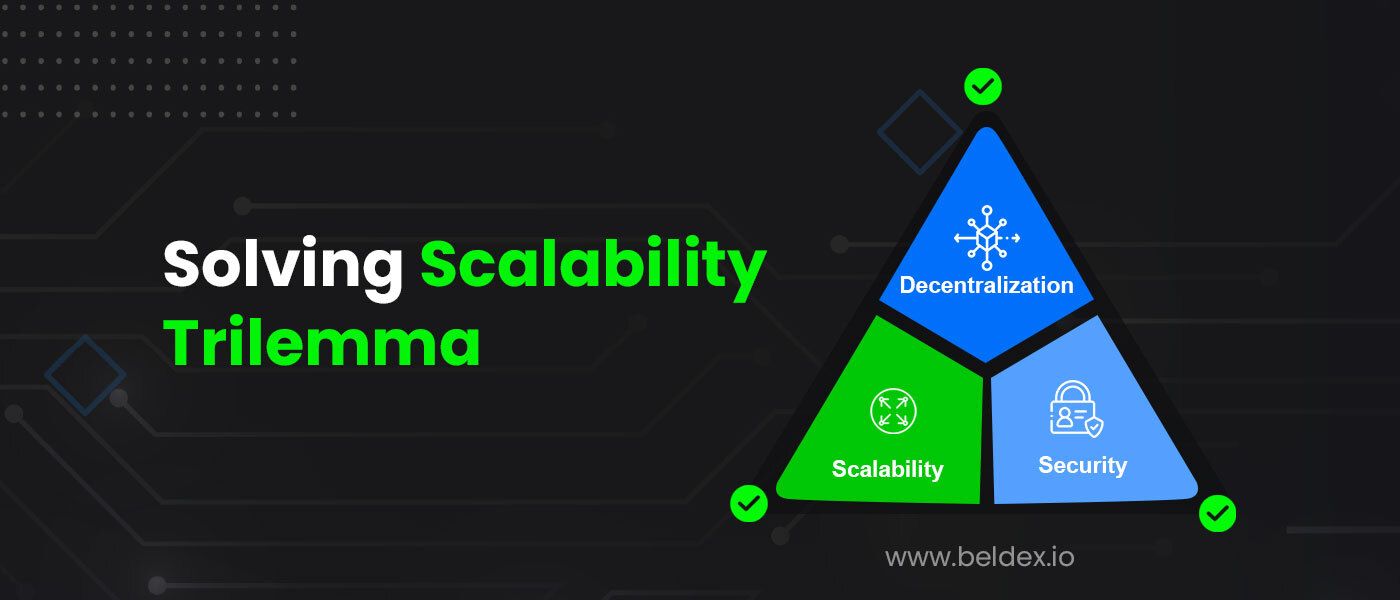 Beldex will be integrating Bucephalus Hard Fork on the 10th of December, 2021. Their goal is to create the first-ever privacy-based ecosystem.
Beldex will be integrating Bucephalus Hard Fork on the 10th of December, 2021. Their goal is to create the first-ever privacy-based ecosystem.
75. Taproot Activation Puts Bitcoin’s Privacy in a Class of Its Own: Unhashed #19
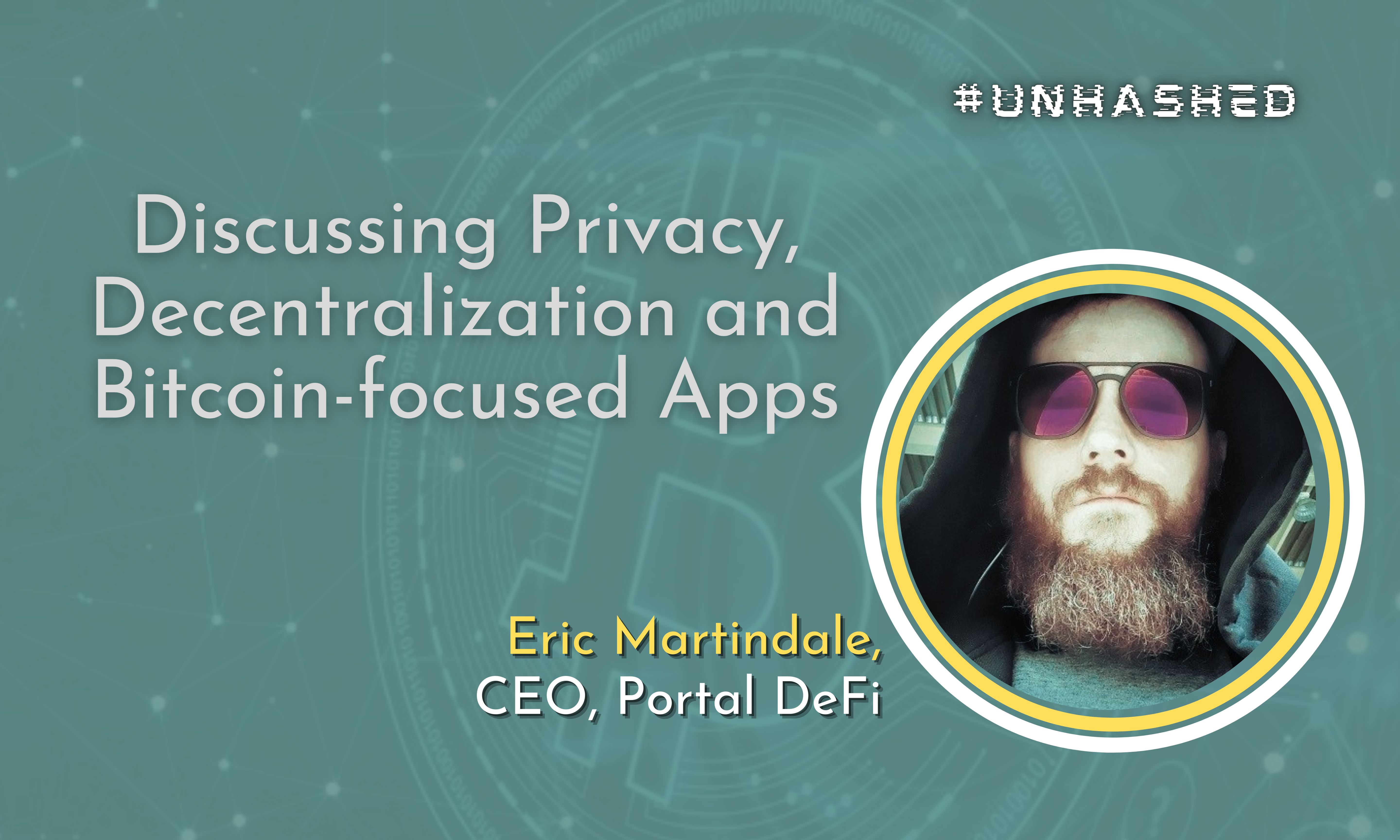 Unhashed is a QnA series where I speak with top execs of new and established blockchain projects to unravel the mystery of blockchain & crypto.
Unhashed is a QnA series where I speak with top execs of new and established blockchain projects to unravel the mystery of blockchain & crypto.
76. Is Blockchain Technology Compatible With True User Privacy?
 Is blockchain technology compatible with data privacy when used in a corporate setting? What needs to change about it to make it perfectly compliant with it?
Is blockchain technology compatible with data privacy when used in a corporate setting? What needs to change about it to make it perfectly compliant with it?
77. Zoom, Keybase and Future of Messaging
 Today Zoom acquired Keybase. It came as a shock to me at first; but, it shouldn't surprise us.
Today Zoom acquired Keybase. It came as a shock to me at first; but, it shouldn't surprise us.
78. Facial Recognition Tech Raises Some Real Ethical Dilemmas
 Do you have any devices that turn on when they see your face? It’s convenient and kind of fun, right? And for the most part, it’s groundbreaking security technology. Facial recognition and other forms of biometric technology have the ability to identify people more quickly and more reliably, giving them faster and more secure access to their personal devices while also granting opportunities for law enforcement to positively identify and capture suspects.
Do you have any devices that turn on when they see your face? It’s convenient and kind of fun, right? And for the most part, it’s groundbreaking security technology. Facial recognition and other forms of biometric technology have the ability to identify people more quickly and more reliably, giving them faster and more secure access to their personal devices while also granting opportunities for law enforcement to positively identify and capture suspects.
79. BlockWallet Launches the First Privacy Focused Web3 Browser Wallet
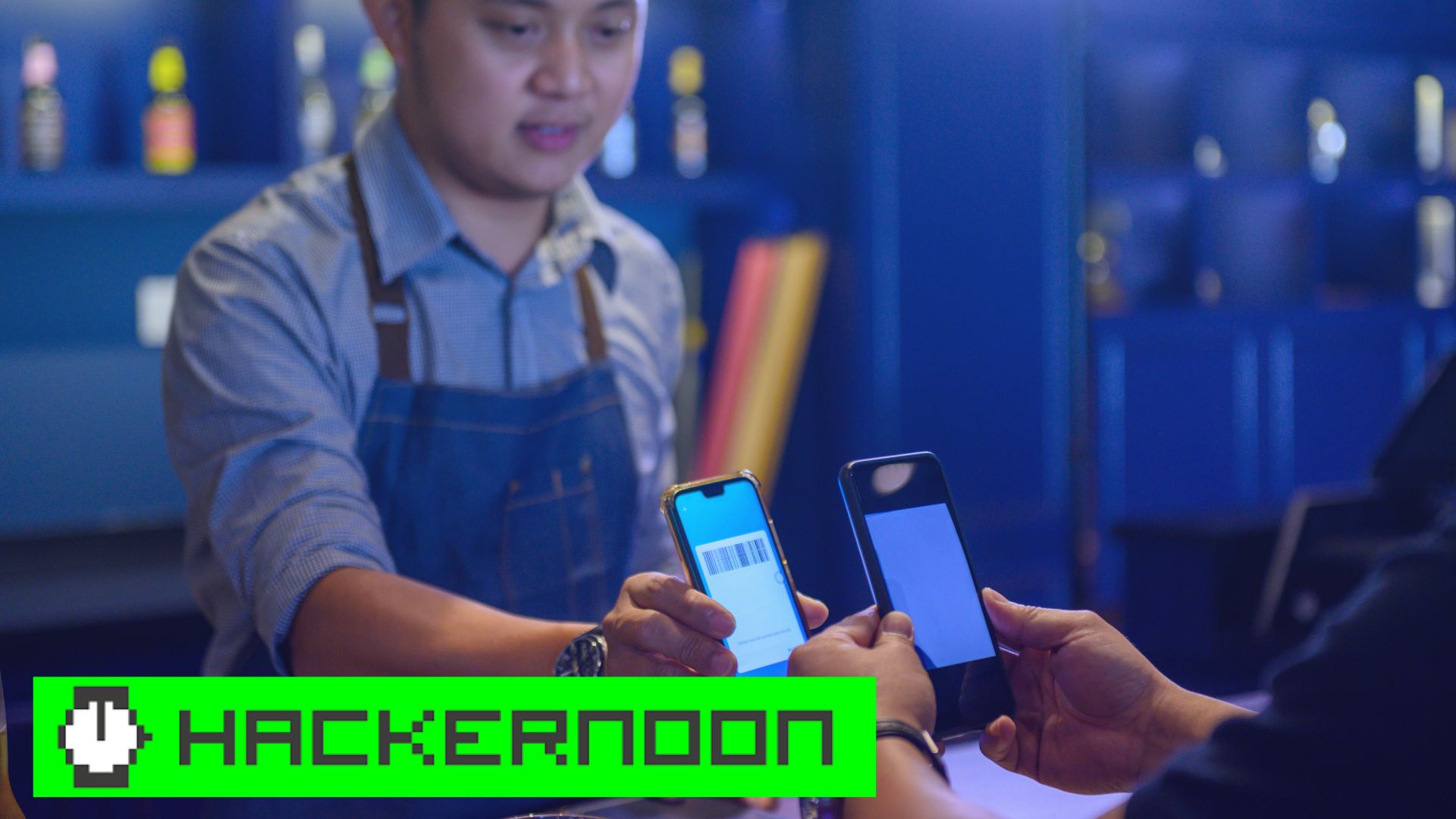 BlockWallet browser-based solution brings in a new age of interfacing with Web3 and the decentralised apps that underpin it.
BlockWallet browser-based solution brings in a new age of interfacing with Web3 and the decentralised apps that underpin it.
80. Why Governments Use Mass Surveillance—And What To Do About It
 “I’m not a terrorist, why should I be worried about my data being monitored?”
“I’m not a terrorist, why should I be worried about my data being monitored?”
81. Top-6 Best Anonymous Browsers Or Why Privacy Matters
 “Aren’t all browsers anonymous?”
“Aren’t all browsers anonymous?”
82. You Share Your Birthday Online with Well-Wishers and Phishers
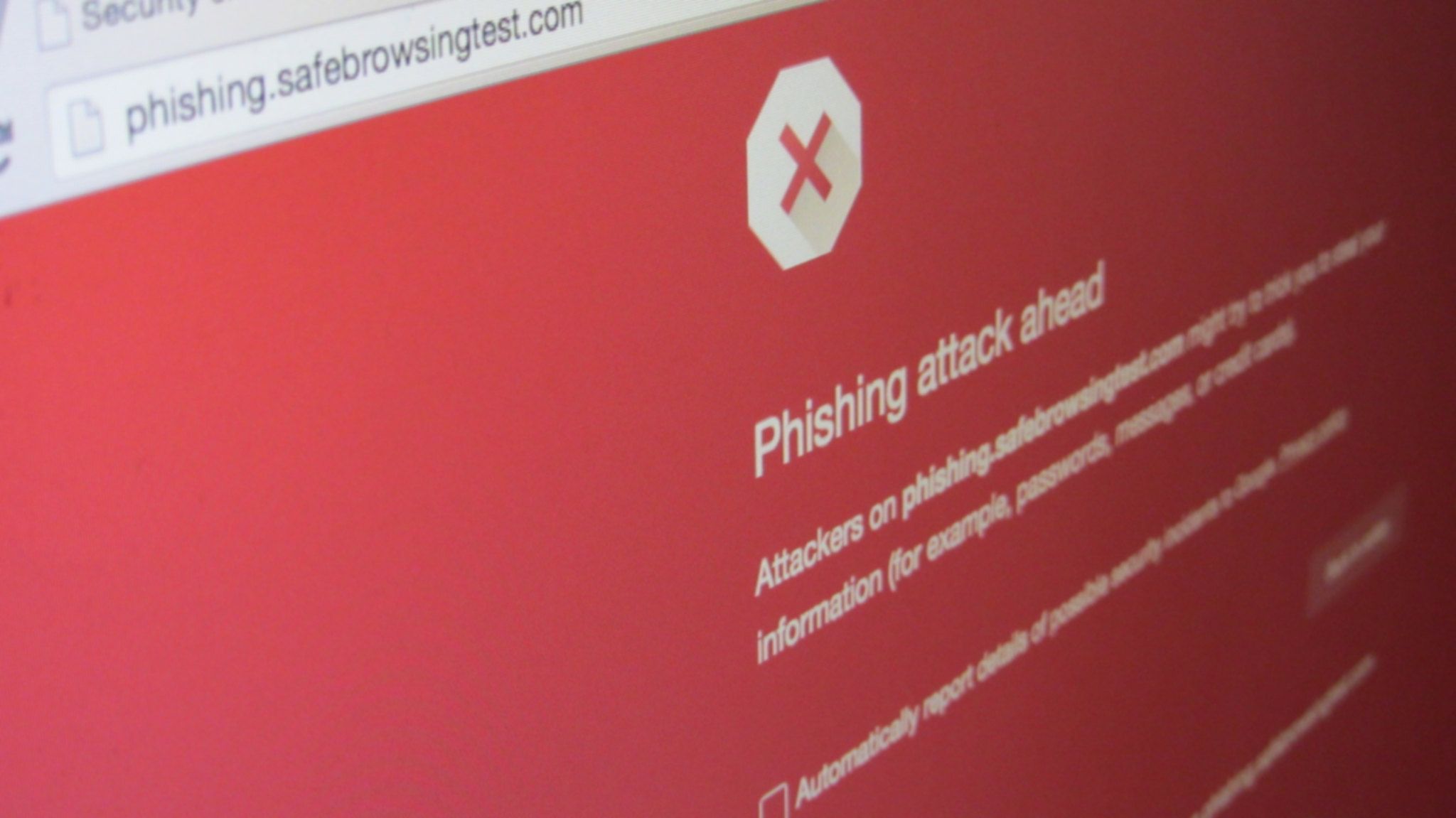 I am sure you are so happy when you see the wall of congratulations on your Meta, or Linkedin feeds. Did you consider the risks of exposing your birthday?
I am sure you are so happy when you see the wall of congratulations on your Meta, or Linkedin feeds. Did you consider the risks of exposing your birthday?
83. How To Manage Your Privacy Online
 Think carefully before publishing your personal data (especially name, address, telephone number) in a user profile.
Think carefully before publishing your personal data (especially name, address, telephone number) in a user profile.
84. Maintain Anonymity Online With These 3 Actionable Steps
 The classic idea of the Internet is a virtual place where free speech and anonymity is possible; that has evolved. Here are 3 tips to maintain anonymity online.
The classic idea of the Internet is a virtual place where free speech and anonymity is possible; that has evolved. Here are 3 tips to maintain anonymity online.
85. What is CAPTCHA and Does Google Use it to Train AI?
 CAPTCHA was invented between 1997 and 2000. It was used to protect against spam requests received every day in the now-defunct AltaVista search engine.
CAPTCHA was invented between 1997 and 2000. It was used to protect against spam requests received every day in the now-defunct AltaVista search engine.
86. The Disturbing Effects of the Digital Revolution That Only A Few Talk About
 This ecosystem of information is controlled by only a handful of powerful companies that determine how information is exchanged
This ecosystem of information is controlled by only a handful of powerful companies that determine how information is exchanged
87. [Interview] Decentralization and Privacy in Telecommunications
 ENCRY is a multi-disciplined international holding company specializing in the creation of high-tech products in the telecommunications field, as well as decentralized and distributed services. We talked with ENCRY’s founder Roman Nekrasov and the technical director Andrei Chmora about the implication of blockchain in the telecom industry and how ENCRY’s developments can drastically improve the security of users on the Internet.
ENCRY is a multi-disciplined international holding company specializing in the creation of high-tech products in the telecommunications field, as well as decentralized and distributed services. We talked with ENCRY’s founder Roman Nekrasov and the technical director Andrei Chmora about the implication of blockchain in the telecom industry and how ENCRY’s developments can drastically improve the security of users on the Internet.
88. Insecure by Design: As Millions Flock to Telegram, 7 Reasons to Question the App's Privacy Claims
 Telegram is not the gold-standard for secure messaging that it paints itself to be. Here are 7 reasons why.
Telegram is not the gold-standard for secure messaging that it paints itself to be. Here are 7 reasons why.
89. Internet Privacy Tools for 2019
 Updated - 01/13/20
Updated - 01/13/20
90. What installing the Messenger app tells us about Facebook

91. Humans As Data Points: Here's Why You Need Better Privacy
 “Arguing that you don't care about the right to privacy because you have nothing to hide is no different than saying you don't care about free speech because you have nothing to say." - Edward Snowden
“Arguing that you don't care about the right to privacy because you have nothing to hide is no different than saying you don't care about free speech because you have nothing to say." - Edward Snowden
92. An Intro to Zero-Knowledge Proofs (ZKP) and Identity
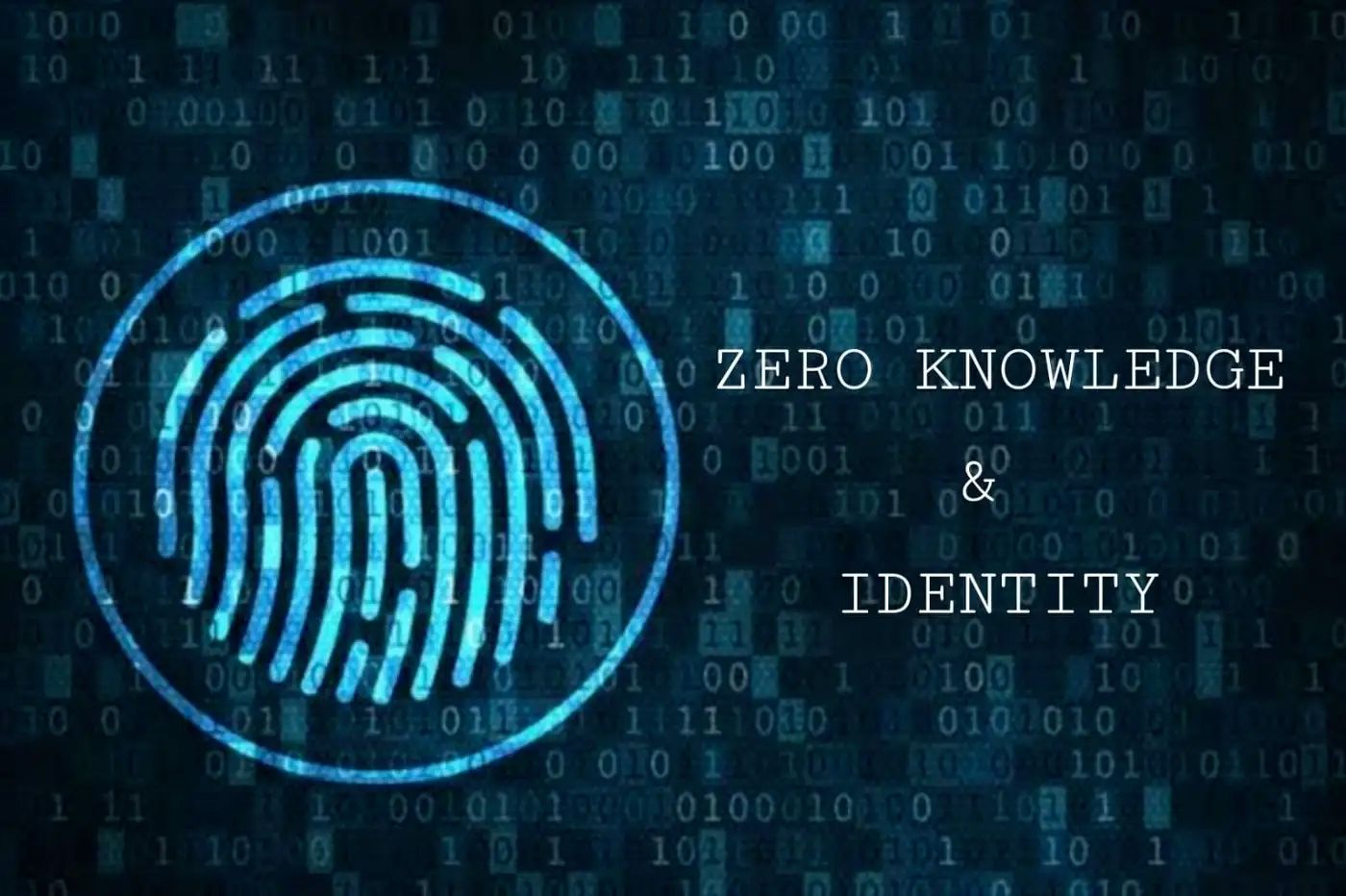 Learn about Zero Knowledge claims and how they can help in securing your Identity.
Learn about Zero Knowledge claims and how they can help in securing your Identity.
93. Keeping Your Smartphone Data Safe in the Age of Remote Work
 Let’s take a look at how businesses can encourage employees to better look after their data securely while on the go.
Let’s take a look at how businesses can encourage employees to better look after their data securely while on the go.
94. Anonymity 3.0: Do We Have a Chance with Web3?
 In the digital era, the volume of data generated online keeps on growing. Users leave their information on nearly every site. Will Web3 change this?
In the digital era, the volume of data generated online keeps on growing. Users leave their information on nearly every site. Will Web3 change this?
95. The Death of Privacy is An Abusive Government's Wet Dream
 Facial recognition isn't just a neat little gimmick to unlock your iPhone or save a couple minutes at the airport—it's a dangerous weapon wielded by abusive governments to silence dissidents, and the more mainstream this technology gets, the more powerful a weapon it becomes.
Facial recognition isn't just a neat little gimmick to unlock your iPhone or save a couple minutes at the airport—it's a dangerous weapon wielded by abusive governments to silence dissidents, and the more mainstream this technology gets, the more powerful a weapon it becomes.
96. How Am I Being Tracked Online? A Story.
 How are users being tracked online even when taking privacy precautions? What tools are Meta and others using to target you with ads?
How are users being tracked online even when taking privacy precautions? What tools are Meta and others using to target you with ads?
97. First Impressions of YouCode: The Search Engine for Programmers
 As a tech enthusiast and programmer, I love trying new platforms that attempt to reinvent the way we interact with computers, the internet, and each other. One of the most outdated yet crucial tools we interact with every day — the search engine — is due for disruption. Many companies recognize this and have tried to redesign and reinvent the search process. To stay at the forefront of this search engine revolution and take control over my search results, I experimented with several smaller search engines (most still in beta). One of the most innovative and curated alternative search engines is You.com. In my opinion, their recent release of YouCode has the potential to reshape how programmers interact with the internet, expedite problem solving, and enhance software design. Today I will be reviewing this novel search engine and discussing how I use it to improve my coding.
As a tech enthusiast and programmer, I love trying new platforms that attempt to reinvent the way we interact with computers, the internet, and each other. One of the most outdated yet crucial tools we interact with every day — the search engine — is due for disruption. Many companies recognize this and have tried to redesign and reinvent the search process. To stay at the forefront of this search engine revolution and take control over my search results, I experimented with several smaller search engines (most still in beta). One of the most innovative and curated alternative search engines is You.com. In my opinion, their recent release of YouCode has the potential to reshape how programmers interact with the internet, expedite problem solving, and enhance software design. Today I will be reviewing this novel search engine and discussing how I use it to improve my coding.
98. How to Protect Yourself Against Smishing Attacks
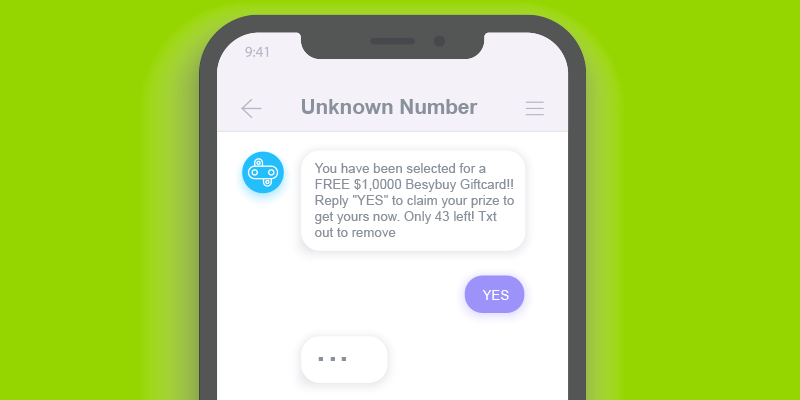 As the threat landscape encapsulating organizations and companies grows increasingly sophisticated, and harbors a growing number of threats and vulnerabilities- organizations are getting more accustomed to commonplace scams such as phishing.
As the threat landscape encapsulating organizations and companies grows increasingly sophisticated, and harbors a growing number of threats and vulnerabilities- organizations are getting more accustomed to commonplace scams such as phishing.
99. 5 Negative Behavioral Effects of Cyber Security on Organization

100. 5 Best Browser Extensions For Protecting Your Privacy Online
 It is essential for every internet user to comprehend the importance of browser security capabilities to assure they browse the internet safely. Protecting your browser might mean limited functionality of some web sites, but it’ll shield your most sensitive information as well.
It is essential for every internet user to comprehend the importance of browser security capabilities to assure they browse the internet safely. Protecting your browser might mean limited functionality of some web sites, but it’ll shield your most sensitive information as well.
101. What VPN services aren’t telling you about data logging
 Can you think of any popular VPN service out there that doesn’t have a big “NO LOGGING” tag attached right on front of it?
Can you think of any popular VPN service out there that doesn’t have a big “NO LOGGING” tag attached right on front of it?
102. What to Do When Your Hulu or Netflix Account Gets Hacked
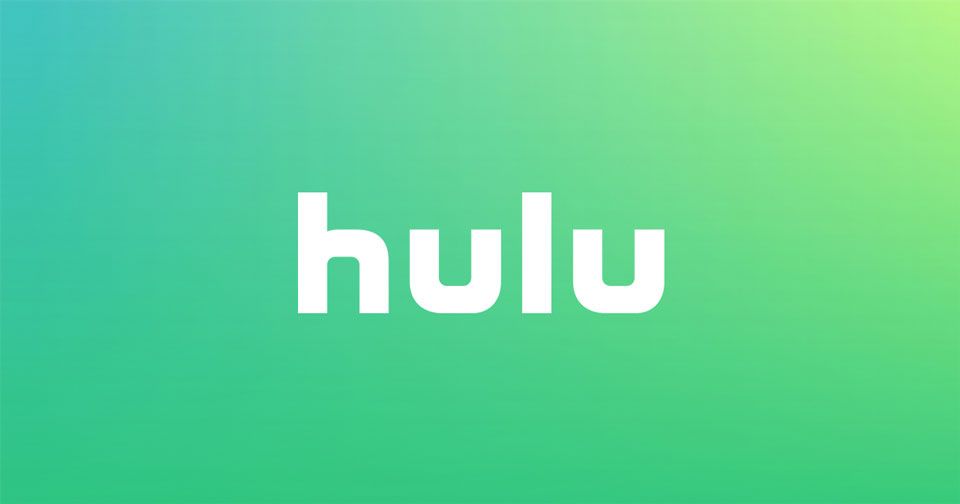 Streaming service accounts get compromised all the time either due to data breaches, credential stuffing attacks from leaked databases, or simply because of users employing weak passwords.
Streaming service accounts get compromised all the time either due to data breaches, credential stuffing attacks from leaked databases, or simply because of users employing weak passwords.
103. Signing In with Apple in React-Native App [A How-To Guide]
 Image Source : WebsOptimization
Image Source : WebsOptimization
104. Is Google Actually an Evil Corporation?
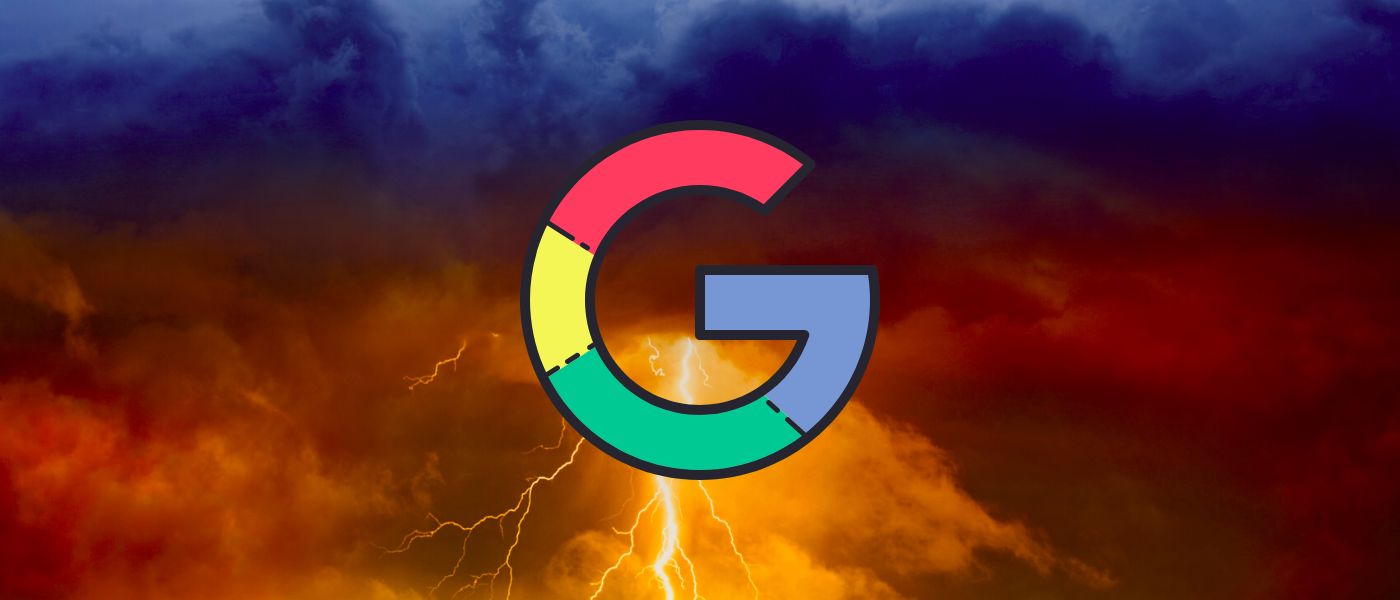 When asked about Google, there has been a lot to say over the years. Google done some things right, and seemingly some things very wrong. As far as conspiracies go, Google does seem to have a CIA connection (see video below). This even roots back to potential government research, and missing gaps on how they have been funded in the early stage.
When asked about Google, there has been a lot to say over the years. Google done some things right, and seemingly some things very wrong. As far as conspiracies go, Google does seem to have a CIA connection (see video below). This even roots back to potential government research, and missing gaps on how they have been funded in the early stage.
105. How to become a Brave Verified Creator
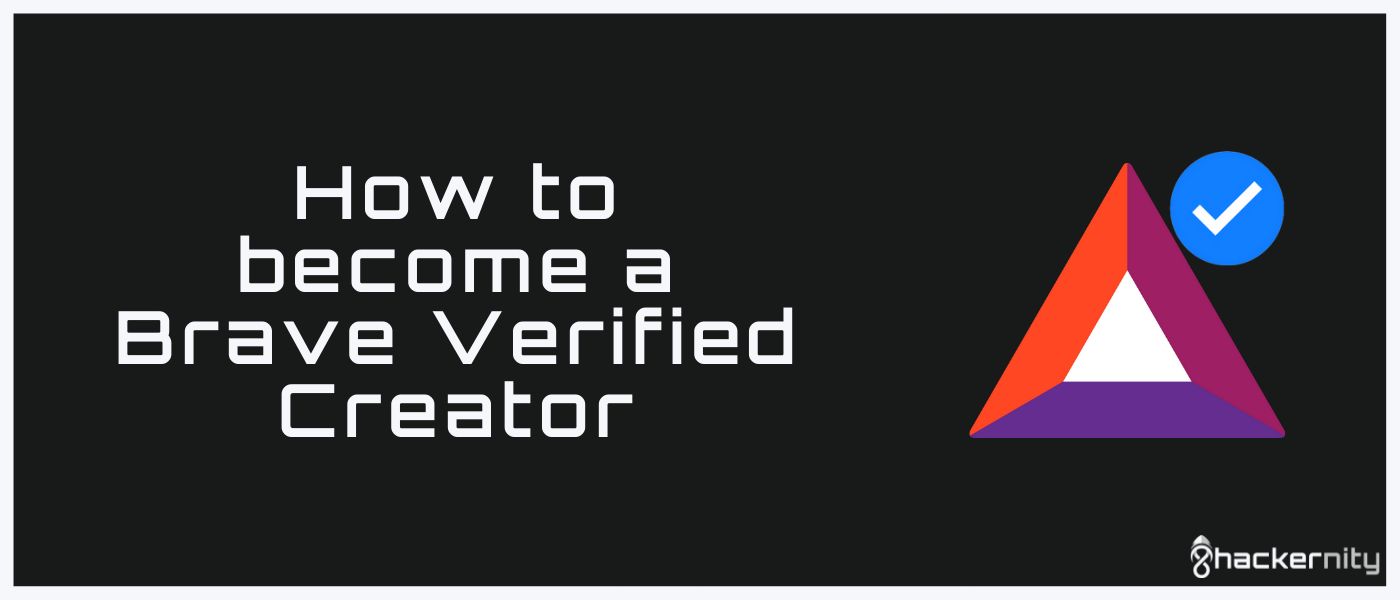 A guide to obtain the Brave Verified Creator badge and start collecting BAT contributions.
A guide to obtain the Brave Verified Creator badge and start collecting BAT contributions.
106. What Does Privacy Mean in the Tech Industry?
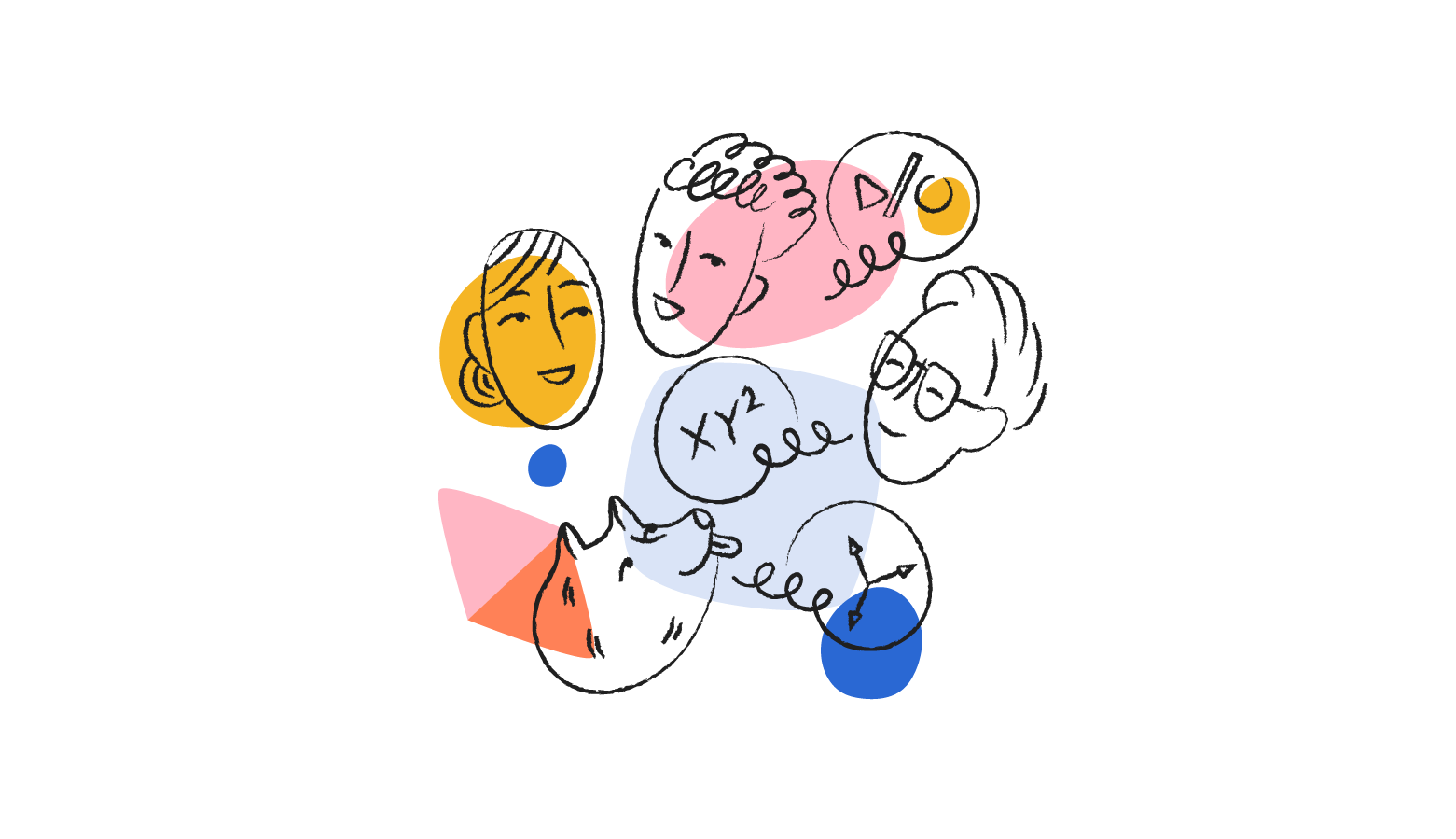 Privacy, as a concept, often lacks a clear definition. However, privacy-enhancing technologies can be generally categorized into two broad desiderata.
Privacy, as a concept, often lacks a clear definition. However, privacy-enhancing technologies can be generally categorized into two broad desiderata.
107. How To Avoid Digital Identity Theft - 6 Steps To Stay Safe
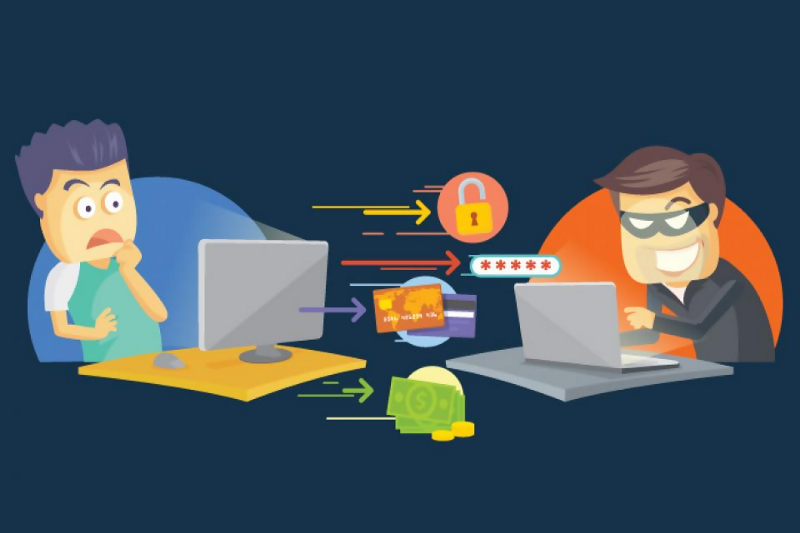 At least once per day, we're seeing examples of digital identity theft. Most well-known cases of such crime are using a person's pictures to create fake social profiles, purchasing items online by pretending to be a different person and similar situations.
At least once per day, we're seeing examples of digital identity theft. Most well-known cases of such crime are using a person's pictures to create fake social profiles, purchasing items online by pretending to be a different person and similar situations.
108. Improving Outcomes while Protecting Privacy During COVID-19: Contact Tracing Apps
 In recent weeks my colleagues at CriticalBlue/Approov have been following the race to build contact tracing smartphone apps in the worldwide fight against COVID-19. Such apps are a powerful weapon in controlling the growth of infection by automating the scaling of the contact tracing process.
In recent weeks my colleagues at CriticalBlue/Approov have been following the race to build contact tracing smartphone apps in the worldwide fight against COVID-19. Such apps are a powerful weapon in controlling the growth of infection by automating the scaling of the contact tracing process.
109. My Story Within The Privacy War
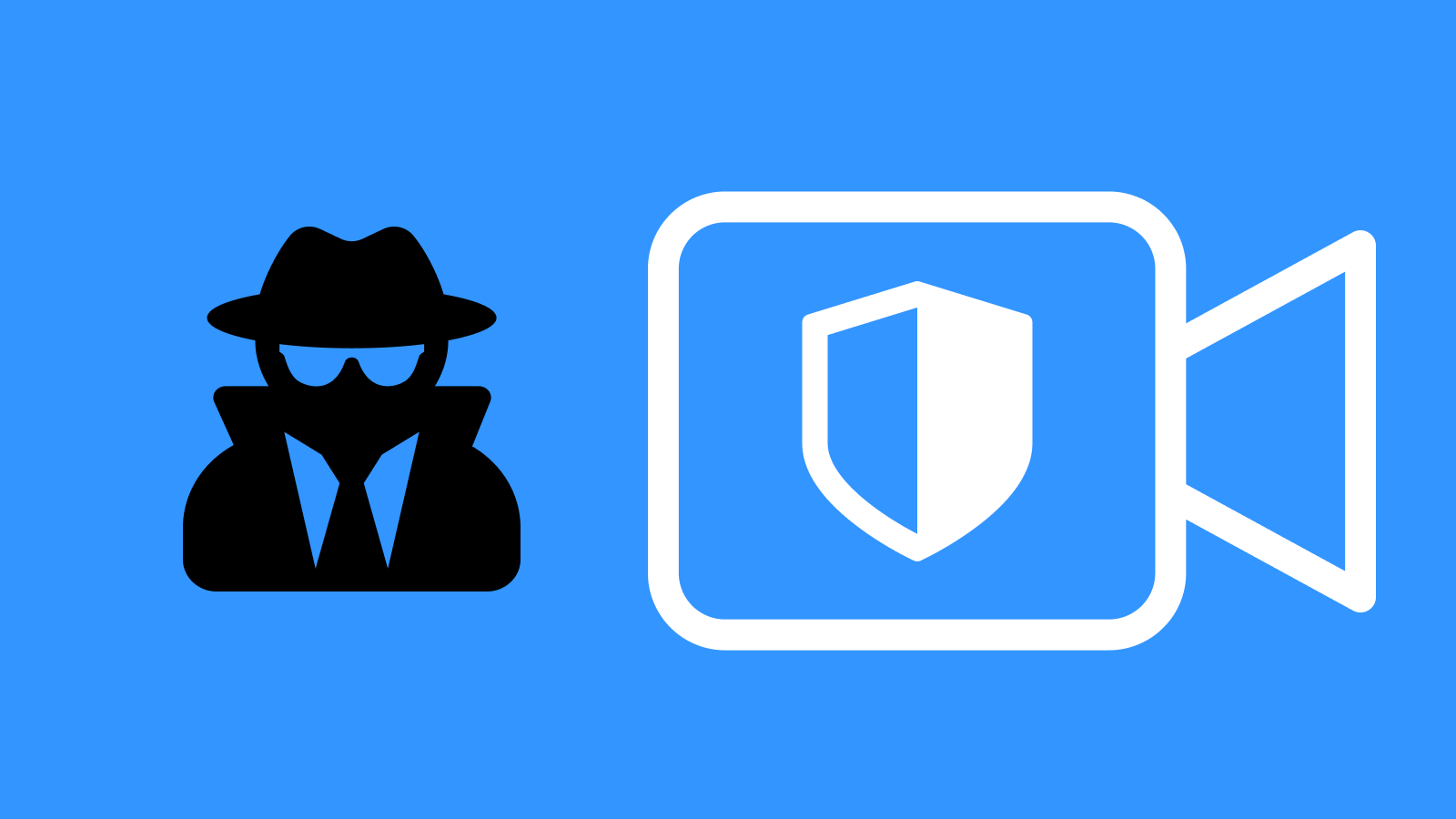 I am developing a product with data privacy as the highest priority. It is hard (and maybe costly too).
I am developing a product with data privacy as the highest priority. It is hard (and maybe costly too).
110. How to Spy on a Cell Phone Privately
 If you want to spy on someone's cell phone without them knowing, look out for in-demand programs offering a free trial period. Learn more about spying apps.
If you want to spy on someone's cell phone without them knowing, look out for in-demand programs offering a free trial period. Learn more about spying apps.
111. Top 10 Second Phone Number Apps for Android and iPhone
 You’ll agree that carrying two smartphones, one for business calls and one for personal use, is not convenient at all. Luckily, the modern world has taken everything and turned it into an app. Now you don’t even need to buy a second SIM card to make calls to your colleagues. What you need is a special second phone number app that gives you a second line for local and international calls. In this article, we’ll check out the best second phone number apps for Android and iPhone, and compare their main features and pricing.
You’ll agree that carrying two smartphones, one for business calls and one for personal use, is not convenient at all. Luckily, the modern world has taken everything and turned it into an app. Now you don’t even need to buy a second SIM card to make calls to your colleagues. What you need is a special second phone number app that gives you a second line for local and international calls. In this article, we’ll check out the best second phone number apps for Android and iPhone, and compare their main features and pricing.
112. Users Will Exit if Onboarding Takes Too Long; and Other Digital ID Insights
 Our team recently shared the results of our Annual Consumer Digital Identity Study. For the third year in a row, we’ve surveyed a panel of 1,500 consumers representative of the U.S. population to gather data on the state of fraud, trust and account opening. The insights we uncovered provide visibility into the experiences, preferences and practices trending among Americans as they navigate their digital lives, engage with new and existing online services and seek to establish trust in commerce.
Our team recently shared the results of our Annual Consumer Digital Identity Study. For the third year in a row, we’ve surveyed a panel of 1,500 consumers representative of the U.S. population to gather data on the state of fraud, trust and account opening. The insights we uncovered provide visibility into the experiences, preferences and practices trending among Americans as they navigate their digital lives, engage with new and existing online services and seek to establish trust in commerce.
113. How a DNS Firewall Can Improve Networking Security for Your Business
 Business is driven by the well-calculated balance between spending and earning, and even the most successful companies are in a constant search for ways to cut costs. But what’s often a “nice to have” for larger companies can be a matter of survival for startups and small family businesses, who are usually only able to spend money on the essentials.
Business is driven by the well-calculated balance between spending and earning, and even the most successful companies are in a constant search for ways to cut costs. But what’s often a “nice to have” for larger companies can be a matter of survival for startups and small family businesses, who are usually only able to spend money on the essentials.
114. Monetary Systems and The Future
 The future of money and the dollar in the world of crypto and Central Bank Digital Currencies - CBDC. What will change and how it might look like?
The future of money and the dollar in the world of crypto and Central Bank Digital Currencies - CBDC. What will change and how it might look like?
115. How Can You Minimize Your Online Footprint

116. Barlow's Declaration of Independence of the Metaverse
 Governments of the Old Industrial World, you weary giants of flesh and steel, we are the inhabitants of the Metaverse, the new home of free minds.
Governments of the Old Industrial World, you weary giants of flesh and steel, we are the inhabitants of the Metaverse, the new home of free minds.
117. How to buy Crypton (CRP) Utopia P2P project cryptocurrency?
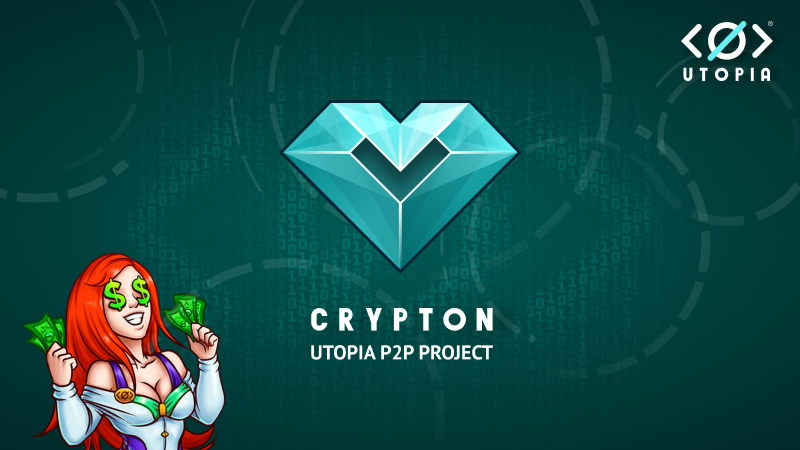 Table of Content
Table of Content
118. Israeli Ministry of Communications Might Be Inadvertently Exposing Israeli Citizens to Hackers
 While Israel faces massive cyber attacks, Israel’s Ministry of Communications debates transferring invoices from mail to e-mail.
While Israel faces massive cyber attacks, Israel’s Ministry of Communications debates transferring invoices from mail to e-mail.
119. We Open Sourced Datanymizer: in-Flight Template-Driven Data Anonymization Tool
 Datanymizer is an open-source, GDPR-compliant, privacy-preserving data anonymization tool flexible about how the anonymization takes place
Datanymizer is an open-source, GDPR-compliant, privacy-preserving data anonymization tool flexible about how the anonymization takes place
120. COVID-19 Tracing: Protect Your Privacy
 As the COVID-19 pandemic goes on, life for some around the world is beginning to look a little more like it did before, except with some more distancing, and more people wearing masks. What doesn’t look the same, is how technology is being used to monitor and track cases, infection rates, and outbreaks.
As the COVID-19 pandemic goes on, life for some around the world is beginning to look a little more like it did before, except with some more distancing, and more people wearing masks. What doesn’t look the same, is how technology is being used to monitor and track cases, infection rates, and outbreaks.
121. How Is Anonymous View Different From Private Mode
 One of the most misunderstood features on most modern browsers is Private Mode, sometimes called incognito mode. When I am offering advice on measures people can take in their privacy such as using a private search engine or a VPN, I am told, “I don’t need those, I use incognito mode.”
One of the most misunderstood features on most modern browsers is Private Mode, sometimes called incognito mode. When I am offering advice on measures people can take in their privacy such as using a private search engine or a VPN, I am told, “I don’t need those, I use incognito mode.”
122. How To Sell Things To People Who Have Cancer With Facebook Ads Partners
 Behind Google Ads, Facebook Ads is 2nd largest ads platform in the world.
Behind Google Ads, Facebook Ads is 2nd largest ads platform in the world.
123. #NoBrainer: Use Only Cryptocurrency to Buy Controversial Goods
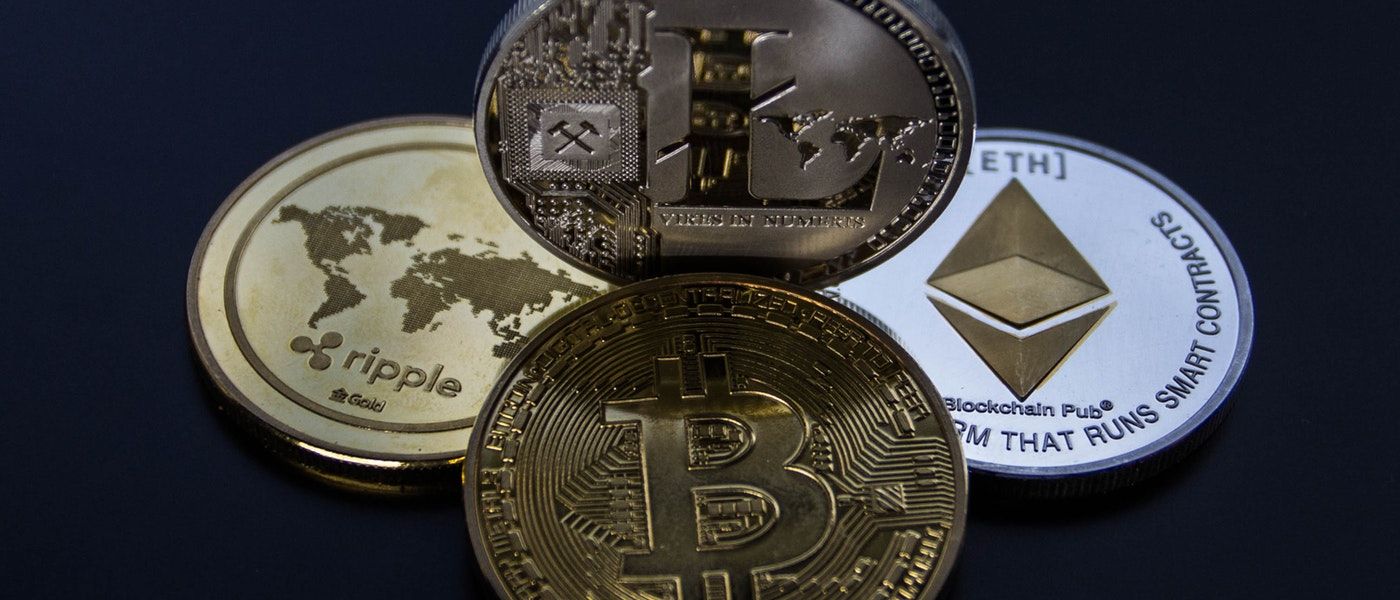 Are you buying controversial products with your bank account? If so,you may want to consider using cryptocurrency instead. Cryptocurrency gives you privacy and anonymity as long as you buy it in a waythat can’t be traced back to you.
Are you buying controversial products with your bank account? If so,you may want to consider using cryptocurrency instead. Cryptocurrency gives you privacy and anonymity as long as you buy it in a waythat can’t be traced back to you.
124. What Is The Best Private Encrypted Messenger! [10 Messengers Evaluated]
 Updated 01/13/2020
Updated 01/13/2020
125. The Independent Phone : More Privacy, Less Freedom?
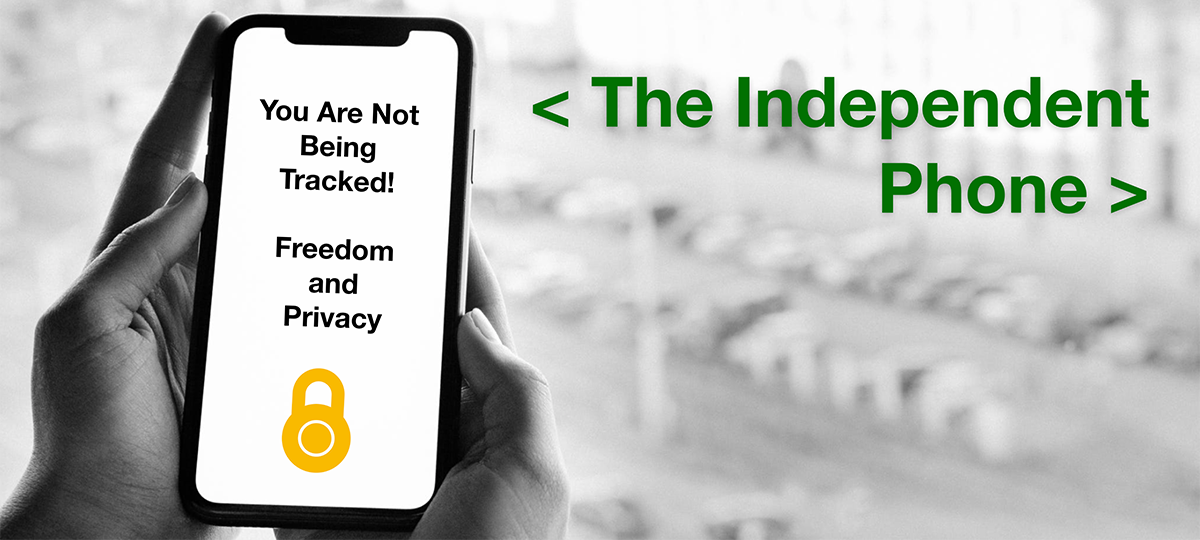 Freedom and privacy tend to go together, but there is a difference. With a more private phone, does it really mean you have more freedom?
Freedom and privacy tend to go together, but there is a difference. With a more private phone, does it really mean you have more freedom?
126. Top Open Source Vulnerabilities to Watch Out
 Open Source packages are a mainstay for most software engineering projects. We are so accustomed as developers to run our
Open Source packages are a mainstay for most software engineering projects. We are so accustomed as developers to run our npm install (for Node developers) or
127. Is Data Sovereignty Possible? In The European Union, It Soon Could Be
 Data privacy, security, and sovereignty issues have gained significant attention over recent years.
Data privacy, security, and sovereignty issues have gained significant attention over recent years.
128. Artificial Intelligence and Online Privacy: Blessing and a Curse
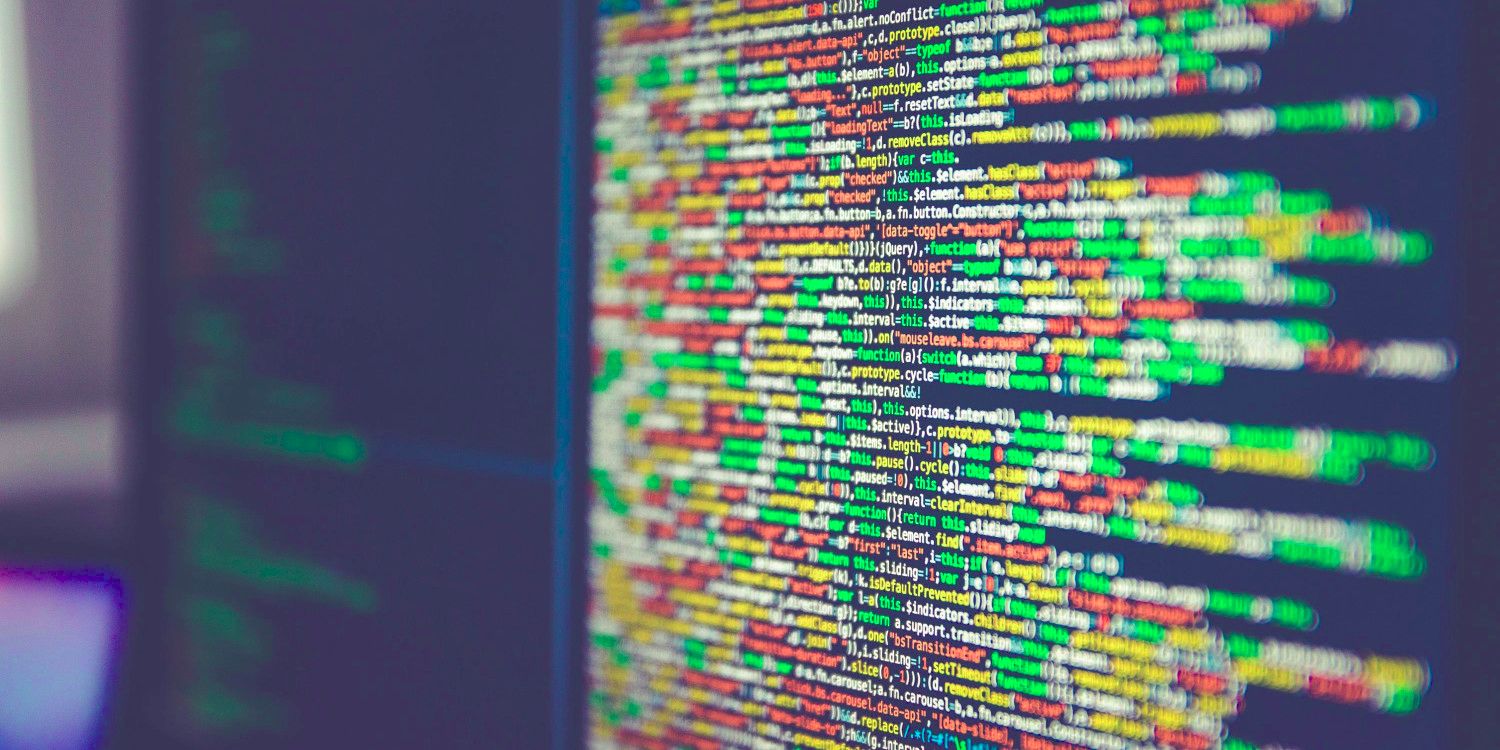 Artificial Intelligence (AI) is a beautiful piece of technology made to seamlessly augment our everyday experience. It is widely utilized in everything starting from marketing to even traffic light moderation in cities like Pittsburg. However, swords have two edges and the AI is no different. There are a fair number of upsides as well as downsides that follow such technological advancements.
Artificial Intelligence (AI) is a beautiful piece of technology made to seamlessly augment our everyday experience. It is widely utilized in everything starting from marketing to even traffic light moderation in cities like Pittsburg. However, swords have two edges and the AI is no different. There are a fair number of upsides as well as downsides that follow such technological advancements.
129. Security Trends in 2023 That Need Your Attention
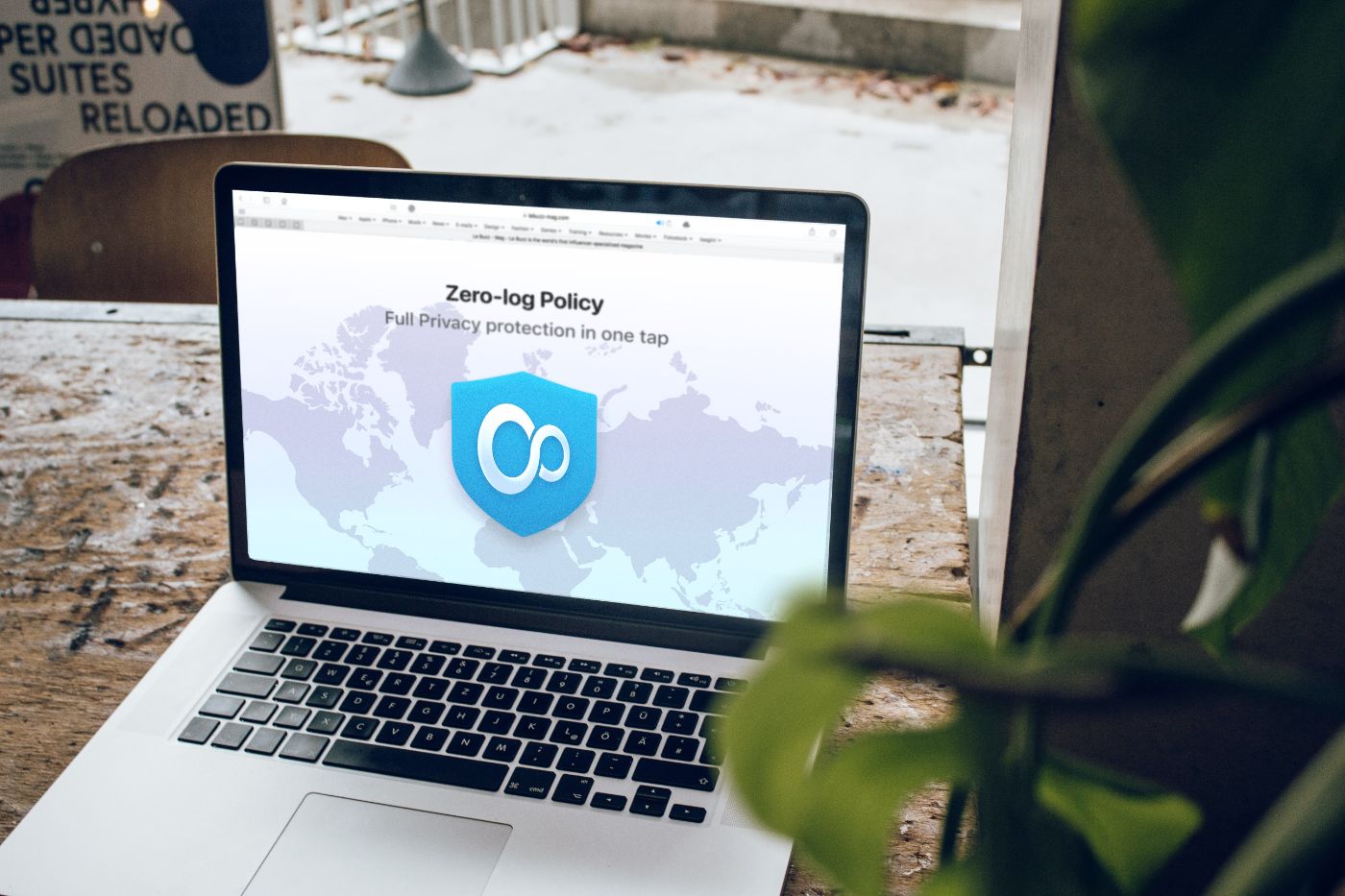 2022 saw a plethora of new, innovative cyber threats, and in order to keep your cybersecurity up to date and be prepared for what’s coming in 2023
2022 saw a plethora of new, innovative cyber threats, and in order to keep your cybersecurity up to date and be prepared for what’s coming in 2023
130. Five Crucial Privacy and Security Settings for iOS 13
 The next version of the operating system for iPhone and iPad has launched(iOS 13). Here's how to improve your security.
The next version of the operating system for iPhone and iPad has launched(iOS 13). Here's how to improve your security.
131. Monero vs. Zcash vs. BEAM on Confidentiality, Scalability, and Auditability
 First, I would like to emphasize that we have a lot of respect for our friends at Zcash and Monero and the activities that these projects have completed so far in order to promote the needed financial confidentiality in crypto.
First, I would like to emphasize that we have a lot of respect for our friends at Zcash and Monero and the activities that these projects have completed so far in order to promote the needed financial confidentiality in crypto.
132. Privacy vs Secrecy and Your Right to Both
 If you’ve ever neglected your online privacy because you know you “have nothing to hide!”, this article might make you think twice.
If you’ve ever neglected your online privacy because you know you “have nothing to hide!”, this article might make you think twice.
133. What the West Can Learn From Vietnam’s Response to Covid-19
 Thank you so much for the outpouring support for my story. It's been viewed ~50k times and shared by hundreds. You can comment below with Hacker Noon's brand new commenting system, or join the conversation in various places around the internet:
Thank you so much for the outpouring support for my story. It's been viewed ~50k times and shared by hundreds. You can comment below with Hacker Noon's brand new commenting system, or join the conversation in various places around the internet:
134. Privacy Matters Even IF You "Have Nothing to Hide.”

135. Digital Identity Around the World: Why Some Countries are Embracing Self Sovereign Identity Quicker
 This article outlines the questions and logistics to consider when countries adopt or adapt new privacy laws and self-sovereign identity.
This article outlines the questions and logistics to consider when countries adopt or adapt new privacy laws and self-sovereign identity.
136. Why Linux-Based Brands Are So Desirable
 I'll start off by dating myself... it was the year 2000. I was in college and the brand new Mini Disk MP3 player had just come out. Superior audio to CD's and the ability to hold hundreds of songs on 1 little disk. Being a broke college kid, it took me about 6 months to make the purchase. Just when I got used to looking cool with my MD player, a wild flash of cool came across the analog airways via a commercial from a company that was only recently regaining its cool with a crappy multicolor desktop PC called the iMac. Of course, I'm talking about Apple. The product was the iPod. I was defeated and nearly threw away my MD player on the spot.
I'll start off by dating myself... it was the year 2000. I was in college and the brand new Mini Disk MP3 player had just come out. Superior audio to CD's and the ability to hold hundreds of songs on 1 little disk. Being a broke college kid, it took me about 6 months to make the purchase. Just when I got used to looking cool with my MD player, a wild flash of cool came across the analog airways via a commercial from a company that was only recently regaining its cool with a crappy multicolor desktop PC called the iMac. Of course, I'm talking about Apple. The product was the iPod. I was defeated and nearly threw away my MD player on the spot.
137. Enterprise Intranets: How Well Are You Protected?
 Intranets are vital communication hubs for many companies. According to Simpplr’s Employee Engagement Statistics: 2018, over 70% of professionals involved in employee engagement and internal communications consider intranets to be an essential aspect of their strategy. Indeed, it is on corporate intranets where employees not only collaborate but also share their ideas, express opinions and attitudes to everything that happens in a company.
Intranets are vital communication hubs for many companies. According to Simpplr’s Employee Engagement Statistics: 2018, over 70% of professionals involved in employee engagement and internal communications consider intranets to be an essential aspect of their strategy. Indeed, it is on corporate intranets where employees not only collaborate but also share their ideas, express opinions and attitudes to everything that happens in a company.
138. The Implications of the Amazon Fraud Detector
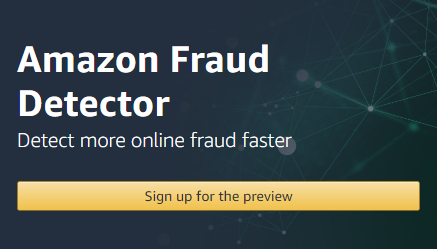 Over the past 4 years, I have been exclusively operating on AWS as my cloud computing platform. AWS offers so many products, what I have used is a small portion. However, what never has stopped impressing me is each of these products I use is constantly getting improved. AWS also has established a mature eco-system, new offerings are taking advantage of the platform as a whole to greatly reduce customer's learning curves.
Over the past 4 years, I have been exclusively operating on AWS as my cloud computing platform. AWS offers so many products, what I have used is a small portion. However, what never has stopped impressing me is each of these products I use is constantly getting improved. AWS also has established a mature eco-system, new offerings are taking advantage of the platform as a whole to greatly reduce customer's learning curves.
139. A Beginner's Guide to the Dark Web and Online Anonymity
 If you have always wondered what’s the deal with the dark web and how to access it, or you just want to learn how to browse the web without spreading your information around, you’re at the right place.
If you have always wondered what’s the deal with the dark web and how to access it, or you just want to learn how to browse the web without spreading your information around, you’re at the right place.
140. A Vision for a Better Future: The Personal Platform

141. Privacy in Blockchain: Building A Surveillance Free World
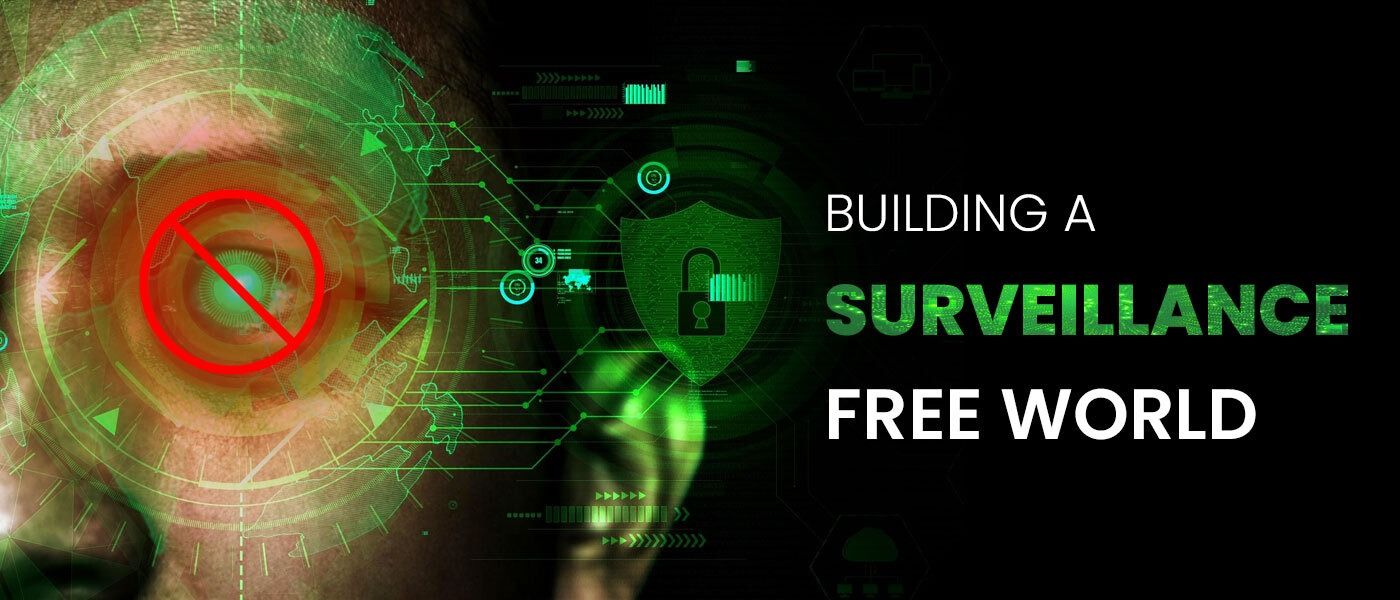 User privacy is of prime importance to Beldex. Beldex will secure user data, make your transactions anonymous, and pave the way for Web3.0 in its ecosystem
User privacy is of prime importance to Beldex. Beldex will secure user data, make your transactions anonymous, and pave the way for Web3.0 in its ecosystem
142. Handle Sensitive Data Securely with Skyflow
 You don’t need to be a data privacy expert in order to implement best practices.
You don’t need to be a data privacy expert in order to implement best practices.
143. How to Make Sock Puppet Accounts for OSINT in 2021
 Everyday it seems to get harder and harder to make sock puppet (i.e. ‘fake’) accounts for OSINT research. Personally, I blame Russian troll farms.
Everyday it seems to get harder and harder to make sock puppet (i.e. ‘fake’) accounts for OSINT research. Personally, I blame Russian troll farms.
144. Conquering Crypto Scams: How I Got My Stolen NFTs Back
 Beware of the infamous Airdrop Scams or anything requesting your Private Key. Learn how to avoid getting scammed from a real-life scenario.
Beware of the infamous Airdrop Scams or anything requesting your Private Key. Learn how to avoid getting scammed from a real-life scenario.
145. 3 Reasons to Use a Private Browser and Where to Find One
 Three reasons why you beed a private browser for safe and secure browsing, regardless of what you're doing online.
Three reasons why you beed a private browser for safe and secure browsing, regardless of what you're doing online.
146. How Smart are our Homes Getting?
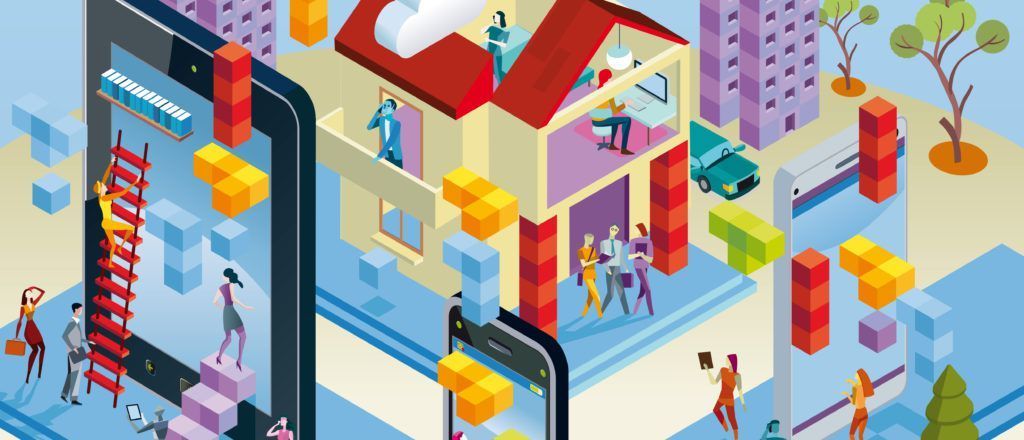 Smart spaces will become an essential part of our lives, he says. Smart homes are changing our lives in the same way as wearable devices.
Smart spaces will become an essential part of our lives, he says. Smart homes are changing our lives in the same way as wearable devices.
147. "Privacy Is The Fundamental Pillar of DeFi" - Justin Kellison
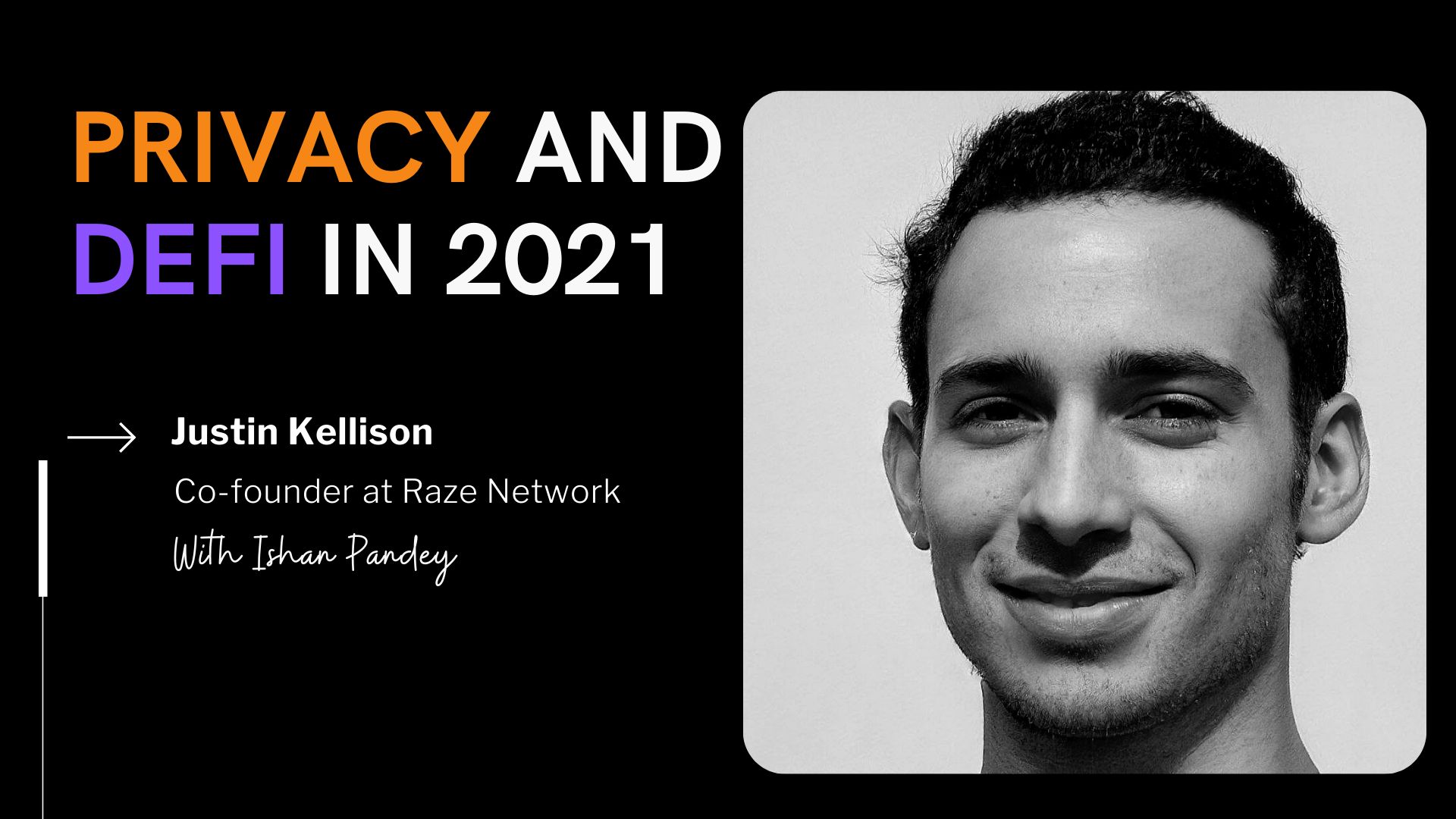 The article discusses the importance of privacy for DeFi protocols and how cross-chain privacy is critical for protecting the financial privacy of users.
The article discusses the importance of privacy for DeFi protocols and how cross-chain privacy is critical for protecting the financial privacy of users.
148. Verifiable Credentials: What They Are, Why They Matter

149. Companies Pay Big Money to Have the Location Data From Your Phone
 Companies that you likely have never heard of are hawking access to the location history on your mobile phone.
Companies that you likely have never heard of are hawking access to the location history on your mobile phone.
150. VPNs Do Not Slow You Down, They Make You Better
 VPNs started trending in this new wave of security breaches and fear for privacy.
VPNs started trending in this new wave of security breaches and fear for privacy.
151. Unlocking the Power of Artificial Intelligence in the Insurance Industry
 Today, artificial intelligence (AI) has barely begun to scratch the surface of the insurance sector. Here are a few of the most AI-friendly applications.
Today, artificial intelligence (AI) has barely begun to scratch the surface of the insurance sector. Here are a few of the most AI-friendly applications.
152. 4 Privacy Tips for Distance Learning Students
 If you’re like millions around the world getting ready to head back to school this fall, you’re figuring our first, if your campus will even be open, and second, how to adjust to the idea of distance learning.
If you’re like millions around the world getting ready to head back to school this fall, you’re figuring our first, if your campus will even be open, and second, how to adjust to the idea of distance learning.
153. Privacy Challenges And Improper Use of User Profile Data
 Improper use of user-profiles data by third parties is probably the most serious potential risk with regard to personal data contained
Improper use of user-profiles data by third parties is probably the most serious potential risk with regard to personal data contained
154. De-Google-ify Your Website [A How-To Guide]
 Did you know that 94% of sites include at least one third-party resource while the median page requests content from 9 different domains? These third-party resources represent 35% of the total network activity and 7 of the 10 most used resources are owned by Google.
Did you know that 94% of sites include at least one third-party resource while the median page requests content from 9 different domains? These third-party resources represent 35% of the total network activity and 7 of the 10 most used resources are owned by Google.
155. Setting Up a Tor Hidden Service [A How-To Guide]
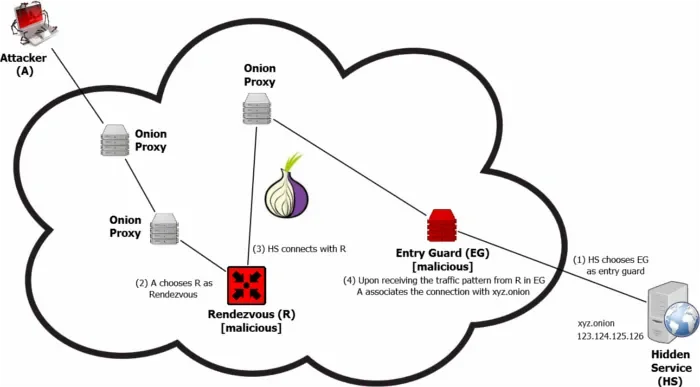 I'm gonna out on a limb here and assume that you know the basics of how a web server works when you clicked on the title of this post. Basic knowledge of vim would be helpful too.
I'm gonna out on a limb here and assume that you know the basics of how a web server works when you clicked on the title of this post. Basic knowledge of vim would be helpful too.
156. There is No More Encryption Debate: Backdoors Threaten the Whole World
 The encryption debate ends now. As a society we simply can’t allow backdoors in encryption. Anyone who tells you otherwise has absolutely no idea how computers work.
The encryption debate ends now. As a society we simply can’t allow backdoors in encryption. Anyone who tells you otherwise has absolutely no idea how computers work.
157. 4 Entry Points for Cyberattacks While Working from Home
 Family relationships, friendships, acquaintanceship, and romantic relationships are the different types of relationships that you may be involved in. Any or all of them can greatly impact your productivity and also constitute cyber threats while working from home.
Family relationships, friendships, acquaintanceship, and romantic relationships are the different types of relationships that you may be involved in. Any or all of them can greatly impact your productivity and also constitute cyber threats while working from home.
158. How To Create a Complex Password

For almost all the accounts that you create on the Internet, you need to come up with a secure, that is, a complex password. Choosing the most secure password requires the use of unlikely combinations of letters and numbers. Fortunately, creating a complex and at the same time easy to remember password is a task that you can handle. To learn how to create a password correctly, use our tips.
159. Your Facebook Privacy Guide for 2022
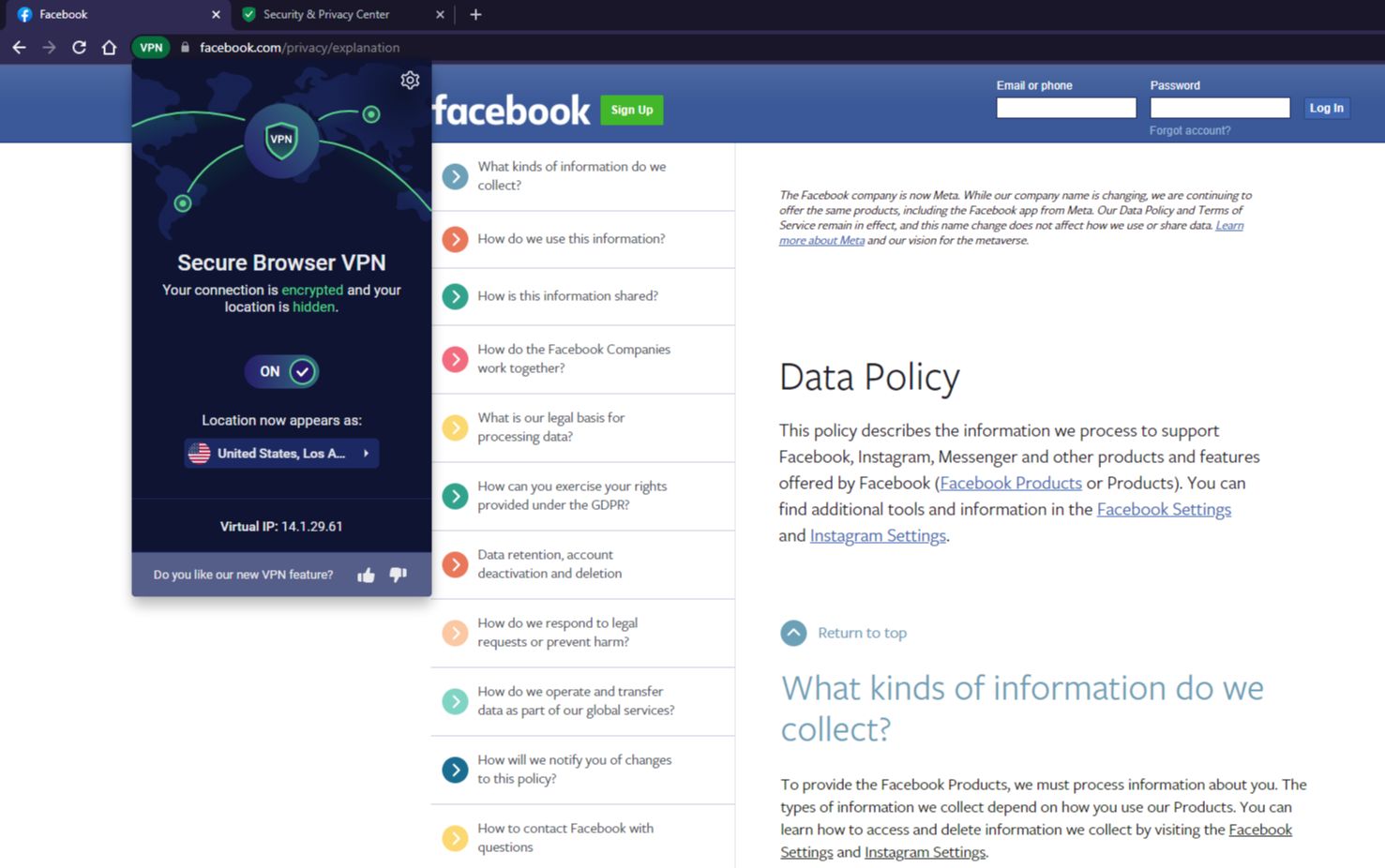 Checking every single privacy option on Facebook takes time — but it’s time well-spent if you care about controlling your privacy online.
Checking every single privacy option on Facebook takes time — but it’s time well-spent if you care about controlling your privacy online.
160. Find out Which Startup is Winning in Your City
 Vision, strength, determination, resilience… these are all key building blocks to moving the world forward.
Vision, strength, determination, resilience… these are all key building blocks to moving the world forward.
161. Are Privacy Coins the Future?
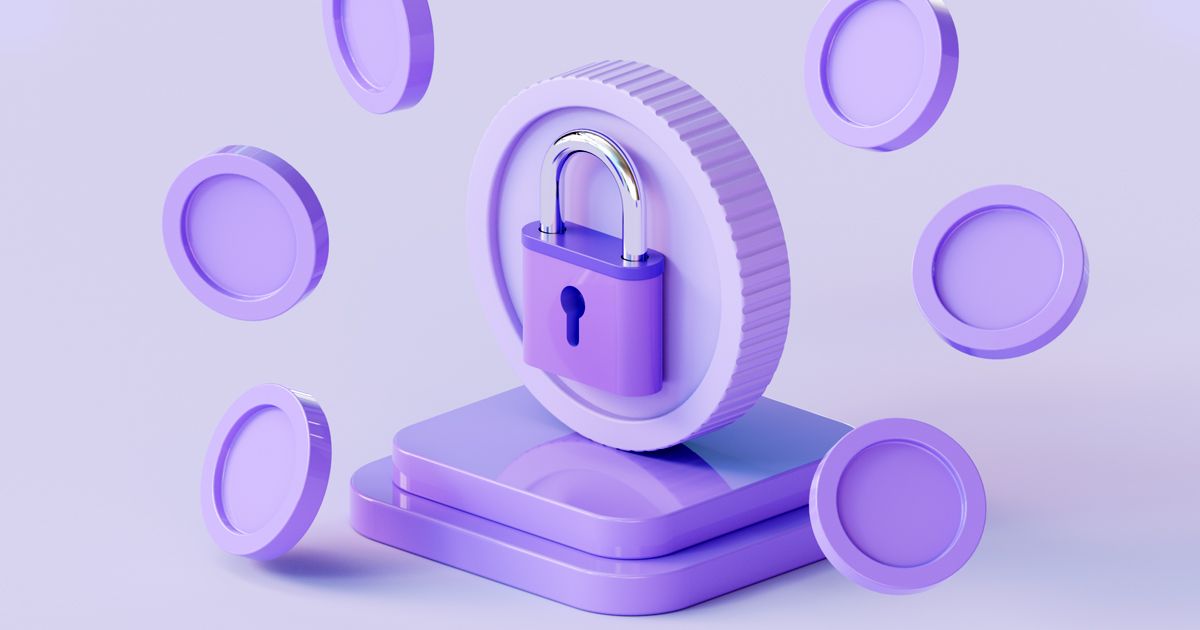 Privacy coins are known for having a tumultuous past. With the new regulator’s moves against privacy, will the privacy coins be able to survive?
Privacy coins are known for having a tumultuous past. With the new regulator’s moves against privacy, will the privacy coins be able to survive?
162. Reverse Social Engineering: A Call to Quit Sharing More Than Necessary
 Social engineering is the use of a person's sensitive information to launch a targeted cyber-attack on them. Reverse social engineering mitigates the rate...
Social engineering is the use of a person's sensitive information to launch a targeted cyber-attack on them. Reverse social engineering mitigates the rate...
163. 4 Privacy Focused Raspberry Pi Projects
 4 do it yourself projects with a Raspberry Pi for the privacy minded user
4 do it yourself projects with a Raspberry Pi for the privacy minded user
164. Secure Rendering: A New Browser Standard for User Privacy
 I've been having conversations with some browser vendors about improving security for both users and enterprises. This article is an attempt to quickly summarize the why and what and aid in the guide of developing such a standard.
I've been having conversations with some browser vendors about improving security for both users and enterprises. This article is an attempt to quickly summarize the why and what and aid in the guide of developing such a standard.
165. Privacy is The American Dream
 150 million Americans made their voice heard on November 4th in a stunningly close and contentious election. But the election is only the roiling surface of the vast depths of the fight for the American Dream, that “life should be better and richer and fuller for everyone, with opportunity for each according to ability or achievement" regardless of circumstances of birth.
150 million Americans made their voice heard on November 4th in a stunningly close and contentious election. But the election is only the roiling surface of the vast depths of the fight for the American Dream, that “life should be better and richer and fuller for everyone, with opportunity for each according to ability or achievement" regardless of circumstances of birth.
166. The Markup Needs Your Help Investigating the Ed Tech Industry
 The Markup needs your help investigating educational technology companies.
The Markup needs your help investigating educational technology companies.
167. zKPs OR Zero-Knowledge Proofs: The Tiny Privacy Algorithm Behind Super Lightweight Blockchains
 Distributed public networks face a trilemma: digital transactions must provide privacy while meeting compliance requirements in a trustless environment.
Distributed public networks face a trilemma: digital transactions must provide privacy while meeting compliance requirements in a trustless environment.
168. Machine Learning in Cybersecurity: 5 Real-Life Examples
 From real-time cybercrime mapping to penetration testing, machine learning has become a crucial part of cybersecurity. Here's how.
From real-time cybercrime mapping to penetration testing, machine learning has become a crucial part of cybersecurity. Here's how.
169. Top 5 Internet Browsers for Privacy and Security in 2021
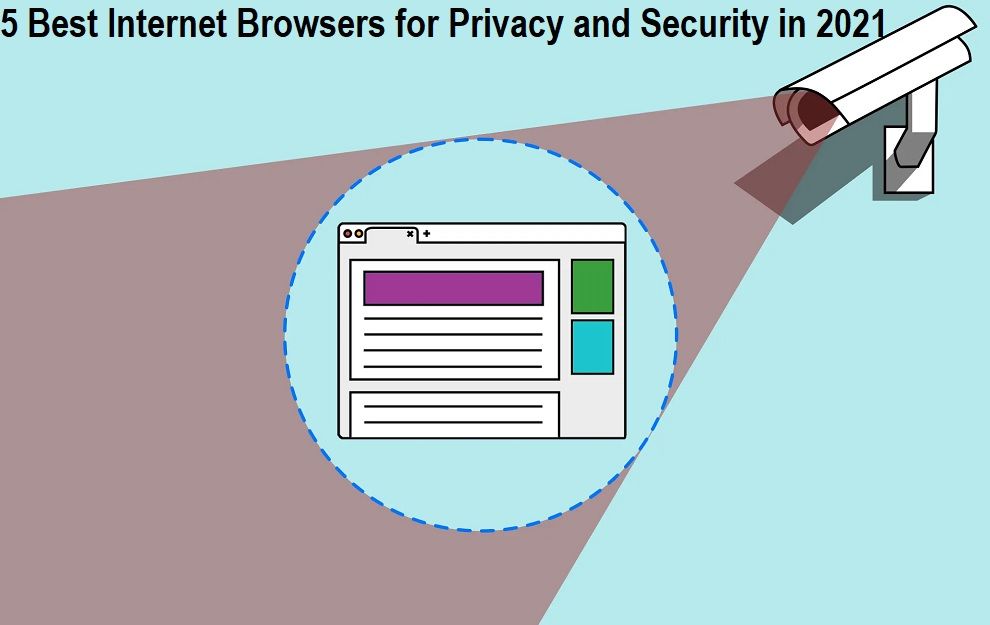 Here are some popular and exciting browsers that provide a high level of services for such users including Chrome, Tor, GoLogin, and more.
Here are some popular and exciting browsers that provide a high level of services for such users including Chrome, Tor, GoLogin, and more.
170. Simple Steps to Follow in Order to Ensure Greater Personal Internet Privacy
 An easy guide to getting started with online privacy.
An easy guide to getting started with online privacy.
171. WTF is Shamir's Secret Sharing Scheme And How Does It Preserve Your Privacy?
 An introduction to this privacy-preserving cryptographic technique and how Keyless is using it to transform the way we share and store private data across the internet.
An introduction to this privacy-preserving cryptographic technique and how Keyless is using it to transform the way we share and store private data across the internet.
172. Playing Hide and Seek with Big Brother
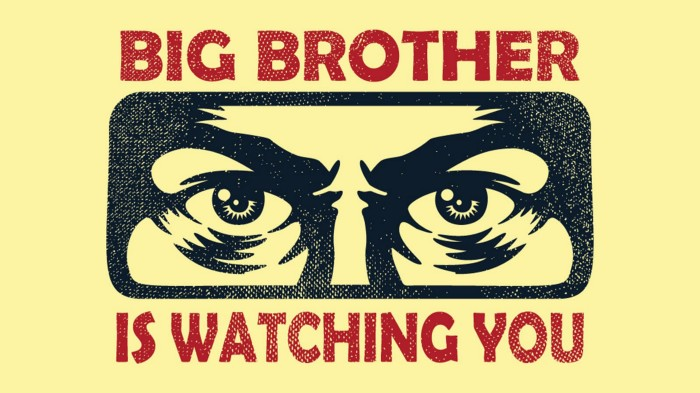 We live in the age of constant surveillance, unlike the one described by George Orwell in his seminal book 1984, but the one which might have bought willingly. We regularly surrender information in exchange for free services and convenience. Often, we skim over the fine print of user agreements, and the act of disseminating private information becomes a voluntary task that absolves the media giants from any legal burden [3]. Ian Bogost of The Atlantic calls this “the age of privacy nihilism” and says that the changes in escaping surveillance capitalism are bleak [4].
We live in the age of constant surveillance, unlike the one described by George Orwell in his seminal book 1984, but the one which might have bought willingly. We regularly surrender information in exchange for free services and convenience. Often, we skim over the fine print of user agreements, and the act of disseminating private information becomes a voluntary task that absolves the media giants from any legal burden [3]. Ian Bogost of The Atlantic calls this “the age of privacy nihilism” and says that the changes in escaping surveillance capitalism are bleak [4].
173. Common Misconceptions About Why VPNs Are Used
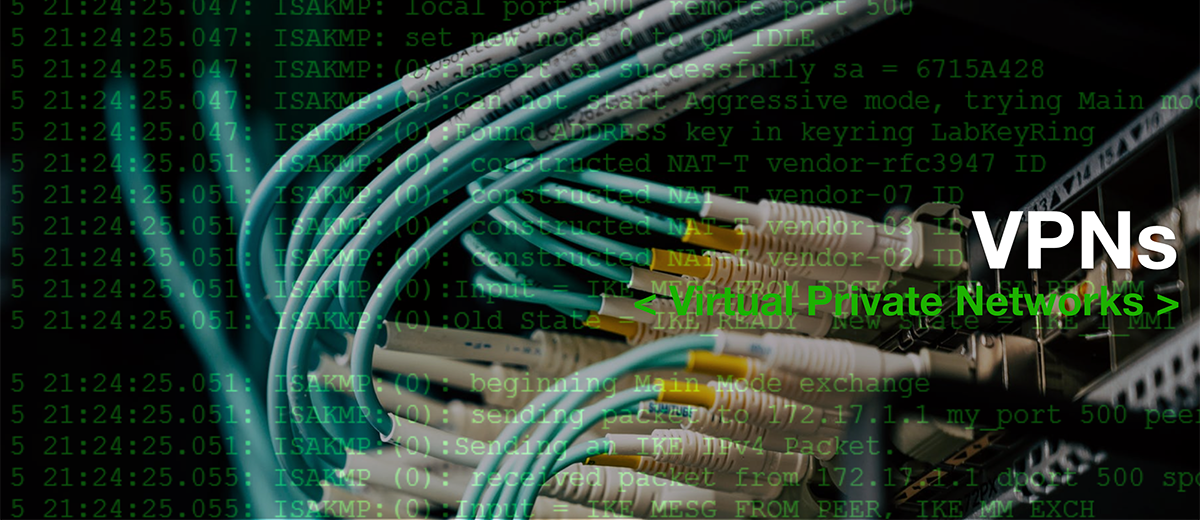 There are some misconceptions about why VPNs are used such as the extent of the privacy that they offer and how well such systems can keep users anonymous.
There are some misconceptions about why VPNs are used such as the extent of the privacy that they offer and how well such systems can keep users anonymous.
174. Video Chatting Might Lead You to Identity Theft and Scams
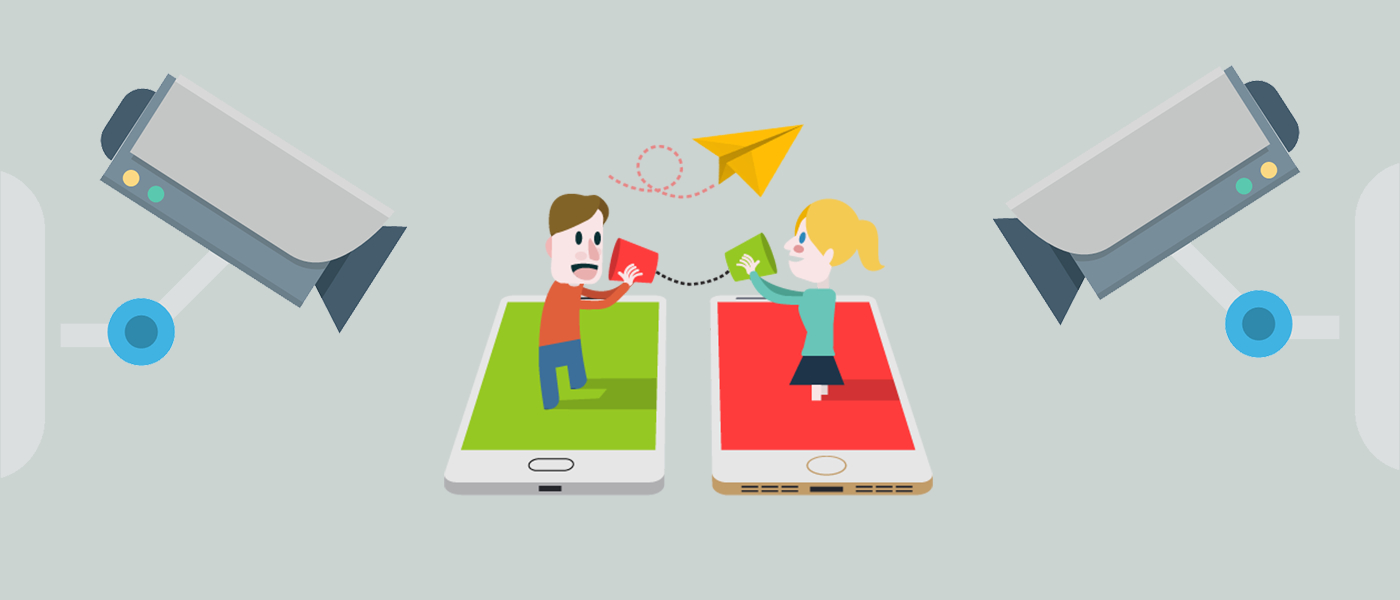 One might think that the internet was designed for the consumer to remain anonymous and share their ideas without any censorship. But it isn’t the case anymore, especially since the abrupt commercialization of the technology and the rise of social media, which has paved the way for big corporations and regimes to take note of user data and activity, like never before.
One might think that the internet was designed for the consumer to remain anonymous and share their ideas without any censorship. But it isn’t the case anymore, especially since the abrupt commercialization of the technology and the rise of social media, which has paved the way for big corporations and regimes to take note of user data and activity, like never before.
175. WTF is a Bitcoin Mixing Service and Why Do You Need One?
 Cryptocurrency has two opposing features to provide its worth and inability to falsify. Anonymity of Bitcoin has pulled masses of people to cryptocurrency blockchain. They have felt more freely with their finance.
Cryptocurrency has two opposing features to provide its worth and inability to falsify. Anonymity of Bitcoin has pulled masses of people to cryptocurrency blockchain. They have felt more freely with their finance.
176. Digital Consumers: It's Time to Grow Up
 The recent release of Netflix's film “The Social Dilemma” has boosted existing questions and fears looming among consumers regarding their privacy on social media platforms. Putting aside the behavioral effects of social media, one must wonder why the modern consumer has become so critical and scared of the data-gathering and targeted ads behind social media when they have made our lives so much better.
The recent release of Netflix's film “The Social Dilemma” has boosted existing questions and fears looming among consumers regarding their privacy on social media platforms. Putting aside the behavioral effects of social media, one must wonder why the modern consumer has become so critical and scared of the data-gathering and targeted ads behind social media when they have made our lives so much better.
177. Let's Kill Cookies: My POC for a Less Creepy Way To Track Engagement
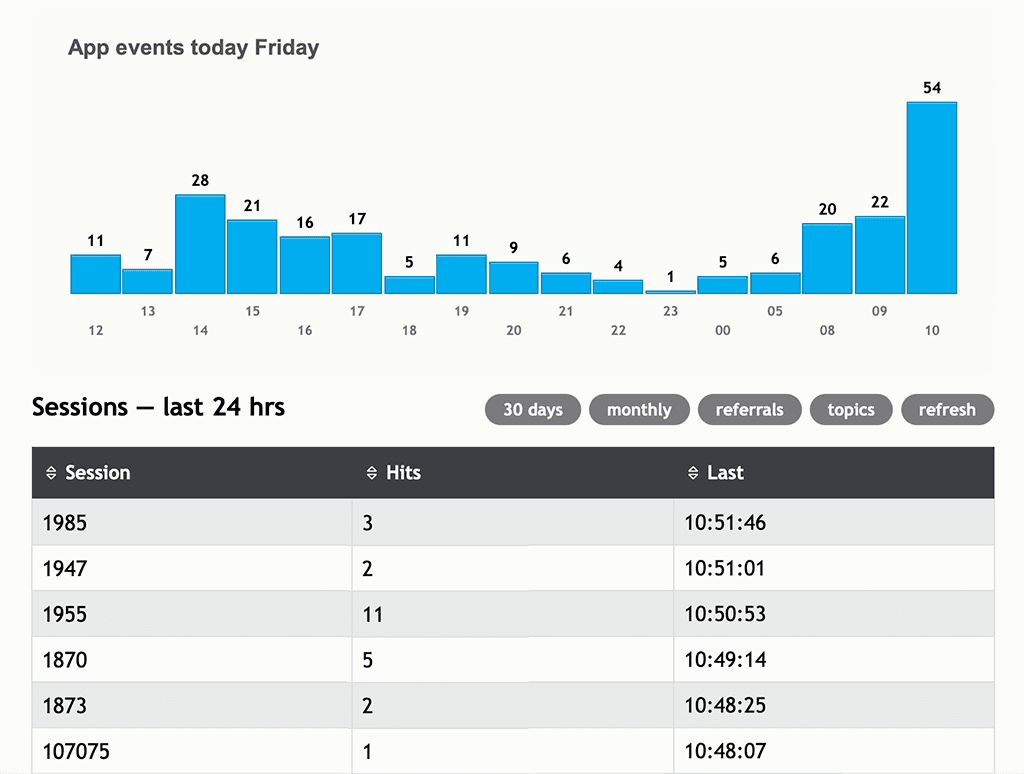 Struggling with having to fulfil GPDR requirements? Here's an alternative to cookies for measuring user engagement (POC).
Struggling with having to fulfil GPDR requirements? Here's an alternative to cookies for measuring user engagement (POC).
178. StackOS: Decentralized Cloud Infrastructure
 The CEO of Koinos Group interviews the Chief Architect of StackOS; decentralized cloud infrastructure
The CEO of Koinos Group interviews the Chief Architect of StackOS; decentralized cloud infrastructure
179. Facebook vs. Decentralized Projects: Who Will Win the 'Metaverse War'?
 Facebook's Upcoming Metaverse: the Caveats of Centralization and Why Decentralized Projects Will Dominate the Market in the Long Run
Facebook's Upcoming Metaverse: the Caveats of Centralization and Why Decentralized Projects Will Dominate the Market in the Long Run
180. What Is a VPN and What Are Its Alternatives?
 Are VPNs really essential for an average user in 2021? Read on to find out about common issues with VPNs, as well as possible alternatives to them.
Are VPNs really essential for an average user in 2021? Read on to find out about common issues with VPNs, as well as possible alternatives to them.
181. How Verifiable Creds, Decentralized Identifiers and Blockchain Work Together for a Safer Internet
 The future of the internet will come with more risks to our data privacy. Fortunately, Blockchain and Decentralized Identifiers can work together to protect.
The future of the internet will come with more risks to our data privacy. Fortunately, Blockchain and Decentralized Identifiers can work together to protect.
182. How Bitcoin Mixers Help The Privacy-Conscious Hide Their Transactions
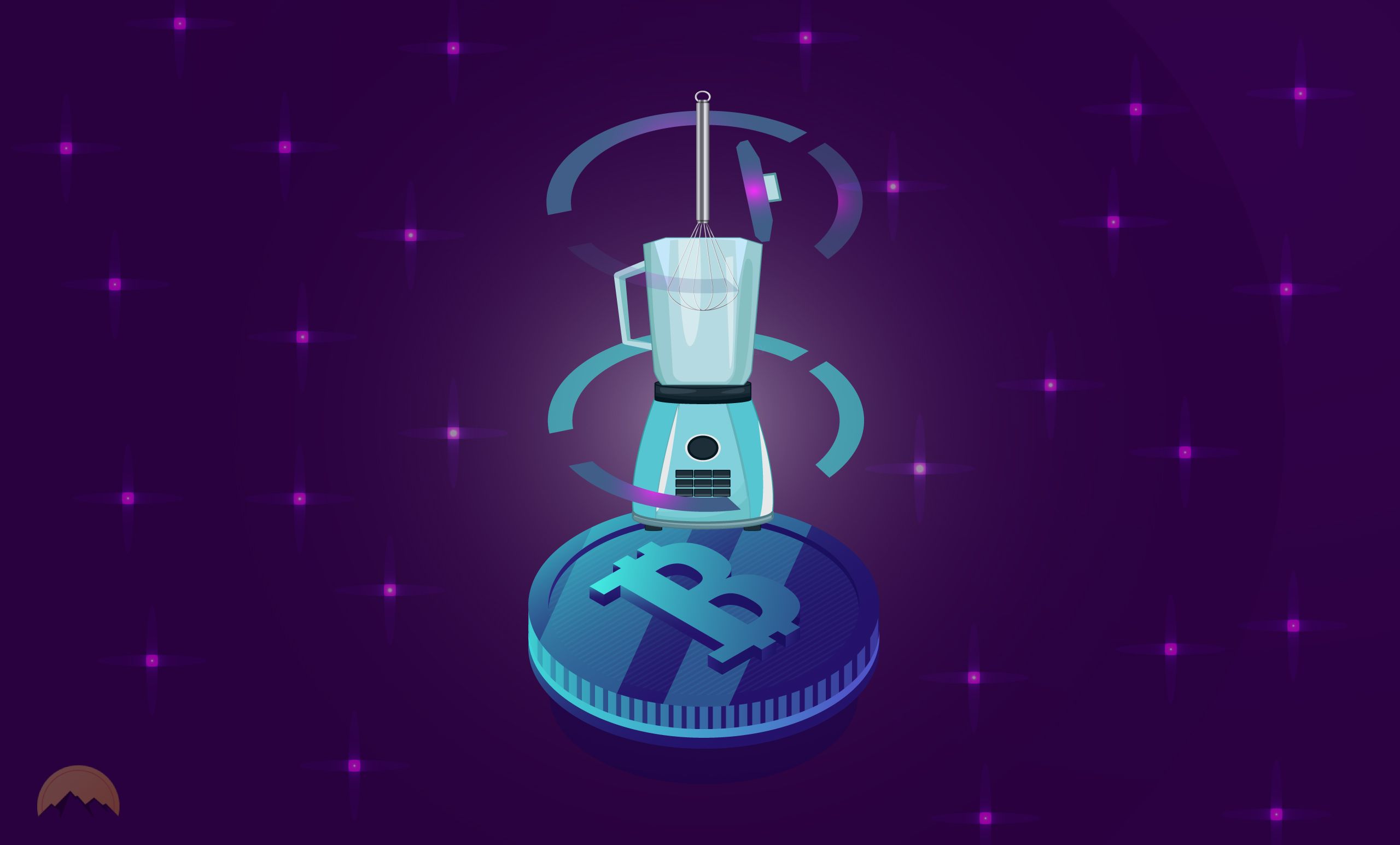 There's no doubt that the cryptocurrency network is considered to be one of the most secure systems because of its blockchain technology and peer-to-peer network. But does this mean that your transactions are hidden from prying eyes?
There's no doubt that the cryptocurrency network is considered to be one of the most secure systems because of its blockchain technology and peer-to-peer network. But does this mean that your transactions are hidden from prying eyes?
183. The Importance of HIPAA Compliance to Protect Sensitive Data
 HIPAA Compliance mainly aims to prevent any kind of misuse or illegal disclosure of protected health information (PHI).
HIPAA Compliance mainly aims to prevent any kind of misuse or illegal disclosure of protected health information (PHI).
184. Why Private Search Engines Are The Future...
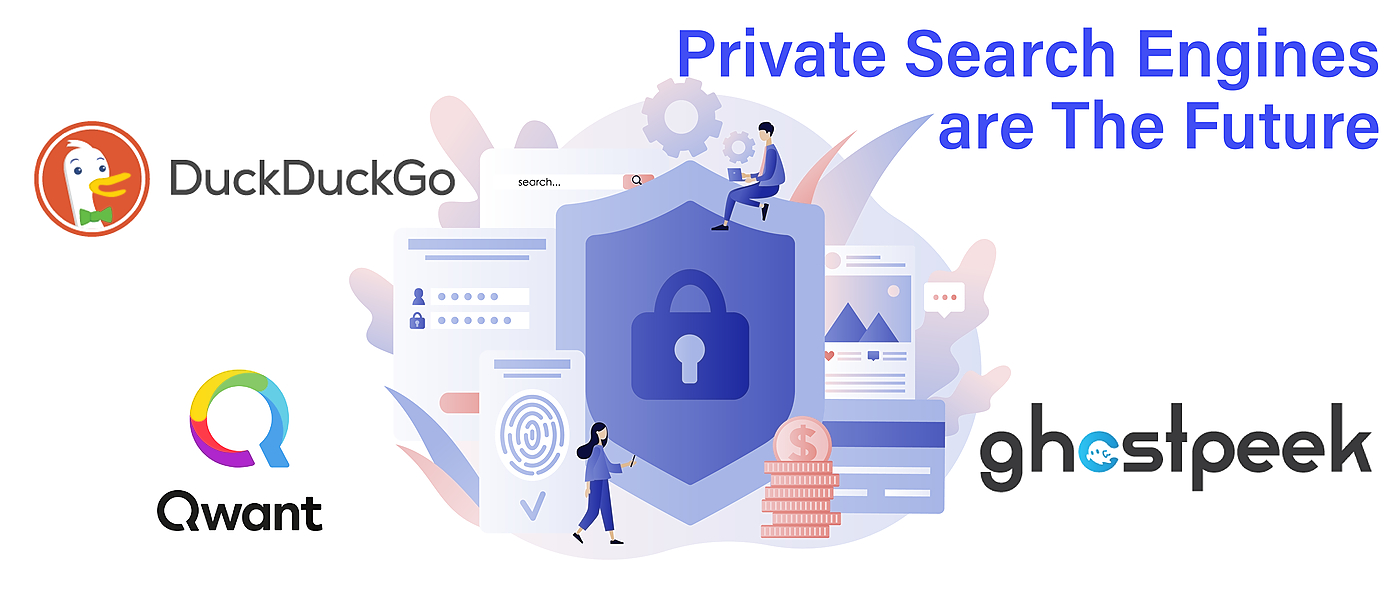 Private search engines aren't just for people wearing tinfoil hats anymore. Over the years these search engines have improved their search results and added new features to make the experience better for their users.
Private search engines aren't just for people wearing tinfoil hats anymore. Over the years these search engines have improved their search results and added new features to make the experience better for their users.
185. Top 10 Best Private Encrypted Messengers Designed For Security Nuts
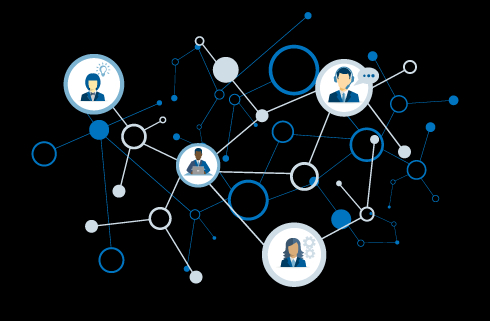 Being concerned with the security of online communication and information exchange is absolutely OK. It is a reflection of the fact that you
are aware of global surveillance happening every second of our presence online. Our online activities are monitored, intercepted, collected, and stored. And now imagine that what you know is only the small fraction of what is really happening with our information.
Being concerned with the security of online communication and information exchange is absolutely OK. It is a reflection of the fact that you
are aware of global surveillance happening every second of our presence online. Our online activities are monitored, intercepted, collected, and stored. And now imagine that what you know is only the small fraction of what is really happening with our information.
186. Basic of Cryptography
 What is Cryptography?
What is Cryptography?
187. Can Privacy Wallets Really Keep Your Cryptocurrency Safe in 2020?
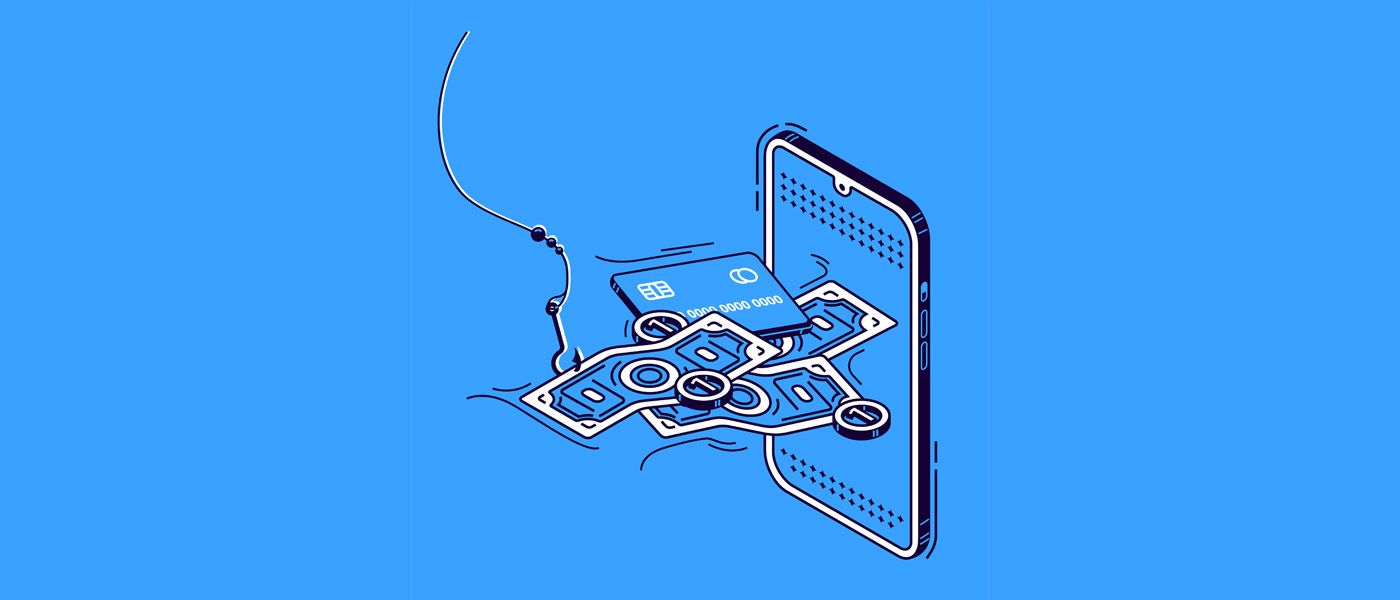 You can’t possibly use the Internet without using Incognito mode every now and again. You’re not using it to get better content; the web pages you’re accessing are still the same, regardless of how you’re reaching them. You’re mainly doing it because you don’t want certain searches to remain in your browser history. More importantly, you’re doing it because you value your privacy.
You can’t possibly use the Internet without using Incognito mode every now and again. You’re not using it to get better content; the web pages you’re accessing are still the same, regardless of how you’re reaching them. You’re mainly doing it because you don’t want certain searches to remain in your browser history. More importantly, you’re doing it because you value your privacy.
188. 6 Years Later, My Google Spreadsheet Is Now an App Called Taonga
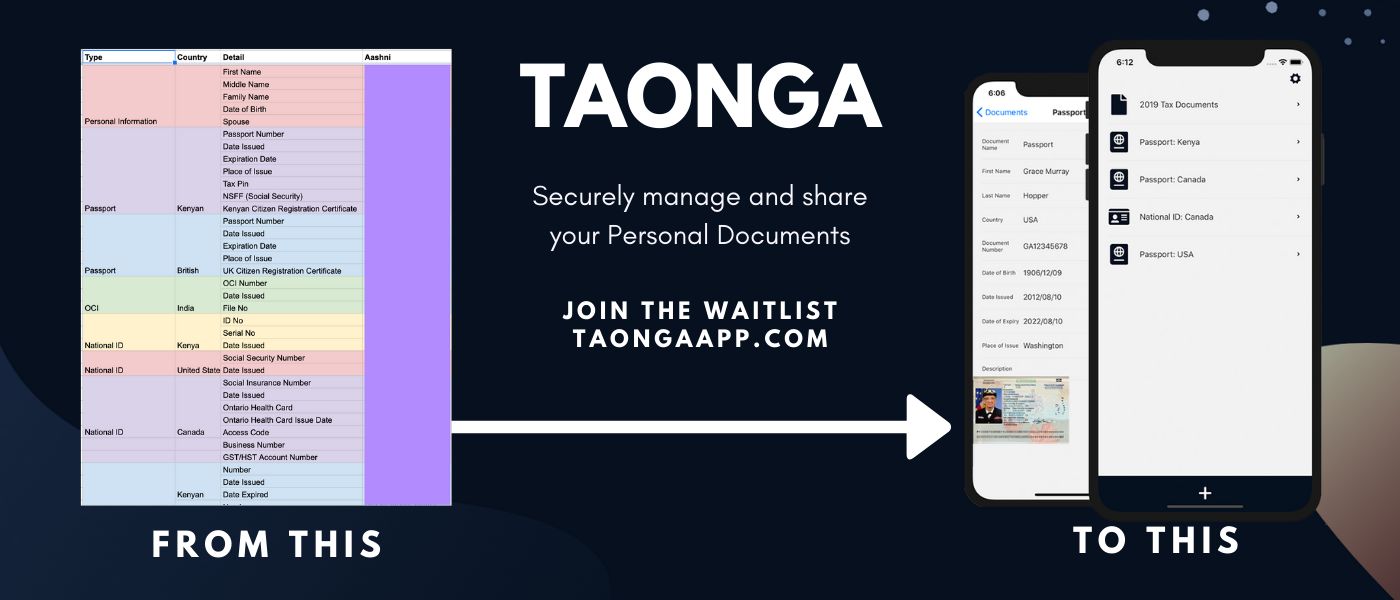 With Taonga, I'm working to build the easiest way to securely manage and share your personal documents, like your passport. It’s built using privacy-by-design and consent-by-design concepts, making sure the user has full control over their personal documents. The idea for Taonga stemmed from an ad-hoc Google Spreadsheet I created 6 years ago, and I’d love to share that story with you here.
With Taonga, I'm working to build the easiest way to securely manage and share your personal documents, like your passport. It’s built using privacy-by-design and consent-by-design concepts, making sure the user has full control over their personal documents. The idea for Taonga stemmed from an ad-hoc Google Spreadsheet I created 6 years ago, and I’d love to share that story with you here.
189. Bye-bye Google Fonts: German Court Rules That Google Fonts Is Not in Compliance with GDPR
 Google Fonts is a data privacy concern. Learn why you should care.
Google Fonts is a data privacy concern. Learn why you should care.
190. How to Secure Your SaaS Application
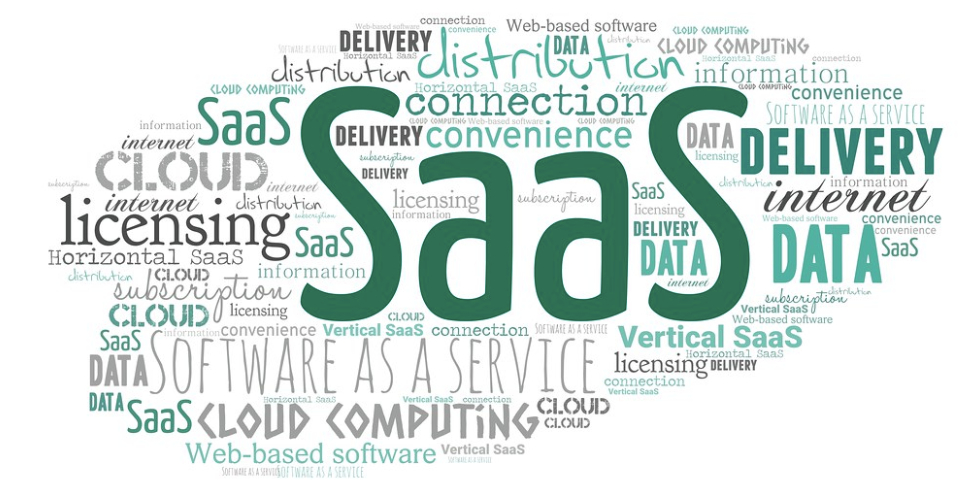 The Software as a Service (SaaS) model has been gaining in popularity in the business world in recent years as an alternative to on-premises software deployment. Also known as on-demand, hosted or web-based software, the model entails the delivery of cloud-based applications via the internet. The service provider is responsible for the service’s security, availability and performance so SaaS is a natural choice for businesses (especially small ones) that want to save on IT infrastructure installation and maintenance, as well as on software license purchases.
The Software as a Service (SaaS) model has been gaining in popularity in the business world in recent years as an alternative to on-premises software deployment. Also known as on-demand, hosted or web-based software, the model entails the delivery of cloud-based applications via the internet. The service provider is responsible for the service’s security, availability and performance so SaaS is a natural choice for businesses (especially small ones) that want to save on IT infrastructure installation and maintenance, as well as on software license purchases.
191. How Apps Can Steal Your Privacy
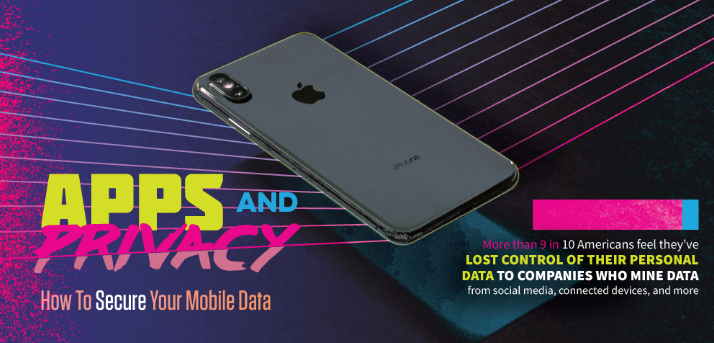 Each day, the world makes 250 million terabytes of new data – every second 946 Instagram photos are taken, 8,690 tweets are posted, 77,783 things are searched on Google, and 2,845,459 emails are sent and received all over the world. With all of this new data, keeping your data private and away from prying eyes that will exploit any information about you is becoming more difficult by the day. Most people have no idea who owns their data, let alone what they are doing with it.
Each day, the world makes 250 million terabytes of new data – every second 946 Instagram photos are taken, 8,690 tweets are posted, 77,783 things are searched on Google, and 2,845,459 emails are sent and received all over the world. With all of this new data, keeping your data private and away from prying eyes that will exploit any information about you is becoming more difficult by the day. Most people have no idea who owns their data, let alone what they are doing with it.
192. Expert: Facebook, IG App Can Steal Secrets, and Users Can't Turn It Off!
 Felix Krause, a former Google engineer who studies privacy, said in a blog post on the 10th that Facebook and Instagram apps track users' browsing behaviors.
Felix Krause, a former Google engineer who studies privacy, said in a blog post on the 10th that Facebook and Instagram apps track users' browsing behaviors.
193. Privacy in Crypto is Under Siege, We Need More Solutions to Protect Us
 Despite the crypto market is quite small, cryptocurrency assets are closely being watched by governments across the globe. The issue is that central banks view virtual assets like Bitcoin and the rest as a threat to their dominance over global finance.
Despite the crypto market is quite small, cryptocurrency assets are closely being watched by governments across the globe. The issue is that central banks view virtual assets like Bitcoin and the rest as a threat to their dominance over global finance.
194. Staking on ‘Finney’ Testnet to Counter Sybil Attacks is now LIVE!!
 The Finney testnet was launched to avoid future Sybil attacks.
The Finney testnet was launched to avoid future Sybil attacks.
195. How AWS Misconception Resulted in Detection of 5 Million Personal Records
 A misconception of users had led to over five million records containing personal identifying information to be left on an AWS service, a serious leak.
A misconception of users had led to over five million records containing personal identifying information to be left on an AWS service, a serious leak.
196. Decentralized Cloud Storage is changing the face of the internet (2/2)
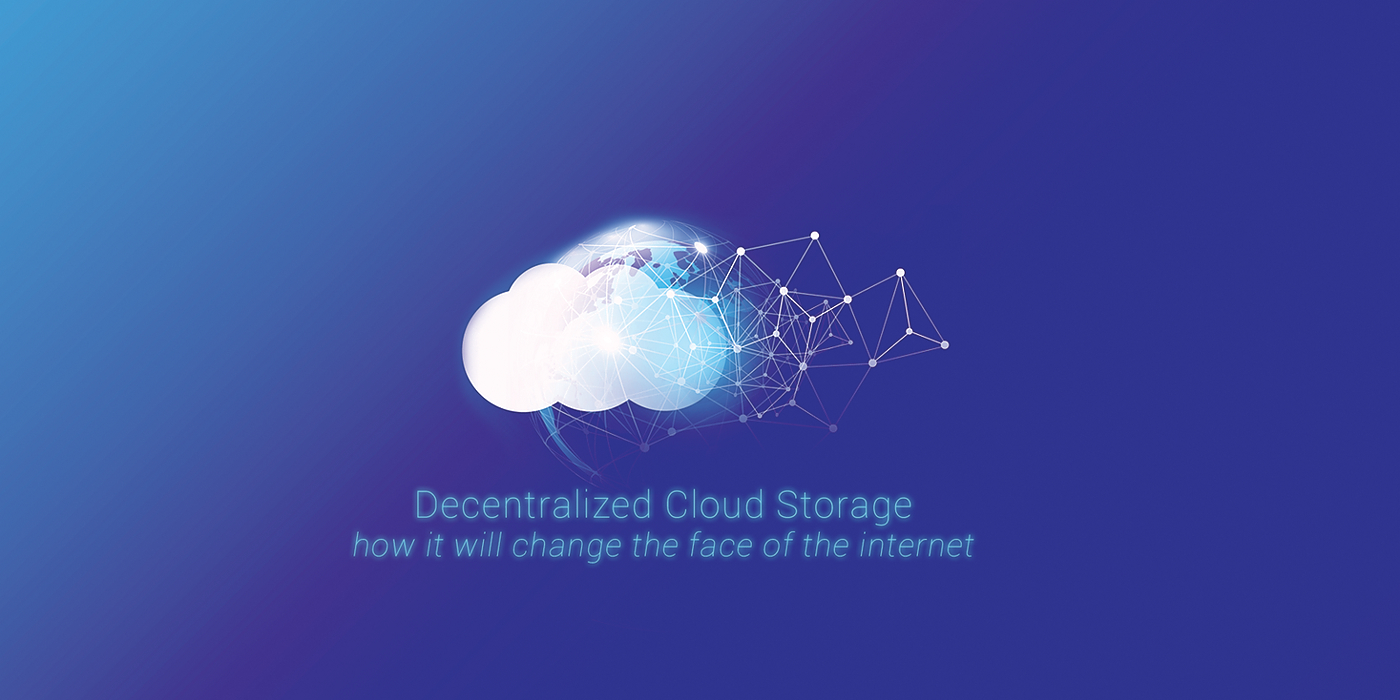 (Read Part 1 here)
(Read Part 1 here)
197. Down with the Registration!
 Sef-sovereign Identities can help minimize the consequences of data leaks by keeping personal data personal.
Sef-sovereign Identities can help minimize the consequences of data leaks by keeping personal data personal.
198. GDPR vs CCPA: Data Privacy On The Lead [Infographic]
 A quick look at the two approaches to privacy
A quick look at the two approaches to privacy
199. Create Realistic and Secure Test Data with our Synthetic Data Platform
 Learn how to fully automate your test data creation efforts. Let our AI model privacy-protect your production data and figure out its business rules.
Learn how to fully automate your test data creation efforts. Let our AI model privacy-protect your production data and figure out its business rules.
200. Facebook: The Magic 8 Ball
 It is easier for a camel to pass through the eye of a needle than for a homo sapien to quit this junk.
It is easier for a camel to pass through the eye of a needle than for a homo sapien to quit this junk.
201. Sorry, Folks. Blockchain ≠ Automatic Privacy
 Not all blockchain ecosystems are truly private -- we spoke to privacy blockchain Panther Protocol to learn more.
Not all blockchain ecosystems are truly private -- we spoke to privacy blockchain Panther Protocol to learn more.
202. How Facebook Stablecoin Libra Could Replace all Current Stablecoins
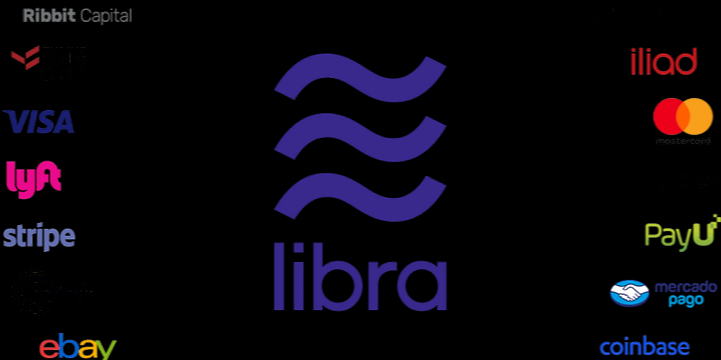 Facebook recently announced their new Libra cryptocurrency, a stablecoin set to launch in 2020 which will initially let users transfer money between Facebook’s Messenger and WhatsApp applications. However, the larger goal of Libra is to transform the global economy. In conjunction with other companies and partners that make up the Libra Association, including payments companies, technology companies, marketplaces, and venture capitalist firms, Libra has the potential to do just that. Having been involved in the cryptocurrency industry for the last couple of years there is definitely a reason to doubt how decentralized Libra truly is and if it can even be considered a cryptocurrency. However, one thing is certain, given the proposed makeup of Libra it could ultimately replace all current stablecoins, and quickly.
Facebook recently announced their new Libra cryptocurrency, a stablecoin set to launch in 2020 which will initially let users transfer money between Facebook’s Messenger and WhatsApp applications. However, the larger goal of Libra is to transform the global economy. In conjunction with other companies and partners that make up the Libra Association, including payments companies, technology companies, marketplaces, and venture capitalist firms, Libra has the potential to do just that. Having been involved in the cryptocurrency industry for the last couple of years there is definitely a reason to doubt how decentralized Libra truly is and if it can even be considered a cryptocurrency. However, one thing is certain, given the proposed makeup of Libra it could ultimately replace all current stablecoins, and quickly.
203. Privacy Protection In The Context of Cybersecurity

204. Who Will Guard The Guards?
 In this hyperconnected world we generate data everyday, and anyone who has access to it can be a threat to our privacy and security. Even the government.
In this hyperconnected world we generate data everyday, and anyone who has access to it can be a threat to our privacy and security. Even the government.
205. Decentralized VPN: The Evolution of Tor?
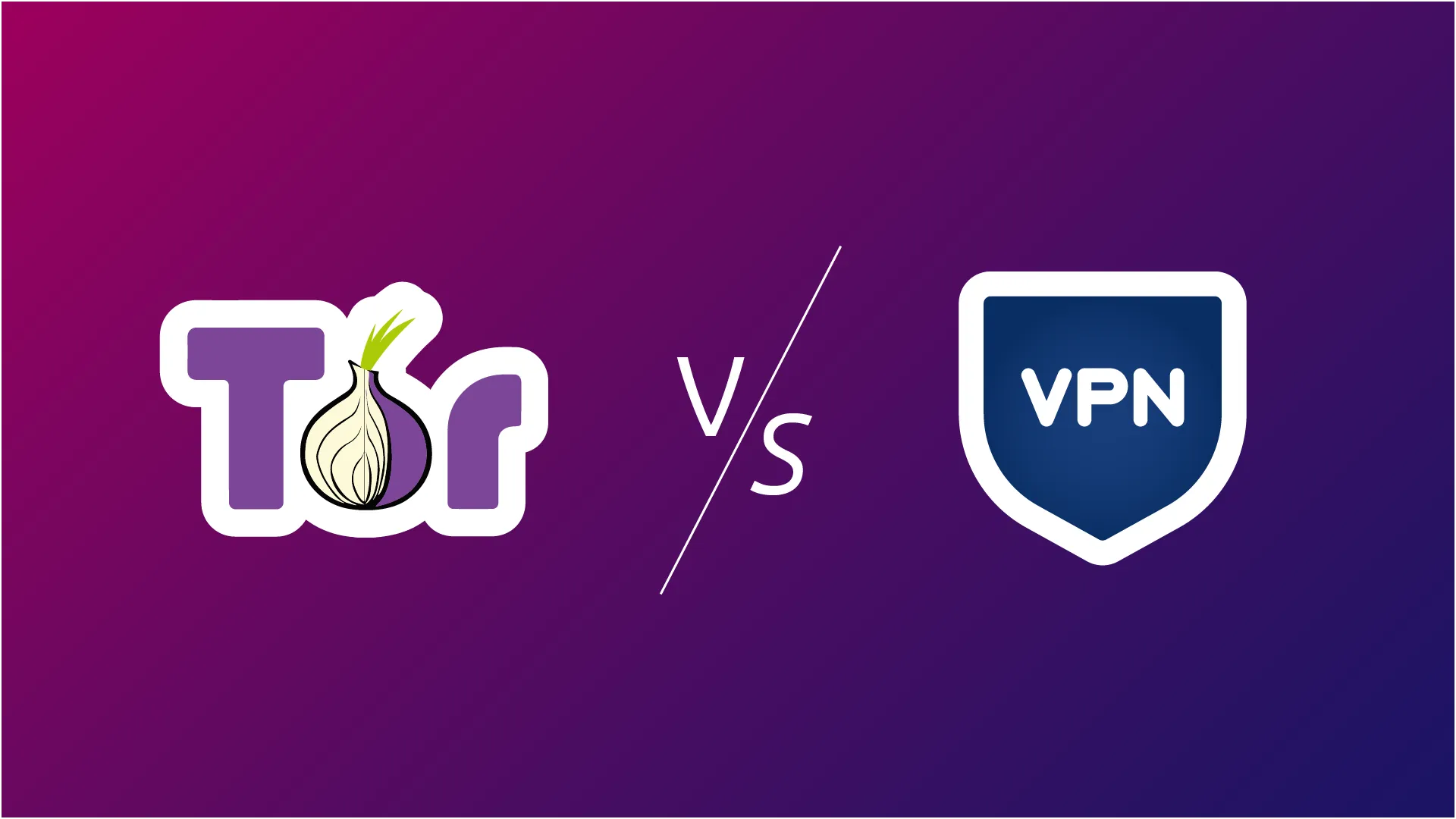 VPN vs Tor vs dVPN - What are the real differences?
VPN vs Tor vs dVPN - What are the real differences?
206. Did the Men in Suits Ruin Cryptocurrency For The Rest Of Us?
 The bitcoin and cryptocurrency space was once quite chaotic; in many ways, it still is. That’s not to say a little chaos is a bad thing. Often it’s the spark that results in impressive innovations. Many of the great ideas that have flooded out into the world and changed our perceptions result from great minds combined with chaotic ideas.
The bitcoin and cryptocurrency space was once quite chaotic; in many ways, it still is. That’s not to say a little chaos is a bad thing. Often it’s the spark that results in impressive innovations. Many of the great ideas that have flooded out into the world and changed our perceptions result from great minds combined with chaotic ideas.
207. These are the Top 5 Browsers for Privacy and Security
 Anonymity on the internet has been in a steady state of decline. In the interest of reversing that trend, this is a list of the top five browsers for privacy and security. While it should be noted that nothing published on the internet is perfectly private or secure, these are the browsers that will do the most to get you close.
Anonymity on the internet has been in a steady state of decline. In the interest of reversing that trend, this is a list of the top five browsers for privacy and security. While it should be noted that nothing published on the internet is perfectly private or secure, these are the browsers that will do the most to get you close.
208. A Sweater of Safety Wrapped Around My Internet Connection
 The story of how HQ VPN came to exist – privacy, security, and peace of mind
The story of how HQ VPN came to exist – privacy, security, and peace of mind
209. iOS 14 Privacy Features: It's Time to Rethink Advertising & Marketing Strategies
 Two of the world’s most powerful tech titans are on course for a collision.
Two of the world’s most powerful tech titans are on course for a collision.
210. 10 Factors to Prepare for CCPA (California Consumer Privacy Act)
 Be ready for CCPA with these top 10 critical factors
Be ready for CCPA with these top 10 critical factors
211. Imagine Yourself Being A Hacker [Beginner's Guide]

212. Your Website Knows Where Your Users Are—But Is It Keeping That Data Secret?

213. Privacy Scales Better: Understanding Zcash, Zero Knowledge Proofs (zKP) & Electric Coin Company
 innovations at the ECC show not only that Privacy and Scalability are correlated but also that Governance and Development is more fruitful when rewarded.
innovations at the ECC show not only that Privacy and Scalability are correlated but also that Governance and Development is more fruitful when rewarded.
214. Digging Into Amazon's Privacy Policy
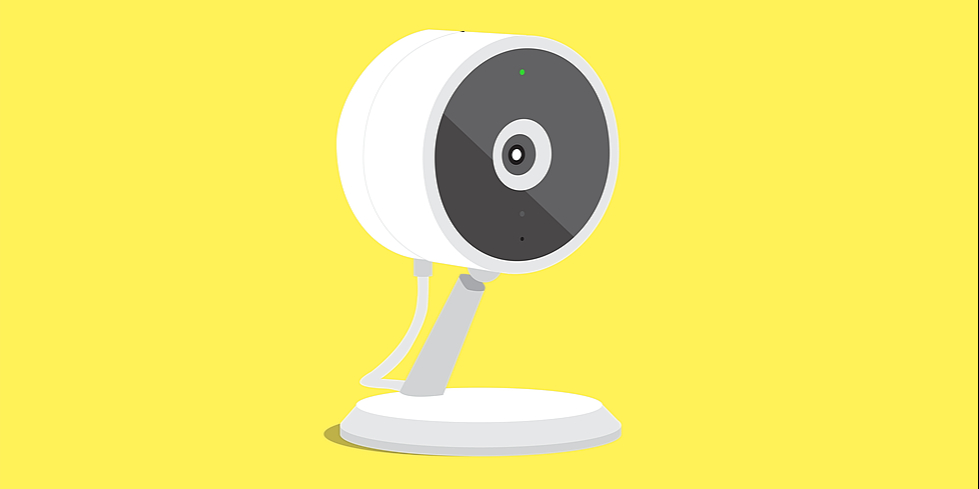 Amazon has developed a reputation for delivering some of the lowest prices for all types of products, and one of the best delivery systems in the world. Part of what makes this possible is Amazon’s extensive use of people’s data. We’re taking a look at which information Amazon collects and how it collects that information.
Amazon has developed a reputation for delivering some of the lowest prices for all types of products, and one of the best delivery systems in the world. Part of what makes this possible is Amazon’s extensive use of people’s data. We’re taking a look at which information Amazon collects and how it collects that information.
215. Vulnerability Of Windows: The Truth
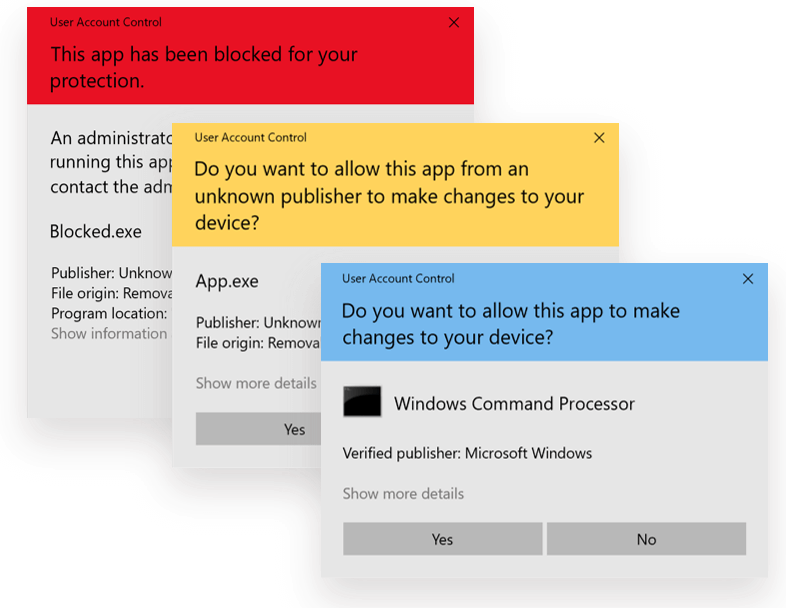 In 2017, DZone wrote a really cool article about a windows exploit that a German student discovered that takes advantage of the trusted binary ‘fodhelper.exe’ that is a part of windows. It is located in System32 and is signed by Microsoft, so when you run it, the UAC prompt (pictured below), which is normally required to run a program as an administrator, is not required.
In 2017, DZone wrote a really cool article about a windows exploit that a German student discovered that takes advantage of the trusted binary ‘fodhelper.exe’ that is a part of windows. It is located in System32 and is signed by Microsoft, so when you run it, the UAC prompt (pictured below), which is normally required to run a program as an administrator, is not required.
216. Unliked: Facebook’s Reign Could End
 Facebook shares went tumbling following the news after a ‘sell’ recommendation from Michael Levine of Pivotal Research Group. Levine cited concerns over Facebook’s Ad revenue as well as ongoing regulatory risks.
Facebook shares went tumbling following the news after a ‘sell’ recommendation from Michael Levine of Pivotal Research Group. Levine cited concerns over Facebook’s Ad revenue as well as ongoing regulatory risks.
217. Markdown and Privacy-Focused Note Taking are the Perfect Match
 The new Markdown editor marks TagSpaces down as one of the best no-cloud offline note-taking apps for privacy-focused users.
The new Markdown editor marks TagSpaces down as one of the best no-cloud offline note-taking apps for privacy-focused users.
218. Is Big Tech 'Targeting' the Elderly a Point of Concern?
 Elderly people, in recent years, have been using new tech more and more. While that is a good thing, it brings up the topic of privacy.
Elderly people, in recent years, have been using new tech more and more. While that is a good thing, it brings up the topic of privacy.
219. Finding The Privacy Balance - Is There Such Thing as Too Much Privacy?
 I've been a heavy advocate for using multiple tools and alternative services to protect your personal information for years. However, as I've seen people pile on one privacy tool after another I've realized that people have perhaps taken it too far.
I've been a heavy advocate for using multiple tools and alternative services to protect your personal information for years. However, as I've seen people pile on one privacy tool after another I've realized that people have perhaps taken it too far.
220. C++ to WebAssembly using Bazel and Emscripten

221. Why We Should All Care About Privacy Online—Interview: Hanna Bozakov
 I interviewed Hanna Bozakov, Head of Marketing for secure email service Tutanota, about internet security, online privacy, the legality of encryption, and how Tutanota works to protect you. According to their homepage, "Tutanota is the world's most secure email service, easy to use and private by design".
I interviewed Hanna Bozakov, Head of Marketing for secure email service Tutanota, about internet security, online privacy, the legality of encryption, and how Tutanota works to protect you. According to their homepage, "Tutanota is the world's most secure email service, easy to use and private by design".
222. You.com is the Latest Privacy-Preserving Search Engine Built for You
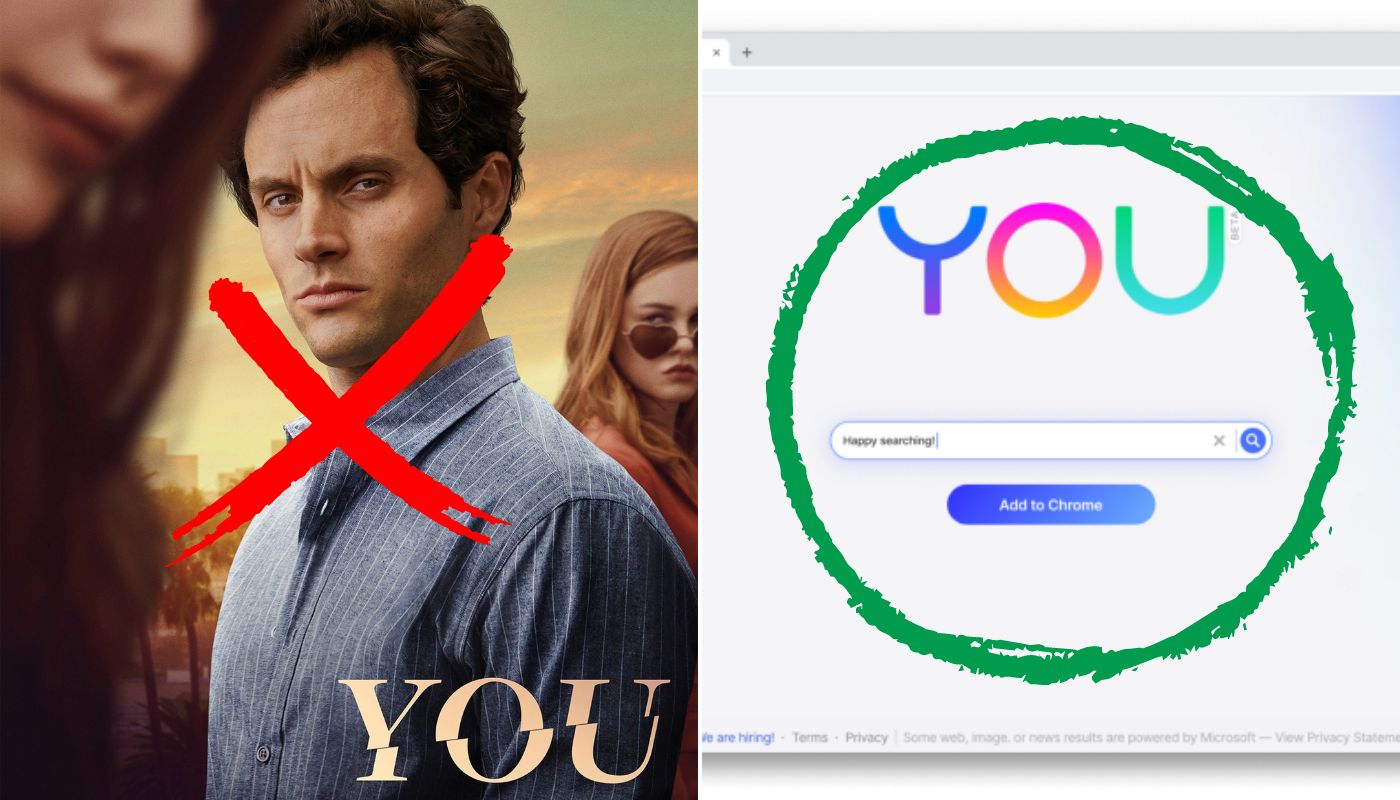 You.com is a new search engine that lets you search less and find more online. Personalize your search sources, get snippet previews of the results privately.
You.com is a new search engine that lets you search less and find more online. Personalize your search sources, get snippet previews of the results privately.
223. How to Avoid Consumer Lock-in with The Decentralised Web

224. How Come So Many Nonprofit Websites Have Ad Trackers?
 While health data is governed by HIPAA, and FERPA regulates educational records, there are no federal laws governing how websites track their visitors.
While health data is governed by HIPAA, and FERPA regulates educational records, there are no federal laws governing how websites track their visitors.
225. The State Of Data Privacy In 2020
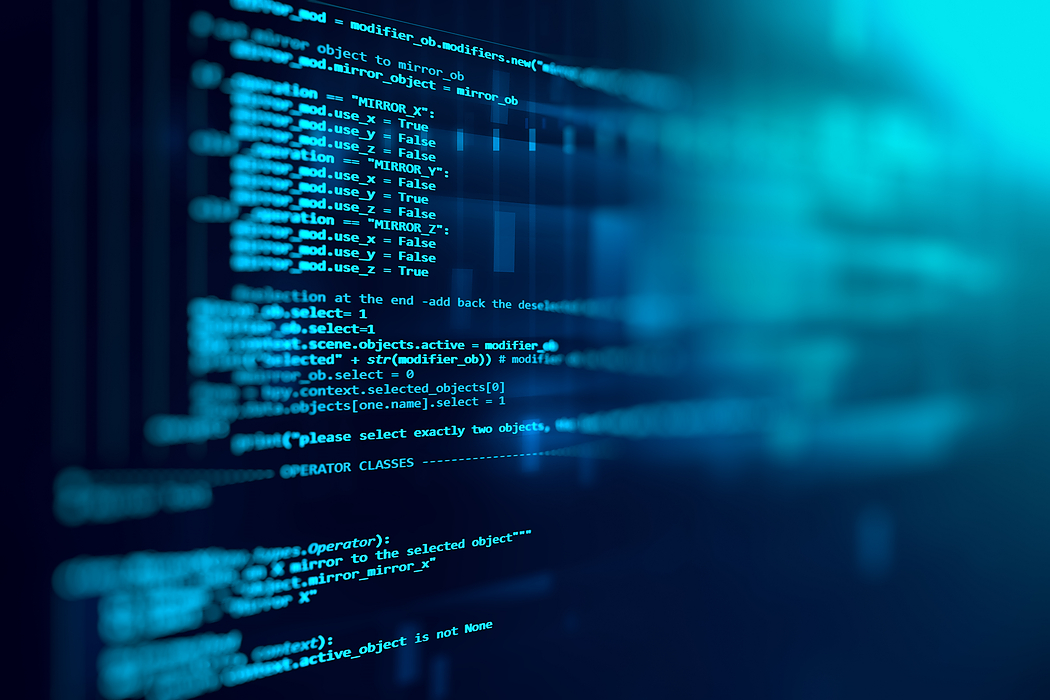 In 2020, there will be just one thing considered to be more important than product quality for consumers: data privacy. By this I refer not to user-controlled measures to add extra security for internet users, from the most classic one-time password, or two-factor authentication, to the most secure multi-factor authentication methods: but data privacy measures implemented by companies to ensure that peoples’ personal data is protected - no matter what.
In 2020, there will be just one thing considered to be more important than product quality for consumers: data privacy. By this I refer not to user-controlled measures to add extra security for internet users, from the most classic one-time password, or two-factor authentication, to the most secure multi-factor authentication methods: but data privacy measures implemented by companies to ensure that peoples’ personal data is protected - no matter what.
226. How Can Password-Free Identity Verification Safeguard User Privacy?
 Traditional identity verification methods usually have security risks. Unlike these methods, FIDO-based identity verification is much safer and convenient.
Traditional identity verification methods usually have security risks. Unlike these methods, FIDO-based identity verification is much safer and convenient.
227. How to Activate Disappearing Messages on Instagram
 In this post, you will get complete knowledge of how to hide Instagram messages without deleting them.
In this post, you will get complete knowledge of how to hide Instagram messages without deleting them.
228. On Zero-Knowledge Proofs (ZKPs) And Why They Matter
 There is a lot of enthusiasm for the application of zero-knowledge proof systems, at Dusk Network we’ve developed the open-source PLONK zero-knowledge proof system. It can be used for many things, and what better way to demonstrate its potential with an example!
There is a lot of enthusiasm for the application of zero-knowledge proof systems, at Dusk Network we’ve developed the open-source PLONK zero-knowledge proof system. It can be used for many things, and what better way to demonstrate its potential with an example!
229. Why You Should Be Using a VPN in 2019 ?
 VPNs has grown in demand in recent years among individuals are using it to secure their information and data to prevent hackers or for other misuses.
VPNs has grown in demand in recent years among individuals are using it to secure their information and data to prevent hackers or for other misuses.
230. These Companies Are Collecting Data From Your Car
 Most drivers have no idea what data is being transmitted from their vehicles, let alone who exactly is collecting, analyzing, and sharing that data...
Most drivers have no idea what data is being transmitted from their vehicles, let alone who exactly is collecting, analyzing, and sharing that data...
231. What the GDPR and California Privacy Act Means for Tech Companies
 You may not know it, but companies are using your data as a commodity. For decades, all of your online habits have been stored, bought, shared, transferred, and maybe even stolen by businesses and individuals.
You may not know it, but companies are using your data as a commodity. For decades, all of your online habits have been stored, bought, shared, transferred, and maybe even stolen by businesses and individuals.
232. Decentralized Storage and Data Privacy for Developers
 Arcana Network runs on its blockchain, independent of a large centralized entity. have no central storage. Data Privacy on the blockchain.
Arcana Network runs on its blockchain, independent of a large centralized entity. have no central storage. Data Privacy on the blockchain.
233. Pitfalls Of Court Hearings On Zoom

234. Data Breaches: No Longer Delivering Punches to Business Reputation?
 Photo by NeONBRAND on Unsplash
Photo by NeONBRAND on Unsplash
235. Online Identity Theft: Learn How To Combat It
 Risk of becoming a victim of information theft and even online identity theft. In this article we help you find out how to stay safe
Risk of becoming a victim of information theft and even online identity theft. In this article we help you find out how to stay safe
236. Homomorphic Encryption: Introduction And Use Cases
 Organizations nowadays are storing and performing computation of the data on the cloud instead of handling themselves. Cloud Service Providers (CSPs) provide these services at an affordable cost and low maintenance. But to ensure compliance and retain privacy, organizations need to transfer the data in an encrypted format, which does ensure the confidentiality of the data. However, once the data reaches the cloud, the CSP has to decrypt the data to perform operation or computation.
Organizations nowadays are storing and performing computation of the data on the cloud instead of handling themselves. Cloud Service Providers (CSPs) provide these services at an affordable cost and low maintenance. But to ensure compliance and retain privacy, organizations need to transfer the data in an encrypted format, which does ensure the confidentiality of the data. However, once the data reaches the cloud, the CSP has to decrypt the data to perform operation or computation.
237. Tackling Privacy Management with Aline Deparis, CEO of Privacy Tools
 I’m Aline Deparis and I’m the CEO of Privacy Tools, which aims to solve the global needs of transparency and compliance when talking about privacy matters.
I’m Aline Deparis and I’m the CEO of Privacy Tools, which aims to solve the global needs of transparency and compliance when talking about privacy matters.
238. Step-by-Step Guide to Installing Arch Linux
 Guided install for Arch Linux beginner or todo list for pro
Guided install for Arch Linux beginner or todo list for pro
239. We Need to Talk About Nigeria and Cybersecurity
 Keeping information secured and protecting the integrity of data over the internet is now becoming a huge and complex task, due to the increasing number of threats to the information security.
Keeping information secured and protecting the integrity of data over the internet is now becoming a huge and complex task, due to the increasing number of threats to the information security.
240. This AI Helps to Combat Mindless Internet Scrolling
 Humans are ineffective at doing the internet. AI might be 30x faster at searching information on the internet. Sentinel is our take on providing the solution,
Humans are ineffective at doing the internet. AI might be 30x faster at searching information on the internet. Sentinel is our take on providing the solution,
241. The Social Dilemma: Advertising, Privacy, and Distraction
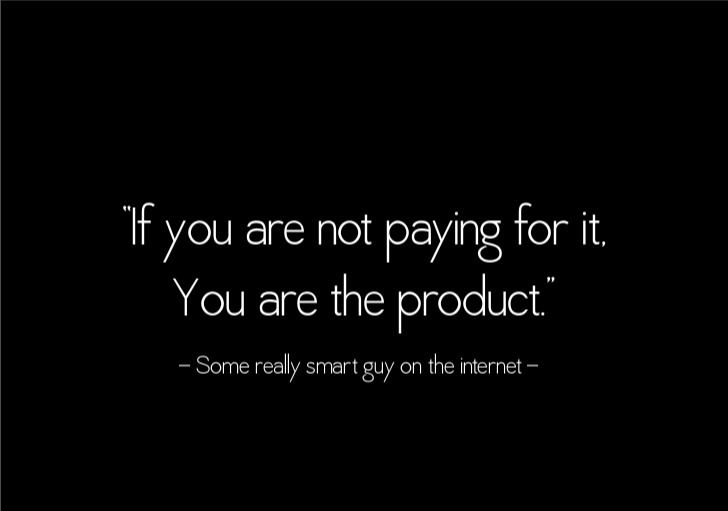 After watching The Social Dilemma, and while I do not fully agree with a black / white approach on such a topic, so I have decided to share my personal opinion.
After watching The Social Dilemma, and while I do not fully agree with a black / white approach on such a topic, so I have decided to share my personal opinion.
242. Smart Cities Raise Data Privacy Concerns
 Should you be excited about smart cities or concerned about your privacy and data? I go through three of the ten privacy principles (PIPEDA) and their effects.
Should you be excited about smart cities or concerned about your privacy and data? I go through three of the ten privacy principles (PIPEDA) and their effects.
243. Understanding VPN Jurisdiction and International Privacy
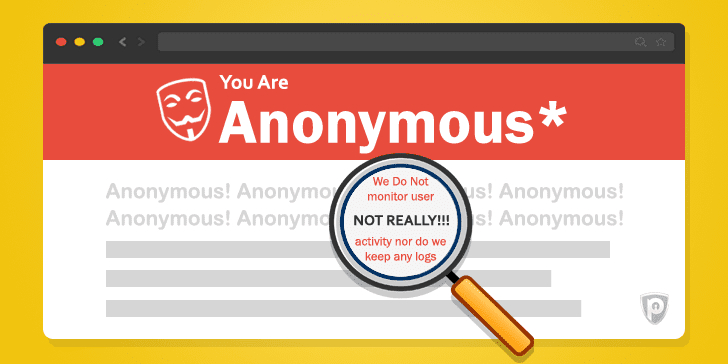 One of the essential features of a high-quality VPN service is a no-logs policy. For more than a decade, commercial VPN service providers have been spinning the online privacy angle to boost their sales. However, not all of them take their promises seriously.
One of the essential features of a high-quality VPN service is a no-logs policy. For more than a decade, commercial VPN service providers have been spinning the online privacy angle to boost their sales. However, not all of them take their promises seriously.
244. Welcome to California, Where Your Face Is Your Credit Card
 Whether you are craving a burger or Chinese food tonight, there is no need to reach for your wallet or phone to buy it. Food vendors in California are embracing facial recognition — technology that lets you pay with a smile.
Whether you are craving a burger or Chinese food tonight, there is no need to reach for your wallet or phone to buy it. Food vendors in California are embracing facial recognition — technology that lets you pay with a smile.
245. 4 Ways to Upgrade the Privacy of Your Home Wi-Fi Network
 It doesn’t take a tech degree to make your personal Wi-Fi inaccessible to unwanted cyber snoops.
It doesn’t take a tech degree to make your personal Wi-Fi inaccessible to unwanted cyber snoops.
246. Crypto eCommerce is on the Rise
 Safex Blockchain realizes Satoshi’s abandoned eCommerce dream, but with privacy features from Monero. True P2P sale of goods & services is now a reality.
Safex Blockchain realizes Satoshi’s abandoned eCommerce dream, but with privacy features from Monero. True P2P sale of goods & services is now a reality.
247. Think You Know Why Google Acquired Fitbit? Think Again!
 There's more than meets the eye when it comes to Google's acquisition of Fitbit. Read on to learn more.
There's more than meets the eye when it comes to Google's acquisition of Fitbit. Read on to learn more.
248. Meet the Writer: OneRep CEO Dimitri Shelest on Writing and Online Privacy
 OneRep CEO and Hackernoon contributor Dimitri Shelest shares his views on online privacy, his entrepreneurship experience, and the reasons that made him write.
OneRep CEO and Hackernoon contributor Dimitri Shelest shares his views on online privacy, his entrepreneurship experience, and the reasons that made him write.
249. Cyber Attacks Still Threaten Democracy Today: Here's Why We Need A More Secure eVoting Process

250. How to Address Sensitive Data Sprawl
 Identifying what sensitive data sprawl is and how it happens, as well as solutioning for it.
Identifying what sensitive data sprawl is and how it happens, as well as solutioning for it.
[251. An Open Letter to Coin Center:
Introduction to a Fully Private Zero-Knowledge Proof Digital Currency](https://hackernoon.com/an-open-letter-to-coin-center-introduction-to-a-fully-private-zero-knowledge-proof-digital-currency-4ln3e7b)
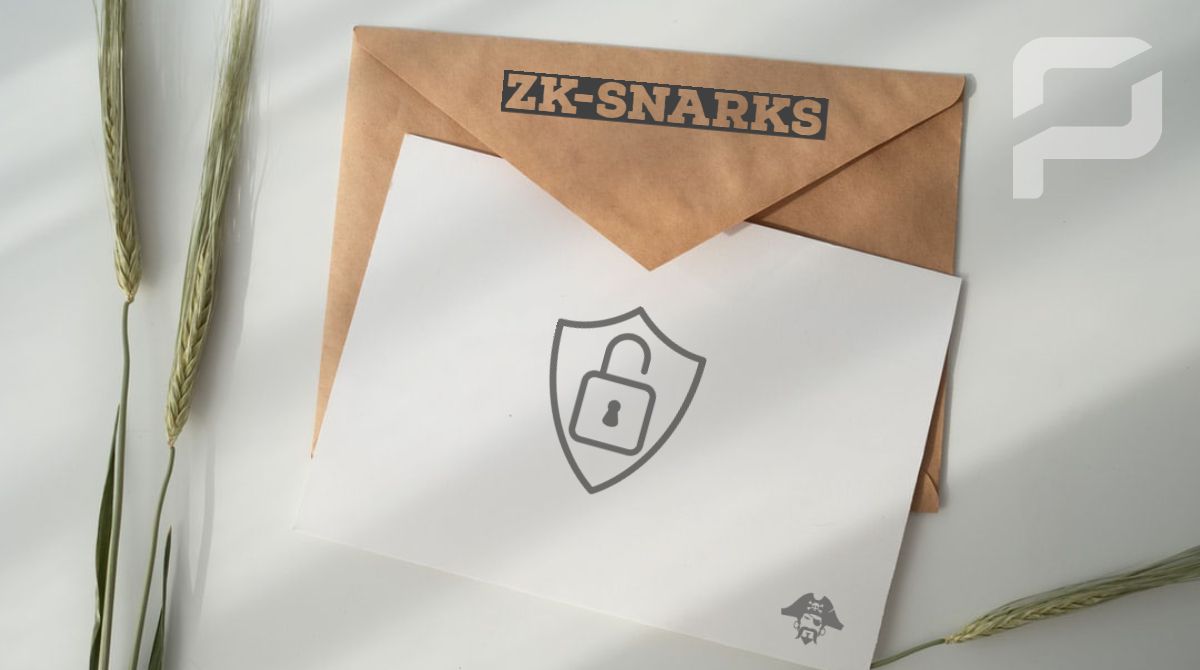 Dear Mr. Green and Mr. Van Valkenburgh,
Dear Mr. Green and Mr. Van Valkenburgh,
252. Avast Secure Browser Gets Top Spot in AV-Comparatives' Anti-Phishing Protection Test
 Using Avast Secure Browser either as a primary or a secondary browser is easy and will give you a safer, and faster browsing experience across all your devices.
Using Avast Secure Browser either as a primary or a secondary browser is easy and will give you a safer, and faster browsing experience across all your devices.
253. Proxy Vs. VPN: What Is Better For Data Protection in 2020
 If you are alive and functioning as a member of society in 2020, chances are you've used a VPN (Virtual Private Network) or a proxy server in the past. It may have been to stream a sports channel not available in your home country, to gain access to a foreign website, or to overcome the one-vote-per-IP address challenges associated with having multiple people in one household trying to do the same thing online.
If you are alive and functioning as a member of society in 2020, chances are you've used a VPN (Virtual Private Network) or a proxy server in the past. It may have been to stream a sports channel not available in your home country, to gain access to a foreign website, or to overcome the one-vote-per-IP address challenges associated with having multiple people in one household trying to do the same thing online.
254. Life After COVID-19: How China is Going Back to Work

255. Prevent Reverse Tabnabbing Attacks With Proper noopener, noreferrer, and nofollow Attribution
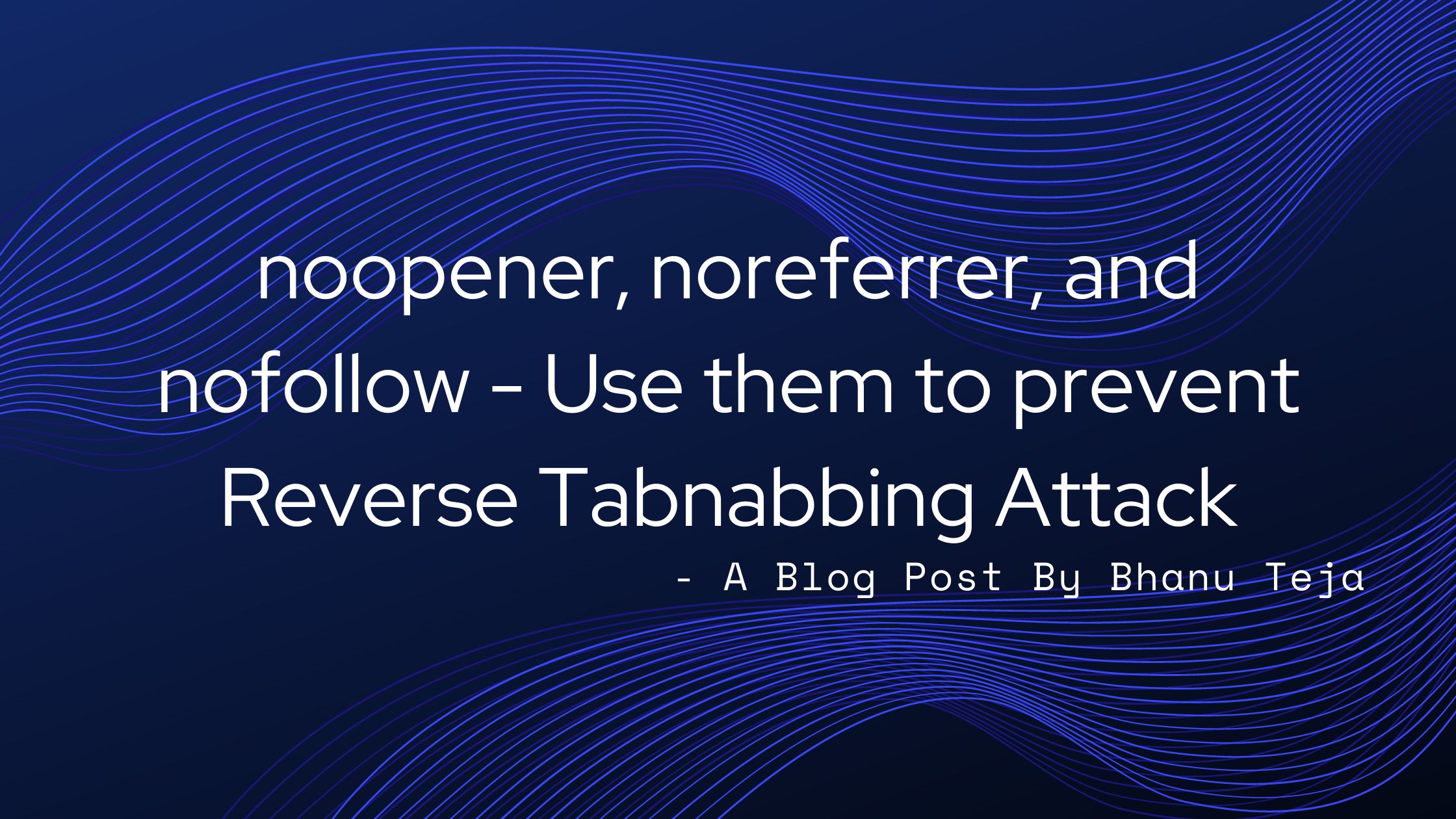 Now and then, when you click on a link on a website, the link will be opened in a new tab, but the old tab will also be redirected to some other phishing website where it asks you to login or starts downloading some malware to your device. In this blog post, I will explain how something like this is achieved, and how to easily prevent this from happening in your own websites.
Now and then, when you click on a link on a website, the link will be opened in a new tab, but the old tab will also be redirected to some other phishing website where it asks you to login or starts downloading some malware to your device. In this blog post, I will explain how something like this is achieved, and how to easily prevent this from happening in your own websites.
256. Is it Safe to Connect to Public WiFi?
 Public WiFi is not as safe as you think. This article discusses some of the security risks with public WiFi and what you can do to stay safe on the public WiFi.
Public WiFi is not as safe as you think. This article discusses some of the security risks with public WiFi and what you can do to stay safe on the public WiFi.
257. Matthew Turner Is Pretty Excited With The Idea of Decentralized Utopia P2P Ecosystem
 You know that feeling when you work really hard on something for really long and it feels like nobody really notices? Hacker Noon’s Annual Tech Industry Awards, the 2020 Noonies, are here to help with that. Nominate YOUR best people and products today at NOONIES.TECH.
You know that feeling when you work really hard on something for really long and it feels like nobody really notices? Hacker Noon’s Annual Tech Industry Awards, the 2020 Noonies, are here to help with that. Nominate YOUR best people and products today at NOONIES.TECH.
258. Sora Enables Shipping While Keeping Your Address Private
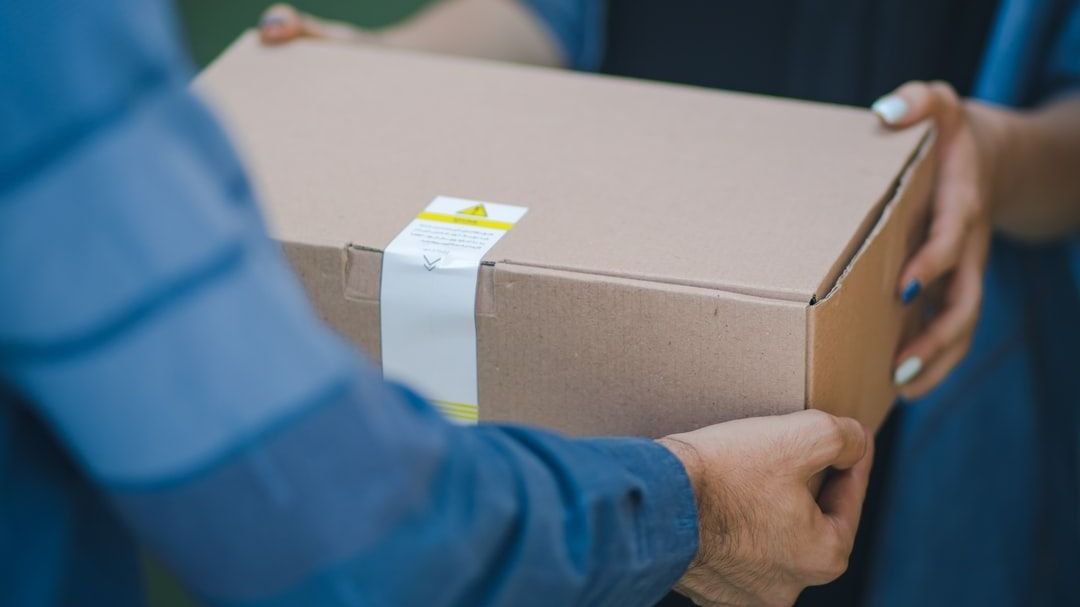 Sora is a privacy-preserving, addressless shipping tool that enables individuals and businesses to send and receive packages without revealing their address.
Sora is a privacy-preserving, addressless shipping tool that enables individuals and businesses to send and receive packages without revealing their address.
259. Apple Card is a great jail card
 The Apple Card is finally here, offering a flashy titanium card engraved with your name next to Apple’s logo. Is it the best credit card in the market? And if it isn’t, why is there so much hype around it?
The Apple Card is finally here, offering a flashy titanium card engraved with your name next to Apple’s logo. Is it the best credit card in the market? And if it isn’t, why is there so much hype around it?
260. Life-Changing Facts About Apple’s iOS Security Architecture
 Introduction to Apple platform security:
Introduction to Apple platform security:
261. Your Planned Parenthood Data Is Being Collected, Analyzed, and Sold
 The Markup has found that location data company INRIX, which collects, and sells aggregated vehicle, traffic, and parking data includes Planned Parenthood.
The Markup has found that location data company INRIX, which collects, and sells aggregated vehicle, traffic, and parking data includes Planned Parenthood.
262. Research Suggests That a Hard Brexit Could Lead to Significant Confusion within the UK Cloud Market
 An inquiry into public opinion suggests that fear and confusion could push sensitive personal data out of the country.
An inquiry into public opinion suggests that fear and confusion could push sensitive personal data out of the country.
263. Why Cyber Security Should Be Your Company’s Top Priority In 2020

264. On the Importance of Wide Range of Knowledge: Meet Paul Bailey, Systems Architect
 Hacker Noon Contributor Paul Bailey, aerospace engineer turned systems architect, shares his thoughts on the importance of writing and wide range of knowledge.
Hacker Noon Contributor Paul Bailey, aerospace engineer turned systems architect, shares his thoughts on the importance of writing and wide range of knowledge.
265. 7 Reasons Why Everyone Should Use a VPN
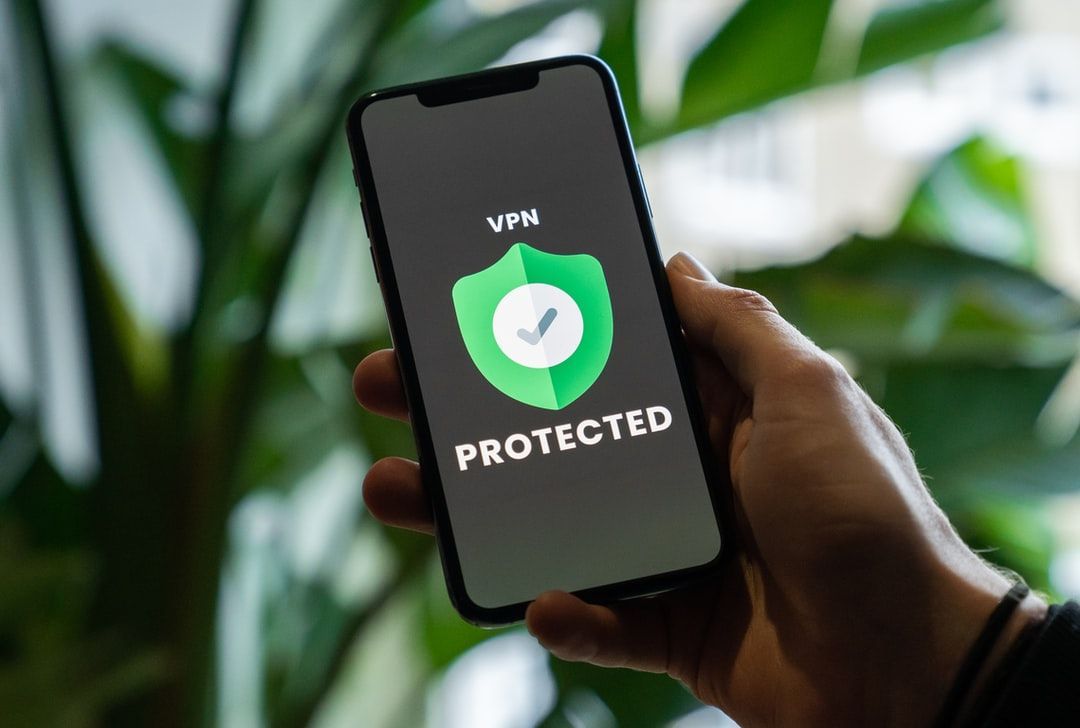 A VPN can do so much more than giving you access to geo-restricted content. Check out why everyone should use a VPN.
A VPN can do so much more than giving you access to geo-restricted content. Check out why everyone should use a VPN.
266. An Understanding of Available Biometrics
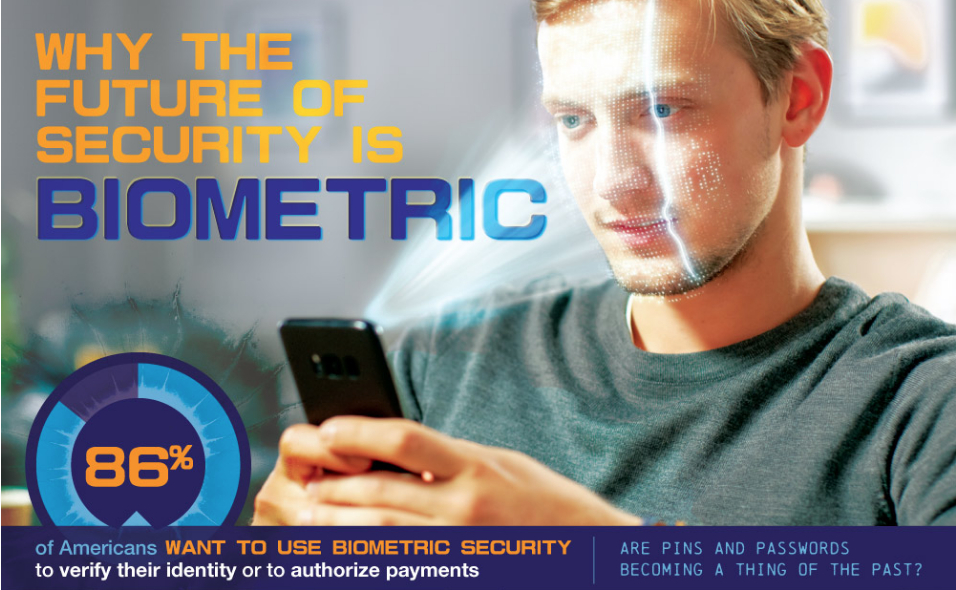 Biometric security is widely known as fingerprint, facial, retinal, and voice recognition systems using physical and behavioral markers to identify authorized users and detect imposters. The behavioral markers biometric tools are capable of identifying consist of data usage patterns (location and time), finger movements and gestures, how a phone is tilted when held, and how frequently the user checks their media accounts.
Biometric security is widely known as fingerprint, facial, retinal, and voice recognition systems using physical and behavioral markers to identify authorized users and detect imposters. The behavioral markers biometric tools are capable of identifying consist of data usage patterns (location and time), finger movements and gestures, how a phone is tilted when held, and how frequently the user checks their media accounts.
267. Why Cybersecurity Must Start with Company Culture
 Cyberattacks, though frequently thought of as ‘sophisticated’, are often anything but. They are actually surprisingly straightforward and mostly financially motivated. We often see the media reporting on large-scale cyberattacks that have managed to breach complex security protocols, at a substantial financial cost to the business involved.
Cyberattacks, though frequently thought of as ‘sophisticated’, are often anything but. They are actually surprisingly straightforward and mostly financially motivated. We often see the media reporting on large-scale cyberattacks that have managed to breach complex security protocols, at a substantial financial cost to the business involved.
268. Scene by Scene Feasibility Breakdown of Facebook's Metaverse at Work Video
 Let’s unbox the metaverse vision, go deeper into what it’s trying to convey and offer a realistic perspective on how that future could be accomplished.
Let’s unbox the metaverse vision, go deeper into what it’s trying to convey and offer a realistic perspective on how that future could be accomplished.
269. Why a Privacy-First Ad Approach Promises a Better Future for All
 A privacy-driven future is coming. Is your ad business ready?
A privacy-driven future is coming. Is your ad business ready?
270. Is Google Benefiting From Banning Third-party Cookies
 Google has announced the depreciation of third-party cookies will be delayed – again.
Google has announced the depreciation of third-party cookies will be delayed – again.
271. How Much Exactly are Podcasts Able to Track us
 Traditionally, the podcast ecosystem has been tracking-resistant, in part because podcasters release their shows through RSS, free technology dating back to '99
Traditionally, the podcast ecosystem has been tracking-resistant, in part because podcasters release their shows through RSS, free technology dating back to '99
272. 5 Ways to Protect Your Cloud Storage

273. OWASP Top 14 Security Practices For Software Developers
 ★ The objective of this guide is to provide a comprehensive review of the security principles with limited scope in terms of information. The primary goal of the software developing team is to use the available information resource to provide and build secure applications for your business and software operations. It could be obtained through the industry-standard implementation of security controls.
★ The objective of this guide is to provide a comprehensive review of the security principles with limited scope in terms of information. The primary goal of the software developing team is to use the available information resource to provide and build secure applications for your business and software operations. It could be obtained through the industry-standard implementation of security controls.
274. The Five Linux Distros Hackers Prefer

275. How online players can secure their privacy while gaming & streaming?
 Ever wondered what would happen if someone ransacks your Steam account and leaves the inventory empty?
Ever wondered what would happen if someone ransacks your Steam account and leaves the inventory empty?
276. Let’s Talk about the 'Real' Web3
 A brief recollection of the origins of the term Web3 and a discussion about how it got co-opted by marketing forces.
A brief recollection of the origins of the term Web3 and a discussion about how it got co-opted by marketing forces.
277. She Was a Hacker, He Was a Botnet: A Phishing Love Story
 My hacker best friend decided to open Tinder. I was a bit reluctant about her decision. Unfortunately, she matches with a guy that gives her a phishing link.
My hacker best friend decided to open Tinder. I was a bit reluctant about her decision. Unfortunately, she matches with a guy that gives her a phishing link.
278. How Secure Are Your Internet Gateways?

279. What's in Store for Privacy and Personal Data Protection in 2022?
 2021 saw many advancements in internet privacy, what does 2022 have in store?
2021 saw many advancements in internet privacy, what does 2022 have in store?
280. Is There A Middle Ground Between Privacy and Convenience?

281. Even Before Russian Interference, US Election Tech Was Failing
 The Senate Intelligence Committee recently released a report detailing Russia’s interference in the 2016 election. Russian interference is nothing new – discourse since 2016 has focused on Russia’s (technically legal) social engineering and manipulation of social networks. The report, however, confirms Russia’s definitively illegal interference with electronic voting systems, and “the US was unprepared at all levels of government for a concerted attack from a determined foreign adversary on our election infrastructure,” said Committee Chairman Richard Burr in an accompanying statement.
The Senate Intelligence Committee recently released a report detailing Russia’s interference in the 2016 election. Russian interference is nothing new – discourse since 2016 has focused on Russia’s (technically legal) social engineering and manipulation of social networks. The report, however, confirms Russia’s definitively illegal interference with electronic voting systems, and “the US was unprepared at all levels of government for a concerted attack from a determined foreign adversary on our election infrastructure,” said Committee Chairman Richard Burr in an accompanying statement.
Given American technological capabilities, how was this interference possible?
Voting is still in the dark ages
Voting lies at the heart of democracy, yet it has failed to make the same technological advancements that we’ve come to expect in other facets of our lives. Almost five decades into the “digital revolution,” we still consider paper ballots the “secure” standard for choosing leadership.
Why don’t we vote electronically?
Implicit in our trust of paper-based systems is a distrust of technology. Although technology has the potential to revolutionize the democratic process, the digital voting systems currently in place are often far from secure.
Today’s electronic ballot boxes, when implemented incorrectly, pose astonishing risks: For example, the US’ electronic ballot systems (called DRE, which stands for “direct electronic recording”) have notoriously relied on Windows XP, a software released in 2001. In 2014, security expert Carsten Schuermann hacked into a DRE machine over a Wi-Fi network in mere minutes by exploiting Windows XP’s old security protocols.
282. VPN Leaks that Threaten Your Online Privacy Daily
 According to research by GlobalWebIndex, in 2018, around 25% of Internet users have used a VPN service. There are several reasons for this spike in popularity, which you can read about in my previous article. One of the main reasons is the ability to bypass geo-blocks and gain access to, for example, a full Netflix library.
According to research by GlobalWebIndex, in 2018, around 25% of Internet users have used a VPN service. There are several reasons for this spike in popularity, which you can read about in my previous article. One of the main reasons is the ability to bypass geo-blocks and gain access to, for example, a full Netflix library.
283. Second State Releases Scalable Privacy Service at Mozilla Open Labs
 Build a scalable and privacy-first Internet on Second State’s serverless infrastructure. Get the email newsletter on Rust, WebAssembly, serverless, blockchain, and AI.
Build a scalable and privacy-first Internet on Second State’s serverless infrastructure. Get the email newsletter on Rust, WebAssembly, serverless, blockchain, and AI.
284. Data Privacy is Becoming More Important for Users in 2022
 A look at how data privacy is becoming more important for users in 2022
A look at how data privacy is becoming more important for users in 2022
285. How Machine Learning Prevents Identity Theft

286. Ten Reasons You Should Remove Google Analytics From Your Site, and I'm Building a Competitor
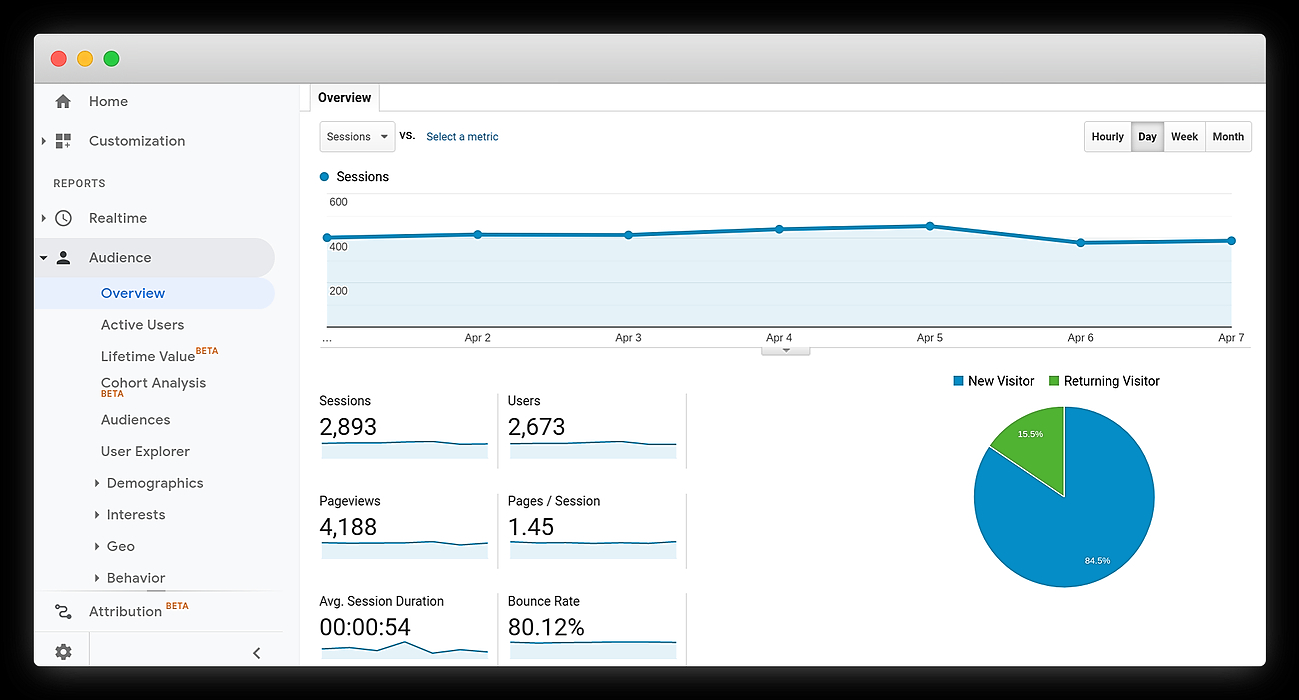 I'm working on a leaner and more transparent alternative to Google Analytics without all the privacy baggage. It's called Plausible Analytics and you can see the live demo here.
I'm working on a leaner and more transparent alternative to Google Analytics without all the privacy baggage. It's called Plausible Analytics and you can see the live demo here.
287. Your Data is the DNA of Artificial Intelligence
 As society becomes increasingly AI-driven, the essential raw material to create artificial intelligence is your data.
As society becomes increasingly AI-driven, the essential raw material to create artificial intelligence is your data.
288. Understanding IIC: Identity, Integrity, and Confidentiality

289. The Fable of the Altar King
 Once upon a time, the kingdom was terrorized by a silent altar. They would bow down and pray to it so hard, but they never heard a reply.
Then one day it spoke…
Once upon a time, the kingdom was terrorized by a silent altar. They would bow down and pray to it so hard, but they never heard a reply.
Then one day it spoke…
290. Anonymity and Privacy in Emerging Web3 Spaces Make the World go Round
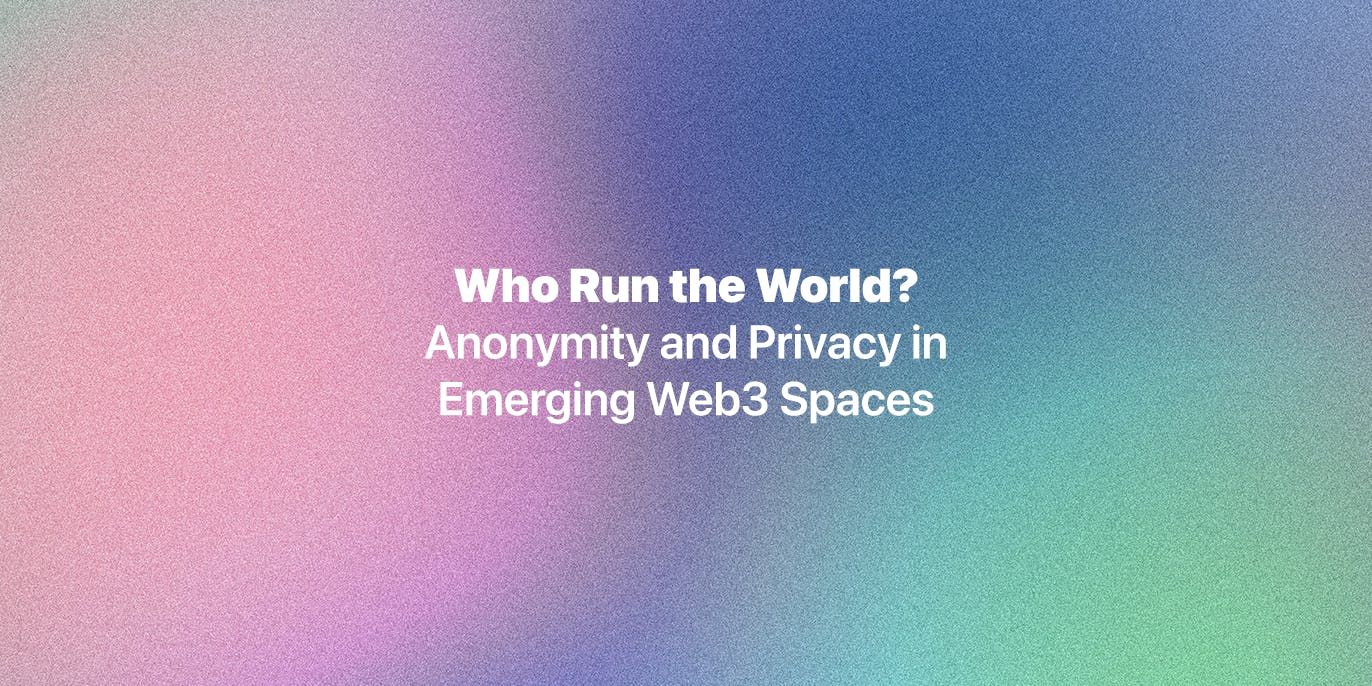 Considering previous legal theory & recent web3 events, it can be argued that the framework of privacy needs to be updated with an understanding of consent.
Considering previous legal theory & recent web3 events, it can be argued that the framework of privacy needs to be updated with an understanding of consent.
291. With Telehealth on the Rise, Privacy Regulations are Imperative
 In recent months, individuals across the globe have shifted to a remote way of life, including working from home, virtual dating, drive-by birthday parties and now, even doctor’s appointments. The healthcare sector quickly implemented changes to provide a more remote experience to comply with social distancing regulations.
In recent months, individuals across the globe have shifted to a remote way of life, including working from home, virtual dating, drive-by birthday parties and now, even doctor’s appointments. The healthcare sector quickly implemented changes to provide a more remote experience to comply with social distancing regulations.
To decrease the number of face-to-face doctor’s appointments and adhere to social distancing limitations and regulations, the Department of Health and Human Services (HHS) announced they “will not impose penalties for noncompliance” with the regulatory requirements under the HIPAA Rules against covered health care providers in connection with the good faith provision of telehealth during the COVID-19 nationwide public health emergency.
292. 5 Best Anonymous Browsers: How To Stay Protected Online
 In 2019 our devices know us better than close friends and relatives. Browsers, messengers, social media trackers analyse the actions you do online and your interactions with content to expand their manipulation. The history of browsing is used to target ads and create more triggering banners for you exclusively. These technological advancements might look smart and comfortable, but the invasion of privacy has gone too far.
In 2019 our devices know us better than close friends and relatives. Browsers, messengers, social media trackers analyse the actions you do online and your interactions with content to expand their manipulation. The history of browsing is used to target ads and create more triggering banners for you exclusively. These technological advancements might look smart and comfortable, but the invasion of privacy has gone too far.
293. Decentralized web / dWeb - what is it?
 envisioning a web that revolves around the user, not the server and not the Blockchain
envisioning a web that revolves around the user, not the server and not the Blockchain
294. 4 Signs You Make it Easy For Someone to Hack You
 Hacking can happen on any device and to any person—and hackers are only getting smarter by the minute.
Hacking can happen on any device and to any person—and hackers are only getting smarter by the minute.
295. Are Private Search Engines Truly Private?
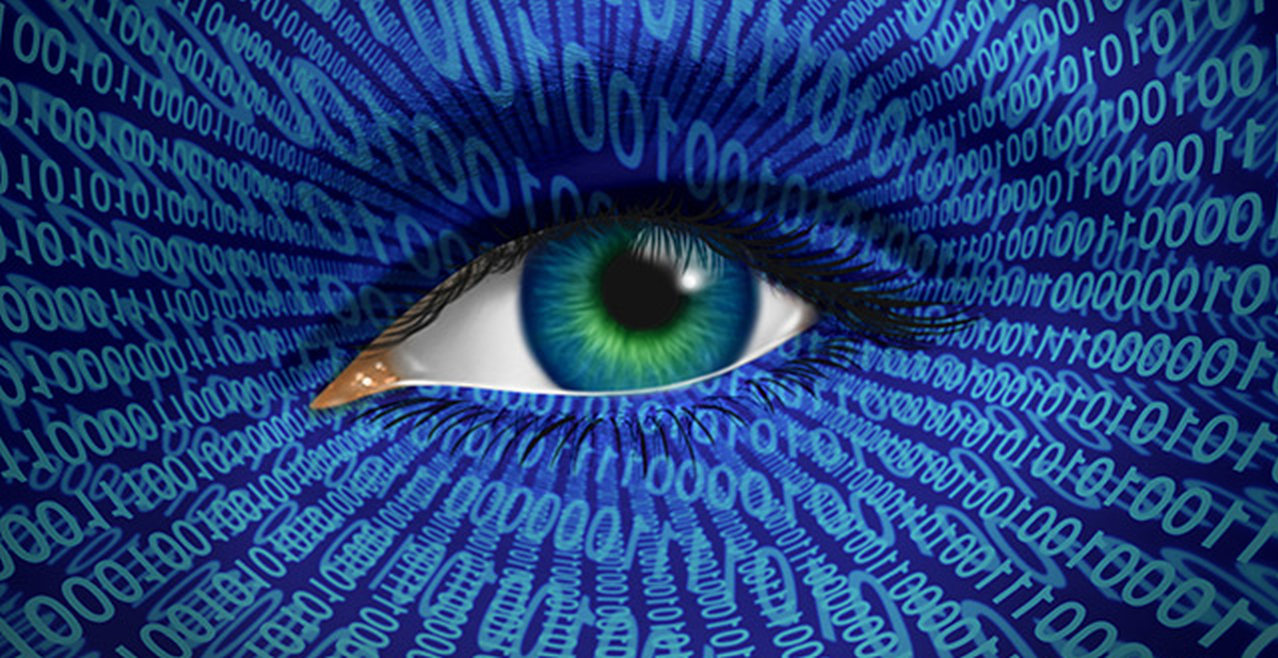 As of January 2020, 59% of the global population is connected to the internet.
As of January 2020, 59% of the global population is connected to the internet.
296. Disinformation-as-a-Service: Content Marketing’s Evil Twin
 Are you tired of all the BS out there on the internet? It's about to get A LOT worse. Dirt-cheap disinformation-as-a-Service campaigns are a thing now.
Are you tired of all the BS out there on the internet? It's about to get A LOT worse. Dirt-cheap disinformation-as-a-Service campaigns are a thing now.
297. Data Sovereignty Comes Closer To Reality For EU Residents
 Data privacy, security, and sovereignty issues have gained significant attention over recent years.
Data privacy, security, and sovereignty issues have gained significant attention over recent years.
298. 14 IoT Adoption Challenges That Enterprises Need To Overcome
 Tech-enabled industries are never short of buzzwords and the latest to join the bandwagon is the Internet of Things. Though this Industry 4.0 solution is available for long, the need for adding smart technology has increased presently among industry leaders.
Tech-enabled industries are never short of buzzwords and the latest to join the bandwagon is the Internet of Things. Though this Industry 4.0 solution is available for long, the need for adding smart technology has increased presently among industry leaders.
299. What Is “Zoombombing”: an Exaggerated Phenomenon, not a Vulnerability

300. VPNs for beginners: what a VPN can and cannot do
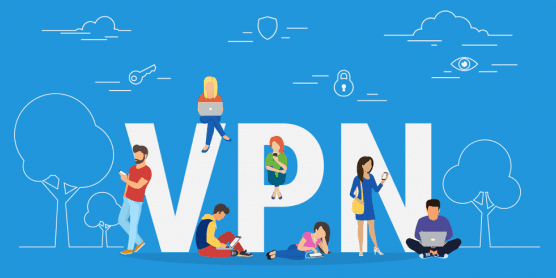 VPNs have become very popular in the last few years. Whether it’s the emergence of geographical restrictions, that VPNs help to bypass, or the evolution of cyber crime and privacy issues, — VPN market skyrocketed and is predicted to keep growing. This gave birth to a massive competition between VPN providers, and, sadly, some of them mislead their customers with false advertising and claims of security.
VPNs have become very popular in the last few years. Whether it’s the emergence of geographical restrictions, that VPNs help to bypass, or the evolution of cyber crime and privacy issues, — VPN market skyrocketed and is predicted to keep growing. This gave birth to a massive competition between VPN providers, and, sadly, some of them mislead their customers with false advertising and claims of security.
301. Online Privacy/Security Advocate Muhammad Hamza Shahid on Growth
 The 2020 #Noonies are here, and they are both much greener and much bigger than last year! Among the 2,000+ deserving humans nominated across 5 categories for over 200 award titles, we discovered Muhammad Hamza Shahid from United States, who has been nominated as one of our Contributors of the Year in PRIVACY, based on the reading time generated by his Hacker Noon top story: Why Governments Use Mass Surveillance—And What To Do About It.
The 2020 #Noonies are here, and they are both much greener and much bigger than last year! Among the 2,000+ deserving humans nominated across 5 categories for over 200 award titles, we discovered Muhammad Hamza Shahid from United States, who has been nominated as one of our Contributors of the Year in PRIVACY, based on the reading time generated by his Hacker Noon top story: Why Governments Use Mass Surveillance—And What To Do About It.
302. The JBS Foods Cybersecurity Incident
 After the colonial cyberattack, cybercriminals targeted JBS food supply which resulted in an adverse impact on the IT infrastructure of the company.
After the colonial cyberattack, cybercriminals targeted JBS food supply which resulted in an adverse impact on the IT infrastructure of the company.
303. The Protection of Rights in The Digital Age
 The identification of the right to privacy and the protection of personal data is the culmination of a long conceptual evolution.
The identification of the right to privacy and the protection of personal data is the culmination of a long conceptual evolution.
304. Data Privacy and risks of the Remote Work Environment
 Digital Transformation in every field of our lives has led to the increased collection of our personal data on every device we touch from laptops to mobile phones, to tablets, leaving a digital trail. This data is then used for various purposes such as targeted advertising, research proposes or even corporate espionage. But boundaries need to be set to avoid corporate or other malicious parties taking advantage of this information or even corrupting it.
Digital Transformation in every field of our lives has led to the increased collection of our personal data on every device we touch from laptops to mobile phones, to tablets, leaving a digital trail. This data is then used for various purposes such as targeted advertising, research proposes or even corporate espionage. But boundaries need to be set to avoid corporate or other malicious parties taking advantage of this information or even corrupting it.
305. The Brave Web Browser: Privacy-Centric Cryptobrowser
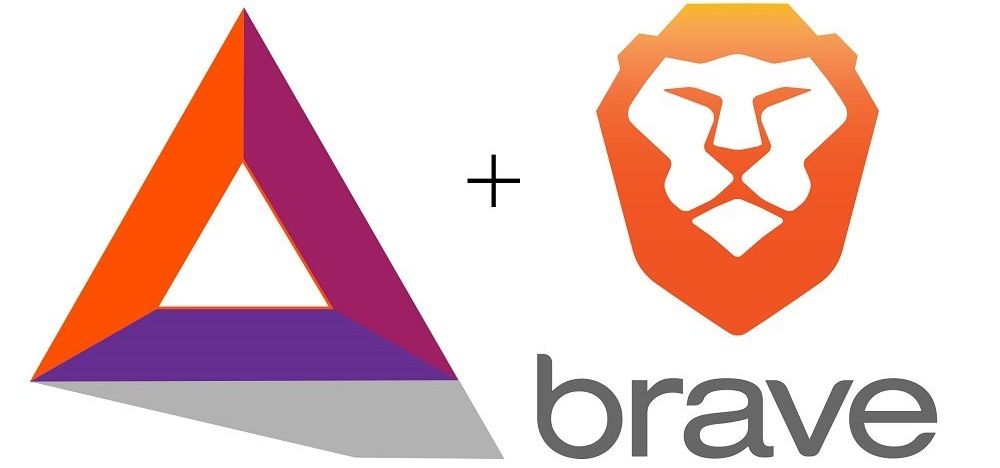 Brave is a free open-source browser based on Chrome/Chromium that was developed by Brendan Eich (creator of JavaScript former CEO of Mozilla) and released 2016.
Brave is a free open-source browser based on Chrome/Chromium that was developed by Brendan Eich (creator of JavaScript former CEO of Mozilla) and released 2016.
306. What are the Cypherpunks Fighting For?
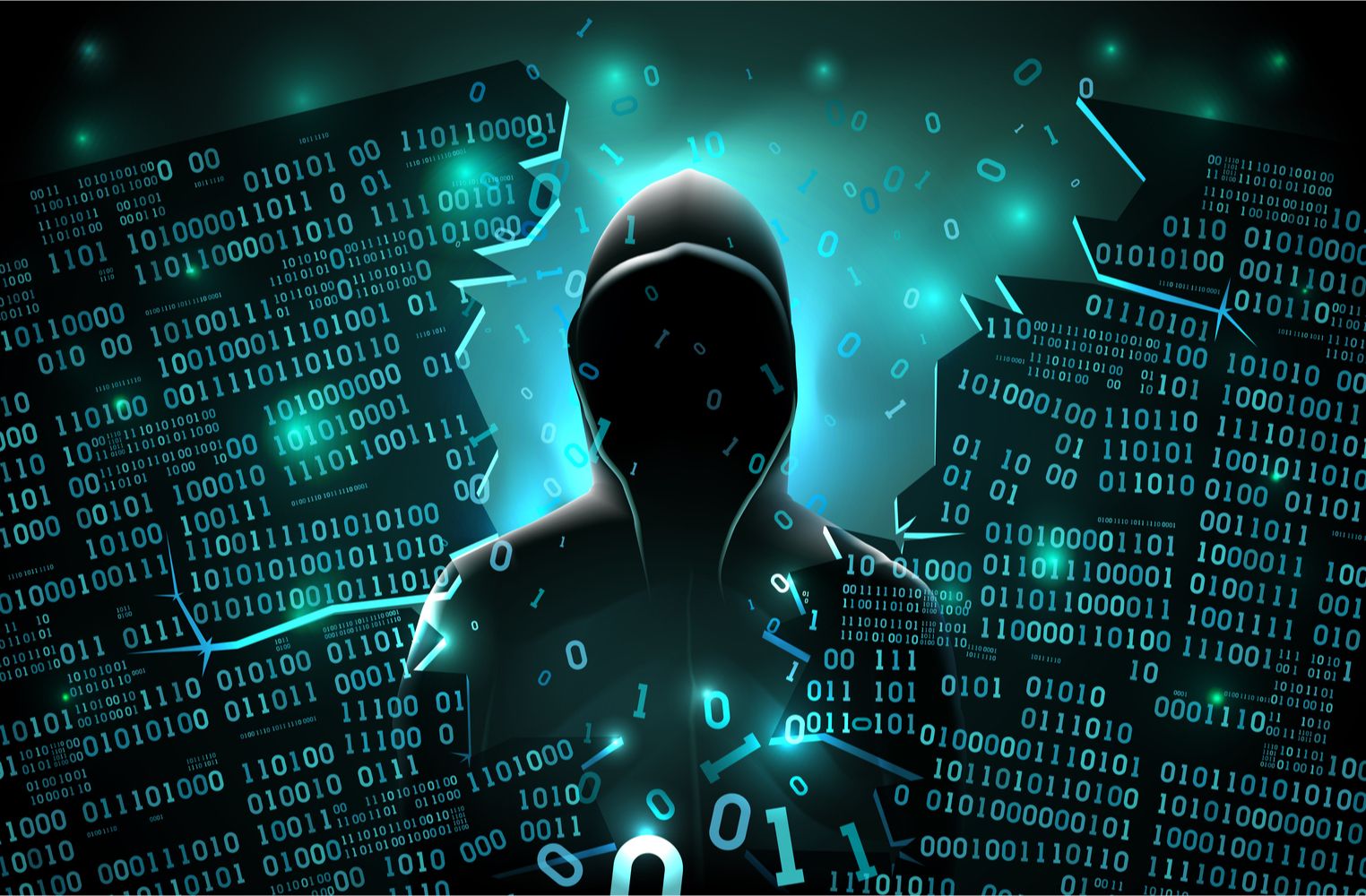 Cypherpunks hold an ideology that states that privacy is an essential component of freedom and without privacy, one cannot have true freedom of speech.
Cypherpunks hold an ideology that states that privacy is an essential component of freedom and without privacy, one cannot have true freedom of speech.
307. Introduction to Fully Homomorphic Encryption
 Exploring fully homomorphic encryption which, for a long time been considered one of the holy grails of cryptography.
Exploring fully homomorphic encryption which, for a long time been considered one of the holy grails of cryptography.
308. Our Product Was so Niche That The Hackathon Misspelled it On Our Prize Certificate: dVPNs
 Michael Astashkevich, CTO @ Smart IT (left) and Alex Solovyev, software engineer @ Smart IT (center)
Michael Astashkevich, CTO @ Smart IT (left) and Alex Solovyev, software engineer @ Smart IT (center)
309. Public Computers Safety Tips: Interview with Cybersecurity Expert Ravi Bahethi
 With the amazing advances in cloud computing, many of us are finding that it is efficient to use a public or shared computer from time to time to check in on work and personal projects. Staying safe on a public computer is essential in keeping your data secure from cybercriminals. In this article, systems engineer and cybersecurity specialist Ravi Bahethi focuses on five tips to help you stay safe while using public computers.
With the amazing advances in cloud computing, many of us are finding that it is efficient to use a public or shared computer from time to time to check in on work and personal projects. Staying safe on a public computer is essential in keeping your data secure from cybercriminals. In this article, systems engineer and cybersecurity specialist Ravi Bahethi focuses on five tips to help you stay safe while using public computers.
310. The "Anonymous LLC" and The Perpetual Pursuit for Privacy Protection
 No matter the size of the enterprise or number of employees, there are a number of reasons one might prefer to keep their business ownership private.
No matter the size of the enterprise or number of employees, there are a number of reasons one might prefer to keep their business ownership private.
311. Deciphering Pesticide Resistance in the Digital Currency Space
 Uncontrolled use of deanonymizing technologies, such as blockchain forensics and darknet monitoring tools can threaten long-term security and safety of digital ecosystems.
Uncontrolled use of deanonymizing technologies, such as blockchain forensics and darknet monitoring tools can threaten long-term security and safety of digital ecosystems.
312. 7 Alarming Signs That Magecart Attacks Are Here to Stay

313. Big Tech Is Acquiring Access to Your Health & Home
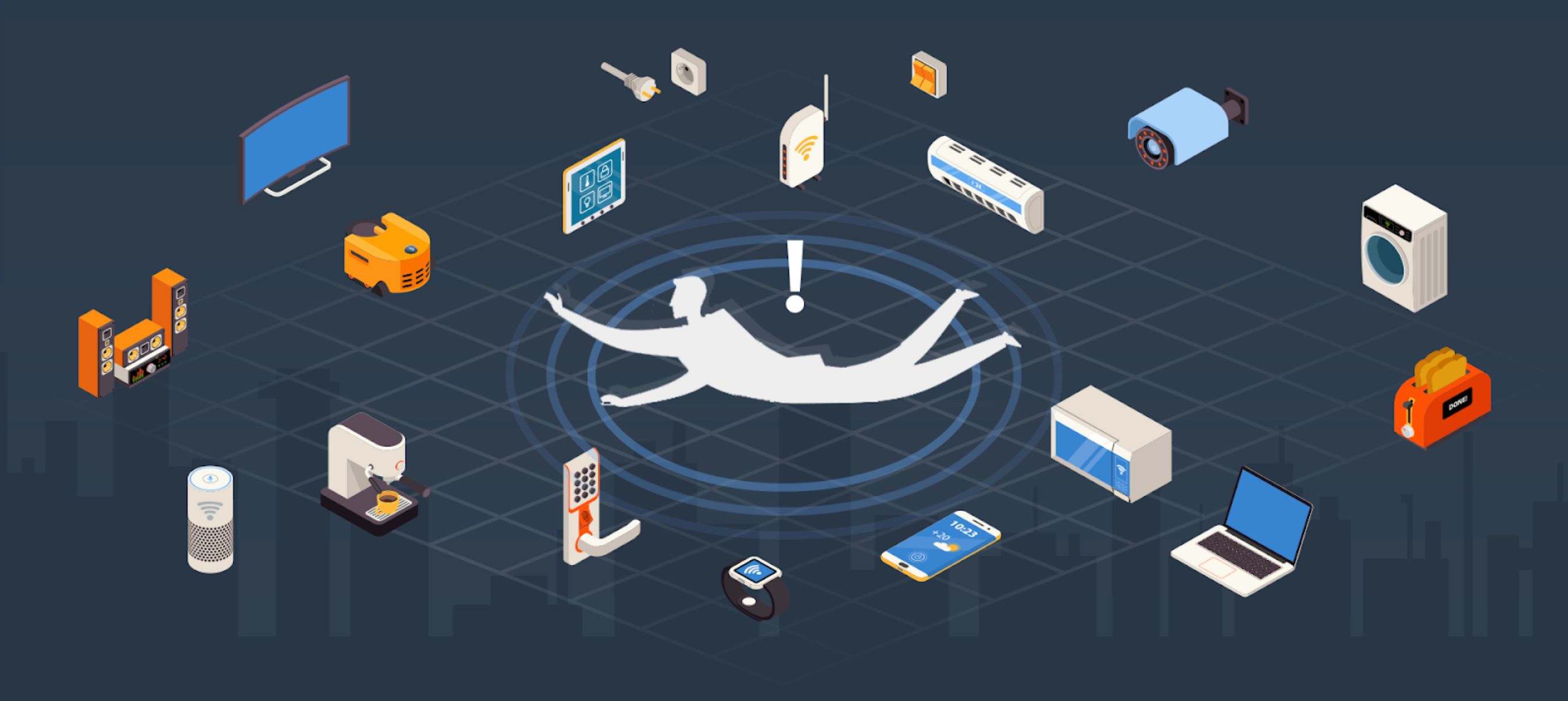 SMART HOMES: THE FINAL FRONTIER
SMART HOMES: THE FINAL FRONTIER
314. Choosing The Best Privacy Focused Crypto!
 One of the most important parts of cryptocurrency has always been the potential for privacy. These are six coins that promote that aspect more than others.
One of the most important parts of cryptocurrency has always been the potential for privacy. These are six coins that promote that aspect more than others.
315. Stop Aimlessly Scrolling — Start Earning $ from Facebook's Whitehat Platform
 Did you know that Facebook paid out $880,000 in bug bounties in 2017? Well, I got my second bounty within a relatively short span of time.
The issue was reproduced by their security team with ease, and had meaningful impact on user’s privacy. I hope this write-up inspires people not to overlook small issues while scrolling aimlessly through Facebook, and also while testing it.
Did you know that Facebook paid out $880,000 in bug bounties in 2017? Well, I got my second bounty within a relatively short span of time.
The issue was reproduced by their security team with ease, and had meaningful impact on user’s privacy. I hope this write-up inspires people not to overlook small issues while scrolling aimlessly through Facebook, and also while testing it.
316. HackerOne Finds Massive Security Failure In PayPal’s Login Compartment
 In today’s highly digitized environment, the capabilities to change our lives for the better are virtually endless. The cooperation of humans and technology - be it hardware of software - has made our lives easier and more productive.
In today’s highly digitized environment, the capabilities to change our lives for the better are virtually endless. The cooperation of humans and technology - be it hardware of software - has made our lives easier and more productive.
317. Ensuring Privacy with Zero-party Data
 Zero-party data is the future of data collection because it bridges the gap between advertising needs and consumers’ concerns about privacy.
Zero-party data is the future of data collection because it bridges the gap between advertising needs and consumers’ concerns about privacy.
318. The Biggest Data Privacy Risks For Every User
 Most spheres of our lives are entirely digitized: starting from cashless
transfers while doing some shopping and ending with GPS navigation
instead of paper maps.
Most spheres of our lives are entirely digitized: starting from cashless
transfers while doing some shopping and ending with GPS navigation
instead of paper maps.
319. Mimic: New Dimension in the VPN World
 VPN, or Virtual Private Networks has evolved and matured since it was originally envisioned. Meet Mimic protocol - a brand new dimension in the VPN world.
VPN, or Virtual Private Networks has evolved and matured since it was originally envisioned. Meet Mimic protocol - a brand new dimension in the VPN world.
320. Threat Modeling: The First Step in Your Privacy Journey
 “Convenience” is something I’ve seen many privacy advocates overlook or give little credence to.
“Convenience” is something I’ve seen many privacy advocates overlook or give little credence to.
321. In a Sense, Blockchains are Crappy Databases
 In crypto, the privacy problem is a transparency problem. In order to attract trillions of dollars worth of value into DeFi, privacy is a necessity.
In crypto, the privacy problem is a transparency problem. In order to attract trillions of dollars worth of value into DeFi, privacy is a necessity.
322. Is Your Messaging Truly Anonymous?
 Anonymous messaging is a lie
Anonymous messaging is a lie
323. The Mythical Privacy in the Age of Bitcoin - And What We're Doing About It
 Bitcoin is an extension of ourselves, it’s our money — the people’s money. We can choose to transact with whomever, wherever, whenever, and for whatever we want — because Bitcoin does not discriminate.
Bitcoin is an extension of ourselves, it’s our money — the people’s money. We can choose to transact with whomever, wherever, whenever, and for whatever we want — because Bitcoin does not discriminate.
324. How to Serve Millions of Free Video Calls Using The STUN Protocol
 Recently, WhatsApp updated its privacy policy. This event, along with the ongoing discussions on privacy concerns about the online platforms we used every day, created interest in fields of privacy and security and migration to other messaging platforms such as Signal.
Recently, WhatsApp updated its privacy policy. This event, along with the ongoing discussions on privacy concerns about the online platforms we used every day, created interest in fields of privacy and security and migration to other messaging platforms such as Signal.
325. Best Practices for GDPR Compliance Implementation
 In the new digital age we face unprecedented times of wide opportunities. Internet is just about everywhere and can be connected to just about any device generating diverse forms of data circulation, exchange and accumulation.
In the new digital age we face unprecedented times of wide opportunities. Internet is just about everywhere and can be connected to just about any device generating diverse forms of data circulation, exchange and accumulation.
326. What Happens When you Try to Opt Out of Personalized Ads
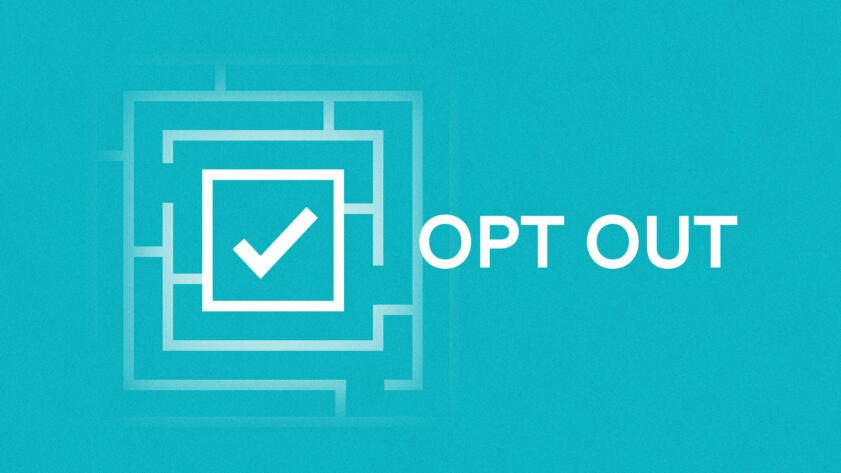 The Digital Advertising Alliance has a website that you can use to opt out of personalised ads. The problem is, it doesn't really work like it is supposed to.
The Digital Advertising Alliance has a website that you can use to opt out of personalised ads. The problem is, it doesn't really work like it is supposed to.
327. On The UK's 'Big 4' Breakup, or: "Why Does the Consulting Market Exist?"
 Before we get into the nitty-gritty of this article, I'd like to briefly outline why I decided to write it. There are few key reasons:
Before we get into the nitty-gritty of this article, I'd like to briefly outline why I decided to write it. There are few key reasons:
328. Bitcoin is the bastion of Freedom Tech
 Pandora's box has been opened. Bitcoin has proven that decentralized tech can be used to push back against oppressive regimes. But that's not just important to monetary policy.
Pandora's box has been opened. Bitcoin has proven that decentralized tech can be used to push back against oppressive regimes. But that's not just important to monetary policy.
329. Not All Encryption Is Created Equal [Analyzed]
 Encryption makes the digital world work. It consists of a few elegant math equations that scramble data before being sent over the internet where prying eyes could otherwise intercept it, read it, and manipulate it. Encryption is the reason everything from financial transactions to state secrets get passed around the internet nearly instantaneously, unlocking massive amounts of innovation, wealth, and prosperity as a result.
Encryption makes the digital world work. It consists of a few elegant math equations that scramble data before being sent over the internet where prying eyes could otherwise intercept it, read it, and manipulate it. Encryption is the reason everything from financial transactions to state secrets get passed around the internet nearly instantaneously, unlocking massive amounts of innovation, wealth, and prosperity as a result.
330. Is it Safe to Store Credit Card Information on Google Chrome?
 Do not store your credit card information on Google Chrome! This article discusses why it's not safe to store your credit card information on Google chrome.
Do not store your credit card information on Google Chrome! This article discusses why it's not safe to store your credit card information on Google chrome.
331. Signal Vs. WhatsApp Vs. Utopia: Who Is The Obvious Winner?
 The 21st century is the age of technology and the Internet. Today, the whole world is online. We are increasingly moving all our business to the Internet space. It is the place where we work, communicate, order food, pay for purchases, watch movies and listen to music.
The 21st century is the age of technology and the Internet. Today, the whole world is online. We are increasingly moving all our business to the Internet space. It is the place where we work, communicate, order food, pay for purchases, watch movies and listen to music.
332. How to Choose the Right Messenger
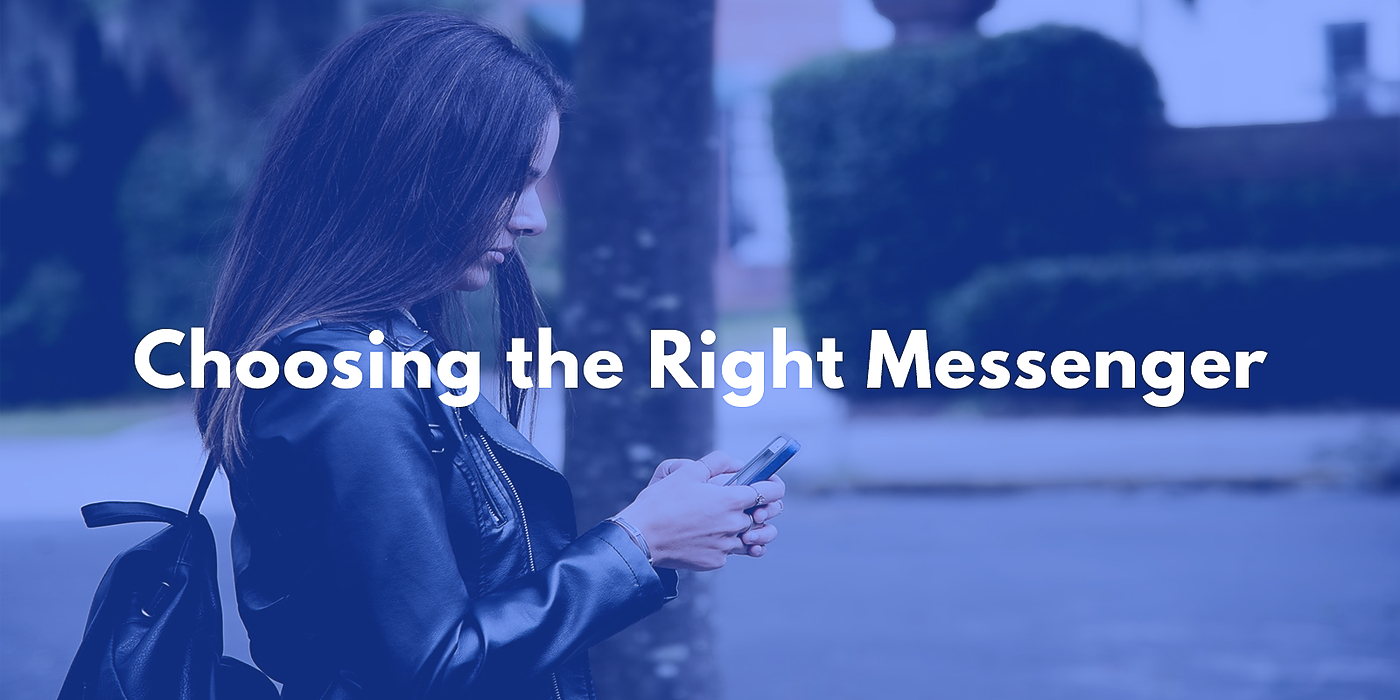 One of the most common questions users have when it comes to privacy is about messaging services. It seems almost all of them mention some level of privacy or encryption to entice the user to sign up for their service, but how can you be sure you’re using the most secure, privacy respecting platform?
One of the most common questions users have when it comes to privacy is about messaging services. It seems almost all of them mention some level of privacy or encryption to entice the user to sign up for their service, but how can you be sure you’re using the most secure, privacy respecting platform?
333. What is the Difference Between Antivirus and Anti-malware?
 Anti-malware software defends against new malware you may encounter while antivirus software scans for known viruses and searches for any known threats.
Anti-malware software defends against new malware you may encounter while antivirus software scans for known viruses and searches for any known threats.
334. "Privacy and Zero-Knowledge Proof Are Going To Be Critical for A Free Society" - Kieran Mesquita
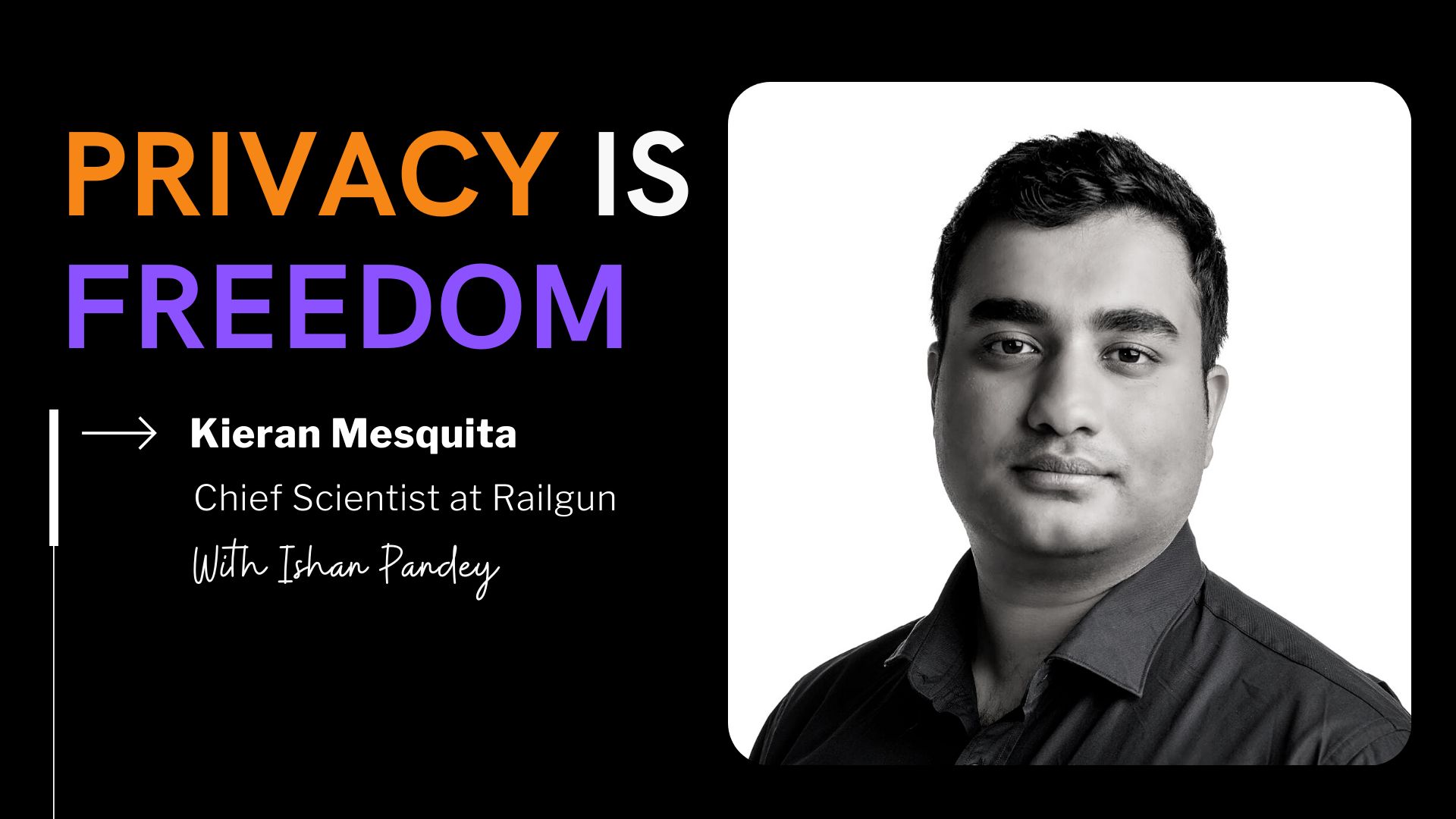 This article talks about zero-knowledge proof and how zero-knowledge proofs work establishing trust with technology.
This article talks about zero-knowledge proof and how zero-knowledge proofs work establishing trust with technology.
335. How To Prevent Ransomware Attacks: A Threat That’s Real
 Ransomware works by encrypting the user’s data, making it unreadable. If a user wants their data back, a ransom must be paid. Keep reading to learn more
Ransomware works by encrypting the user’s data, making it unreadable. If a user wants their data back, a ransom must be paid. Keep reading to learn more
336. Zoom's Security Issues Now Endanger The Online Privacy of Minors and Teachers
 In this season of pandemic, all businesses are grounded and forced to continue their operations through online channels. There is excessive use of digital channels for conferencing purposes, communication, and file transferring.
In this season of pandemic, all businesses are grounded and forced to continue their operations through online channels. There is excessive use of digital channels for conferencing purposes, communication, and file transferring.
337. The best privacy-focused browsers in 2019
 Privacy protection has become a catchphrase for many entrepreneurs and public speakers. In their recent speeches, both Mark Zuckerberg and Sundar Pichai elaborated on the importance of privacy, which is ironic, having in mind that Facebook and Google are the two biggest data scrapers around.
Privacy protection has become a catchphrase for many entrepreneurs and public speakers. In their recent speeches, both Mark Zuckerberg and Sundar Pichai elaborated on the importance of privacy, which is ironic, having in mind that Facebook and Google are the two biggest data scrapers around.
338. Privacy In The Time of Coronavirus

339. Why You Have No Choice But Care About Privacy?

340. Will Advertising Fix the Broken Trust with Users and Finally Respect Their Privacy in 2020?
 Ad tech as we know it is changing fast. Yes, it took entire nations to be tricked into taking dubious decisions about their future thanks to creepily accurate Facebook ads to raise a red flag.
Ad tech as we know it is changing fast. Yes, it took entire nations to be tricked into taking dubious decisions about their future thanks to creepily accurate Facebook ads to raise a red flag.
341. Re-thinking Digital Advertising in a User-First World
 In order to start making money, user data started being used to serve ads. It was used to predict our future behaviors in order to predict which ads to serve.
In order to start making money, user data started being used to serve ads. It was used to predict our future behaviors in order to predict which ads to serve.
342. One Vulnerability; Devastating Consequences
 Companies are realizing that one single vulnerability in their system could lead to a devastating cyberattack, and loss of productivity.
Companies are realizing that one single vulnerability in their system could lead to a devastating cyberattack, and loss of productivity.
343. Data Breaches of 2022 and How They Could Have Been Prevented
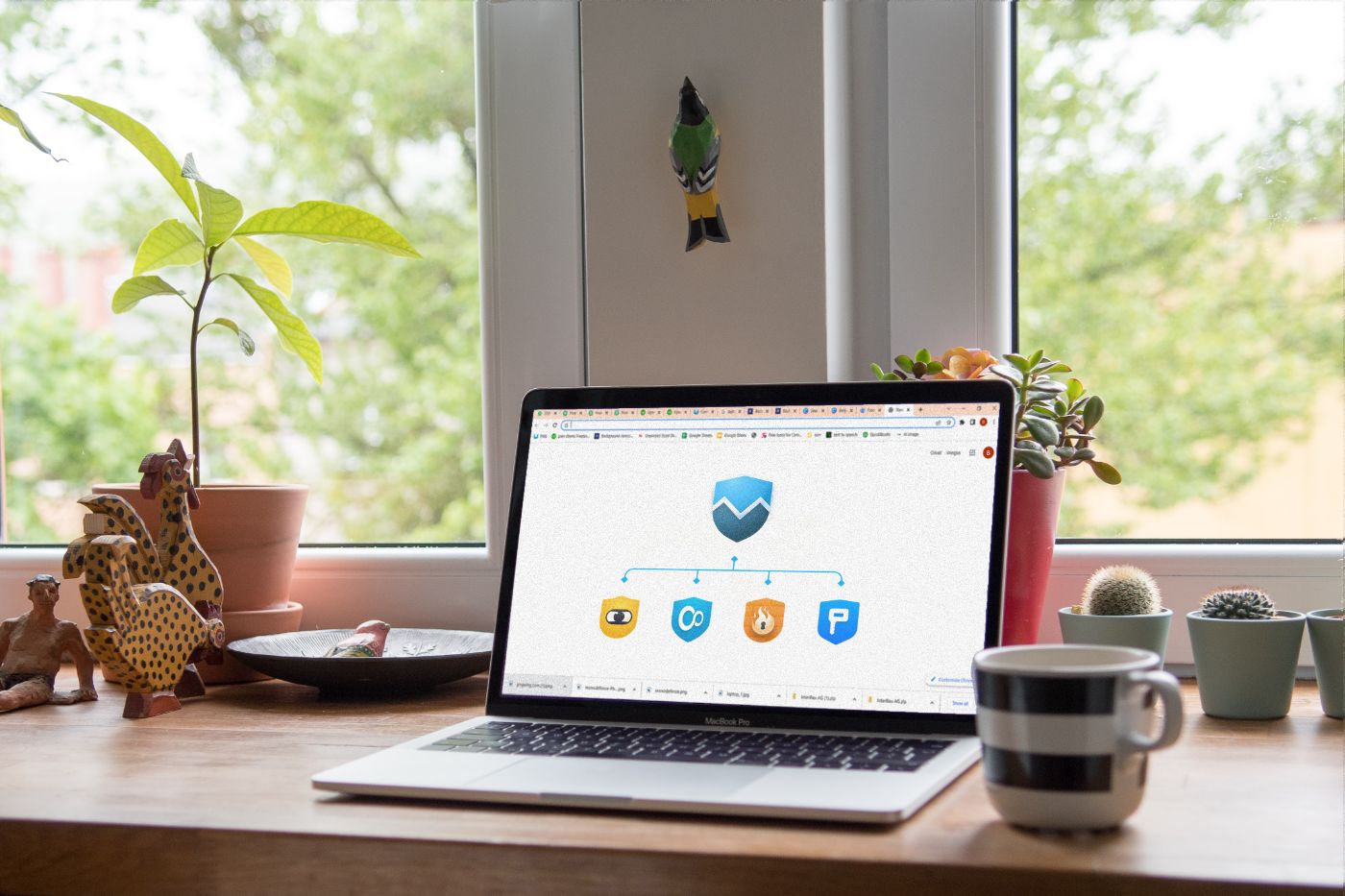 Despite our best efforts, cybersecurity continues to lag behind the creativity of cyber criminals. As we become more interconnected, the potential for a devastating data breach only grows.
Despite our best efforts, cybersecurity continues to lag behind the creativity of cyber criminals. As we become more interconnected, the potential for a devastating data breach only grows.
344. State of API Security: API Security Best Practices
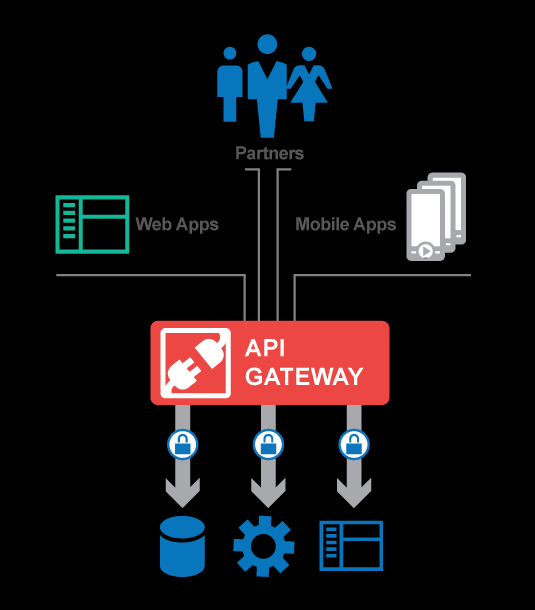 The word is out about the state of API security as organizations around the world are finally waking up to the potential of Application Programming Interfaces (APIs) transforming business models and directly generating revenues.
The word is out about the state of API security as organizations around the world are finally waking up to the potential of Application Programming Interfaces (APIs) transforming business models and directly generating revenues.
345. A Guide to the Best VPN For Your PS5
 Don’t freak out, but the moment we have all been waiting for so long has finally arrived. PlayStation 5 is here and ready to be played.
Don’t freak out, but the moment we have all been waiting for so long has finally arrived. PlayStation 5 is here and ready to be played.
346. End-to-End Encryption Basics

347. Self-Sovereign Identity, smart contracts and Web 3.0
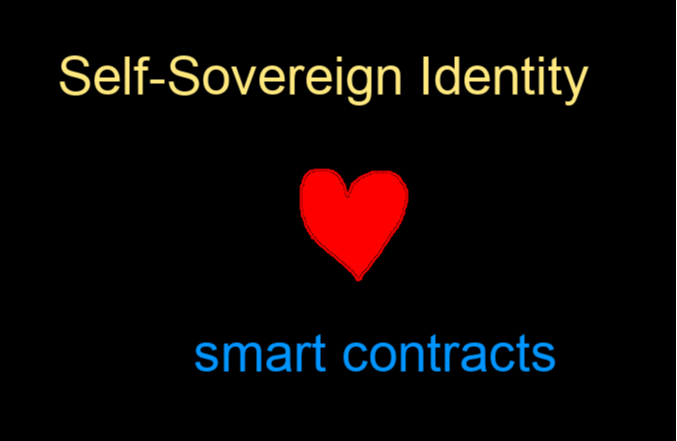 Decentralized, self-sovereign authentication and authorization of users in web projects using smart-contracts and public blockchains in Web 3.0
Decentralized, self-sovereign authentication and authorization of users in web projects using smart-contracts and public blockchains in Web 3.0
348. The Biggest Problems with WhatsApp's Privacy Practices
 A new report now claims that Whatsapp messages are not end-to-end encrypted.
A new report now claims that Whatsapp messages are not end-to-end encrypted.
349. Facebook's Libra Means the Death of Privacy

350. All You Should Know About Cybersecurity Hygiene When Using Public WiFi
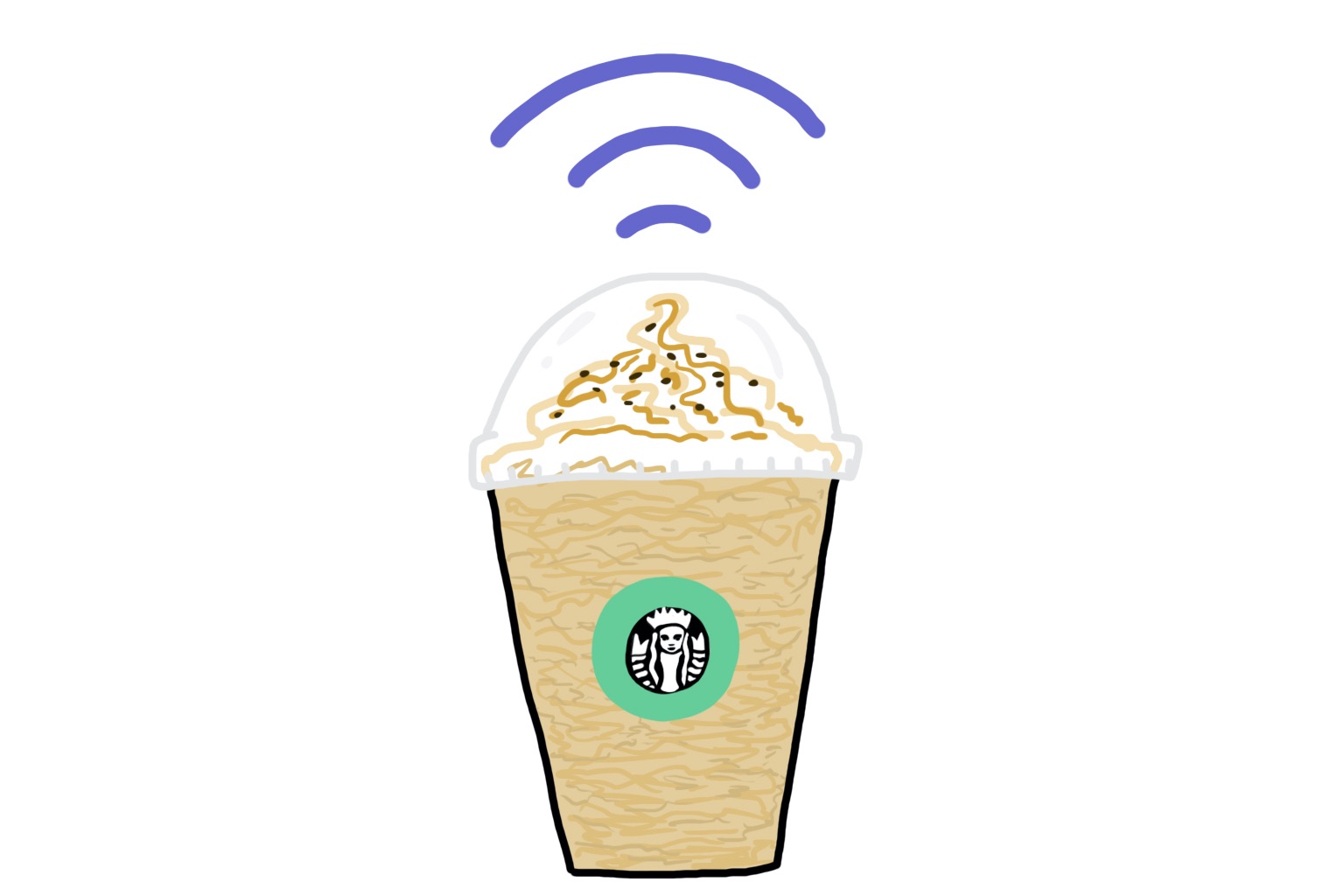 Free WiFi has become so ubiquitous that you’d be hard-pressed to find a Starbucks that does not offer it. People rarely give it a second thought when browsing in a cafe or even using public Wi Fi for business to stay productive. Unfortunately, such carelessness may come at a price, as public hotspots make it quite easy to hack your device and steal sensitive data. Let’s look at what risks free WiFi poses and what you can do about it.
Free WiFi has become so ubiquitous that you’d be hard-pressed to find a Starbucks that does not offer it. People rarely give it a second thought when browsing in a cafe or even using public Wi Fi for business to stay productive. Unfortunately, such carelessness may come at a price, as public hotspots make it quite easy to hack your device and steal sensitive data. Let’s look at what risks free WiFi poses and what you can do about it.
351. NextGen Open Blockchains Are Building New DeFi Security and Privacy Standards
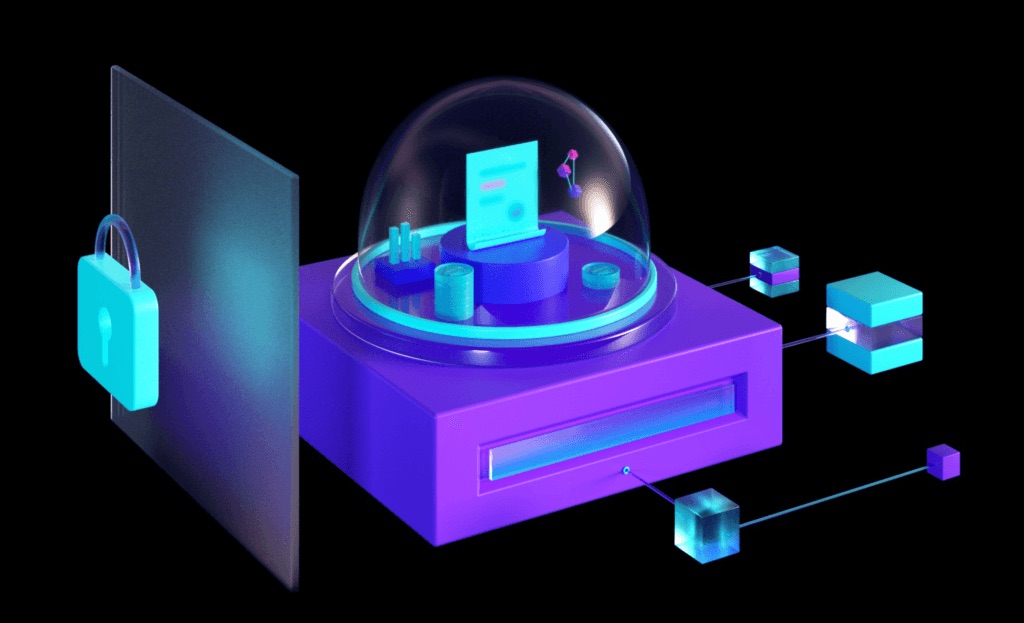 Next generation blockchains developing open, secure and privacy-preserving DeFi platforms
Next generation blockchains developing open, secure and privacy-preserving DeFi platforms
352. How To Migrate Out Of The Big Tech Ecosystem?
 Recommendations to move off of big tech
Recommendations to move off of big tech
353. 4 Reasons Why You Need a Cybersecurity Team
 Modern-day businesses have a vast list of complex issues that they need to resolve paired with a number of preventative tactics they deploy to preserve their business integrity. From perfecting their HR processes, handling customer communication, all the way to marketing, businesses often need to weigh if it makes more sense to hire an external expert for the listed services or build an in-house team to handle such intricate operations. There’s one department where most companies are trying to find the most optimal solution, often failing to realize the benefits of keeping their structure in-house: cybersecurity.
Modern-day businesses have a vast list of complex issues that they need to resolve paired with a number of preventative tactics they deploy to preserve their business integrity. From perfecting their HR processes, handling customer communication, all the way to marketing, businesses often need to weigh if it makes more sense to hire an external expert for the listed services or build an in-house team to handle such intricate operations. There’s one department where most companies are trying to find the most optimal solution, often failing to realize the benefits of keeping their structure in-house: cybersecurity.
354. On Food Waste and Relevance of Privacy: Noonies Nominee Paran Sonthalia
 Noonies 2021 nominee, Paran Sonthalia, is still a Berkley student. But that didn't stop him on the mission of reducing food waste. Hear more from him here.
Noonies 2021 nominee, Paran Sonthalia, is still a Berkley student. But that didn't stop him on the mission of reducing food waste. Hear more from him here.
355. A Letter from TheMarkup.org President Nabiha Syed
 My dad brought home a computer when I was 3 years old. He hoped that it would teach me things — and it did. I learned to spell in English by playing Reader Rabbit and the Fabulous Word Factory.
My dad brought home a computer when I was 3 years old. He hoped that it would teach me things — and it did. I learned to spell in English by playing Reader Rabbit and the Fabulous Word Factory.
356. 5 Best Domain Name Registrars in 2023

357. Vulnerability Management: Identify, Classify, Remediate, and Mitigate
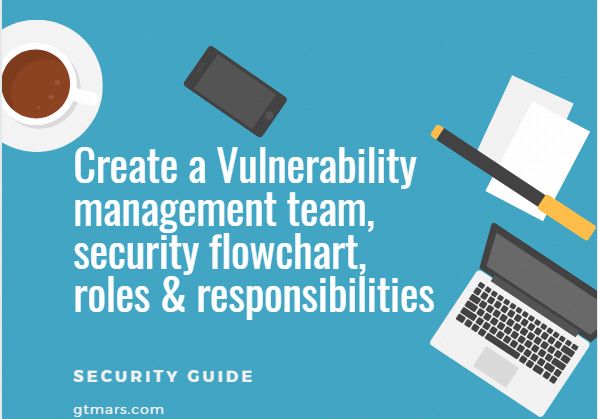 1.Vulnerability Management:
1.Vulnerability Management:
358. Homomorphic Encryption — for Web Apps 🤔 (Part 1)
 Where Do I Start?
Where Do I Start?
359. Using OSINT for Maritime Intelligence
 According to Naval Dome, the maritime industry has seen a 900% increase in cyber-attacks since 2017
According to Naval Dome, the maritime industry has seen a 900% increase in cyber-attacks since 2017
360. Private Networks: How Tailscale Works
 People often ask us for an overview of how Tailscale works. We’ve been putting off answering that, because we kept changing it! But now things have started to settle down.
People often ask us for an overview of how Tailscale works. We’ve been putting off answering that, because we kept changing it! But now things have started to settle down.
361. Wall Street's Bitcoin Vs. Reddit's Bitcoin
 Bitcoin is a transparent asset traded by Wall Street, not a medium of exchange. A currency must be private by default, Pirate Chain and Monero are great options
Bitcoin is a transparent asset traded by Wall Street, not a medium of exchange. A currency must be private by default, Pirate Chain and Monero are great options
362. Why Is Transparency Critical to Cybersecurity?
 After more than a year of posturing over whether it was safe to integrate Huawei's equipment into the UK’s telecom network, the Prime Minister finally made a decision. Last January, Boris Johnson decided to allow not only Huawei but also other companies deemed “high-risk” limited access to Britain's 5G networks.
After more than a year of posturing over whether it was safe to integrate Huawei's equipment into the UK’s telecom network, the Prime Minister finally made a decision. Last January, Boris Johnson decided to allow not only Huawei but also other companies deemed “high-risk” limited access to Britain's 5G networks.
363. The Layman's Guide to Privacy on Twitter: TOS and Privacy Settings
 Not long ago, we didn’t think too much about those terms of service (TOS) agreements and big tech. As big tech gets more negative press because of privacy concerns, it pays for all of us to double-check what we want to share and what we don’t. Many people are concerned enough that they are deleting their Facebook or Twitter accounts completely.
Not long ago, we didn’t think too much about those terms of service (TOS) agreements and big tech. As big tech gets more negative press because of privacy concerns, it pays for all of us to double-check what we want to share and what we don’t. Many people are concerned enough that they are deleting their Facebook or Twitter accounts completely.
364. No Logs Policy: Do the Terms and Conditions of your VPN Really Mean It?
 When it comes to Virtual Private Networks (VPNs), no-logging policies are at the centre of privacy concerned customers attention. With the rise of social networks, Google and Facebook dominance, and Cambridge Analytica scandal, — netizen have become aware that their online data can be and is misused.
When it comes to Virtual Private Networks (VPNs), no-logging policies are at the centre of privacy concerned customers attention. With the rise of social networks, Google and Facebook dominance, and Cambridge Analytica scandal, — netizen have become aware that their online data can be and is misused.
365. 7 Simple Ways of Making Your Smartphones More Private
 The role of the mobile phone has transformed in recent years from that of a portable calling device into a thinking, knowing, digital assistant. Today, smartphones can anticipate our journeys, complete purchases for us, and communicate instantly with billions of social media users.
The role of the mobile phone has transformed in recent years from that of a portable calling device into a thinking, knowing, digital assistant. Today, smartphones can anticipate our journeys, complete purchases for us, and communicate instantly with billions of social media users.
366. On Yang's Data Dividend Project and the Push to Treat Data as Property

367. Why is Physical Security Such a Huge Threat?
 We’ve all heard about credit card skimming. This is the method by which skimmers attach devices to ATMs and gas pumps that capture your credit card number, and it’s often associated with a camera to catch you putting in your PIN. In 2018, credit and debit card fraud resulted in $28 billion in losses. This has prompted repeated calls for people to be on the lookout for things that are suspicious, cover their hands when they input their PIN numbers, and to only use “reputable” ATMs and gas pumps. Unfortunately the fraudsters are always one step ahead, and they are always coming up with new and creative ways to commit fraud.
We’ve all heard about credit card skimming. This is the method by which skimmers attach devices to ATMs and gas pumps that capture your credit card number, and it’s often associated with a camera to catch you putting in your PIN. In 2018, credit and debit card fraud resulted in $28 billion in losses. This has prompted repeated calls for people to be on the lookout for things that are suspicious, cover their hands when they input their PIN numbers, and to only use “reputable” ATMs and gas pumps. Unfortunately the fraudsters are always one step ahead, and they are always coming up with new and creative ways to commit fraud.
368. 8 Cloud Computing Trends to Watch in 2021
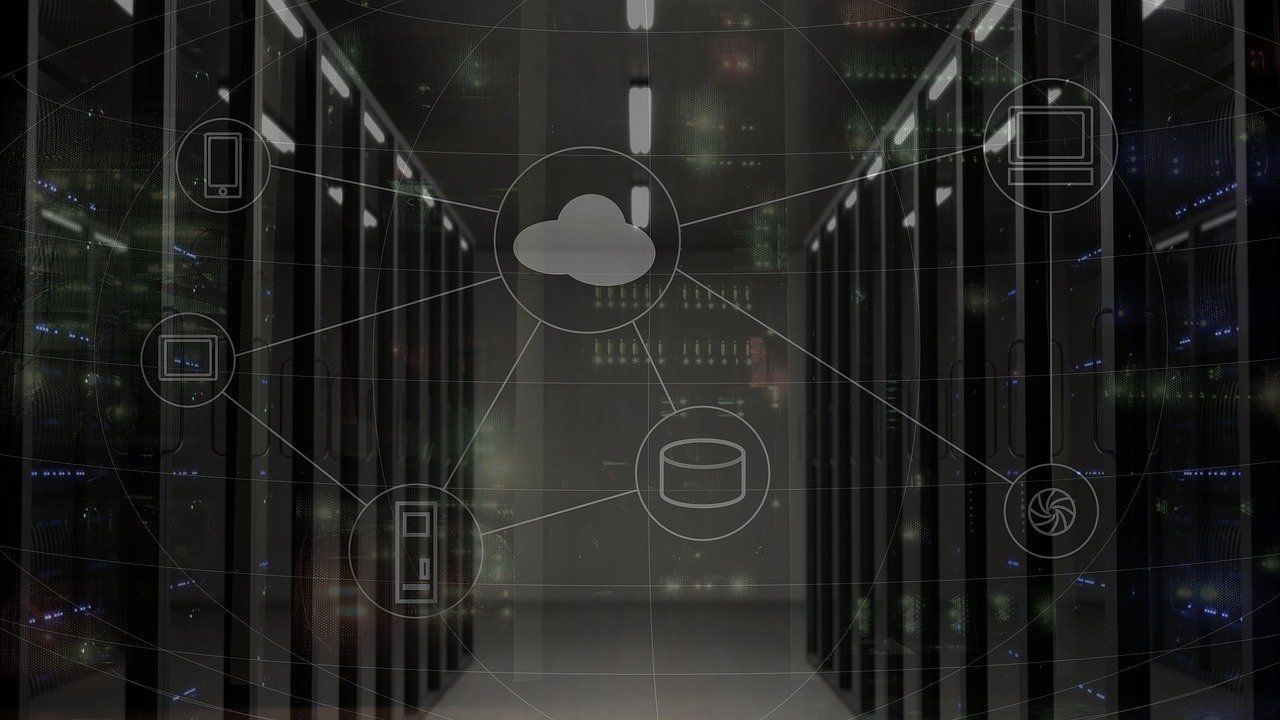 Cloud computing has grown exponentially in the past decade and is not about to stop. As predicted by Forrester’s research, the global public cloud infrastructure will grow 35% in 2021, many thanks to the pandemic. Due to the lingering effects of covid-19 in 2021, the cloud will be the key focus for organizations looking for increased scalability, business continuity, and cost-efficiency.
Cloud computing has grown exponentially in the past decade and is not about to stop. As predicted by Forrester’s research, the global public cloud infrastructure will grow 35% in 2021, many thanks to the pandemic. Due to the lingering effects of covid-19 in 2021, the cloud will be the key focus for organizations looking for increased scalability, business continuity, and cost-efficiency.
369. Living in the world of AI - The Human Transformation
 Today, if you stop and ask anyone working in a technology company, “What is the one thing that would help them change the world or make them grow faster than anyone else in their field?” The answer would be Data. Yes, data is everything. Because data can essentially change, cure, fix, and support just about any problem. Data is the truth behind everything from finding a cure for cancer to studying the shifting weather patterns.
Today, if you stop and ask anyone working in a technology company, “What is the one thing that would help them change the world or make them grow faster than anyone else in their field?” The answer would be Data. Yes, data is everything. Because data can essentially change, cure, fix, and support just about any problem. Data is the truth behind everything from finding a cure for cancer to studying the shifting weather patterns.
370. How to Protect Yourself From Sim Swap Attacks
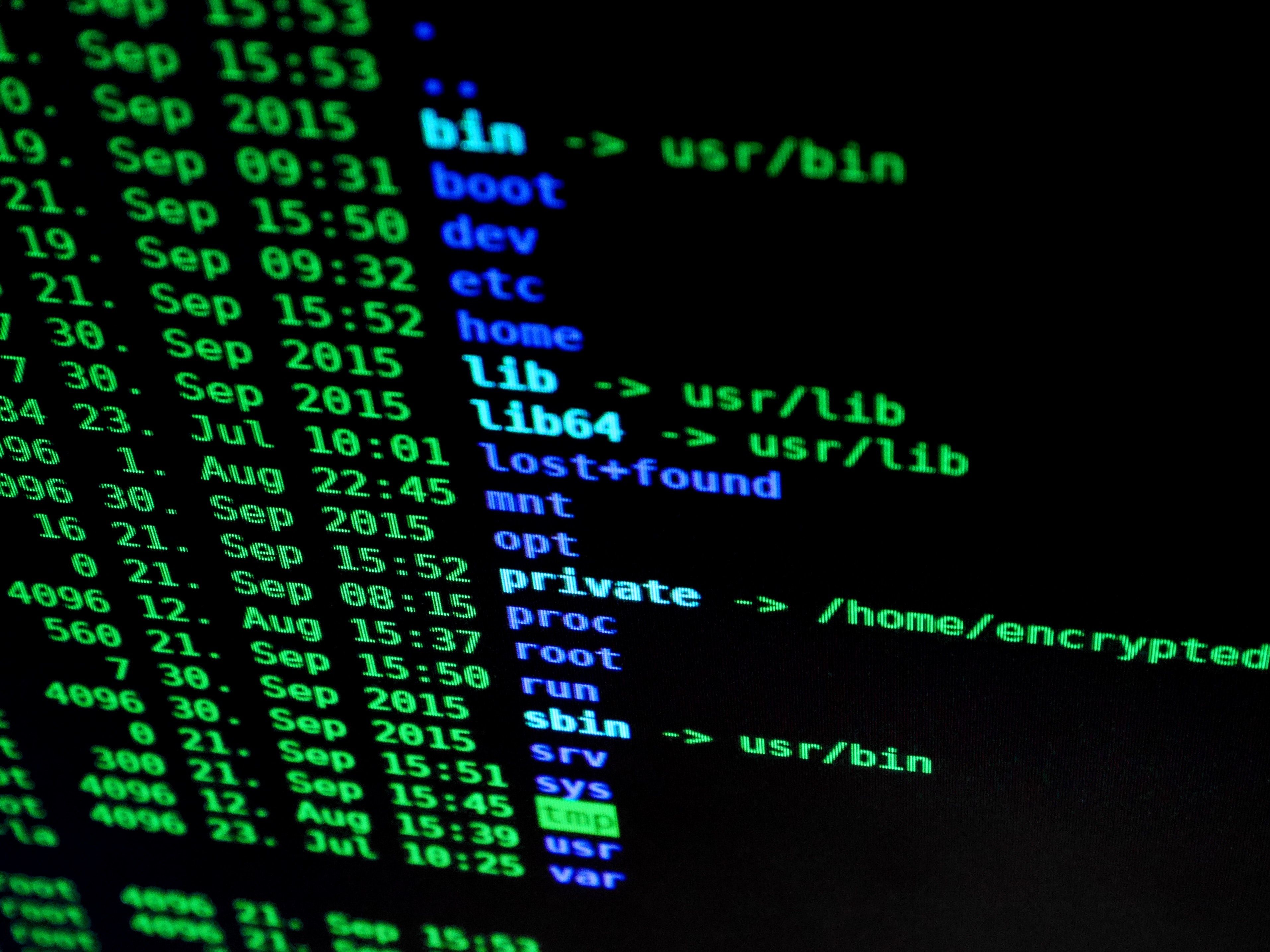 If they can get Jack Dorsey they can get you… learn the simple ways to protect yourself against Sim Swapping Attacks.
If they can get Jack Dorsey they can get you… learn the simple ways to protect yourself against Sim Swapping Attacks.
371. You’ve Never Heard Of These Sites, But They Know A Lot About You
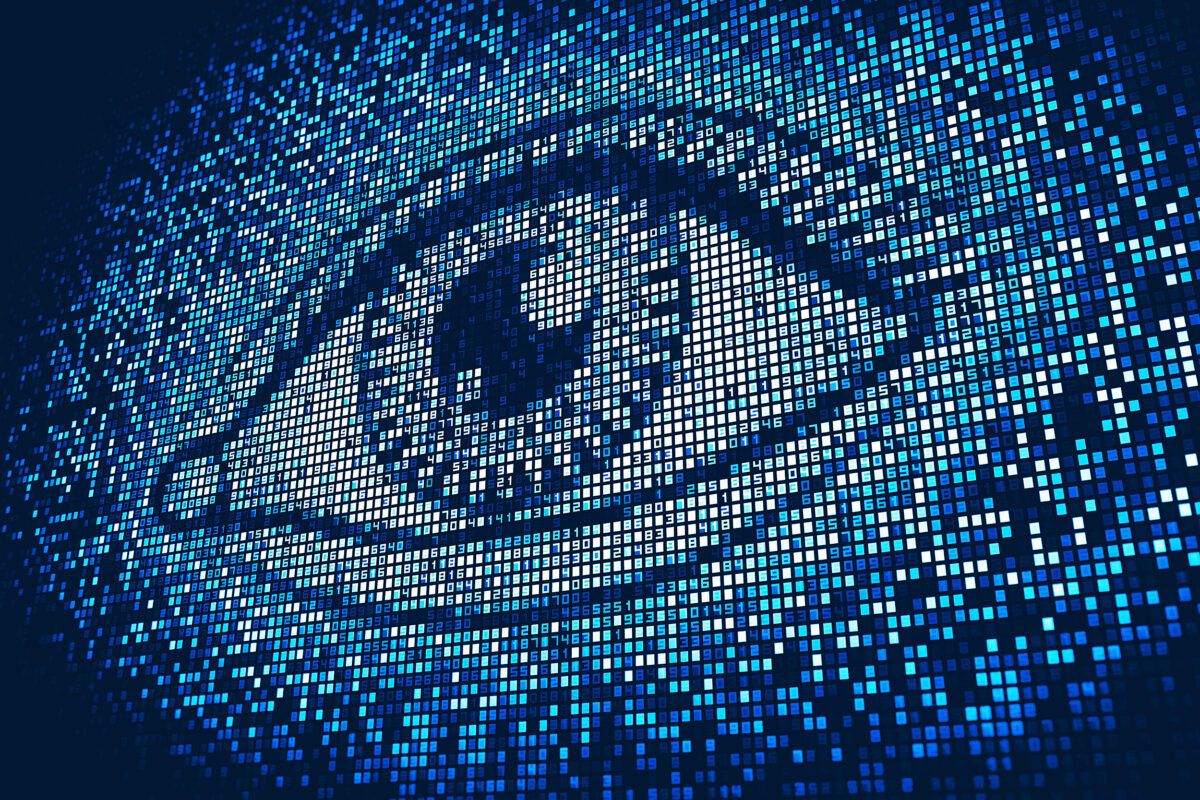 A Marriage And A Funeral
A Marriage And A Funeral
372. Tor Vs. VPN: Which is Better
 What is Tor
What is Tor
373. How to Filter NSFW Images and Programmatically Blur Them
 In this article, you will learn how to detect NSFW and inappropriate images and programmatically blur them.
In this article, you will learn how to detect NSFW and inappropriate images and programmatically blur them.
374. WTF are VPN Protocols?
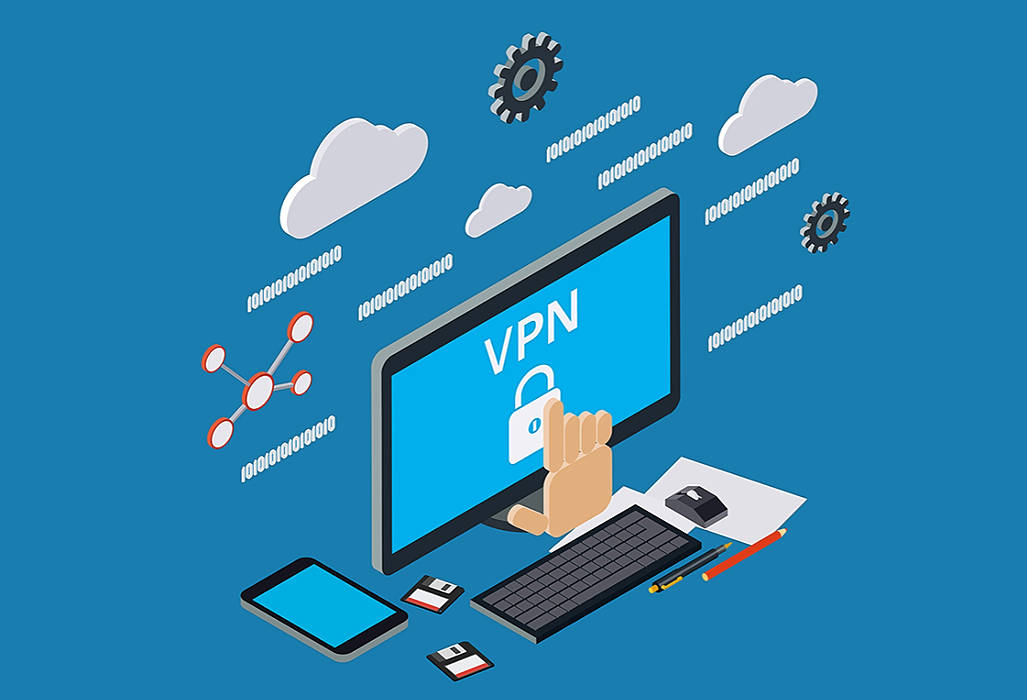 Virtual Private Networks are compared in many aspects: some are judged by their speed, others by their server amount, and the reputation of all is put under the looking glass. However, only on rare occasion VPN protocols are brought into the light. And there are a few reasons for that.
Virtual Private Networks are compared in many aspects: some are judged by their speed, others by their server amount, and the reputation of all is put under the looking glass. However, only on rare occasion VPN protocols are brought into the light. And there are a few reasons for that.
375. The 4 Main Types of Data Breaches: Definition and Examples
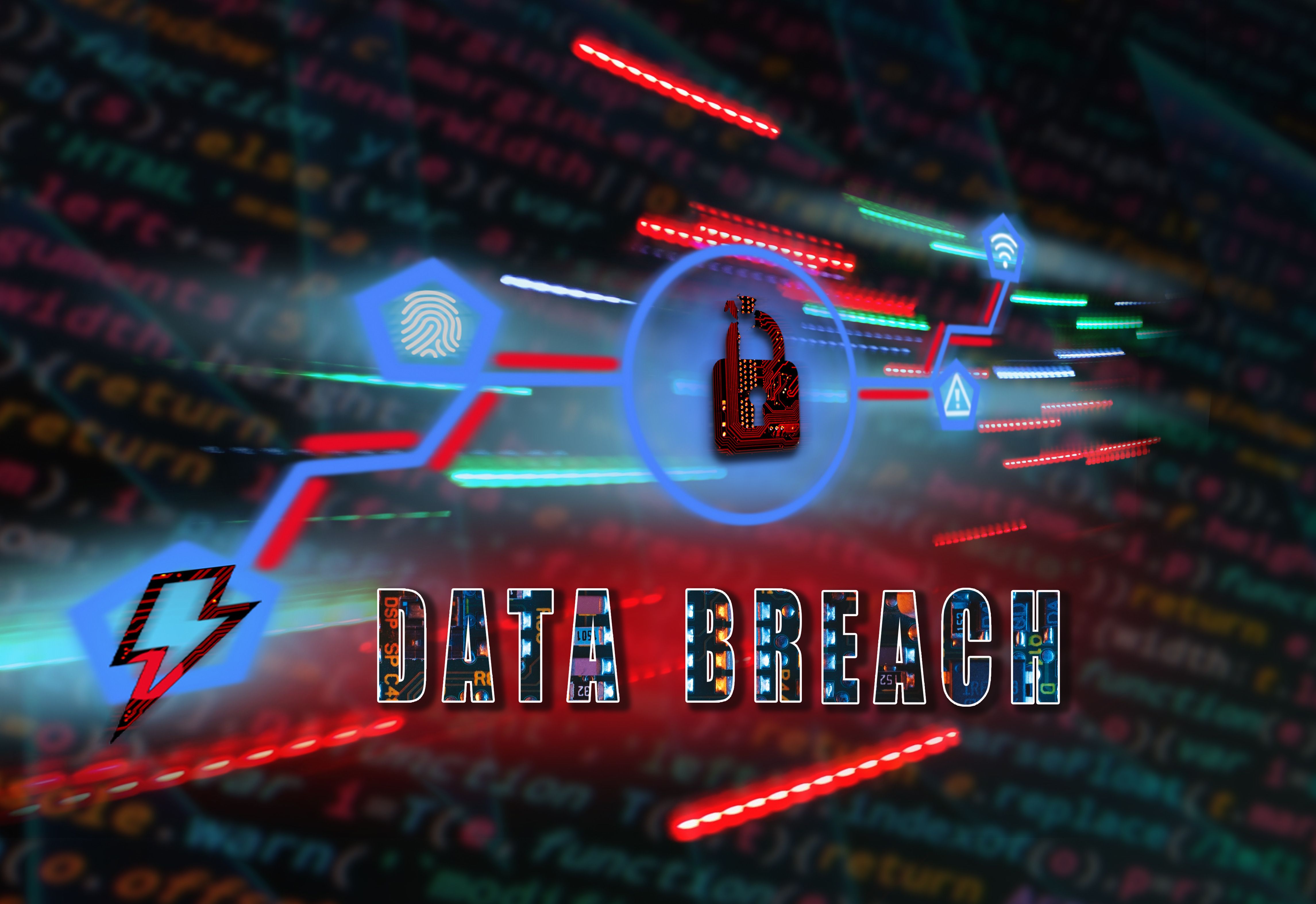 A data breach is a serious security violation; unfortunately, it can happen to the best of us. Let’s learn and keep aware of it together.
A data breach is a serious security violation; unfortunately, it can happen to the best of us. Let’s learn and keep aware of it together.
376. Can DeFi Asset Management Services Co-Exist With Privacy and Permissionless Ideals?
 DeFi continues to play a crucial role in the evolution of the financial sector for many reasons. For one, it is an open and permissionless system that is available to everyone.
DeFi continues to play a crucial role in the evolution of the financial sector for many reasons. For one, it is an open and permissionless system that is available to everyone.
377. Stay Safe While Holiday Shopping Online
 Scammers go on the naughty list.
Scammers go on the naughty list.
378. Is Data Privacy Different in The 21st Century?
 The digital age brought numerous conveniences that are appreciated to date; however, other concerns arose as the dark side of technology started to show itself.
The digital age brought numerous conveniences that are appreciated to date; however, other concerns arose as the dark side of technology started to show itself.
379. These Password Essentials Will Keep Hackers At Bay
 One of the common ways hackers target online users is by cracking their passwords. In this article, I will share tips on how to ensure your passwords are secure to keep hackers at bay.
One of the common ways hackers target online users is by cracking their passwords. In this article, I will share tips on how to ensure your passwords are secure to keep hackers at bay.
380. 7 Sneaky Ways Hackers Are Using Machine Learning to Steal Your Data
 Machine learning is famous for its ability to analyze large data sets and identify patterns. It is basically a subset of artificial intelligence. Machine learning uses algorithms that leverages previous data-sets and statistical analysis to make assumptions and pass on judgments about behavior.
The best part, software or computers powered by machine learning algorithms can perform functions that they have not been programmed to perform.
Machine learning is famous for its ability to analyze large data sets and identify patterns. It is basically a subset of artificial intelligence. Machine learning uses algorithms that leverages previous data-sets and statistical analysis to make assumptions and pass on judgments about behavior.
The best part, software or computers powered by machine learning algorithms can perform functions that they have not been programmed to perform.
381. What is an Email Alias and Why You Should Stop Using Your Real Email Address
 Learn how to declutter your mailbox and avoid spam by using email aliases. It's free, effective, and will save you hours of scanning through emails.
Learn how to declutter your mailbox and avoid spam by using email aliases. It's free, effective, and will save you hours of scanning through emails.
382. You're Never Fully Protected Using iMessage
 This time, I would like to take a closer look at another popular messaging platform — Apple iMessage.
This time, I would like to take a closer look at another popular messaging platform — Apple iMessage.
383. We Open-Sourced our Encryption Software: Here's Why
 Can open-source software be profitable? Can you monetize open-source software? Forget numbers - your code cannot flourish in the dark.
Can open-source software be profitable? Can you monetize open-source software? Forget numbers - your code cannot flourish in the dark.
384. Who Has the Power to Break Up Big Tech?
 The Big Five tech companies — Amazon, Apple, Facebook, Microsoft and Google owner Alphabet — have come under serious scrutiny in the past few years.
The Big Five tech companies — Amazon, Apple, Facebook, Microsoft and Google owner Alphabet — have come under serious scrutiny in the past few years.
385. Building Trust And Security In A Collaborative P2P Marketplace - Why ID Verification Is Critical
 Of late, a growing number of users have been participating in the sharing economy. Whether you're renting an AirBnB, requesting a ride on Uber, or using peer-to-peer (P2P) lenders for a loan, the peer-to-peer marketplace is growing rapidly.
Of late, a growing number of users have been participating in the sharing economy. Whether you're renting an AirBnB, requesting a ride on Uber, or using peer-to-peer (P2P) lenders for a loan, the peer-to-peer marketplace is growing rapidly.
386. VPNs for Netflix: Benefits and Must-Have Features

387. Great, Frightening Front-Page Creative From Amsterdam This Morning
 Tell me this Here's Johnny / Psycho mash-up from today's Volkskrant doesn't straight up say 'Actual Footage from 2319' and/or strike terror into your very soul:
Tell me this Here's Johnny / Psycho mash-up from today's Volkskrant doesn't straight up say 'Actual Footage from 2319' and/or strike terror into your very soul:
388. Self-Sovereign Identity Based Access Controls or SSIBACs: An Overview
 A recent academic paper uses Hyperledger infrastructure to conduct access control processes using decentralized identifiers, verifiable credentials, and conventional access control models.
A recent academic paper uses Hyperledger infrastructure to conduct access control processes using decentralized identifiers, verifiable credentials, and conventional access control models.
389. Compartmentalisation As A Means For Ensuring Privacy [An Overview]
 It was originally used by the Greeks to keep the secret of Greek fire, but now it is used by people all around the world for lots of different reasons.
It was originally used by the Greeks to keep the secret of Greek fire, but now it is used by people all around the world for lots of different reasons.
390. How Private Are Your Blockchain Transactions?
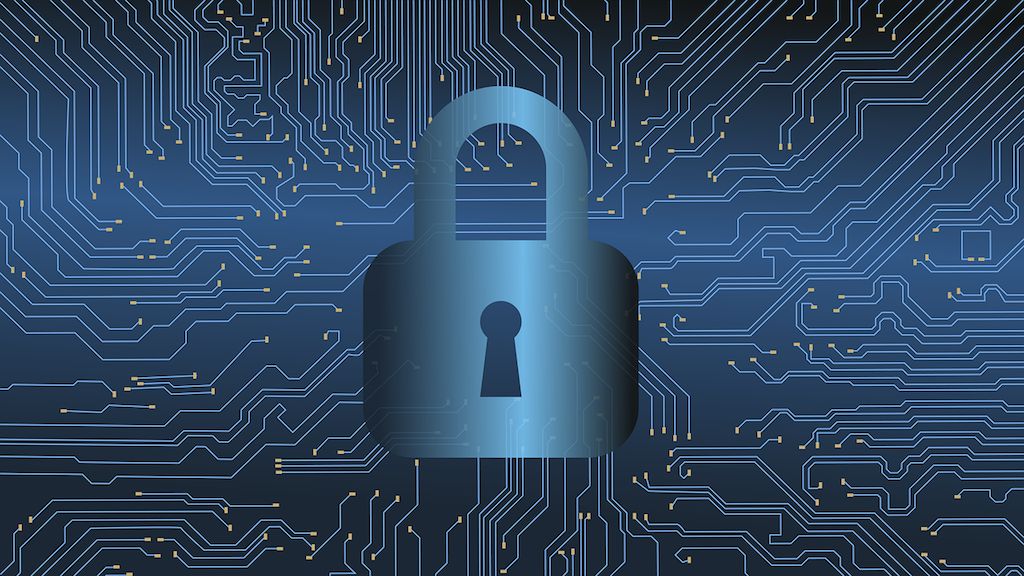 Multiple projects have been working on various blockchain scaling solutions, such as Sharding and Plasma offer greater scalability and Privacy.
Multiple projects have been working on various blockchain scaling solutions, such as Sharding and Plasma offer greater scalability and Privacy.
391. Hacking Facial Recognition: How To Protect Your Company Agaist It
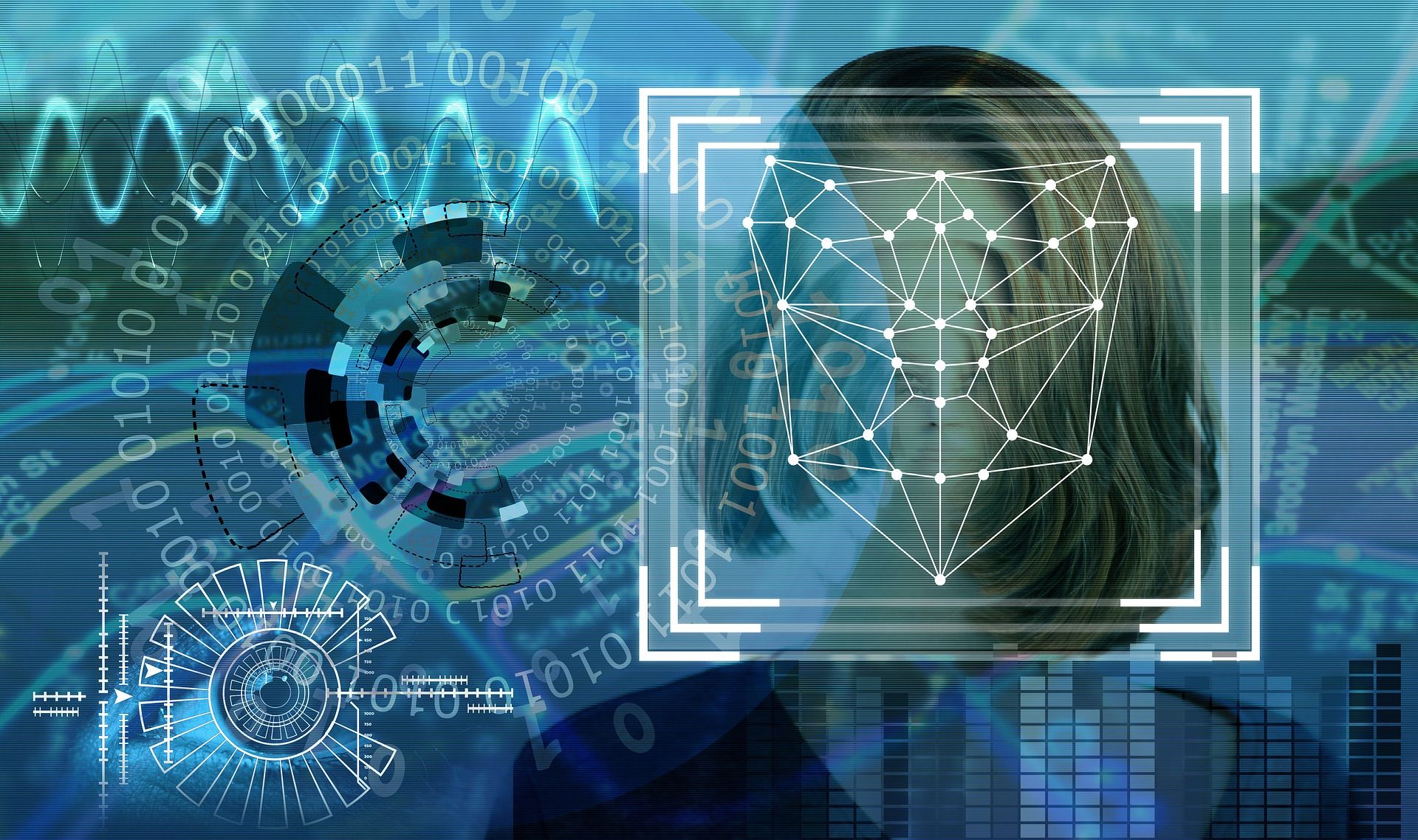 Identity theft cases are increasing. There are varying levels of security, and not all facial biometrics software protects against more cunning tricks.
Identity theft cases are increasing. There are varying levels of security, and not all facial biometrics software protects against more cunning tricks.
[392. Differential Privacy with Tensorflow 2.0 : Multi class Text Classification
Privacy](https://hackernoon.com/differential-privacy-with-tensorflow-20-multi-class-text-classification-privacy-yk7a37uh)
 Introduction
Introduction
393. Data-Driven Advertising and Its Impact On Our Privacy-Driven World
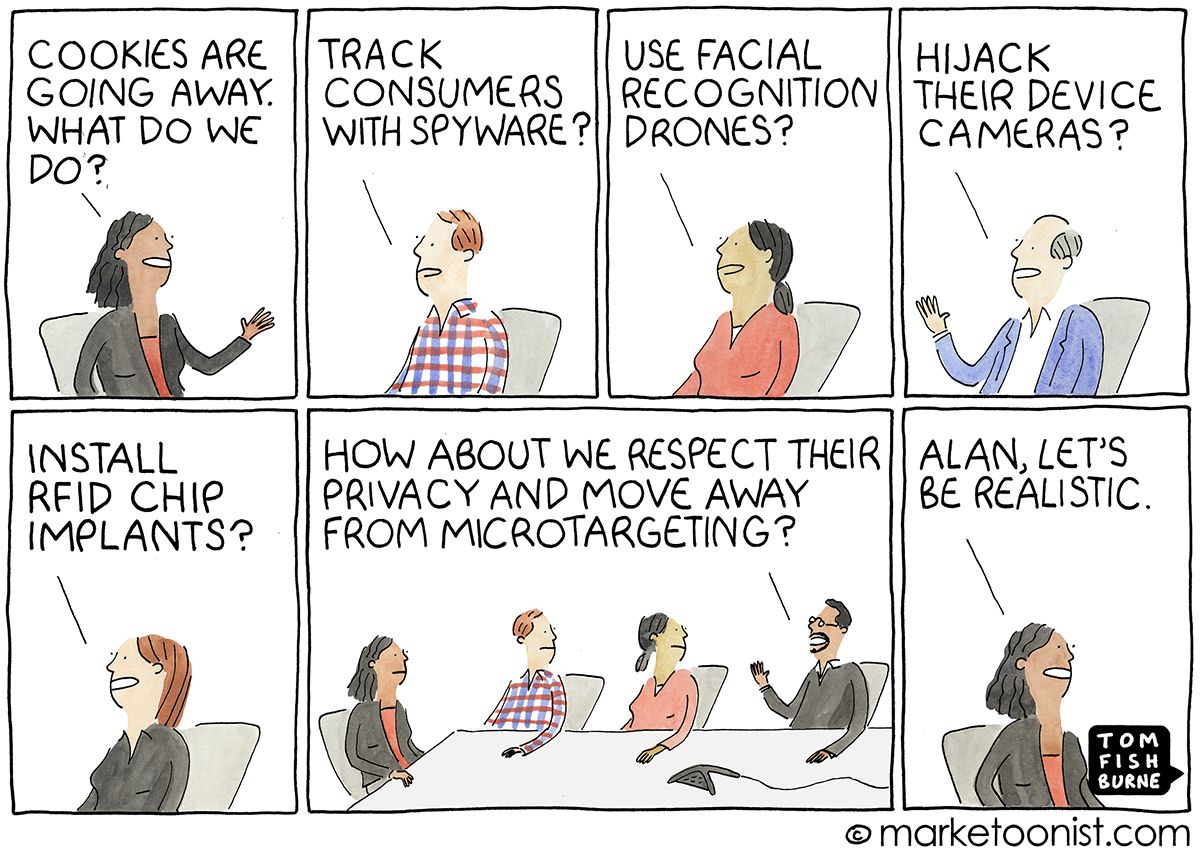 Do we actually need so much data to do effective marketing?
Do we actually need so much data to do effective marketing?
394. The DeFi Boom And Its Impact On The Privacy of Crypto-Transactions
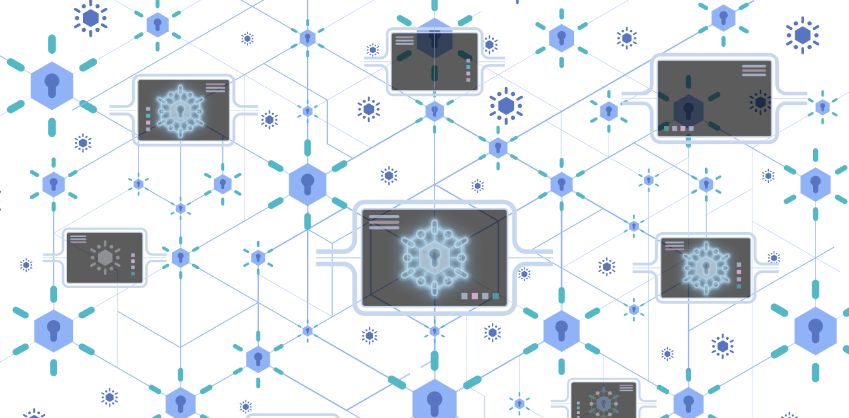 Privacy in DeFi protocols that run mostly on the Ethereum Blockchain are an issue. Findora, Secret and Incognito try to solve this issue
Privacy in DeFi protocols that run mostly on the Ethereum Blockchain are an issue. Findora, Secret and Incognito try to solve this issue
395. When End-to-End Encryption and Open Source Come Together in a Messaging Platform
 Recently, WhatsApp updated its privacy policy. This event, along with the ongoing discussions on privacy concerns about the online platforms we used every day, created interest in fields of privacy and security and migration to other messaging platforms such as Signal.
Recently, WhatsApp updated its privacy policy. This event, along with the ongoing discussions on privacy concerns about the online platforms we used every day, created interest in fields of privacy and security and migration to other messaging platforms such as Signal.
396. How Nexera ID is Bringing Privacy and Security to DeFi
 AllianceBlock is helping to close the gap between decentralised finance and traditional finance by solving problems in both areas and bringing them closer.
AllianceBlock is helping to close the gap between decentralised finance and traditional finance by solving problems in both areas and bringing them closer.
397. ZK Rollups in 2023: From SNARK to STARK and Beyond
 ZK rollups are capturing the attention of the industry. Will they be the future of rollups? Are they good investments? Read this complete guide and research.
ZK rollups are capturing the attention of the industry. Will they be the future of rollups? Are they good investments? Read this complete guide and research.
398. Why Privacy Matters And How To Stop Online Harassment
 All the actions people perform on the Internet is a mass give-away. The content you post on Instagram, your e-shopping patterns, and search history is a precious data set – it transforms into a commodity. The frankest questions we ask is not to our friends, but Google!
All the actions people perform on the Internet is a mass give-away. The content you post on Instagram, your e-shopping patterns, and search history is a precious data set – it transforms into a commodity. The frankest questions we ask is not to our friends, but Google!
399. Google Analytics & Privacy: Why Does it Matter?
 If you're running a website with Google Analytics installed, you may be wondering how it affects the privacy of your website's visitors. There's a growing distrust towards the digital advertising sector but what are the actual issues besides calling out 'creepy' ads? Let's discuss the wider ethical questions around personal data collection and digital targeting.
If you're running a website with Google Analytics installed, you may be wondering how it affects the privacy of your website's visitors. There's a growing distrust towards the digital advertising sector but what are the actual issues besides calling out 'creepy' ads? Let's discuss the wider ethical questions around personal data collection and digital targeting.
400. Privacy Coins vs Nation State Crypto and the War for the Soul of the World

401. Ten Underground Tech Masterminds You Probably Haven't Heard Enough About
 The history of technology, intended here in a narrow sense as the history of information technology, rests on the shoulders of a small handful of giants.
The history of technology, intended here in a narrow sense as the history of information technology, rests on the shoulders of a small handful of giants.
402. Why Google Entering The VPN Marketplace Means it’s Time to Take Mobile Security Seriously
 VPNs are sometimes seen as an optional luxury when it comes to safeguarding your personal information online, but with Google entering the fray with its own service will mobile VPNs finally get noticed?
VPNs are sometimes seen as an optional luxury when it comes to safeguarding your personal information online, but with Google entering the fray with its own service will mobile VPNs finally get noticed?
403. What Does Your Browser Know About You?
 Find out what your browser knows and reveals about you with this free browser privacy test tool. Built by the team behind Avast Secure Browser.
Find out what your browser knows and reveals about you with this free browser privacy test tool. Built by the team behind Avast Secure Browser.
404. Cracking The HMAC Message Authentication System In Cryptography
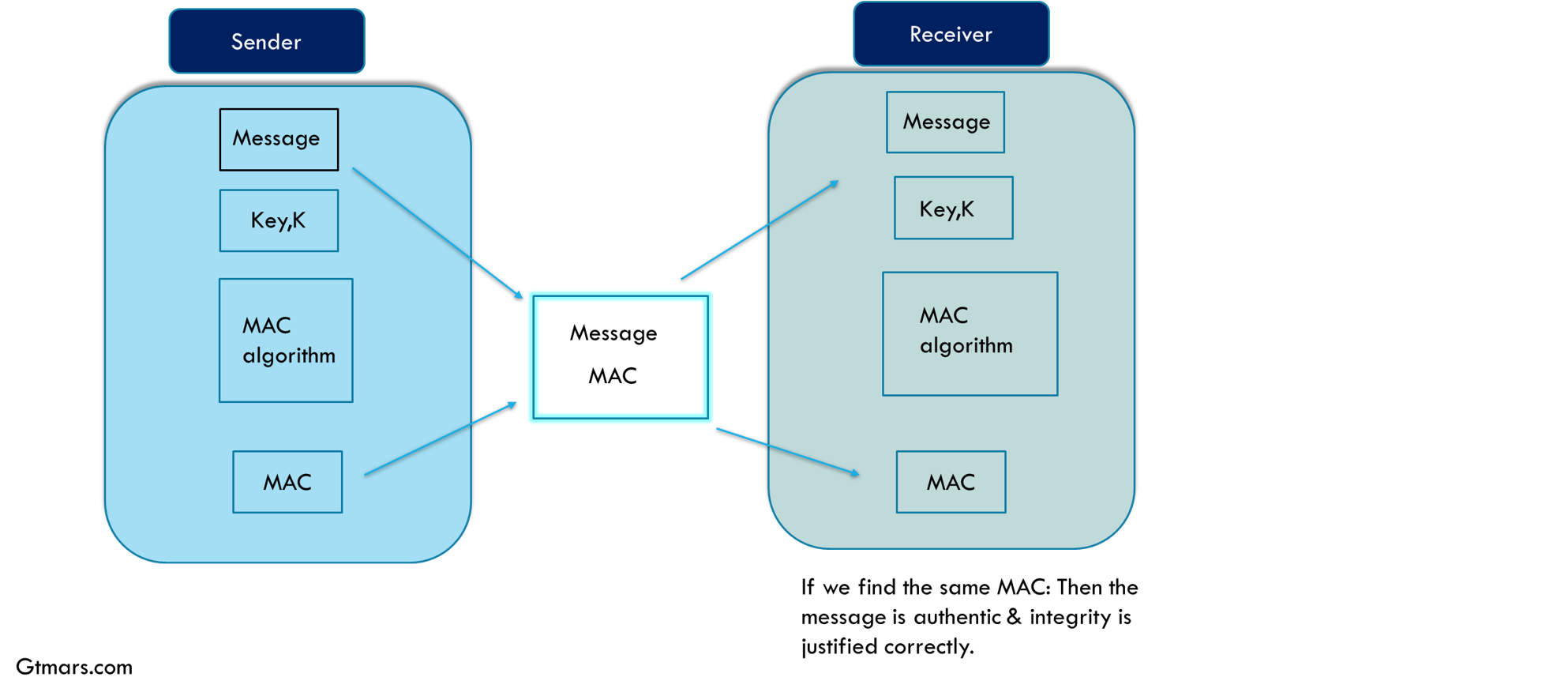 ★ HMAC, a popular authentication mechanism used for authenticating a message using cryptographic hash functions.
★ HMAC, a popular authentication mechanism used for authenticating a message using cryptographic hash functions.
405. Recap: The TikTok Saga and the Problems Facing this Massive Platform
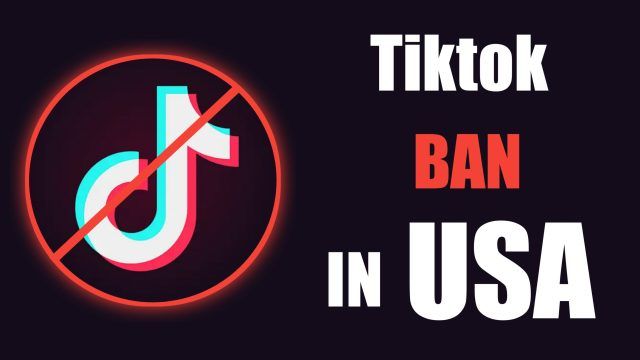 This past weekend came as quite a shock to a vast amount of netizens in the United States. While having a conversation with reporters on Air Force 1, president Donald Trump mentioned banning TikTok in the U.S., a video sharing social platform with 165 million downloads in the region, that is accused of providing data to the Chinese government.
This past weekend came as quite a shock to a vast amount of netizens in the United States. While having a conversation with reporters on Air Force 1, president Donald Trump mentioned banning TikTok in the U.S., a video sharing social platform with 165 million downloads in the region, that is accused of providing data to the Chinese government.
406. Reasons Why Data Privacy Matters
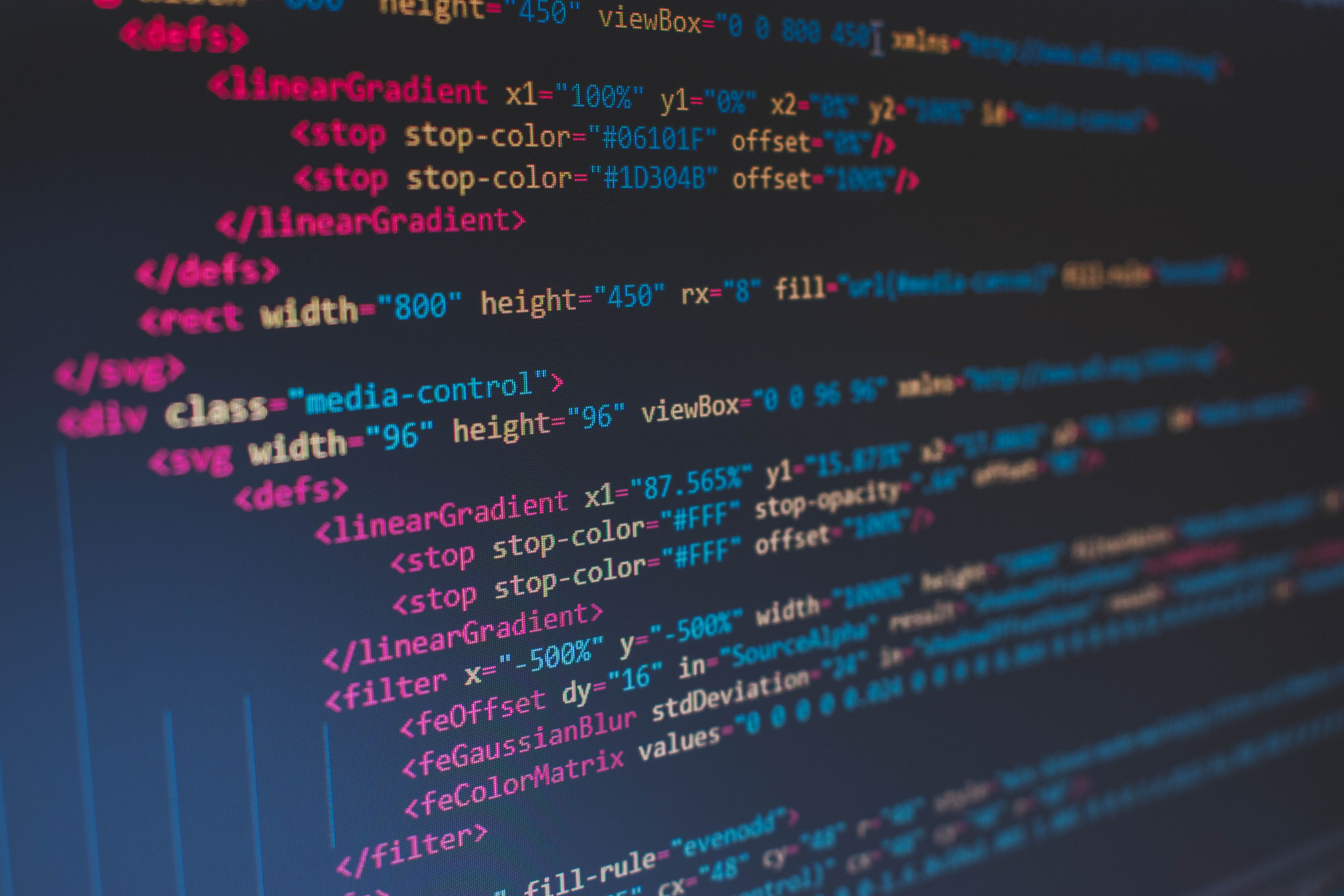 Data privacy is one of the hottest topics in tech conversation. But what's the deal with it? Is it good? Is It bad? Keep reading to find out.
Data privacy is one of the hottest topics in tech conversation. But what's the deal with it? Is it good? Is It bad? Keep reading to find out.
407. Organize and Protect Your Online Data
 Online security is a vitally important consideration in this day and age. From doxxing to ransomware to identity theft, hacking online accounts is one of the most popular ways for the modern criminal makes his living. Keeping your online data organized and secure can take many forms, but it's not really an optional safety measure anymore. You must do all you can to protect your online data. Here are a few options for how to achieve that goal.
Online security is a vitally important consideration in this day and age. From doxxing to ransomware to identity theft, hacking online accounts is one of the most popular ways for the modern criminal makes his living. Keeping your online data organized and secure can take many forms, but it's not really an optional safety measure anymore. You must do all you can to protect your online data. Here are a few options for how to achieve that goal.
408. AvionDB: A MongoDB-like Distributed Database
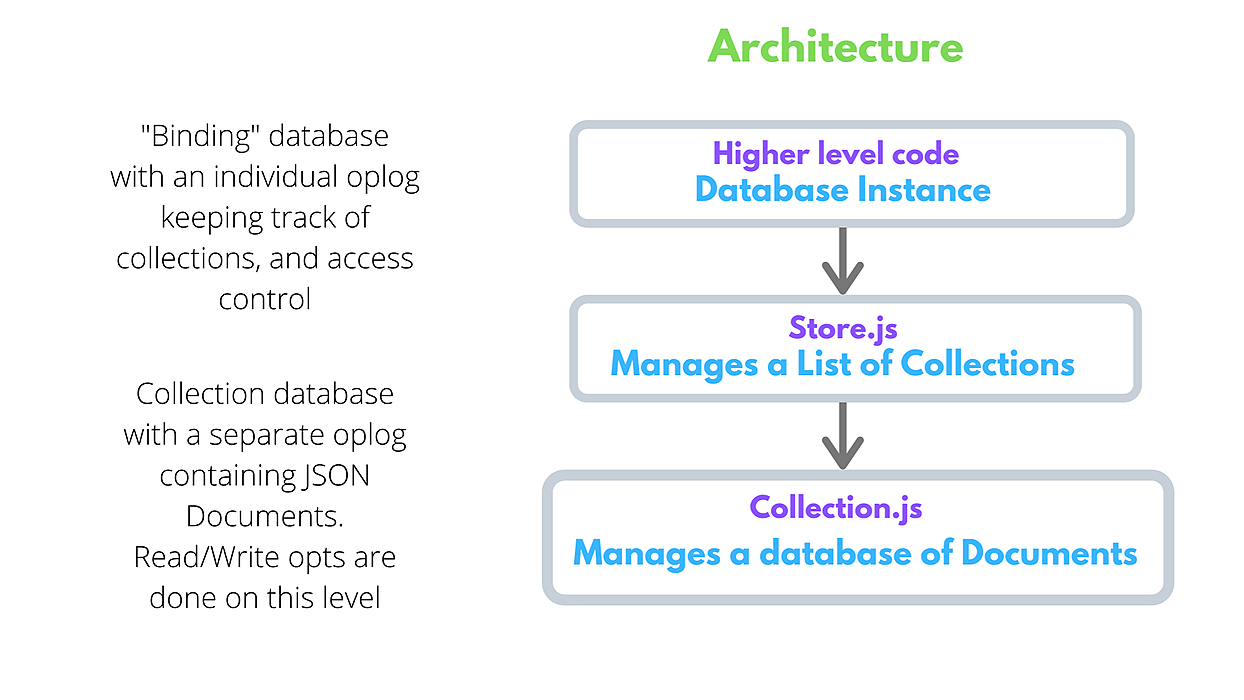 In the past few months we have been getting this question a lot:
In the past few months we have been getting this question a lot:
409. Happy Birthday, Internet!
 How Proof of Connectivity can enable the deployment of internet services and internet access everywhere
How Proof of Connectivity can enable the deployment of internet services and internet access everywhere
410. An Intro to Privacy Enhancing Technologies (PET) and Why We Need Them
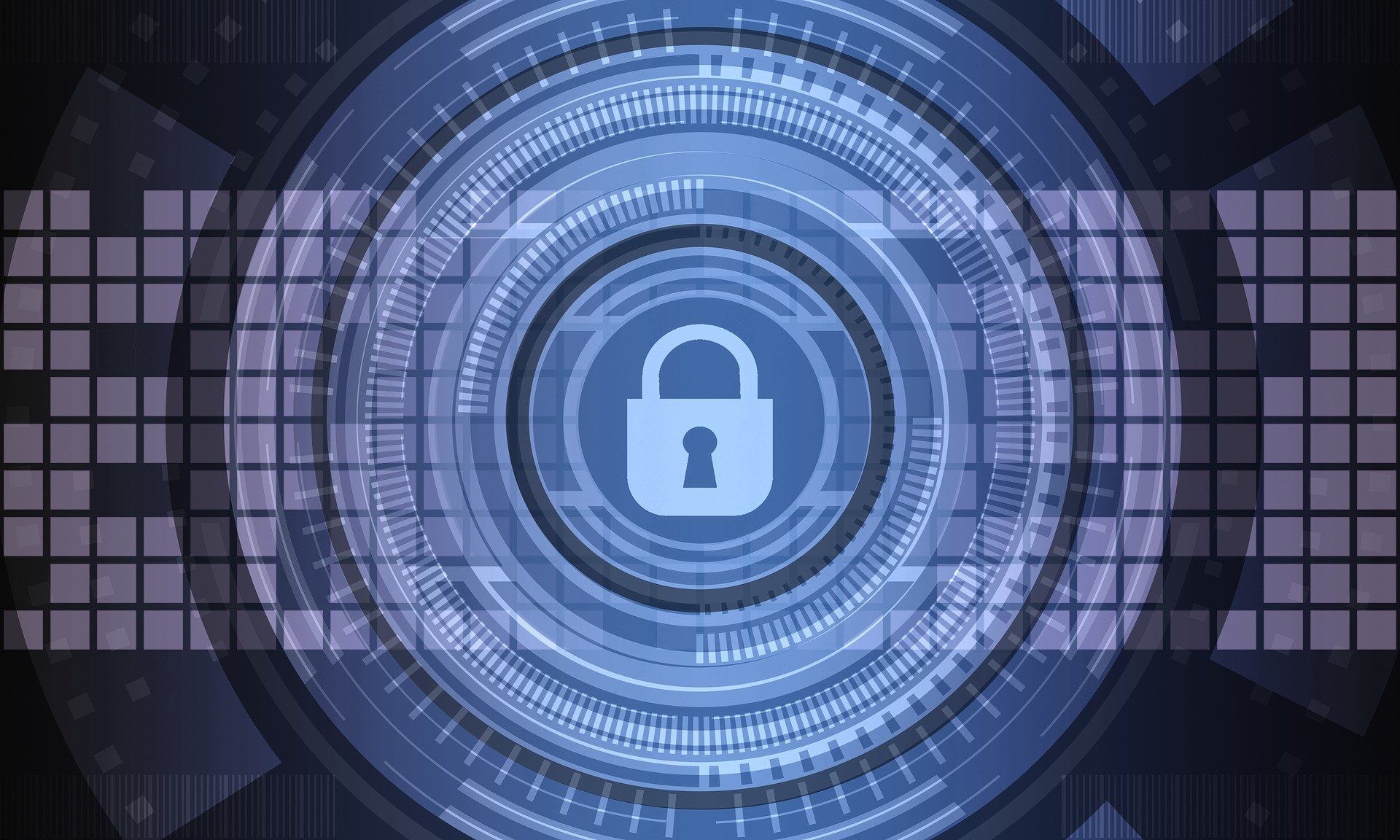 After 2021, a year already marked by the amount - and the size - of data leaks and cyberattacks, PET will be one of the best defensive techniques.
After 2021, a year already marked by the amount - and the size - of data leaks and cyberattacks, PET will be one of the best defensive techniques.
411. What Hackers Do With Your Data
 4 ways your data is being used without your knowledge
4 ways your data is being used without your knowledge
412. What Will Happen to The Marketing Industry After Third-Party Cookies Are Eliminated?
 By 2022, Google plans to entirely eliminate third-party cookie tracking in Chrome browser. The post-cookie AtTech market is shaking up — here is what to expect.
By 2022, Google plans to entirely eliminate third-party cookie tracking in Chrome browser. The post-cookie AtTech market is shaking up — here is what to expect.
413. Does The Best Secure Email Really Exist?
 In case you are not in raptures when corporations persistently feed you with targeted advertising and 'bad guys' gain access to your private data, probably you need to replace your email service to more secure analogue with reliable encryption.
In case you are not in raptures when corporations persistently feed you with targeted advertising and 'bad guys' gain access to your private data, probably you need to replace your email service to more secure analogue with reliable encryption.
414. Why Using a VPN is the Best Way to Protect Your Personal Data When Surfing the Web
 The internet is an amazing place. It’s grown from a military network into a vast virtual universe populated by trillions of web pages. There are currently around 1.5 billion websites, but that figure is increasing daily. As the world’s population increases, so does this vast resource we call the internet.
The internet is an amazing place. It’s grown from a military network into a vast virtual universe populated by trillions of web pages. There are currently around 1.5 billion websites, but that figure is increasing daily. As the world’s population increases, so does this vast resource we call the internet.
415. DuckDuckGo Is A Step In The Right Direction For User Privacy

416. The Internet is Broken. Can Crypto Fix It?

417. Dokia Capital, Andreessen Horowitz backed Figment and Swisscom Join NYM as Validators
 Nym onboards Dokia Capital, Andreessen Horowitz backed Figment and Swisscom as Validators.
Nym onboards Dokia Capital, Andreessen Horowitz backed Figment and Swisscom as Validators.
418. Kris Adair, Mycroft AI CFO, On What It's Like Working In Currently The Fastest Adopted Technology
 Mycroft AI, startup of the year nominee, is the open source and privacy focused answer to voice assistants from Big Tech. Meet Kris Adair, CFO & co-founder.
Mycroft AI, startup of the year nominee, is the open source and privacy focused answer to voice assistants from Big Tech. Meet Kris Adair, CFO & co-founder.
419. DAO Core Bases on Leo Smart Contracts
 Description DAO Core bases on Leo smart contracts, theoretical problems, mathematical model
Description DAO Core bases on Leo smart contracts, theoretical problems, mathematical model
420. Why Apple Will Become More Powerful Amid the COVID-19 Pandemic
 Apple will emerge from the COVID-19 pandemic as an even more powerful and important company. Indeed, COVID-19 may prove to be Apple’s finest hour. During the first 30 days of the pandemic’s escalation in the United States, Apple stepped up in significant ways, the most notable example being the formation of a relationship with Google to contain the virus with contact-tracing technology. In addition, Apple has, among other actions:
Apple will emerge from the COVID-19 pandemic as an even more powerful and important company. Indeed, COVID-19 may prove to be Apple’s finest hour. During the first 30 days of the pandemic’s escalation in the United States, Apple stepped up in significant ways, the most notable example being the formation of a relationship with Google to contain the virus with contact-tracing technology. In addition, Apple has, among other actions:
421. How to Protect Folders And Files in Windows using Passwords
 Sometimes, we need to apply a bit of extra protection to the data on our computers. We might want to protect our tax records from prying eyes, or lock away business plans from our competitors. Or we might just want to ensure that any children with access to our device can't access inappropriate content.
Sometimes, we need to apply a bit of extra protection to the data on our computers. We might want to protect our tax records from prying eyes, or lock away business plans from our competitors. Or we might just want to ensure that any children with access to our device can't access inappropriate content.
422. Homomorphic Encryption — for Web Apps 🧐 (Part 2)
 In case you missed the previous article (Part 1), I gave a very brief introduction on Homomorphic Encryption (HE), talked about Microsoft SEAL’s library, and outlined some of the pain points of learning to use it.
In case you missed the previous article (Part 1), I gave a very brief introduction on Homomorphic Encryption (HE), talked about Microsoft SEAL’s library, and outlined some of the pain points of learning to use it.
423. Coronavirus is Quietly but Surely Eroding Our Privacy

424. Is There a Future for Cryptocurrencies Without Privacy Features?
 Many people think that Bitcoin, Ethereum, and other public blockchains all offer privacy by default. Unfortunately, that is not the case
Many people think that Bitcoin, Ethereum, and other public blockchains all offer privacy by default. Unfortunately, that is not the case
425. Rethinking Email Threat Detection Models for Enterprises [A Deep Dive]
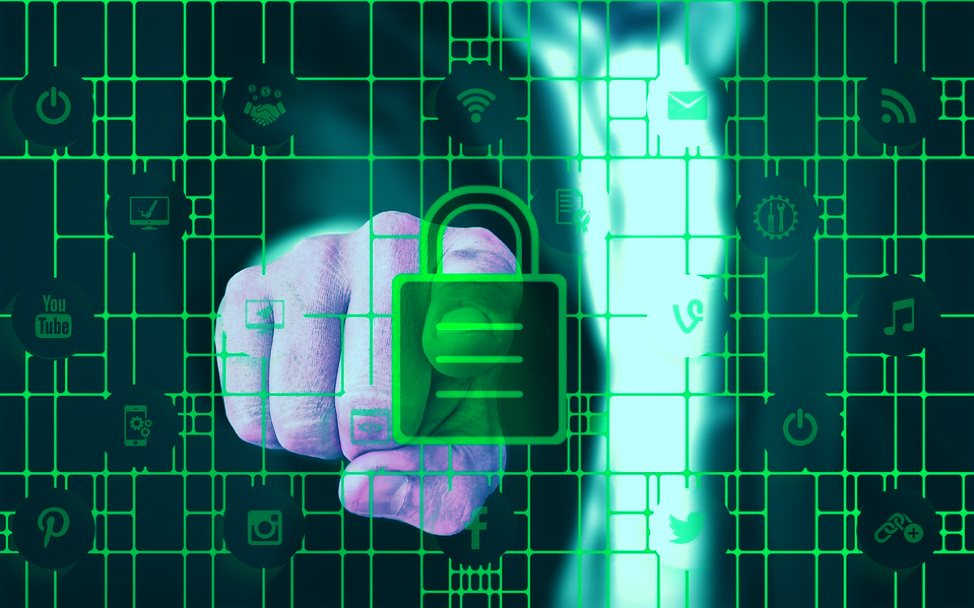 Contrary to what millennial work and communication habits may suggest, email is not dead. It is still an important part of both personal and enterprise communications.
Contrary to what millennial work and communication habits may suggest, email is not dead. It is still an important part of both personal and enterprise communications.
426. Building Leave Me Alone in the Open
 Our new approach to making and launching
Our new approach to making and launching
427. The Most Expensive Things in Life are “Free of Charge” - Protect Your Data
 Digital Footprint is everywhere online. It is all the activities you do with keyboard and mouse, in addition to what we tap and swipe on our mobile devices.
Digital Footprint is everywhere online. It is all the activities you do with keyboard and mouse, in addition to what we tap and swipe on our mobile devices.
428. The Tornado Cash Ban and Chaos Agents
 The U.S Government announced recently that it would be placing a ban on the Ethereum coin mixing service Tornado Cash.
The U.S Government announced recently that it would be placing a ban on the Ethereum coin mixing service Tornado Cash.
429. Illusion of Choice: You Aren't Deciding How Important Your Privacy Is
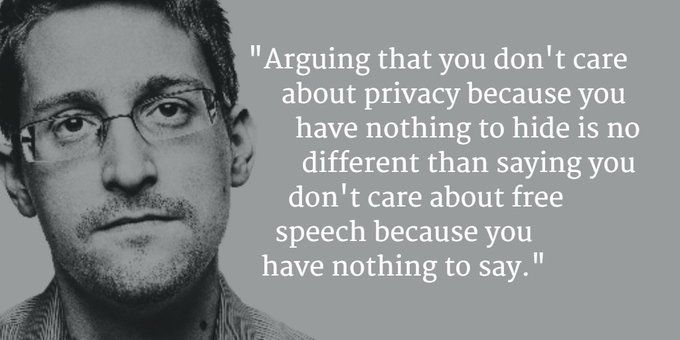 The above statement is easily the most eloquent justification of privacy that I've seen. Thanks in large part to Snowden, the past decade has seen large parts of society become serious about data privacy, but it still feels like an overwhelming number of people can't be bothered to give this issue even a second of their time.
The above statement is easily the most eloquent justification of privacy that I've seen. Thanks in large part to Snowden, the past decade has seen large parts of society become serious about data privacy, but it still feels like an overwhelming number of people can't be bothered to give this issue even a second of their time.
430. Generating Databases for Tests or Other Purposes
 Some time ago, a friend told me that she was having trouble testing a certain application. All test solutions stressed the platform correctly, generated relevant scalability results, but at the same time they looked very artificial, she said. Well, as a self-proclaimed information security student, also known as the weird-looking-guy-guy, I could adapt some of my studies to the case.
Some time ago, a friend told me that she was having trouble testing a certain application. All test solutions stressed the platform correctly, generated relevant scalability results, but at the same time they looked very artificial, she said. Well, as a self-proclaimed information security student, also known as the weird-looking-guy-guy, I could adapt some of my studies to the case.
431. Proposition 24: What you Need to Know About Data Privacy America
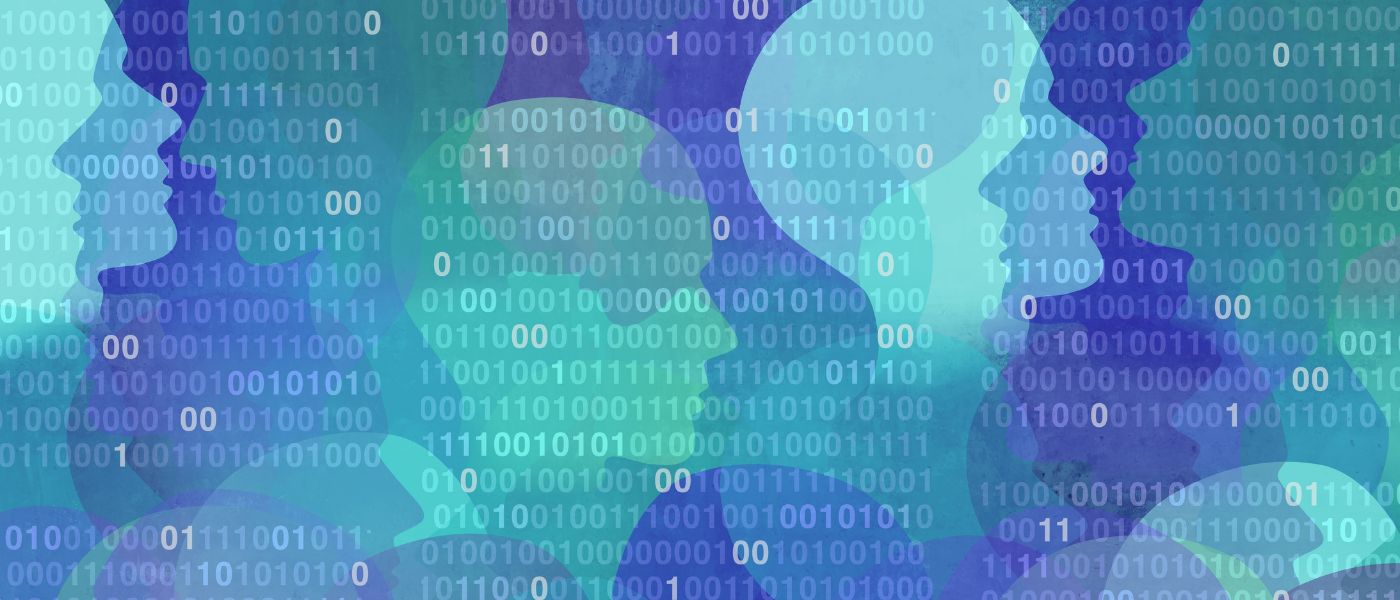 Californians have spoken: Proposition 24 will soon expand data privacy protections in the largest state in America.
Californians have spoken: Proposition 24 will soon expand data privacy protections in the largest state in America.
432. IT Security Policies And Why Every Business Must Have Them
 If you want to run a thriving business in the digital age, you need proper IT Security Policies for your organization.
If you want to run a thriving business in the digital age, you need proper IT Security Policies for your organization.
433. My Thoughts on Stocktwits, Censorship, and Online Harassment
 Stocktwits as a tool really excited me in the beginning, but I was awakened to a reality of things that are quite toxic. What inspired me, is that you seem to have had founders with an innovative vision in terms of creating a community for stocks and stock tickers. However, this community may have become a safe haven for trolling, internet harassment, defamation, stock dumping, privacy concerns, and much more. This isn't to personally come after the founders or anything like this, as I warrant a healthy discussion on how to improve big tech. We do need to look at the problems though.
Stocktwits as a tool really excited me in the beginning, but I was awakened to a reality of things that are quite toxic. What inspired me, is that you seem to have had founders with an innovative vision in terms of creating a community for stocks and stock tickers. However, this community may have become a safe haven for trolling, internet harassment, defamation, stock dumping, privacy concerns, and much more. This isn't to personally come after the founders or anything like this, as I warrant a healthy discussion on how to improve big tech. We do need to look at the problems though.
434. The Current State of Privacy Wallets [Reviewed]
 Bitcoin and other cryptocurrencies provide an opportunity unheard of in the past, being able to transcend borders and economies with a global currency. Blockchains gives us this, but unfortunately, it does not inherently give us total privacy along with it.
Bitcoin and other cryptocurrencies provide an opportunity unheard of in the past, being able to transcend borders and economies with a global currency. Blockchains gives us this, but unfortunately, it does not inherently give us total privacy along with it.
435. How Does the Government Access Your Data?
 It’s Not (Exactly) 1984, but Big Brother Is Certainly Watching!
It’s Not (Exactly) 1984, but Big Brother Is Certainly Watching!
436. ISO/IEC 27035: The Incident Security Incident Management Guide
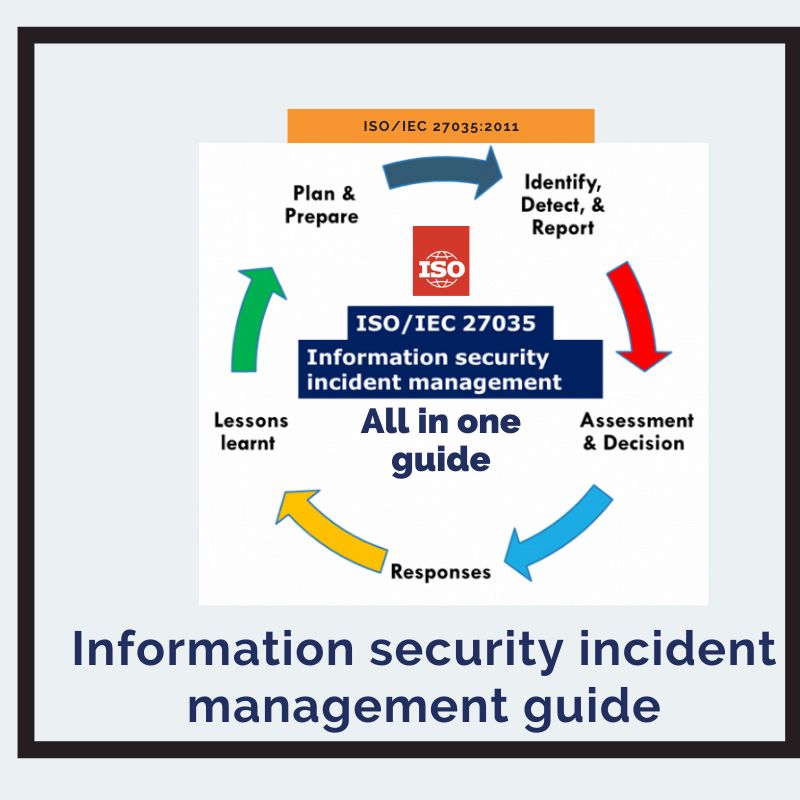 We will learn about the security incident phases, security incidents response planning (IRP), and Incident Response Team Structures.
We will learn about the security incident phases, security incidents response planning (IRP), and Incident Response Team Structures.
437. How To Store Encrypted Data Collected By Your Web Application With PHP7 and LibSodium
 Reasonable security through architecture
Reasonable security through architecture
438. iOS is Missing a Key Camera Privacy Feature That Could Enable Spying

439. WhatsApp Users Hit 2 Billion: What Does This Mean for the Future of Privacy?

440. Invitation Inside: Beta Test A FREE and Open Source Decentralized VPN
 Today we are announcing beta test of KelVPN, a bandwidth sharing solution. It is a distributed VPN, built on top of the Cellframe blockchain framework. Our mission is to build a decentralized privacy network, which can literally serve as a personal spacesuit for everyone accessing the Internet.
Today we are announcing beta test of KelVPN, a bandwidth sharing solution. It is a distributed VPN, built on top of the Cellframe blockchain framework. Our mission is to build a decentralized privacy network, which can literally serve as a personal spacesuit for everyone accessing the Internet.
441. I Hacked An Android App To Get A Free Haircut
 Android apps are mainly composed of a bunch of binaries bundled together, built from compiled Kotlin or Java code. The original source code can be easily reconstructed by several light-weight tools, found on the top of a google search page.
Android apps are mainly composed of a bunch of binaries bundled together, built from compiled Kotlin or Java code. The original source code can be easily reconstructed by several light-weight tools, found on the top of a google search page.
442. The Privacy Paradox: Do We Really Have Nothing to Hide?
 Privacy is not something we put a lot of attention or effort into keeping, but maybe we should.
Privacy is not something we put a lot of attention or effort into keeping, but maybe we should.
443. Decentralized Wikipedia based on Aleo
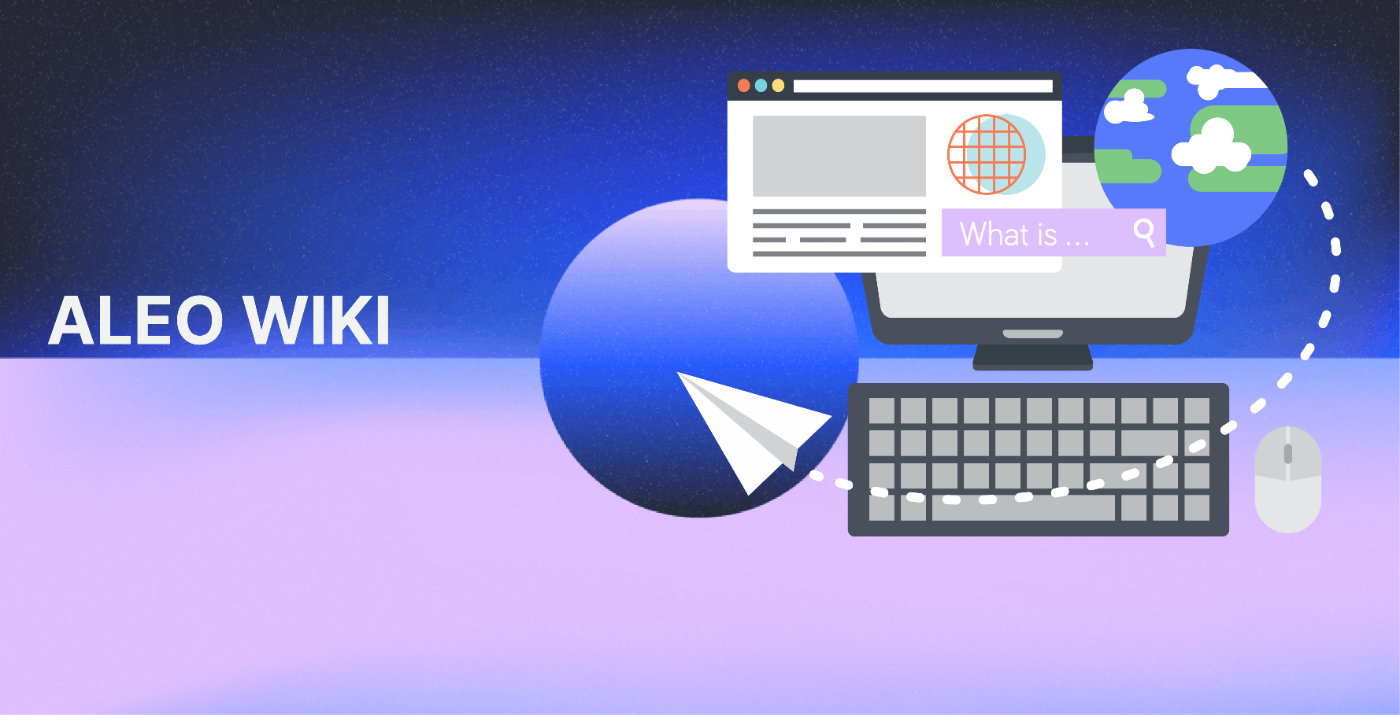 Wiki is not perfect. I present to you the description of Aleo/wiki. With Wikipedia experience, I have sincerely tried to get rid of the biggest bugs.
Wiki is not perfect. I present to you the description of Aleo/wiki. With Wikipedia experience, I have sincerely tried to get rid of the biggest bugs.
444. How To Be Sure That Your Information Is Secure In Dating Apps
 Online dating has become really popular nowadays. Unfortunately, dating websites and apps are often visited by scammers, criminals, violent abusers, and sexual predators. And the lack of proper identity verification procedure in the dating apps is very surprising. In this article I will explain how dating apps can protect their users.
Online dating has become really popular nowadays. Unfortunately, dating websites and apps are often visited by scammers, criminals, violent abusers, and sexual predators. And the lack of proper identity verification procedure in the dating apps is very surprising. In this article I will explain how dating apps can protect their users.
445. AI and Data: Balancing Progress, Privacy, and Security
 With ChatGPT dominating the tech and other news, the concernabout data security might have momentarily taken a back seat. Yet, the expansion of AI/ML technologies' potential impact on Data privacy and security should sound the alarm for organizations and individuals alike.
With ChatGPT dominating the tech and other news, the concernabout data security might have momentarily taken a back seat. Yet, the expansion of AI/ML technologies' potential impact on Data privacy and security should sound the alarm for organizations and individuals alike.
446. Have You Contacted Your Reps to Help Block the EARN IT Act Yet?
 As the world finds itself preoccupied with COVID-19, the United States government is trying to pass a law to ban encryption. It's called the EARN IT act, and while it claims to combat the sexual exploitation of children online, it has potentially devastating repercussions for encryption and companies that use it to protect your privacy online.
As the world finds itself preoccupied with COVID-19, the United States government is trying to pass a law to ban encryption. It's called the EARN IT act, and while it claims to combat the sexual exploitation of children online, it has potentially devastating repercussions for encryption and companies that use it to protect your privacy online.
447. Hacker Noon Donates to EFF in Support of a Better Internet
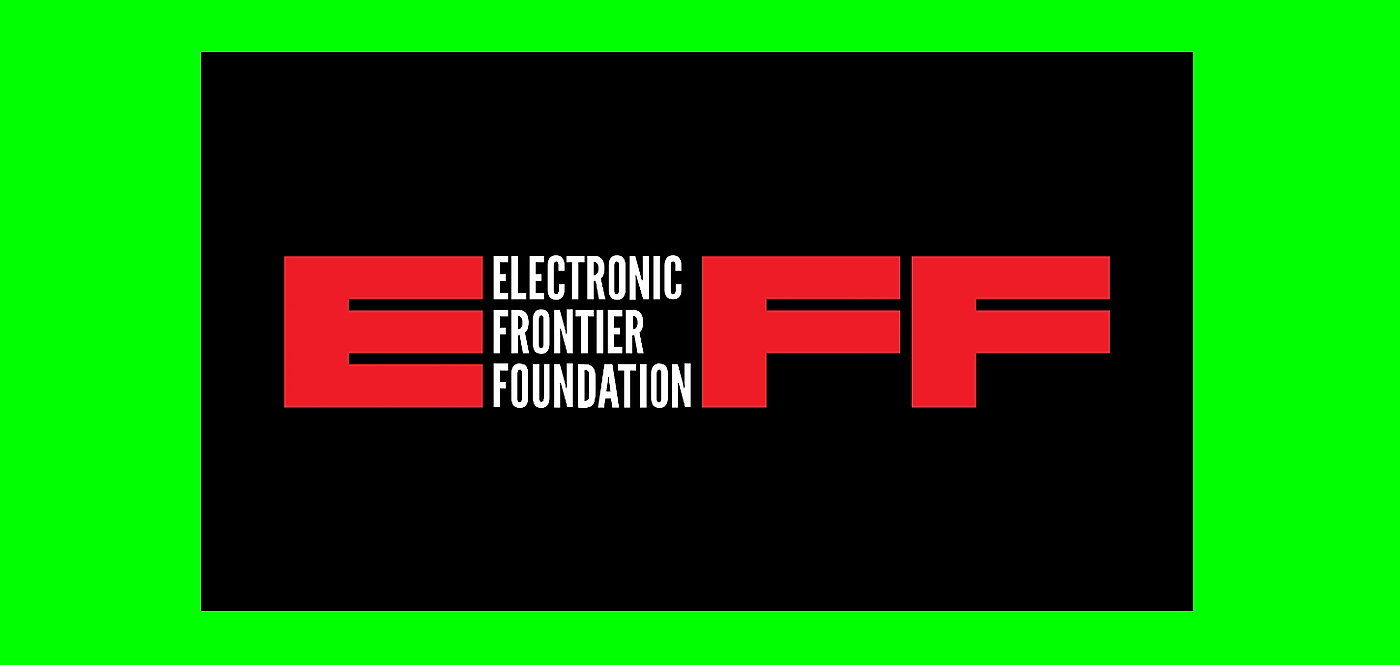 Hello, we're excited to share that Hacker Noon donated $1k to EFF (Electronic Frontier Foundation) and this gift will help unlock additional donations as part of their year end challenge - if you've been thinking about how to spend some disposal income in favor of a better internet, now is a good time. EFF is a U.S. 501(c)(3) nonprofit that fights for these fundamental rights through public interest legal work, activism, and software development.
Hello, we're excited to share that Hacker Noon donated $1k to EFF (Electronic Frontier Foundation) and this gift will help unlock additional donations as part of their year end challenge - if you've been thinking about how to spend some disposal income in favor of a better internet, now is a good time. EFF is a U.S. 501(c)(3) nonprofit that fights for these fundamental rights through public interest legal work, activism, and software development.
448. How to Protect Your Digital Identity
 One of the biggest challenges we netizens encounter is defending freedom and human rights on the internet.
One of the biggest challenges we netizens encounter is defending freedom and human rights on the internet.
449. Understanding the 'Data is the New Oil' Analogy
 Earlier, we lived in industrial and post-industrial societies, and gas and oil were the only things of value. Now, it’s the age of information society and data has replaced petrol as the economy’s driving force. The reason is that with the help of Big Data, people significantly improve production efficiency and business economics. That’s true.
Earlier, we lived in industrial and post-industrial societies, and gas and oil were the only things of value. Now, it’s the age of information society and data has replaced petrol as the economy’s driving force. The reason is that with the help of Big Data, people significantly improve production efficiency and business economics. That’s true.
450. No Safety Nets in the Real World
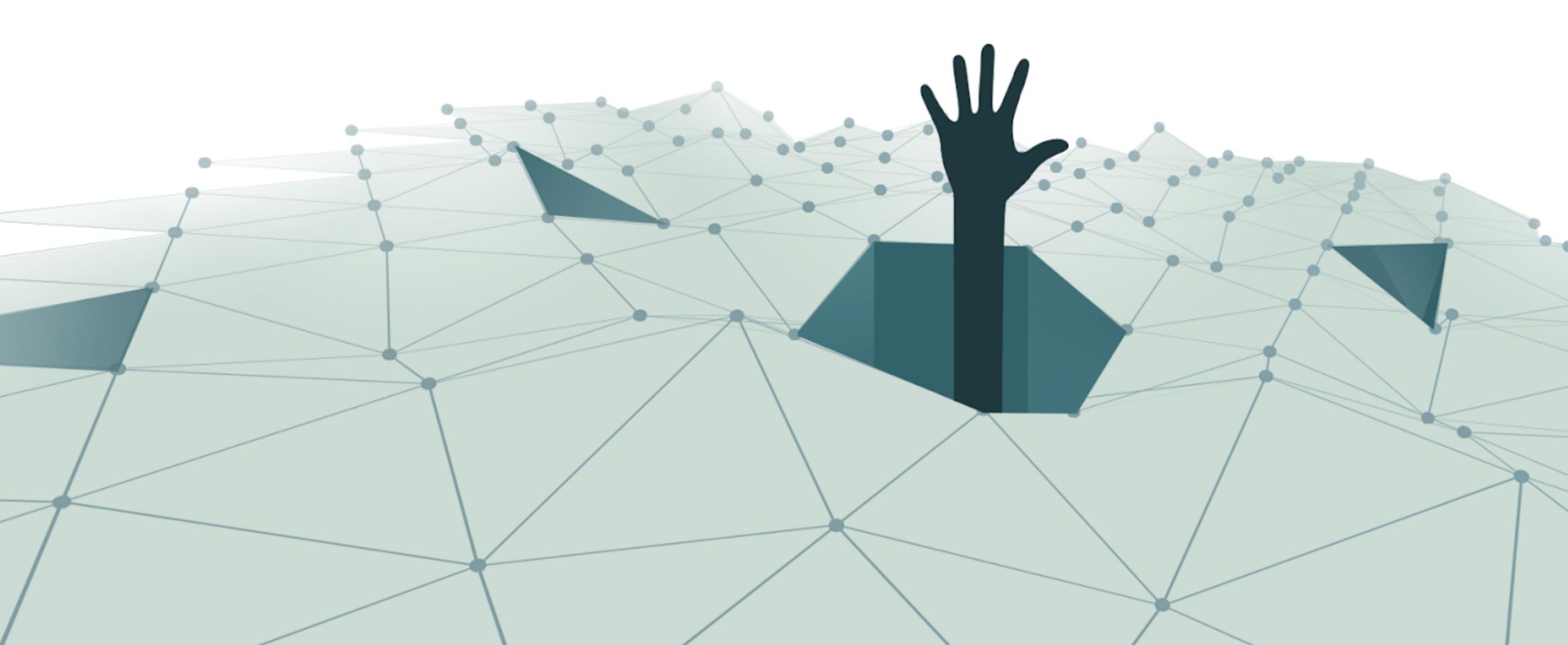 The Dark Side of the Smart Revolution
The Dark Side of the Smart Revolution
451. The Growing Cyber Risks of a Work From Home Workforce
 A recent Threatpost poll found that 40 percent of the companies transitioning to WFH experienced a spike in cyberattacks. The survey concluded that patching and updating are among the top challenges for employees when securing their remote footprint.
A recent Threatpost poll found that 40 percent of the companies transitioning to WFH experienced a spike in cyberattacks. The survey concluded that patching and updating are among the top challenges for employees when securing their remote footprint.
452. Your Instagram Privacy Guide for 2022
 Of the major social networks, Instagram is definitely one of the most public. It’s also one of the most limited in terms of what can and can’t be shared.
Of the major social networks, Instagram is definitely one of the most public. It’s also one of the most limited in terms of what can and can’t be shared.
453. New Kids On The Block: Understanding Cold Boot Attacks
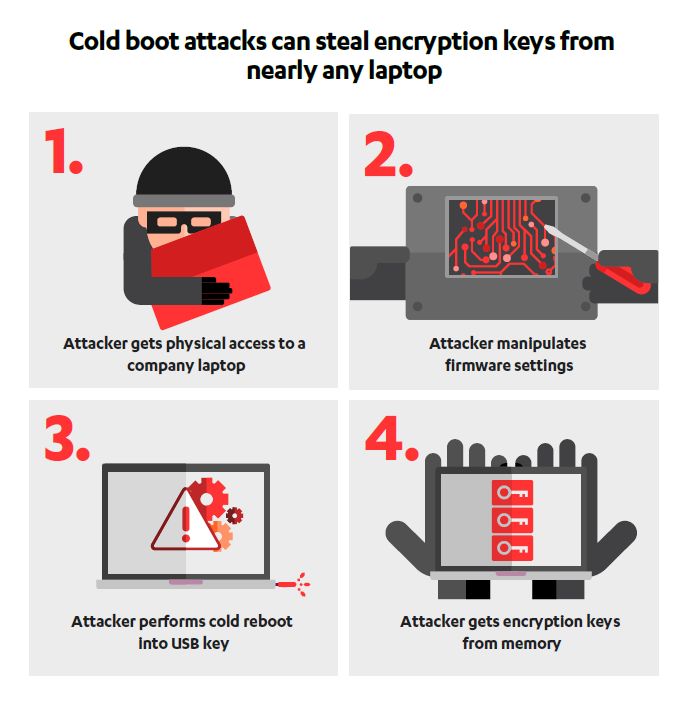 In computer security, a cold boot attack is a type of side-channel attack in which an attacker with physical access to a computer performs a memory dump of a c
In computer security, a cold boot attack is a type of side-channel attack in which an attacker with physical access to a computer performs a memory dump of a c
454. How and Why Modern Criminals Still Use Obsolete Technology
 Dumb Phones, Smart Criminals, and Email "Drafting"
Dumb Phones, Smart Criminals, and Email "Drafting"
455. Is Your Social Media Actually Social?
 Social media is “social” in the sense it relates to society at large. People seek connection with society to find the communities they belong to, a marketplace for their services and ensure their own welfare as a member of that society.
Social media is “social” in the sense it relates to society at large. People seek connection with society to find the communities they belong to, a marketplace for their services and ensure their own welfare as a member of that society.
456. Slack's Connect DM Feature Has A Security Flaw
 Slack recently rolled out its "Connect DM” feature that turned out to be a blunder. Know more about it here.
Slack recently rolled out its "Connect DM” feature that turned out to be a blunder. Know more about it here.
457. Plausible is Paving the Way for Ethical Analytics
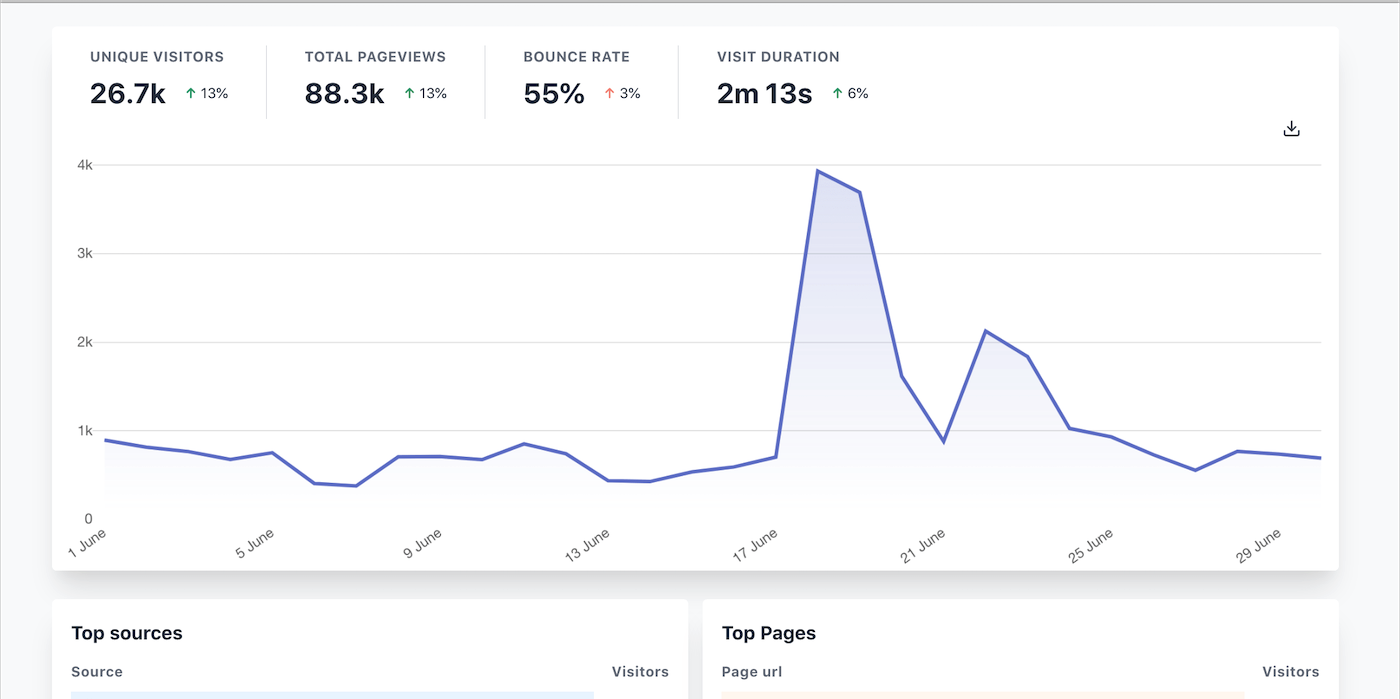 One of the trickiest things for companies or really anyone running a website is figuring out the success of their site, how many visits they are getting, and how they got them, while at the same time respecting their visitor’s privacy.
One of the trickiest things for companies or really anyone running a website is figuring out the success of their site, how many visits they are getting, and how they got them, while at the same time respecting their visitor’s privacy.
458. The Coronavirus and the Emergence of Global Citizens’ Solidarity
 How technologies are empowering global citizens to take action for the benefit of humanity
How technologies are empowering global citizens to take action for the benefit of humanity
459. Banning Micro-Targeting Won’t Solve Facebook’s Political Ads Dilemma
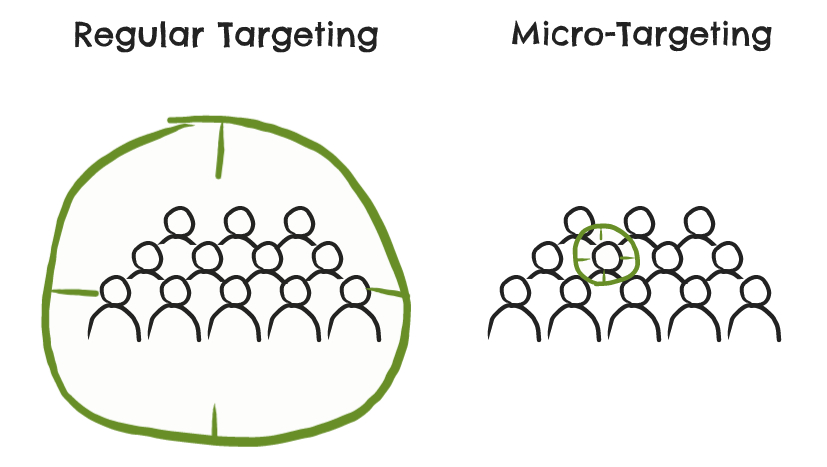 Since late October, Facebook has come under scrutiny for changing its policies surrounding political ads. Previously, to run a political ad on Facebook, the ad had to be factually correct. Facebook would review political ads before they went live, and on an ongoing basis once they’re put live, removing any that it found to contain misinformation.
Since late October, Facebook has come under scrutiny for changing its policies surrounding political ads. Previously, to run a political ad on Facebook, the ad had to be factually correct. Facebook would review political ads before they went live, and on an ongoing basis once they’re put live, removing any that it found to contain misinformation.
460. The Anatomy of Credential Stuffing Attacks in 2020
 This year began in chaos. The chaos brought numerous challenges to both businesses and employees alike. With a significant portion of the population working from home, home network security and online safety's been brought to the forefront of technological challenges. Now that the year is coming to a closer end, 2020 reports are revealing an increase in cyber-attacks and consequential financial losses.
This year began in chaos. The chaos brought numerous challenges to both businesses and employees alike. With a significant portion of the population working from home, home network security and online safety's been brought to the forefront of technological challenges. Now that the year is coming to a closer end, 2020 reports are revealing an increase in cyber-attacks and consequential financial losses.
461. How to Avoid Becoming a Victim of Data Breach

462. Data Is Now a Luxury Good: Here’s Why (It Shouldn’t Be)

463. Is Open Source Software A Practical Alternative?
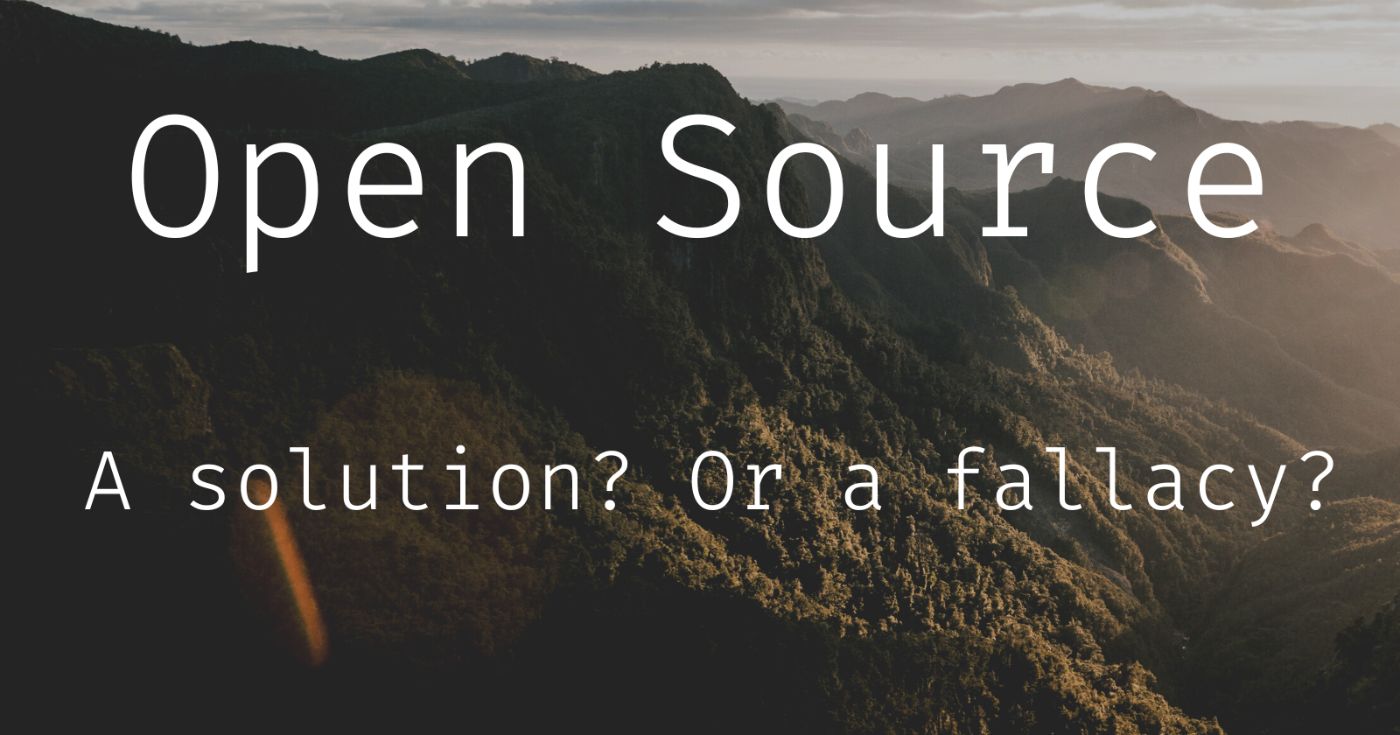 Privacy and cybersecurity have been ongoing concerns in recent years. Open-source software can be a solution to these concerns, is it really the case?
Privacy and cybersecurity have been ongoing concerns in recent years. Open-source software can be a solution to these concerns, is it really the case?
464. The KonMari Method for Your Digital Footprint: How to Clean up Your Digital Clutter Like Marie Kondo
 It's impossible to leave ZERO digital footprints unless you are offline and live in a cave. Luckily, there're easy-to-do steps to clean up your digital clutter.
It's impossible to leave ZERO digital footprints unless you are offline and live in a cave. Luckily, there're easy-to-do steps to clean up your digital clutter.
465. Anonymity and Safety: How to Protect Information from Hackers
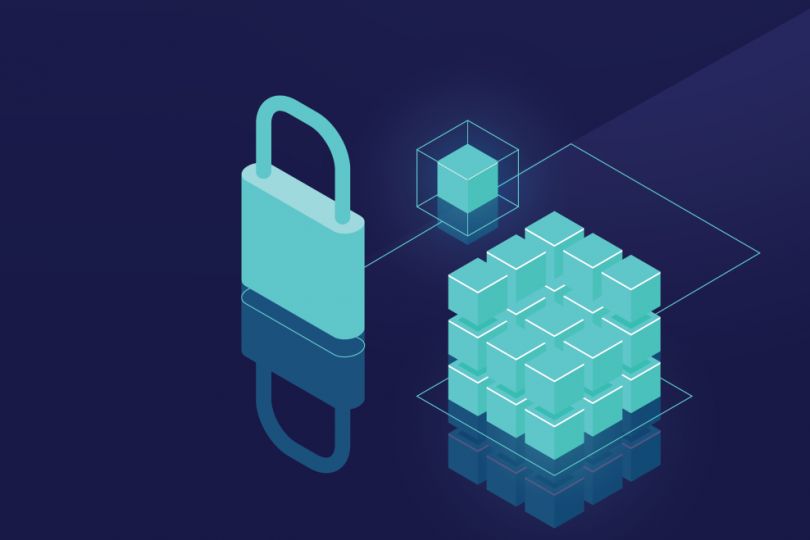 The future belongs to information technologies that simultaneously provide proactive protection, backup, and data authenticity.
The future belongs to information technologies that simultaneously provide proactive protection, backup, and data authenticity.
466. Life360 to Stop Selling Precise Location Data
 Life360, a safety app, claims it will stop selling precise location data.
Life360, a safety app, claims it will stop selling precise location data.
467. COVID-19: Five Steps to Protect Against Possible Cyber Attacks

468. As Facial Recognition Adoption Rises, So Do Civil Rights Issues, Discrimination, and Legislation
 In 1949, George Orwell wrote his dystopian novel Nineteen Eighty Four that described a future society in which the government continuously monitored everyone’s actions and conversations. AI technology has now made that level of monitoring possible, and society needs to cope with the consequences.
In 1949, George Orwell wrote his dystopian novel Nineteen Eighty Four that described a future society in which the government continuously monitored everyone’s actions and conversations. AI technology has now made that level of monitoring possible, and society needs to cope with the consequences.
469. Technology as Humankind’s Dark Mirror: The Perils and Promises of the Digital World
 Technology has given us more than any of us would have dared dream of decades ago. This cannot be stressed enough. However, we are becoming increasingly aware that such advancements also magnify both positive and negative sociological behaviours that were long the realm of the analogue world. So much so, in fact, that algorithms are now at the center of a digital world that’s changing the way experts think about human development.
Technology has given us more than any of us would have dared dream of decades ago. This cannot be stressed enough. However, we are becoming increasingly aware that such advancements also magnify both positive and negative sociological behaviours that were long the realm of the analogue world. So much so, in fact, that algorithms are now at the center of a digital world that’s changing the way experts think about human development.
470. Technology: It Was Meant To Be Humanity's Best Friend, Not Worst Enemy
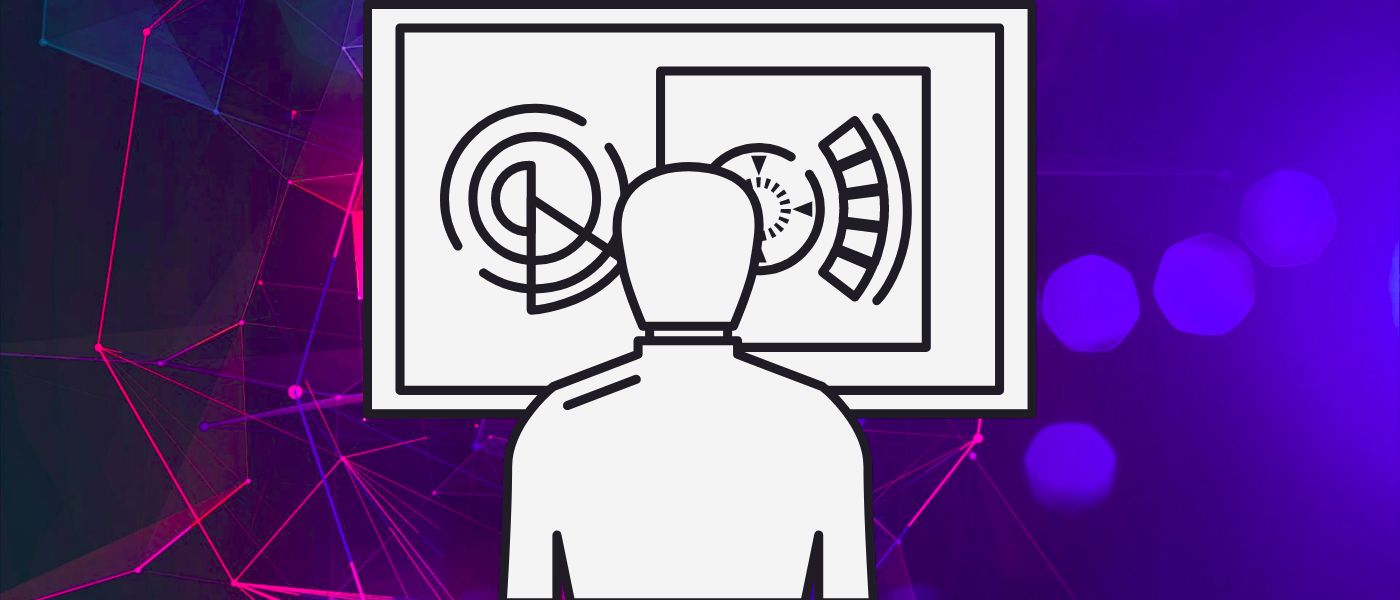 Technology at its purest form should be beneficial to humanity. It should make our lives easier. It shouldn't be used for evil implications. I don't want to go on a whole philosophical rant here, but some things seem needed.
Technology at its purest form should be beneficial to humanity. It should make our lives easier. It shouldn't be used for evil implications. I don't want to go on a whole philosophical rant here, but some things seem needed.
471. Barbicans, Sandboxes and Trusted Computing: Improving Security without Increasing Throughput
 As the attack methods of malicious users change in more various ways, defenders have to write codes to build higher firewalls, run more complicated tests, which leads to more malicious data records, triggering more false alarms.
As the attack methods of malicious users change in more various ways, defenders have to write codes to build higher firewalls, run more complicated tests, which leads to more malicious data records, triggering more false alarms.
472. Everything Wrong with Cloud-Based Note-Taking Apps
 My quest for a suitable Evernote replacement, after the company decided to restrict access to my own data, proved to be a short one.
My quest for a suitable Evernote replacement, after the company decided to restrict access to my own data, proved to be a short one.
473. Artificial Intelligence Act (AIA): Europe’s Startups to Restore AI Excellence and Trust?
 For all its lofty goals and vague formulations, the AIA clearly sets up startups and SMEs for algorithmic success. They can – and should – rise to the occasion.
For all its lofty goals and vague formulations, the AIA clearly sets up startups and SMEs for algorithmic success. They can – and should – rise to the occasion.
474. What is “Cyberbiosecurity?" and why we should stop using the term
 The term cyberbiosecurity is rapidly making its way around the internet, academic, and government communities. If you want a silly analogy, you might say its spreading like an emerging infection through various host communities. Specifically, communities with no innate immunity to fight off the misinformation.
The term cyberbiosecurity is rapidly making its way around the internet, academic, and government communities. If you want a silly analogy, you might say its spreading like an emerging infection through various host communities. Specifically, communities with no innate immunity to fight off the misinformation.
475. Leader's Speak : Joel Reymont, Lead Developer @ Stegos [Interview]
 I returned with a newfound conviction that I was exactly where I needed to be, and simply needed to define the values I am passionate to pursue. I grew up in the Soviet Union. While I am now removed from the days of government surveilling my every word and action, I've found that culture of surveillance replicated everywhere online.
I returned with a newfound conviction that I was exactly where I needed to be, and simply needed to define the values I am passionate to pursue. I grew up in the Soviet Union. While I am now removed from the days of government surveilling my every word and action, I've found that culture of surveillance replicated everywhere online.
476. What's A Spear-Phishing Attack and To Protect Yourself From It
 Do you know what is the most favorite methodology of hackers to break into your security? These are not highly sophisticated zero-days or Advanced Persistent Threats (APTs).
Do you know what is the most favorite methodology of hackers to break into your security? These are not highly sophisticated zero-days or Advanced Persistent Threats (APTs).
477. Compliance is Not a Guarantee Against Data Breach
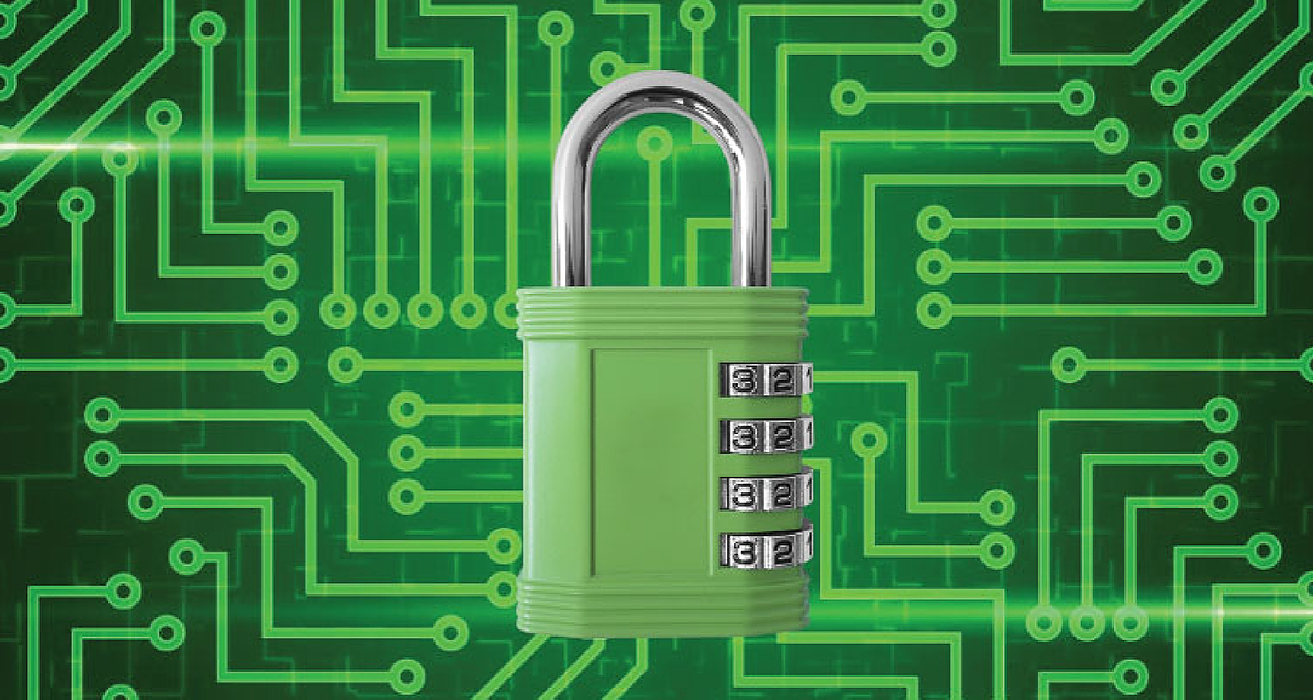 When it comes to combating the ever-growing threat posed by data breaches, most organizations believe that compliance is key. With cybercriminals targeting governments, small businesses, and other essential infrastructure- the need to minimize the impact of these attacks is at an all-time high.
When it comes to combating the ever-growing threat posed by data breaches, most organizations believe that compliance is key. With cybercriminals targeting governments, small businesses, and other essential infrastructure- the need to minimize the impact of these attacks is at an all-time high.
478. We Need To Build A Human-Centered Future Because Regulations Alone Aren't Enough
 Emerging data privacy regulations, such as the General Data Protection Regulation (GDPR) in Europe and California Consumer Privacy Act (CCPA) in the USA, have sparked global discussion around:
Emerging data privacy regulations, such as the General Data Protection Regulation (GDPR) in Europe and California Consumer Privacy Act (CCPA) in the USA, have sparked global discussion around:
479. AT&T’s Ad Exchange is Overrun With Data Stealing Malware
 Xandr/AppNexus is serving up infected ads across major websites
Xandr/AppNexus is serving up infected ads across major websites
480. Internet Privacy Under Continued Attack by the US Government
 Wars can be fought in the real world but there is also a virtual battlefield - and it is just as harmful. The Lawful Access to Encrypted Data Act is the latest attempt to access people's encrypted data and it serves as another reinforcement.
Wars can be fought in the real world but there is also a virtual battlefield - and it is just as harmful. The Lawful Access to Encrypted Data Act is the latest attempt to access people's encrypted data and it serves as another reinforcement.
481. Why Cryptocurrency Doesn’t Need to Compete With Government Money
 As the global financial crisis accelerates, cryptocurrency has returned to mainstream public discourse. You know bitcoin has reached some level of legitimacy when Bloomberg Radio quotes its price.
As the global financial crisis accelerates, cryptocurrency has returned to mainstream public discourse. You know bitcoin has reached some level of legitimacy when Bloomberg Radio quotes its price.
482. The Difference Between Privacy Talkers and Privacy Doers
 I introduce the concept of storing and processing data focussing primarily on user privacy in my book, “Data is Like a Plate of Hummus”. I know many of you have read it – perhaps you're even thinking about it now ahead of the upcoming changes to Apple’s privacy settings which will block the attribution of users without consent.
I introduce the concept of storing and processing data focussing primarily on user privacy in my book, “Data is Like a Plate of Hummus”. I know many of you have read it – perhaps you're even thinking about it now ahead of the upcoming changes to Apple’s privacy settings which will block the attribution of users without consent.
483. Bitcoin On The Brink of Mass Adoption. Whither Next?
 Over the last few months, we have seen major growth of interest in Bitcoin. Tesla, Mastercard, Visa, PayPal, Apple Pay, Uber, Amazon, General Motors, Twitter, and Oracle – all of them began talking about crypto integration as a payment method.
Over the last few months, we have seen major growth of interest in Bitcoin. Tesla, Mastercard, Visa, PayPal, Apple Pay, Uber, Amazon, General Motors, Twitter, and Oracle – all of them began talking about crypto integration as a payment method.
484. Privacy Communities: Blockchain-Based Networks Rise After the Breakdown of Tech Giants
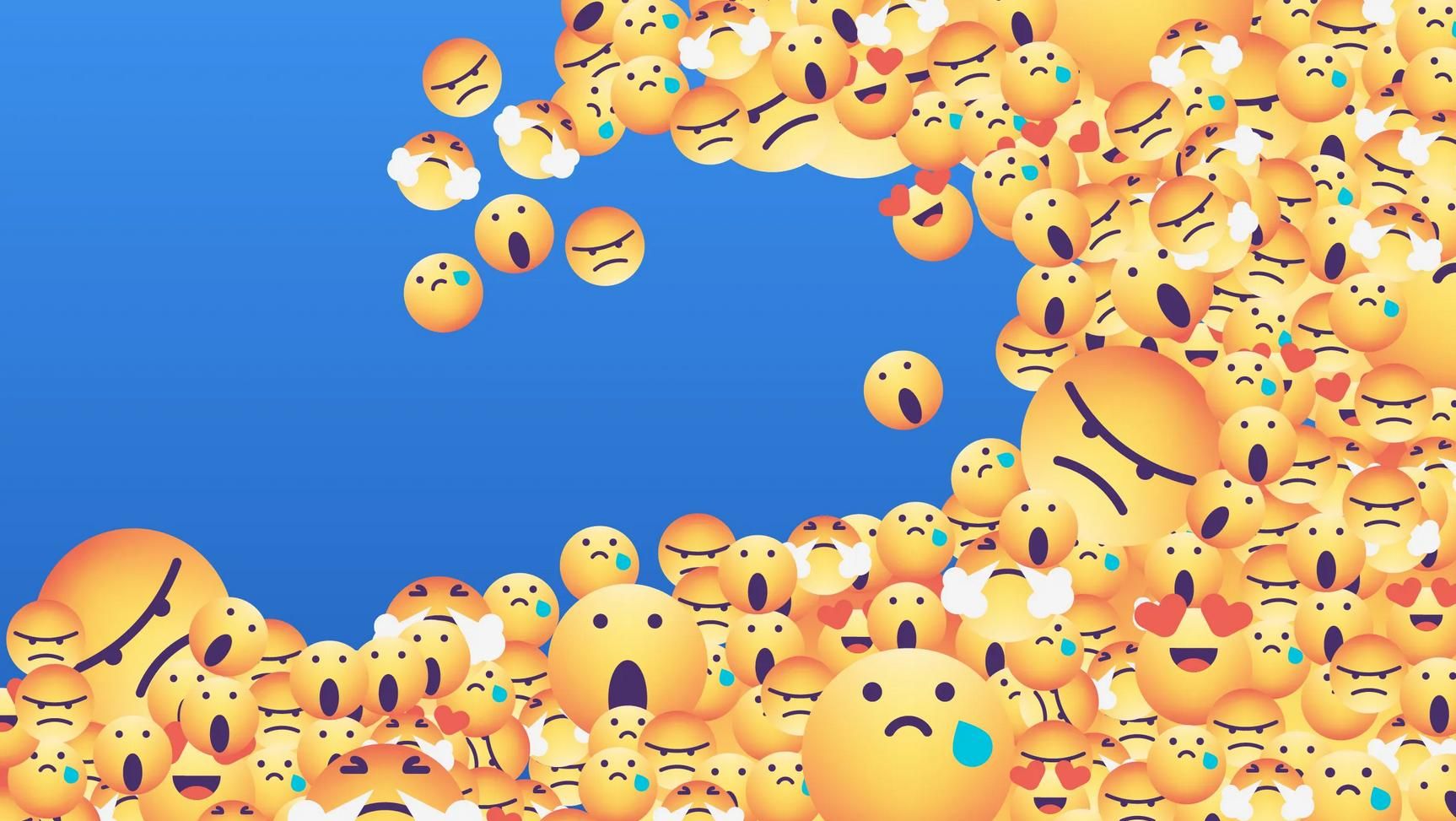 Online communication is undergoing a tidal shift as various groups and communities seek to relocate to more secure blockchain messaging platforms.
Online communication is undergoing a tidal shift as various groups and communities seek to relocate to more secure blockchain messaging platforms.
485. Cryptocurrency 2020: Heading Towards Privacy, Adoption, and Ease of Use?
 If cryptocurrency payments are to ever compete with credit cards and mobile apps for day-to-day use, sending and receiving cryptocurrency needs to be just as easy.
If cryptocurrency payments are to ever compete with credit cards and mobile apps for day-to-day use, sending and receiving cryptocurrency needs to be just as easy.
486. Blockchain Privacy Overview: Monero Vs. Zcash Vs. FreeTON
 Available privacy technologies. Anonymity in Monero and Zcash cryptocurrencies. Will there be privacy in Free TON?
Available privacy technologies. Anonymity in Monero and Zcash cryptocurrencies. Will there be privacy in Free TON?
487. How to Install Free SSL Certificates on WordPress Websites
 On 5th January 2020, the Federal Depository Library Program
website was hacked by suspected Iranian cyber-criminals.
On 5th January 2020, the Federal Depository Library Program
website was hacked by suspected Iranian cyber-criminals.
488. Trade it Like it is HOT: A Review of Popular ZK Projects and the Zero-Knowledge Proof Technology
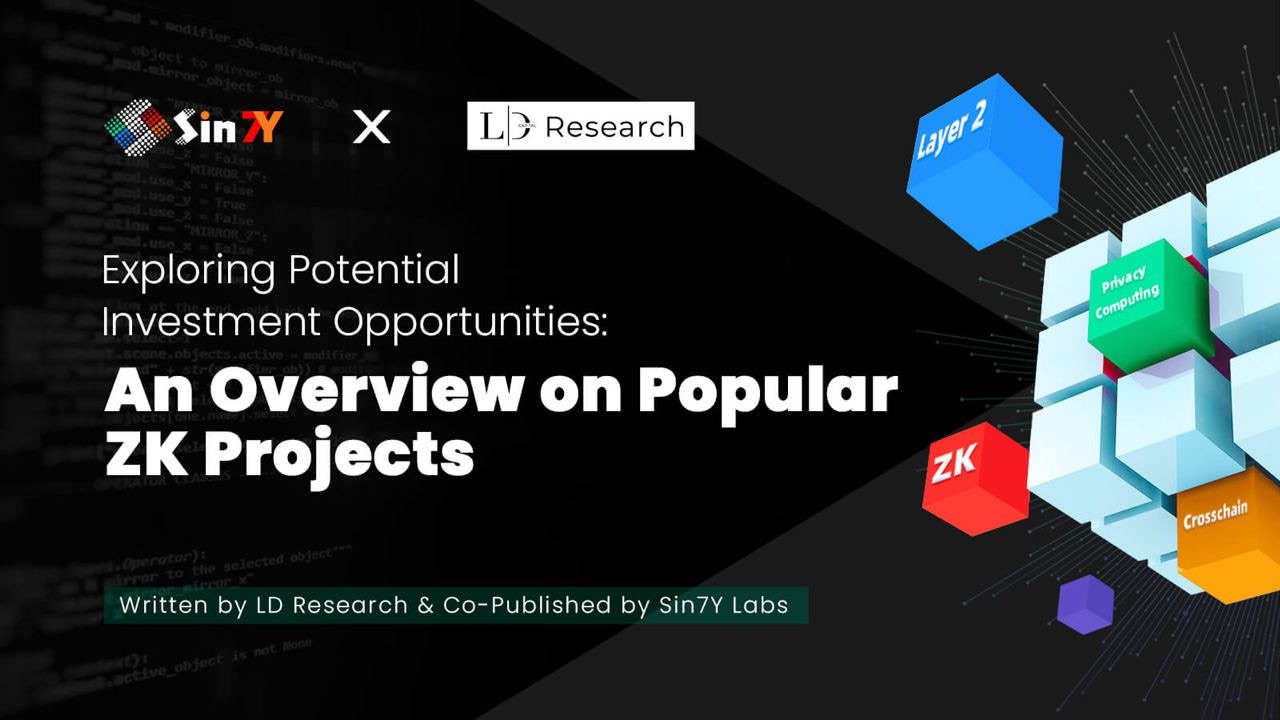 Privacy has always been regarded as one of the most valuable features in the cryptocurrency community.
Privacy has always been regarded as one of the most valuable features in the cryptocurrency community.
489. Privacy As A Service: The DuckDuckGo Application
 [Full disclosure: this post was written in promotion of fourweekmba.]It was September 25th, 2008.
[Full disclosure: this post was written in promotion of fourweekmba.]It was September 25th, 2008.
490. How to Improve Privacy in Conversational AI
 Artificial intelligence is a great tool that assists you with fostering your business on the internet.
Artificial intelligence is a great tool that assists you with fostering your business on the internet.
491. Facebook Has Your Children's Info Thanks to This Hospital Network
 One of the largest pediatric networks in the country was sending personal information about children and their parents to Facebook, The Markup found.
One of the largest pediatric networks in the country was sending personal information about children and their parents to Facebook, The Markup found.
492. The Case for The Defence: Securing The Future With VPN Technology
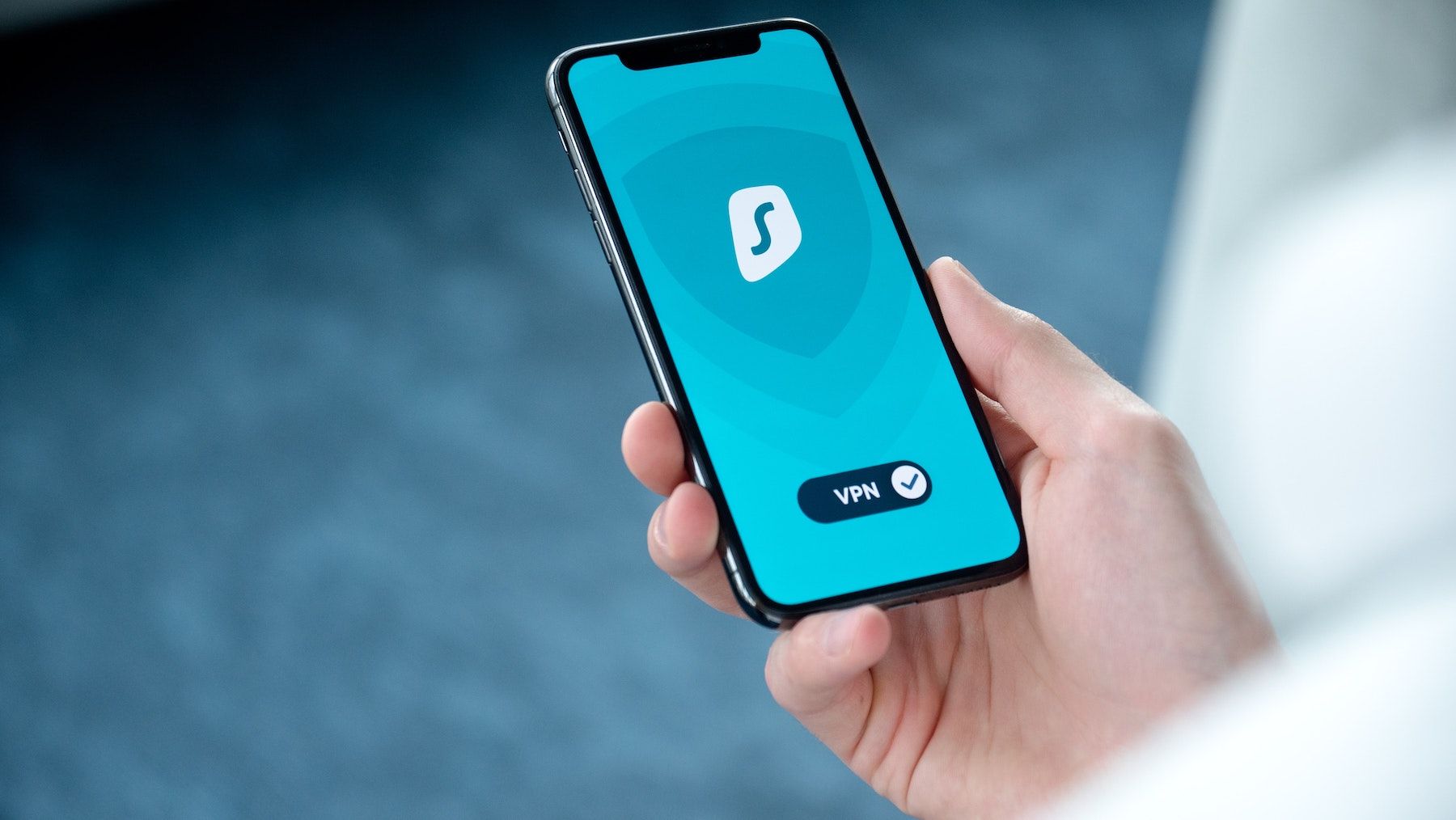 According to statistics, hackers attack every 39 seconds - at a rate of 2,244 times each day. As the world begins to brace itself for another year set to be disrupted by Covid complications and more working from home, it seems essential that we do what we can to make sure our devices are as secure as possible as we work, study, and play away using our own servers.
According to statistics, hackers attack every 39 seconds - at a rate of 2,244 times each day. As the world begins to brace itself for another year set to be disrupted by Covid complications and more working from home, it seems essential that we do what we can to make sure our devices are as secure as possible as we work, study, and play away using our own servers.
493. How You Can Protect Your Online Privacy: Easy Steps for Daily Activities
 (Image by Reimund Bertrams from Pixabay)
(Image by Reimund Bertrams from Pixabay)
494. ZEOS - Privacy on EOS
 The new protocol that has 3 blockchain in 1 like EOS, Monero and ZCash, with full compatible with other project and protocol like DeFi!
The new protocol that has 3 blockchain in 1 like EOS, Monero and ZCash, with full compatible with other project and protocol like DeFi!
495. Cybersecurity Basics, Tech Education and Market Review

496. How NordVPN Helps Keep Users' Data Secure on Servers
 Earlier this year the damaging news shook the VPN industry when a data-leak revealed that seven Hong Kong-based free VPN service providers have been logging data on their servers, even though promising a no-logs service - you can read more on the issue here.
Earlier this year the damaging news shook the VPN industry when a data-leak revealed that seven Hong Kong-based free VPN service providers have been logging data on their servers, even though promising a no-logs service - you can read more on the issue here.
497. The Future of the Internet: Privacy, Censorship, and Equality
 Big tech companies like Facebook and Google are censoring a wide range of information from being published and shared on social media channels like Twitter, Instagram, Youtube, and Facebook.
Big tech companies like Facebook and Google are censoring a wide range of information from being published and shared on social media channels like Twitter, Instagram, Youtube, and Facebook.
498. Why Do You Need Privacy When Transacting in Cryptocurrencies?
 There are many users of Bitcoin who do not concern themselves with what happens behind-the-scene while using the cryptocurrency. Nevertheless, privacy is a big issue among those who are aware of its implications, especially with the realization that Bitcoin is not as private as previously thought.
There are many users of Bitcoin who do not concern themselves with what happens behind-the-scene while using the cryptocurrency. Nevertheless, privacy is a big issue among those who are aware of its implications, especially with the realization that Bitcoin is not as private as previously thought.
499. Exploring 3 Drawbacks To VPN Usage: Do VPNs Really Protect Your Privacy?
 Let’s take a look at the three key issues associated with Virtual Private Networks while questioning whether they’re really as private as we’re led to believe.
Let’s take a look at the three key issues associated with Virtual Private Networks while questioning whether they’re really as private as we’re led to believe.
500. How to Protect your Business from Any Type of Criminals: The Complete Guide
 Today’s modern world is, undoubtedly, not a safe haven for any business. Make no mistake, even running a small-time operation or setting up a niche venture can become challenging. But surprisingly enough, the major brands like Sony or top cryptocurrency exchanges such as Binance aren’t under the greatest threat - criminals and hackers mostly see their prey under a much lower grade. Network security is one of the stumbling stones for businesses of any scale nowadays. Digital age fraudsters rarely engage in assaulting the top corporations - the largest chunk of their bounty comes from the companies that would never make it to the Forbes list.
Today’s modern world is, undoubtedly, not a safe haven for any business. Make no mistake, even running a small-time operation or setting up a niche venture can become challenging. But surprisingly enough, the major brands like Sony or top cryptocurrency exchanges such as Binance aren’t under the greatest threat - criminals and hackers mostly see their prey under a much lower grade. Network security is one of the stumbling stones for businesses of any scale nowadays. Digital age fraudsters rarely engage in assaulting the top corporations - the largest chunk of their bounty comes from the companies that would never make it to the Forbes list.
501. Pros and Cons of Facial Recognition
 Facial recognition is an upcoming feature. We see it in marketing and in our devices. In this slogging thread, we discussed the pros and cons of this feature.
Facial recognition is an upcoming feature. We see it in marketing and in our devices. In this slogging thread, we discussed the pros and cons of this feature.
502. Why do I feel sorry for that robot?
 And other feels from tech reads around the web last week.
And other feels from tech reads around the web last week.
503. SMBs Are Easy Prey for Cybercriminals, But They Don't Have To Be
 Small businesses are the target of an avalanche of cyberattacks. To stop the insanity, here are some low-effort ways they can lower their risk.
Small businesses are the target of an avalanche of cyberattacks. To stop the insanity, here are some low-effort ways they can lower their risk.
504. Why You Should Care About Homomorphic Encryption
 The hype is dead, long live the hype. After deep learning, a new entry is about ready to go on stage. The usual journalists are warming up their keyboards for blogs, news feeds, tweets, in one word, hype. This time it’s all about privacy and data confidentiality. The new words, homomorphic encryption.
The hype is dead, long live the hype. After deep learning, a new entry is about ready to go on stage. The usual journalists are warming up their keyboards for blogs, news feeds, tweets, in one word, hype. This time it’s all about privacy and data confidentiality. The new words, homomorphic encryption.
505. Blueprint of an EFSS Phishing Attack

506. Does Anonymization of Data Guarantees Privacy?
 Anonymization of data isn’t enough to guarantee privacy
Anonymization of data isn’t enough to guarantee privacy
507. How To Use Google Search Privacy Settings

508. Is There a Valid Cause for Using Facial Recognition Tools in Schools
 The deployment of facial recognition technology in a school in the US marks a disturbing trend with the protection of identity and the safety of students.
The deployment of facial recognition technology in a school in the US marks a disturbing trend with the protection of identity and the safety of students.
509. If You're Ready To Protest Your Phone Should Be Ready Too

510. Privacy Protection and Web3 Analytics
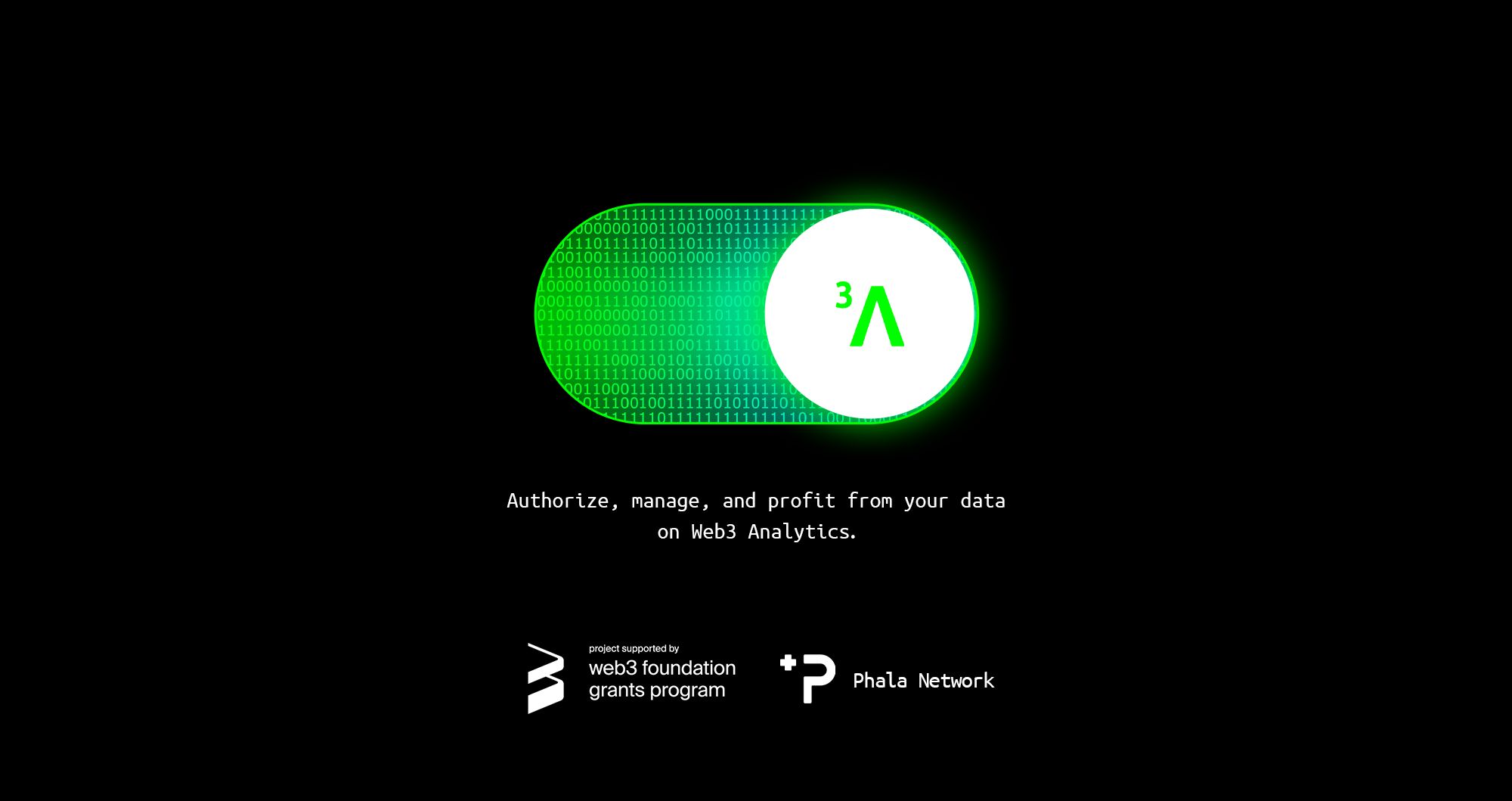 Though there have been more and more developers and product designers joining Web3.0 world in recent years, it is almost ignored by most of them that they are still using centralized infrastructure — data analytic tools — to build apps and webs. Every minute, project builders are making themselves part of the reason for data breach events, as they have to collect user data intendedly or unintendedly for product improvement.
Though there have been more and more developers and product designers joining Web3.0 world in recent years, it is almost ignored by most of them that they are still using centralized infrastructure — data analytic tools — to build apps and webs. Every minute, project builders are making themselves part of the reason for data breach events, as they have to collect user data intendedly or unintendedly for product improvement.
511. U.S. Citizens' Data Protection: Why DHS Work Is Important
 ★In this article we will learn about PII should be Identified, collected, analyzed, used, and PII/SPII handled on different projects of the Department of Homeland Security (DHS).
★In this article we will learn about PII should be Identified, collected, analyzed, used, and PII/SPII handled on different projects of the Department of Homeland Security (DHS).
512. How Dale McGrew Keeps WeVote's Users Safe: An Open Source Story
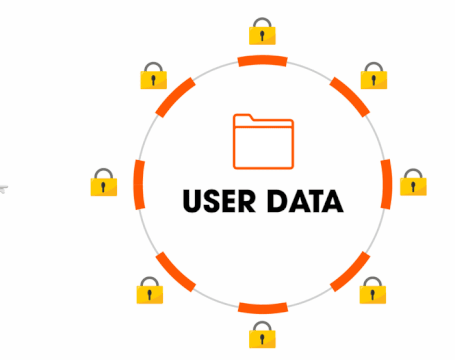 This article is part of a series of case studies exploring the skills of senior software developers . In each case study, we look at a specific challenge faced by a senior developer and investigate the reasoning the developer used towards finding a solution.
This article is part of a series of case studies exploring the skills of senior software developers . In each case study, we look at a specific challenge faced by a senior developer and investigate the reasoning the developer used towards finding a solution.
513. Startpage is Still a Privacy-First Search Engine, says System1 CEO
 An interview with System1 CEO, Michael Blend, about the controversial partnership with Privacy-First search engine, Startpage.
An interview with System1 CEO, Michael Blend, about the controversial partnership with Privacy-First search engine, Startpage.
514. Algorithms and Society: A Not-So-Simple Discussion, In Three Parts
 Image Source: Unified Infotech
Image Source: Unified Infotech
515. Digital Marketing Evolution 2021: Changing Trends and Implications for Marketers
 In the year 2020, this natural tendency of marketing trends to change and evolve was catalyzed even further by the barrage of upheavals – mass protests, political tensions, COVID-19 etc. – affecting every area of society.
In the year 2020, this natural tendency of marketing trends to change and evolve was catalyzed even further by the barrage of upheavals – mass protests, political tensions, COVID-19 etc. – affecting every area of society.
516. Artificial Intelligence is No Match for Natural Stupidity
 A Lazy Introduction to AI for Infosec.
A Lazy Introduction to AI for Infosec.
517. Is COVID-19 Turning Into A War On Privacy?
 The old axiom that one should never waste a good crisis, appears to be the driving force behind one of Big-Tech's biggest rivalries seen in Google and Apple that are now working together in an unorthodox partnership to create the ultimate privacy buster - a coronavirus tracking app.
The old axiom that one should never waste a good crisis, appears to be the driving force behind one of Big-Tech's biggest rivalries seen in Google and Apple that are now working together in an unorthodox partnership to create the ultimate privacy buster - a coronavirus tracking app.
518. Facebook, WhatsApp, and Your Privacy: What You Need to Know
 Seated at computers in pods organized by work assignments, these hourly workers use special Facebook software to sift through millions of private messages
Seated at computers in pods organized by work assignments, these hourly workers use special Facebook software to sift through millions of private messages
519. What Exactly Is Browser Security and Why Does It Matter So Much
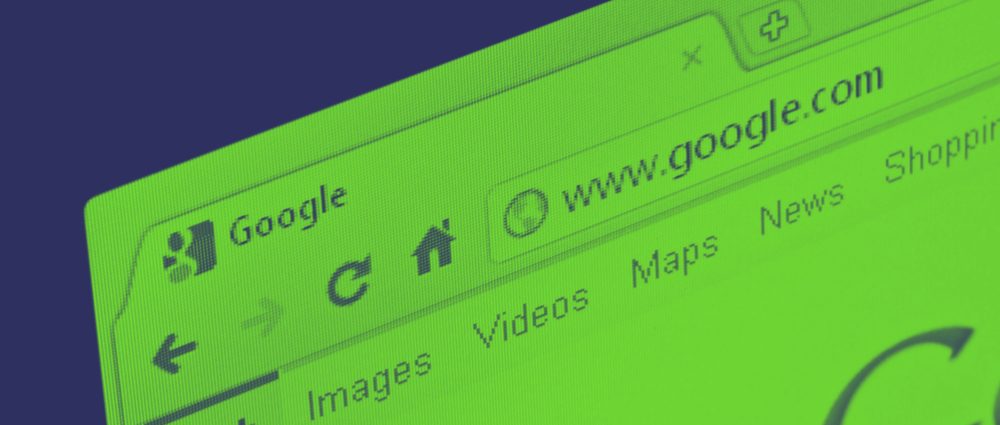 With an approximate of over 4.33 billion users globally, the internet first blossomed into a phenomenon the world could not get enough of and has now transformed itself into a necessity, around which the core of our modern lives revolve.
With an approximate of over 4.33 billion users globally, the internet first blossomed into a phenomenon the world could not get enough of and has now transformed itself into a necessity, around which the core of our modern lives revolve.
520. How To Overcome All Challenges And Create A Great Password Manager App
 Creating a new product is never easy. From the moment you come up with a new idea to the moment you actually launch it, months--if not years--can pass. And after your product launches, you need to make sure that you never stop improving it, so you don’t fall behind your competition. KeepSolid has already brought several products to market, and each of them has had its own successes and challenges. Here’s the story of our journey to launch our latest product, Passwarden.
Creating a new product is never easy. From the moment you come up with a new idea to the moment you actually launch it, months--if not years--can pass. And after your product launches, you need to make sure that you never stop improving it, so you don’t fall behind your competition. KeepSolid has already brought several products to market, and each of them has had its own successes and challenges. Here’s the story of our journey to launch our latest product, Passwarden.
521. How to protect against cyberthreats while employees work from home
 With the COVID-19 pandemic, more and more employees have had to work from home, creating new cybersecurity challenges for businesses. Some workers will have to relearn everything about cybersecurity because they must keep their work documents and email secure even on their home network.
With the COVID-19 pandemic, more and more employees have had to work from home, creating new cybersecurity challenges for businesses. Some workers will have to relearn everything about cybersecurity because they must keep their work documents and email secure even on their home network.
522. Protecting Your Online Privacy: 7 Simple Steps You Can Take Today
 What people wish to share is their prerogative, yet to unconsciously give away your private information is very different to making an active choice.
What people wish to share is their prerogative, yet to unconsciously give away your private information is very different to making an active choice.
523. Is Your Zoom Meeting Really End-to-End Encrypted?
 What do you do when your product isn’t encrypted? Change how encryption to is commonly understood.
What do you do when your product isn’t encrypted? Change how encryption to is commonly understood.
524. What You Should Know About Zero-Party Data
 Zero-party data (ZPD) means a company only collects user data that is freely given. Period. But why would a modern business, raised on the wonders of Big Data, undertake such a foolish philosophy? Maybe because they aren’t fans of financial ruin.
Zero-party data (ZPD) means a company only collects user data that is freely given. Period. But why would a modern business, raised on the wonders of Big Data, undertake such a foolish philosophy? Maybe because they aren’t fans of financial ruin.
525. The Burgeoning Global Surveillance State - What's Going On?
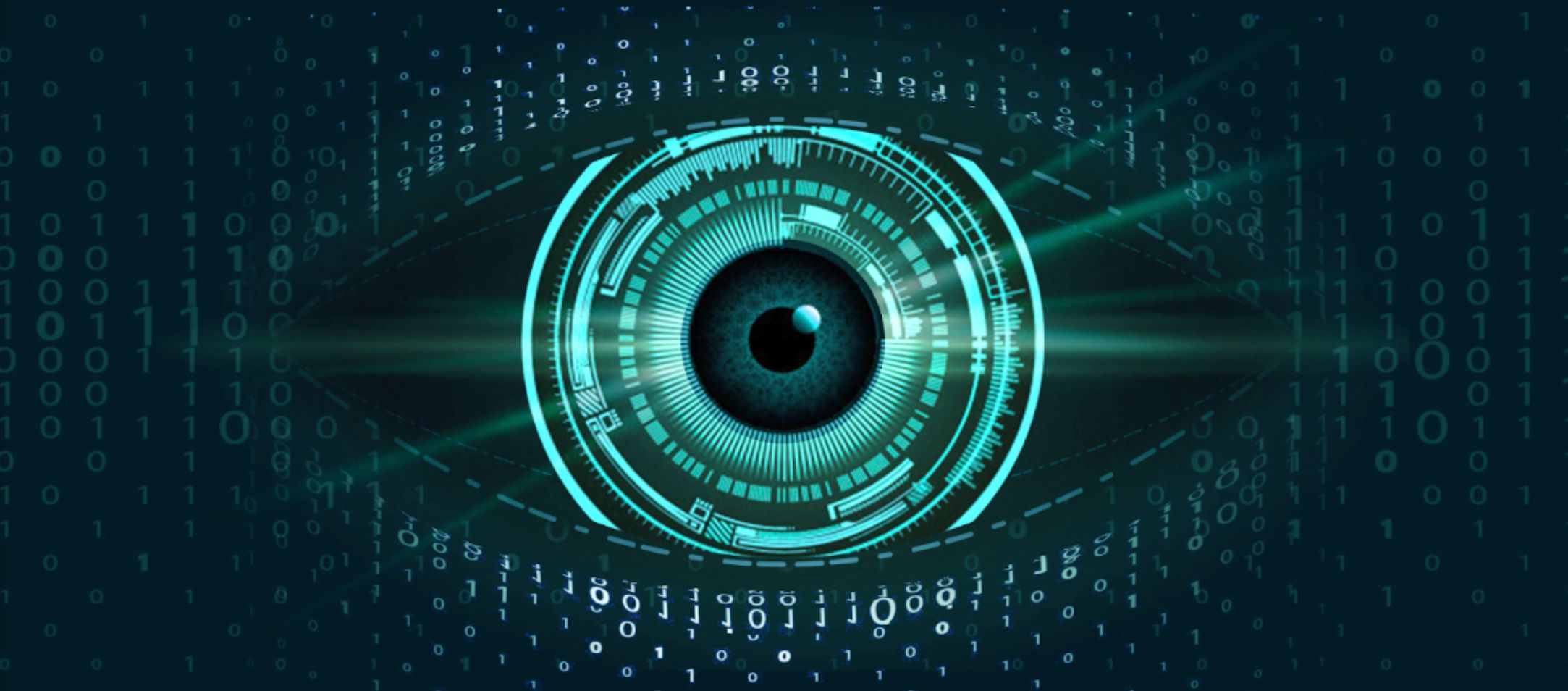 What is a surveillance state? Privacy International defines it as one which “collects information on everyone without regard to innocence or guilt” and “deputizes the private sector by compelling access to their data”.
What is a surveillance state? Privacy International defines it as one which “collects information on everyone without regard to innocence or guilt” and “deputizes the private sector by compelling access to their data”.
526. How to Ensure Privacy and Security on Your Smartphones
 All you need to know about the security loopholes in your android device and how to protect your mobile phones from privacy invasions and security breaches.
All you need to know about the security loopholes in your android device and how to protect your mobile phones from privacy invasions and security breaches.
527. Covid-19 Vaccination Passes Could Cataylze Self-Sovereign Identity Adoption
 How local and global businesses can integrate Covid-19 vaccination checks into identity verification and drive SSI adoption
How local and global businesses can integrate Covid-19 vaccination checks into identity verification and drive SSI adoption
528. Privacy, Decentralization & Investments: What Do They Have in Common?
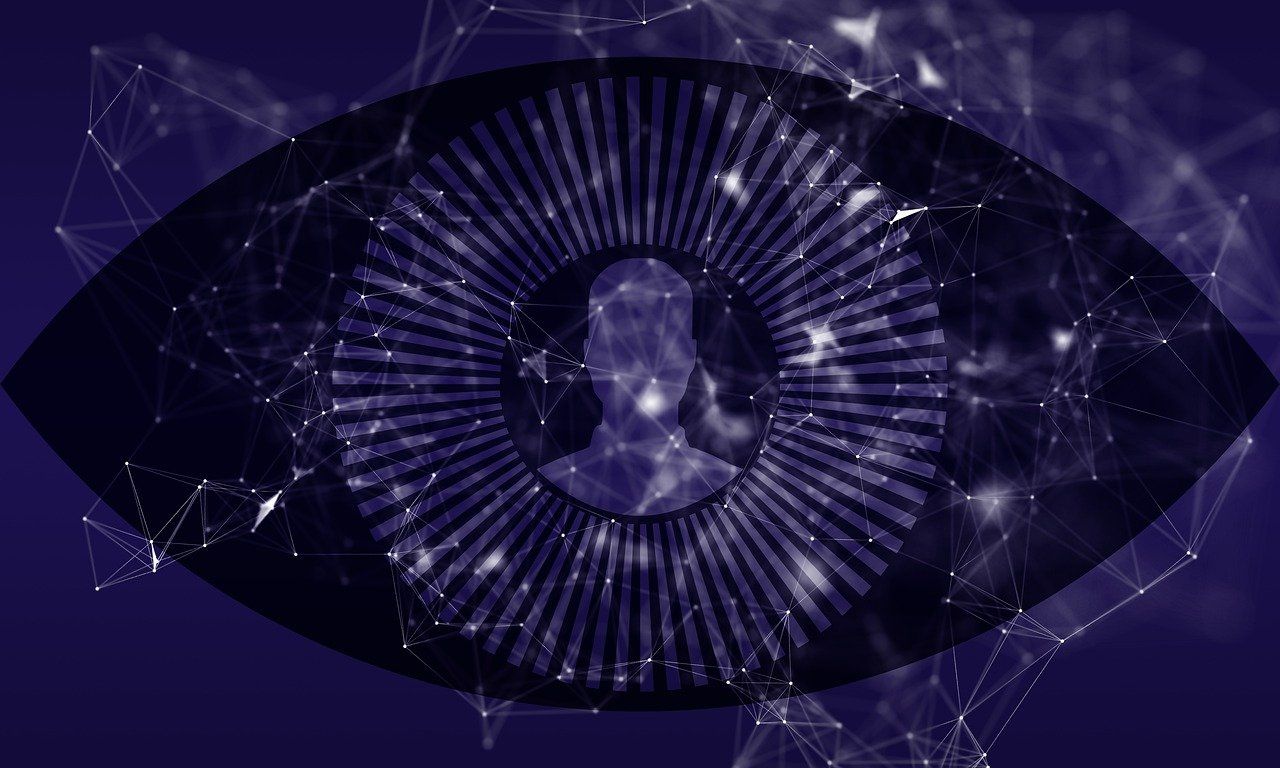 Privacy regulators' grip tightens on megacorporations and major cryptocurrencies make their way into institutional funds portfolios, how can you benefit?
Privacy regulators' grip tightens on megacorporations and major cryptocurrencies make their way into institutional funds portfolios, how can you benefit?
529. Turning Users Invisible: Edge Machine Learning in Privacy-First Location Detection
 How to use edge machine learning in browser for privacy-first location detection. Turn your users invisible while building location-based websites.
How to use edge machine learning in browser for privacy-first location detection. Turn your users invisible while building location-based websites.
530. Security Threats Behind Gaming
 It is not all just fun and games.
It is not all just fun and games.
531. Should We Kick Hardware out of Blockchain?
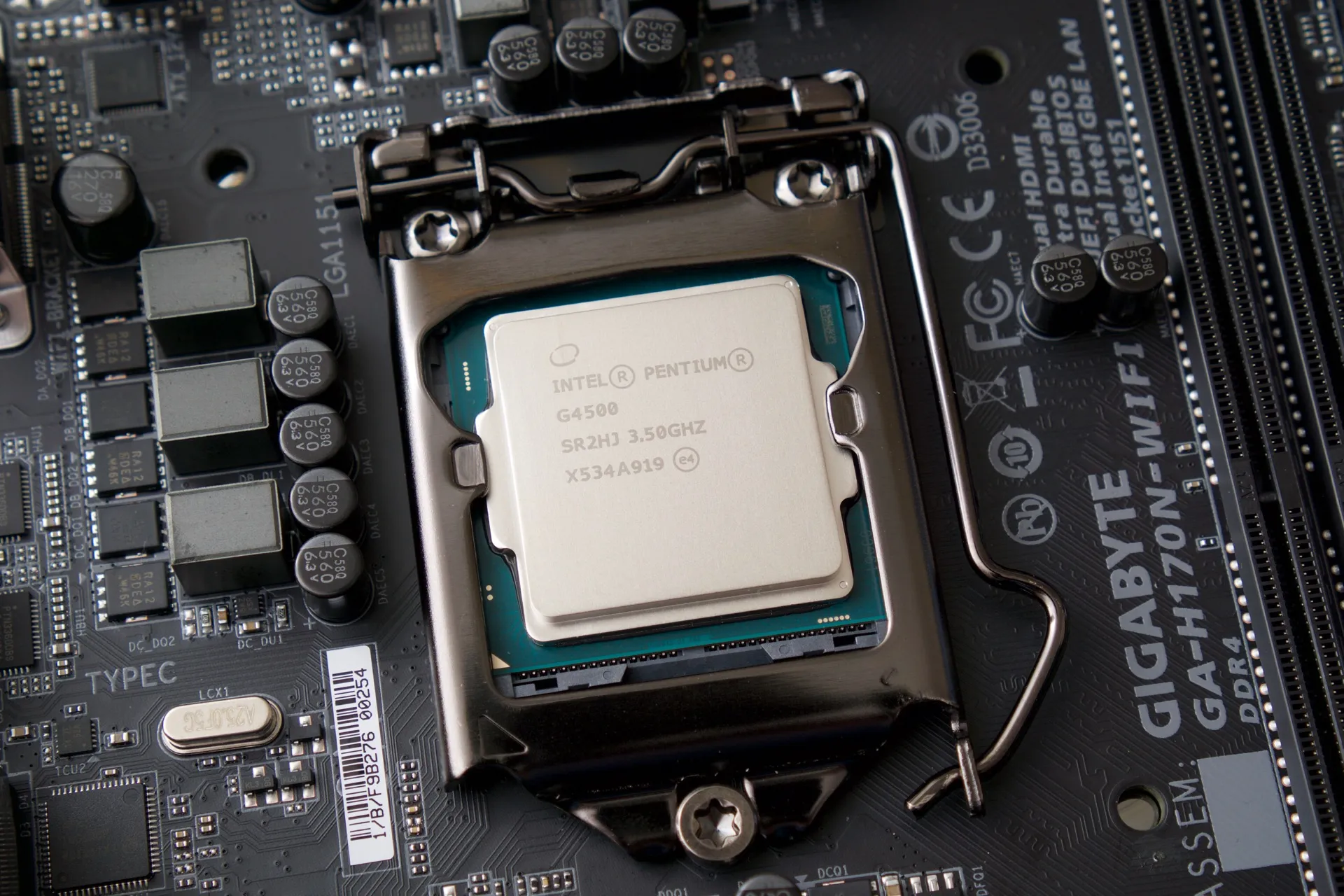 You may think blockchain has little to do with hardware. After all, from Bitcoin to Etherum, blockchains are all software-defined. The hardware-based solution is usually more centralized.
You may think blockchain has little to do with hardware. After all, from Bitcoin to Etherum, blockchains are all software-defined. The hardware-based solution is usually more centralized.
532. Are Your Photos Exposing You?
 You may be accidentally sharing personal information in your photos
You may be accidentally sharing personal information in your photos
533. The Get Away From Google Guide
 If you want to to get away from Google and Big Tech these applications are what you will need
If you want to to get away from Google and Big Tech these applications are what you will need
534. Secure Enclaves and ML using MC²
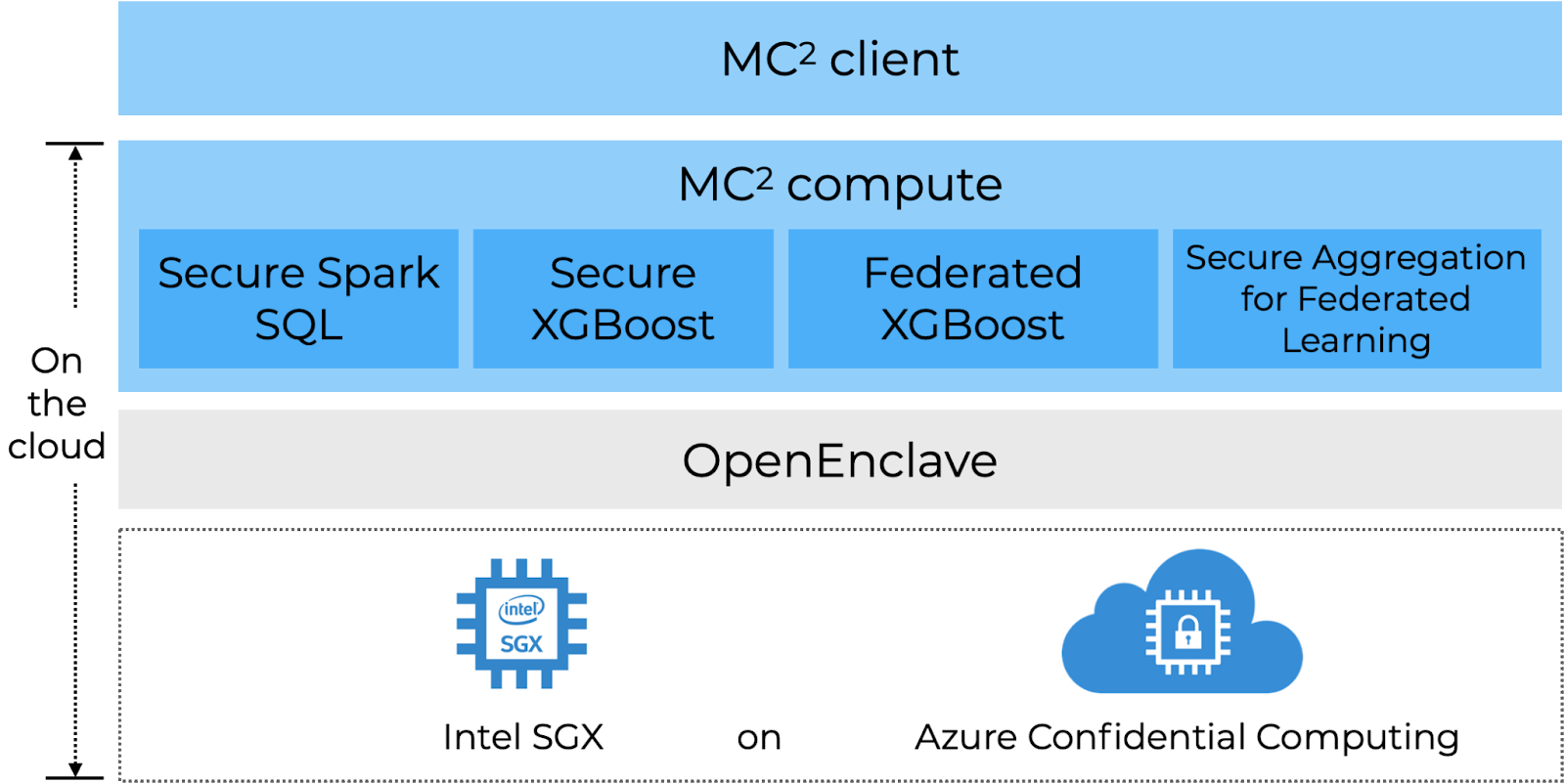 Announcing the official release of MC², a platform for secure analytics and machine learning.
Announcing the official release of MC², a platform for secure analytics and machine learning.
535. Privacy is a human right: An Interview with Startpage founder, Robert E.G. Beens
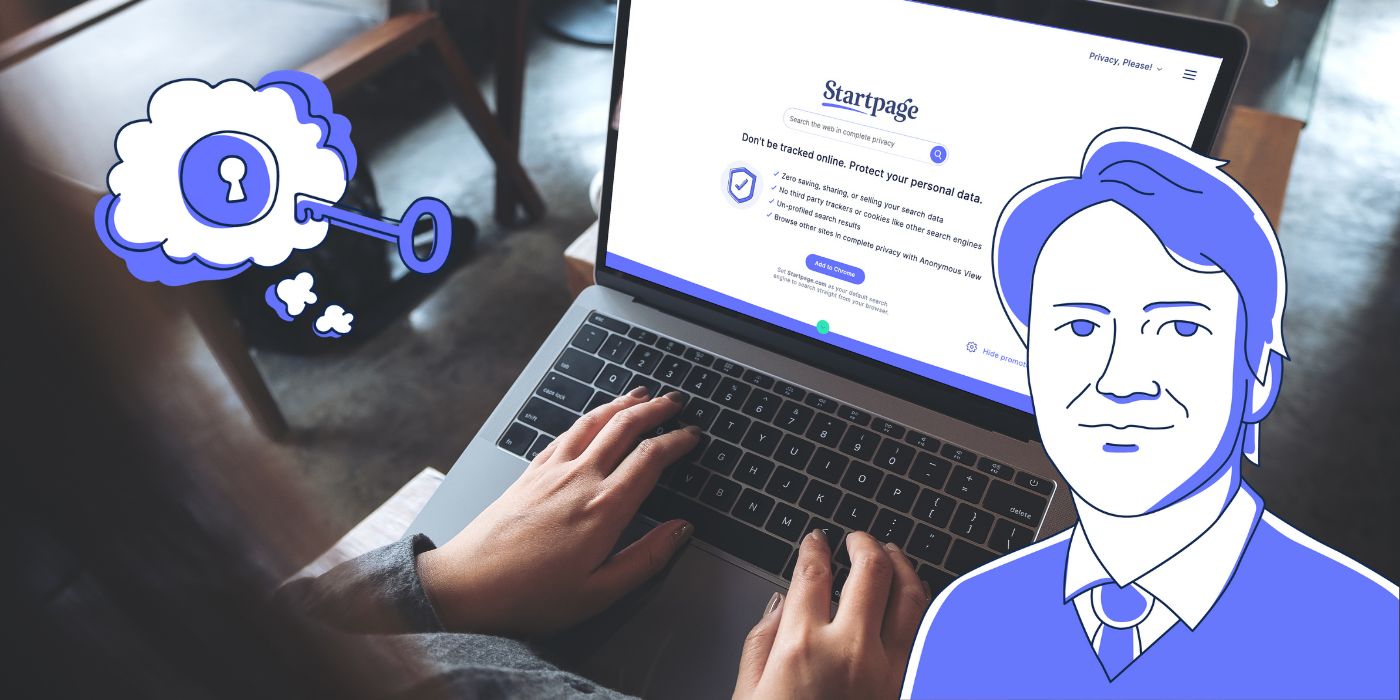 Startpage Founder and CEO Robert E.G. Beens explains what inspired him to start the world's first private search engine.
Startpage Founder and CEO Robert E.G. Beens explains what inspired him to start the world's first private search engine.
536. What is Alternative Mobility? And Why Digital Identity Is Crucial For Its Future
 A fundamental analysis of the status-quo of urban transportationA new mobility ecosystem is upon us. Cities are changing at a pace like never before, largely made possible through technological advancements.It has disrupted existing industries and paved the way for a shared mobility market - one that redefines the way people move and interact. Being able to effortlessly move across cities enabled billions across the globe to access opportunities, tap into great products and services, while connecting with people that are important to them.
A fundamental analysis of the status-quo of urban transportationA new mobility ecosystem is upon us. Cities are changing at a pace like never before, largely made possible through technological advancements.It has disrupted existing industries and paved the way for a shared mobility market - one that redefines the way people move and interact. Being able to effortlessly move across cities enabled billions across the globe to access opportunities, tap into great products and services, while connecting with people that are important to them.
537. How We Pay For Free Websites With Our Privacy
 An array of free website-building tools, many offered by ad-tech and ad-funded companies, has led to a dizzying number of trackers loading on users’ browsers.
An array of free website-building tools, many offered by ad-tech and ad-funded companies, has led to a dizzying number of trackers loading on users’ browsers.
538. "It's Only Fair That Users Retain Ownership Of Their Personal Data & Generate Value" -Sheridan Johns
 With just over 4,000 data brokers controlling the loosely regulated data economy, there are absolutely no guarantees when it comes to data protection, privacy, and ownership.
With just over 4,000 data brokers controlling the loosely regulated data economy, there are absolutely no guarantees when it comes to data protection, privacy, and ownership.
539. How The Quarantine Affected Cybersecurity: New Challenges And Solutions
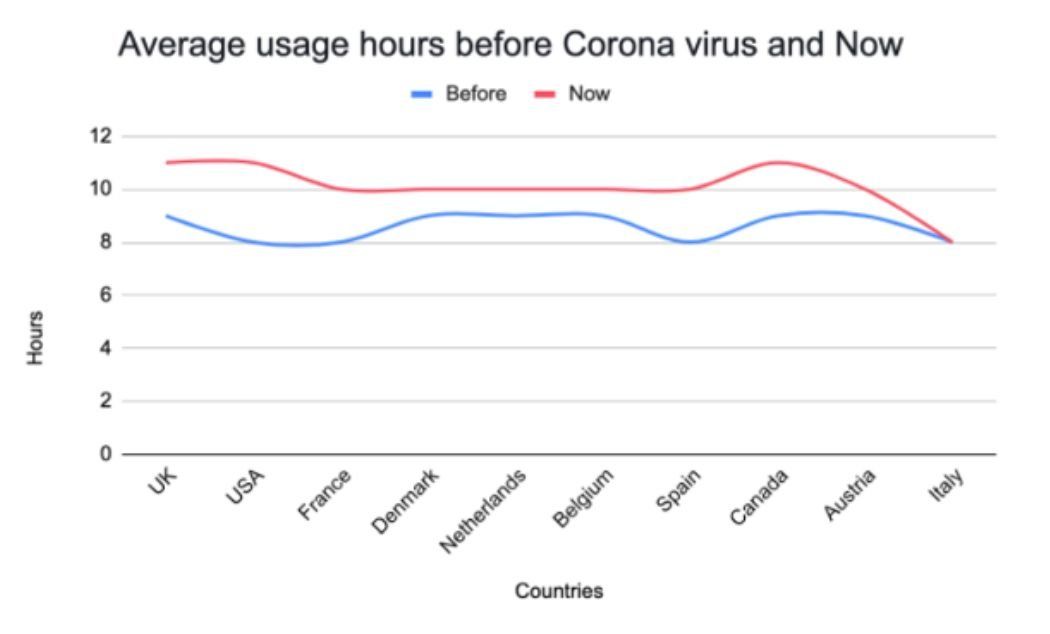 This year proved to be a challenge for most of us - employees had to adapt to working from home. Employers - provide necessary WFH equipment, communication, and safety measurements.
This year proved to be a challenge for most of us - employees had to adapt to working from home. Employers - provide necessary WFH equipment, communication, and safety measurements.
540. It's Time to Normalize Speaking Out About Internet Safety
 GIVE Nation marks Safer Internet Day with a conversation around privacy, particularly for parents.
GIVE Nation marks Safer Internet Day with a conversation around privacy, particularly for parents.
541. What is Cyber Range Training and Simulation in the Cloud?
 Cyber range simulations help create resiliency by enabling companies in an actual situation to stress-test through Cloud computing. With tabletop drills or classroom instructors we need immersive funds to support situational awareness in a way that is very difficult to duplicate. Cloud Simulation contributes to experience on-the-ground and provides various advantages, including statistical information, input from real-time experts, and cross-functional coaching. There are potentially many challenges with the on-site classrooms based on several experts:
Cyber range simulations help create resiliency by enabling companies in an actual situation to stress-test through Cloud computing. With tabletop drills or classroom instructors we need immersive funds to support situational awareness in a way that is very difficult to duplicate. Cloud Simulation contributes to experience on-the-ground and provides various advantages, including statistical information, input from real-time experts, and cross-functional coaching. There are potentially many challenges with the on-site classrooms based on several experts:
542. How Chrome Extensions Became an Attack Vector for Hackers (Part 1) 🔓
 Chrome extensions have always been a major selling point for the browser. However, some developed them to snoop on everyday users.
Chrome extensions have always been a major selling point for the browser. However, some developed them to snoop on everyday users.
543. Main Security Concepts and the Importance of Data Privacy
 Trigger warning: authoritarianism, state surveillance, the Holocaust. If you want to avoid these topics, please jump to the last paragraph of this introduction, starting with ‘Enough about the depressing stuff.’
Trigger warning: authoritarianism, state surveillance, the Holocaust. If you want to avoid these topics, please jump to the last paragraph of this introduction, starting with ‘Enough about the depressing stuff.’
544. Try These Steps for Increasing Privacy and Security on Windows 10
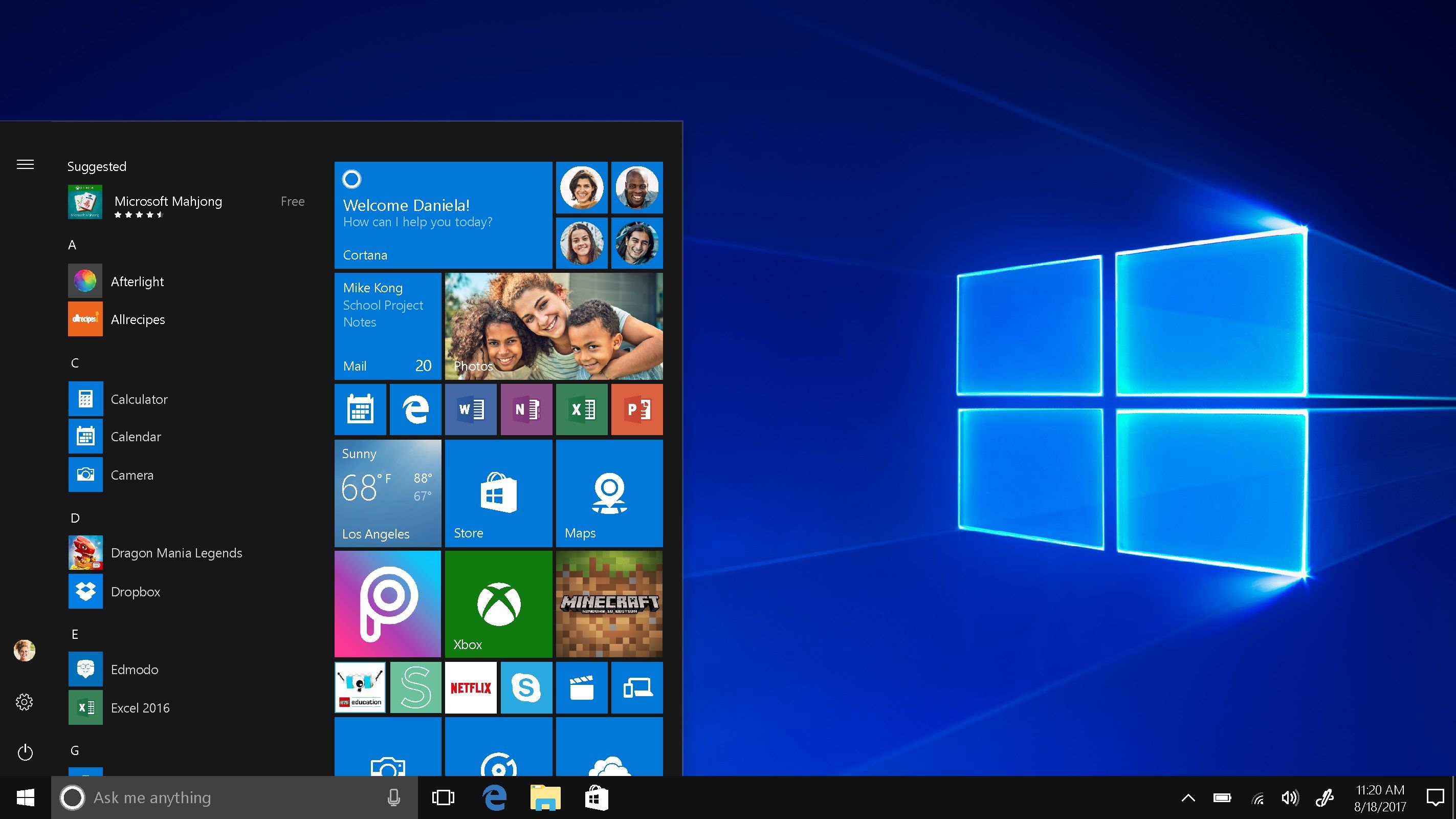 Note: Some versions of Windows 10 may not show all the following settings.
Note: Some versions of Windows 10 may not show all the following settings.
545. Remember: Governments Always Maintain Surveillance Tech Long After The Threat Is Contained

546. One (Social Media) Account To Rule Them All: A Pipedream or An Eventuality?
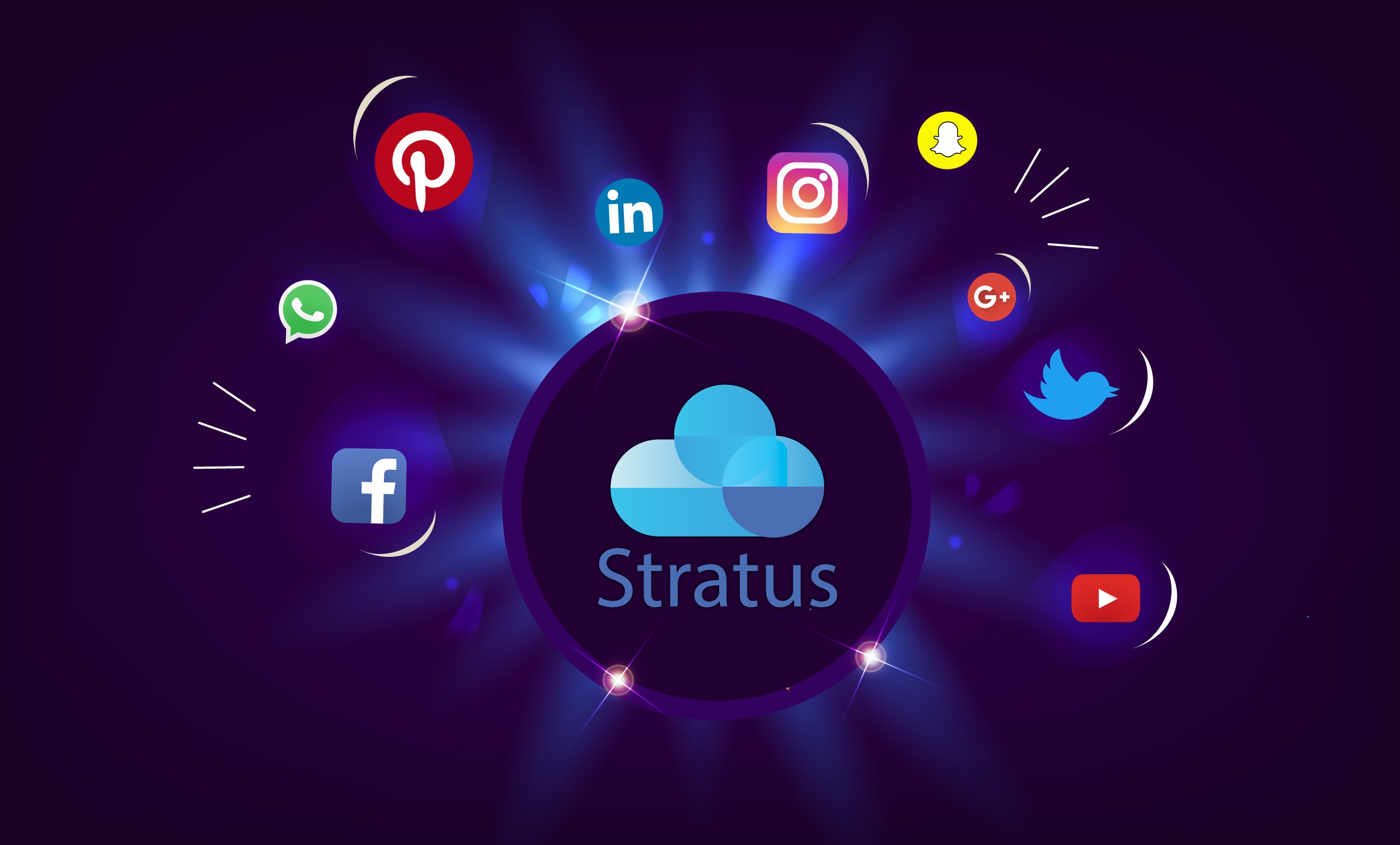 Worldwide internet access has made social media a huge part of our lives. Statistics show that over 4 billion people were active internet users as of July 2020. Once the social media platforms switched to fan-based engagement models, they became an economy built on attention.
Worldwide internet access has made social media a huge part of our lives. Statistics show that over 4 billion people were active internet users as of July 2020. Once the social media platforms switched to fan-based engagement models, they became an economy built on attention.
547. Understanding The Facebook Data Leak: 533,000,000 Facebook Records Were Leaked
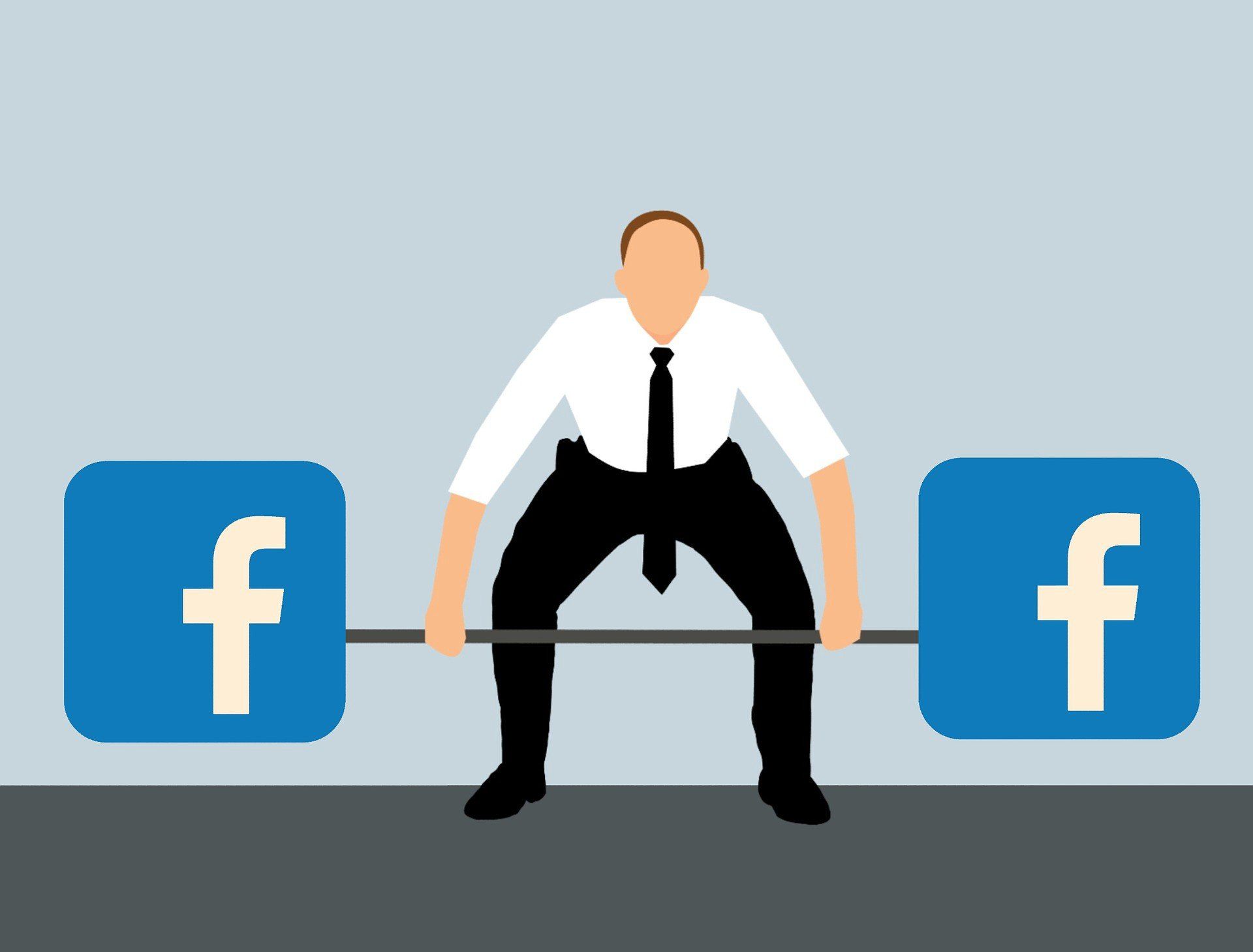 A user of a low-level hacking forum posted the records of hundreds of millions of Facebook users for free online on 3rd April.
A user of a low-level hacking forum posted the records of hundreds of millions of Facebook users for free online on 3rd April.
548. How to Secure Websites By Monitoring the DNS Records
 Communicating with each other, i.e., applications, devices, web pages, requires a standard naming system. The naming system allows every shred of technology to recognize each other as well as an essential part of knowing where to send the information. It is vital when devices need to communicate with resources over the internet due to the vast quantity of services and websites that need to be recognized. This is the reason why the Domain Name System (DNS) is crucial to the business organizations.
Communicating with each other, i.e., applications, devices, web pages, requires a standard naming system. The naming system allows every shred of technology to recognize each other as well as an essential part of knowing where to send the information. It is vital when devices need to communicate with resources over the internet due to the vast quantity of services and websites that need to be recognized. This is the reason why the Domain Name System (DNS) is crucial to the business organizations.
549. What Personal Details Are You Sharing Without Knowing?
 Unless you have changed your web browser default settings it is quite likely you are leaking personal details as you move around online. But just how much?
Unless you have changed your web browser default settings it is quite likely you are leaking personal details as you move around online. But just how much?
550. How to Defend Your Smart Home Against Hackers
 Of course, we love hackers here at Hacker Noon. It’s right there in the name.
Of course, we love hackers here at Hacker Noon. It’s right there in the name.
551. "Don't Be Evil," They Said: Android Is Tracking Us With No Way to Opt-Out
 Researchers recently proved that the phrase is not just a slogan but crucial for protecting our privacy, considering that Google is everywhere for everyone now.
Researchers recently proved that the phrase is not just a slogan but crucial for protecting our privacy, considering that Google is everywhere for everyone now.
552. Web3 User Identity Needs to be Transparent and Secure
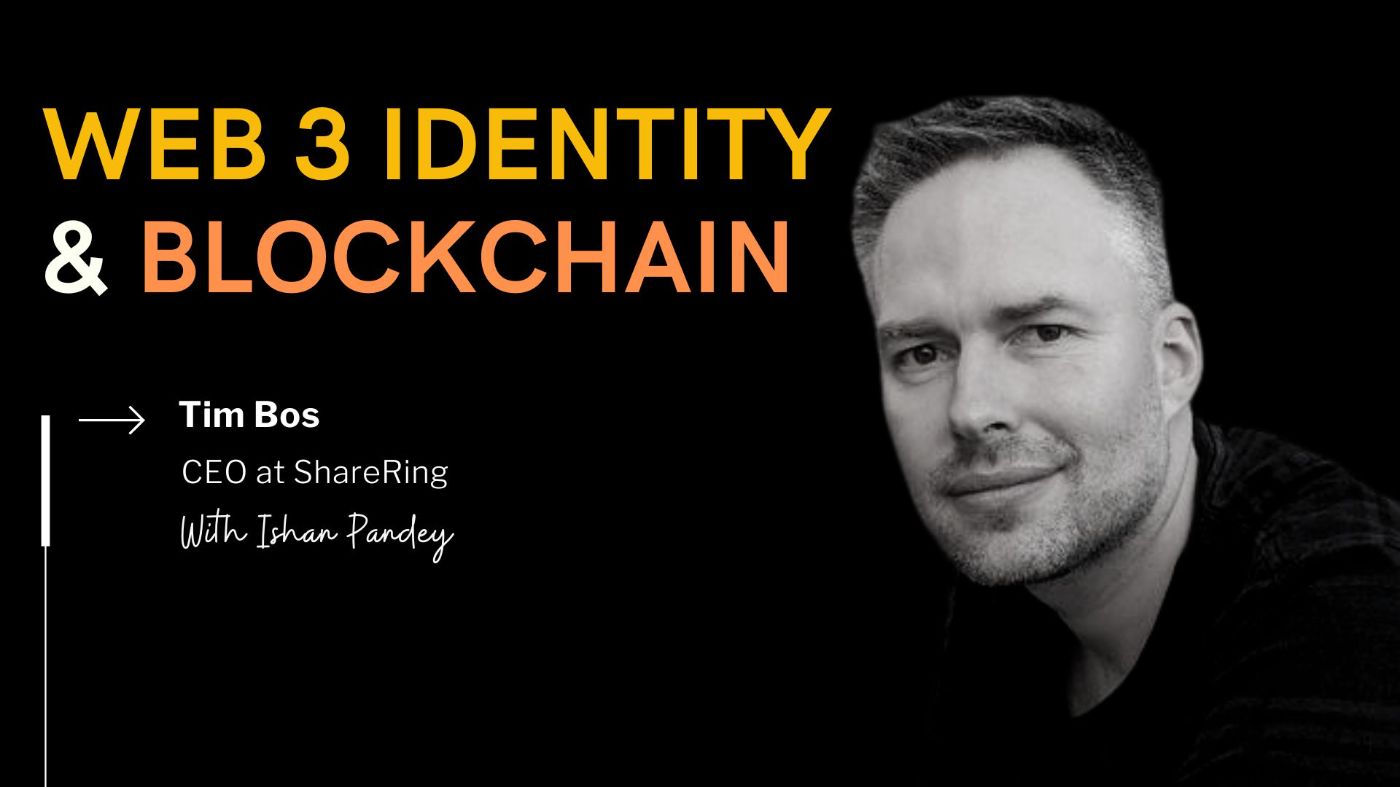 ShareRing has pioneered the World's first user-focussed ecosystem for the issuance, storage, verification and sharing of personal information and key documents.
ShareRing has pioneered the World's first user-focussed ecosystem for the issuance, storage, verification and sharing of personal information and key documents.
553. What’s Golem’s role In The Antifragile Web 3.0?
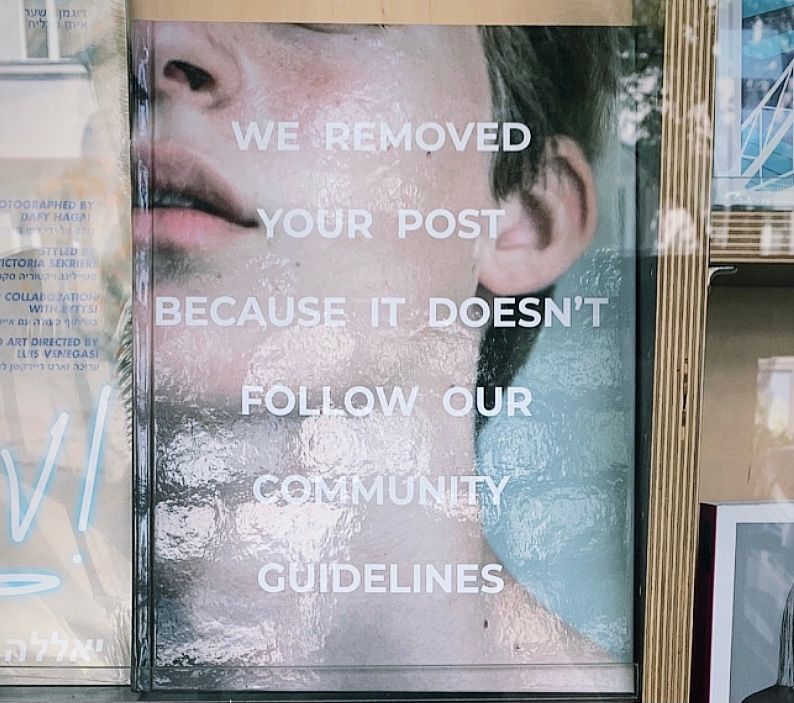
554. What Could Have Prevented 2020's Massive Twitter Hack?
 Attacks and account take-overs like the recent Twitter hack are completely avoidable. Enterprises must implement biometric multi-factor authentication to ensure that only the right users have access to the right systems at all times. If they don’t, users will continue being vulnerable to hacks and scams.
Attacks and account take-overs like the recent Twitter hack are completely avoidable. Enterprises must implement biometric multi-factor authentication to ensure that only the right users have access to the right systems at all times. If they don’t, users will continue being vulnerable to hacks and scams.
555. IPVanish VPN Reviev 2021: Speed, Privacy and All You Need to Know

556. Tech VS Human Capital: Chinese and Western Approaches to COVID-19
 Countries around the world have taken different measures to slow down or stop the spread of the virus. While China, South Korea, and Taiwan quickly dove into AI-powered screening and tracking, western democracies took a more human-driven direction. Almost ten months after the WHO declared the pandemic a global emergency, has one approach proven better than the other?
Countries around the world have taken different measures to slow down or stop the spread of the virus. While China, South Korea, and Taiwan quickly dove into AI-powered screening and tracking, western democracies took a more human-driven direction. Almost ten months after the WHO declared the pandemic a global emergency, has one approach proven better than the other?
557. Learning About Financial Sovereignty and Privacy with Heliax Founders
 In this slogging thread, we're joined by the founders of Heliax, a blockchain research, development & product company bringing financial sovereignty and privacy
In this slogging thread, we're joined by the founders of Heliax, a blockchain research, development & product company bringing financial sovereignty and privacy
558. Bitcoin Mixing Legalities: Why Governments are Cracking Down
 Bitcoin mixing is an interesting topic because while it can help people keep their crypto transactions private it can also be a hotbed for criminal activity.
Bitcoin mixing is an interesting topic because while it can help people keep their crypto transactions private it can also be a hotbed for criminal activity.
559. Software Developers' Top 12 Secure Software Development Lifecycle (SSDL) practices by Microsoft
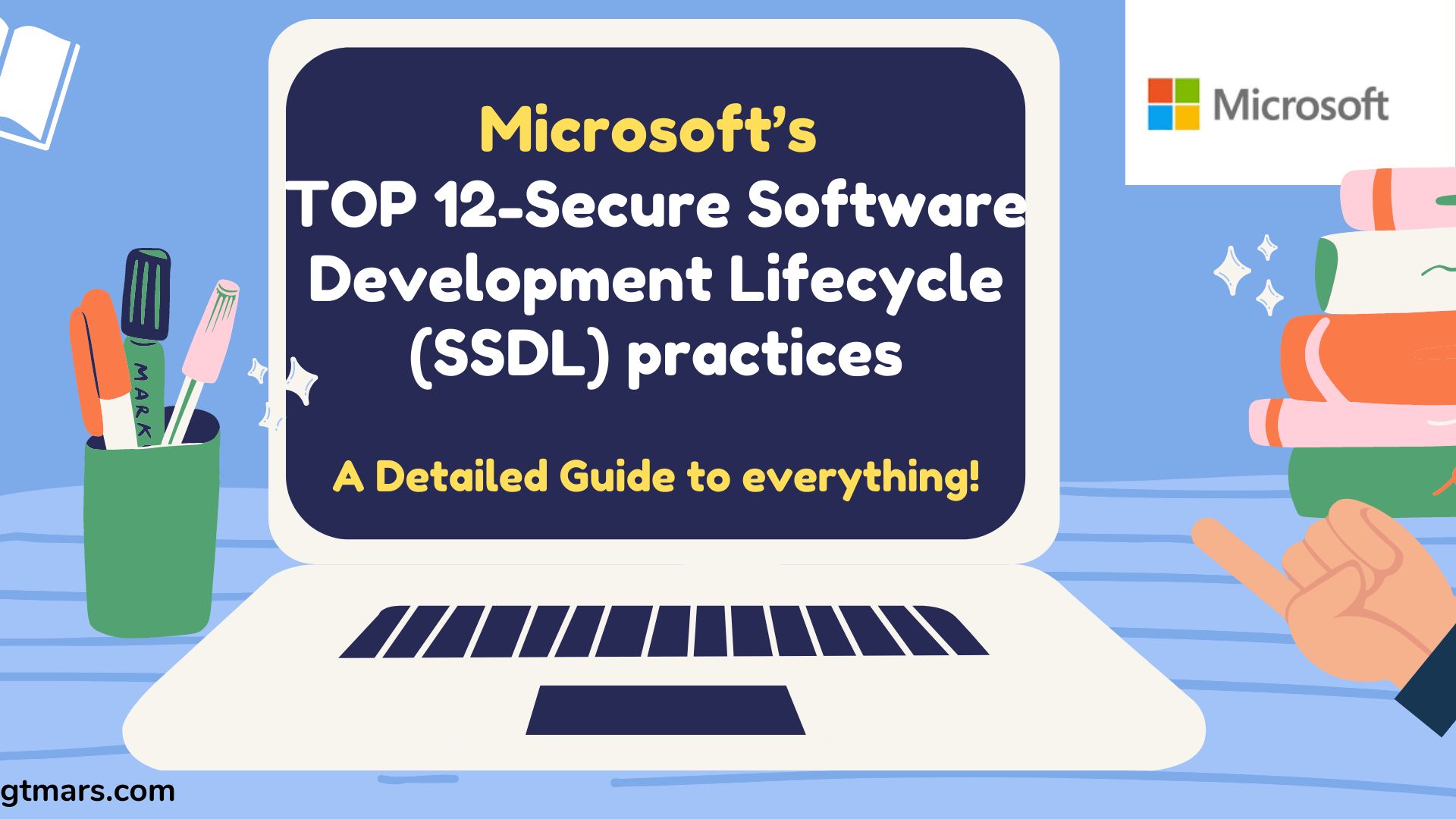 Microsoft Secure (SDL) practice focused more on the reliability part of the software, security vulnerabilities, threat modeling, compliance, reporting, IRP.
Microsoft Secure (SDL) practice focused more on the reliability part of the software, security vulnerabilities, threat modeling, compliance, reporting, IRP.
560. "You Have to Have Privacy, But to What Scale and Under Whose Control?" - Adel de Meyer
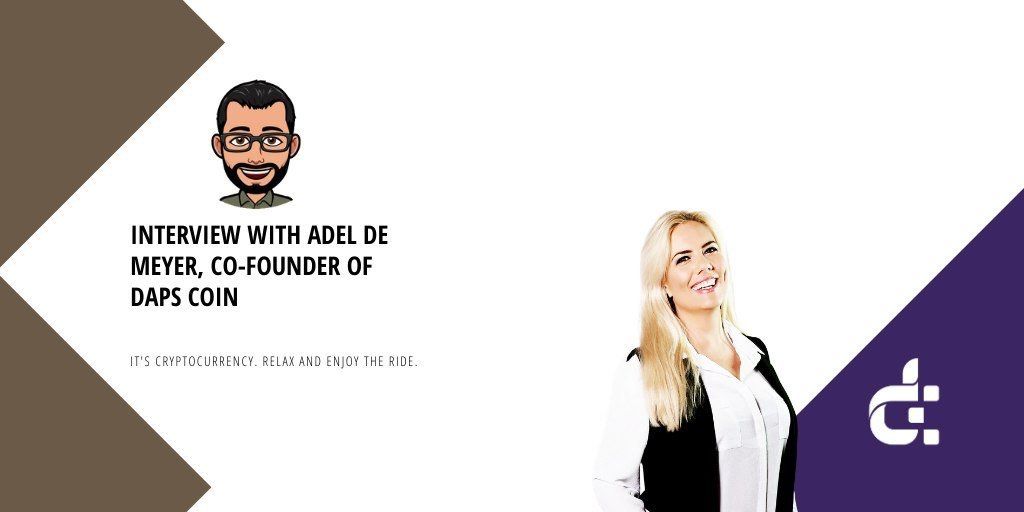 Recently I had a chance to chat with Adel de Meyer, entrepreneur and leader of DAPS coin, a fully anonymous staking coin and payment system. Her project recently published a new DAPS whitepaper and announced its web wallet.
Recently I had a chance to chat with Adel de Meyer, entrepreneur and leader of DAPS coin, a fully anonymous staking coin and payment system. Her project recently published a new DAPS whitepaper and announced its web wallet.
561. Data and DNA: Who Owns You?
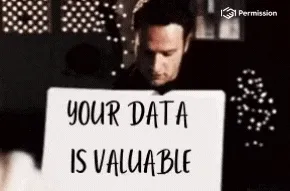 Data and DNA: With corporations able to accumulate information normally considered private on both of these fields, who should own that data and thus you?
Data and DNA: With corporations able to accumulate information normally considered private on both of these fields, who should own that data and thus you?
562. Kickoff Your Application With js-libp2p
 I want to welcome you to libp2p! This guide will walk you through setting up a fully functional libp2p node, so that you can take control of the spacecraft 🚀 from that point on and build your application.
I want to welcome you to libp2p! This guide will walk you through setting up a fully functional libp2p node, so that you can take control of the spacecraft 🚀 from that point on and build your application.
563. SSI's Problem with Data Ownership

564. Nine Essential Privacy Settings and Add-ons for Mozilla Firefox

565. 5 Best VPNs for Privacy and Security on the Dark Web
 A list of 5 powerful VPNs capable of handling Dark Web and onion nodes that will ensure your privacy and security.
A list of 5 powerful VPNs capable of handling Dark Web and onion nodes that will ensure your privacy and security.
566. Privacy Protection: How Secure is Telegram Messenger?
 Is Telegram messenger secure enough for private messages and group chats? Can Telegram protect the privacy of users? We did research on this.
Is Telegram messenger secure enough for private messages and group chats? Can Telegram protect the privacy of users? We did research on this.
567. The Ultimate Guide to Privacy and Security Tools
 A while ago, Nora asked me if I had a list of privacy tools I use regularly. I didn't, so I wrote one with the help of lp1, and you're about to read it. These are the tools we’ve been using for a while and we recommend.
A while ago, Nora asked me if I had a list of privacy tools I use regularly. I didn't, so I wrote one with the help of lp1, and you're about to read it. These are the tools we’ve been using for a while and we recommend.
568. Top Free And Paid VPN Services In 2021
 The VPN creates a secure connection over the Internet. In the simplest terms, it works as a tunnel between a computer and a server. Every time you go online...
The VPN creates a secure connection over the Internet. In the simplest terms, it works as a tunnel between a computer and a server. Every time you go online...
569. Testing the Perfornace and Privacy Settings of COVID-19 Vaccine Websites
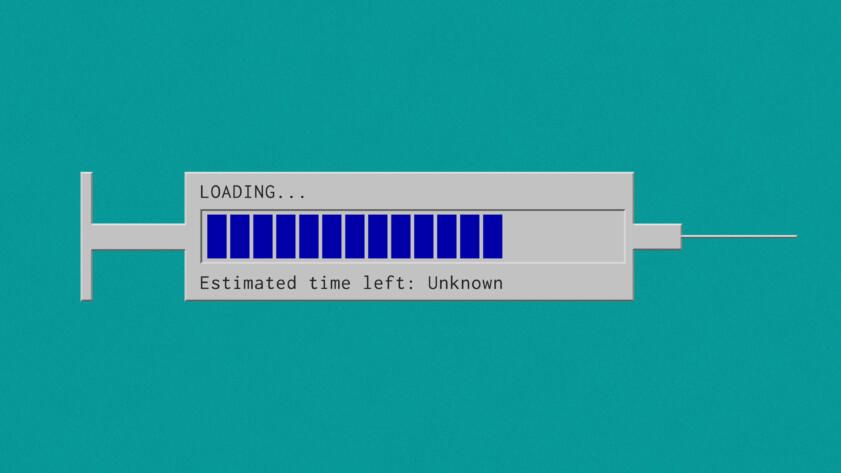 The government websites responsible for helping citizens get their COVID-19 Vaccines have been found to have less-than-ideal accessibility and privacy features.
The government websites responsible for helping citizens get their COVID-19 Vaccines have been found to have less-than-ideal accessibility and privacy features.
570. How Can We Expose Cyber Criminals Through Identity Attribution
 As we approach the dawn of another year, the cybersecurity world faces a strange dilemma- organized crime. Throughout the course of recent years, cybercrimes have grown increasingly sophisticated, primarily because of the rise in prominence of technologies such as machine learning, and the growing amalgamation of artificial intelligence within enterprises.
As we approach the dawn of another year, the cybersecurity world faces a strange dilemma- organized crime. Throughout the course of recent years, cybercrimes have grown increasingly sophisticated, primarily because of the rise in prominence of technologies such as machine learning, and the growing amalgamation of artificial intelligence within enterprises.
571. 10 Field Service Management Trends: 2021 Edition
 As you attempt to derive growth strategies for your field service business, it is important to focus on the right things.
As you attempt to derive growth strategies for your field service business, it is important to focus on the right things.
572. C++ to WebAssembly using Bazel and Emscripten
 How to get Bazel and Emscripten to compile C++ to WebAssembly or JavaScript
How to get Bazel and Emscripten to compile C++ to WebAssembly or JavaScript
573. The Meaning of Anonymity in The Surveillance Era
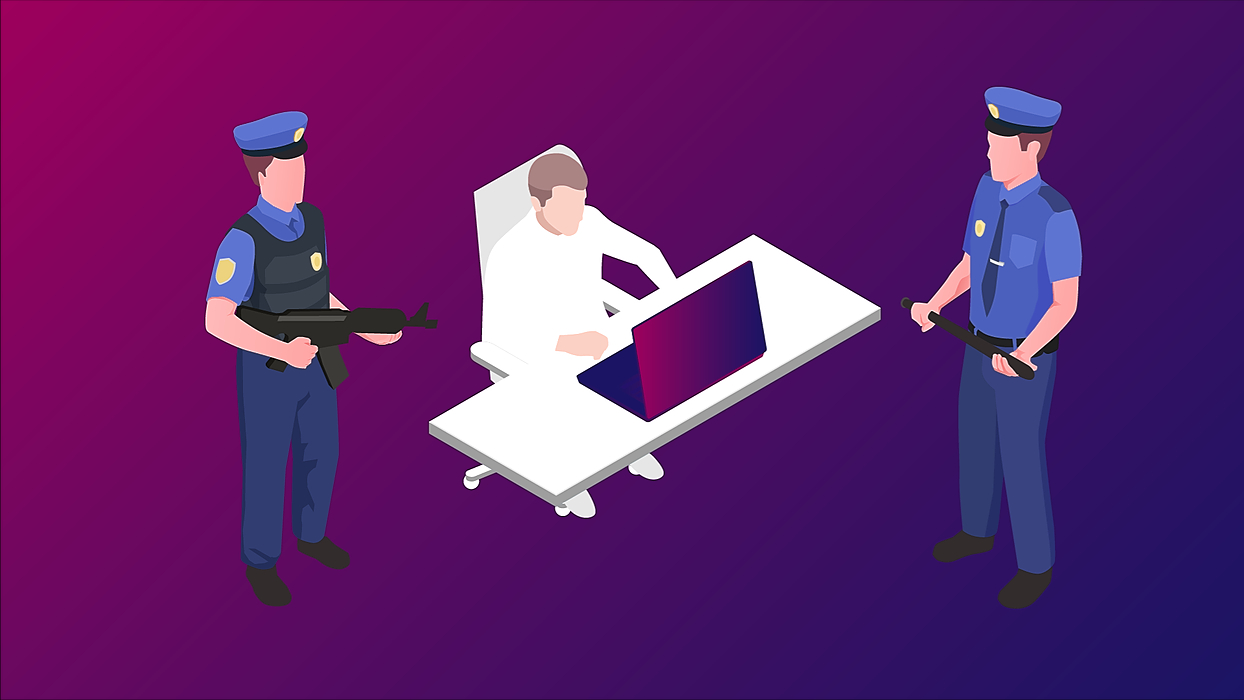 Is there such a thing as true anonymity anymore?
Is there such a thing as true anonymity anymore?
574. Social Engineering Attacks [Infographic]
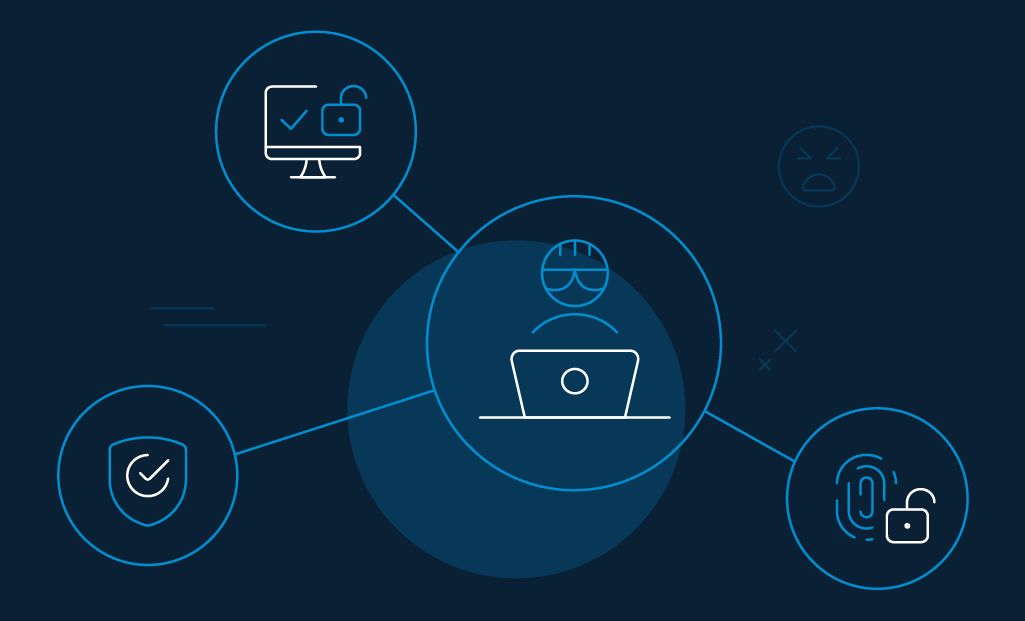 Over the years, social engineering assaults have been a regular phenomenon against companies. It has become more and more sophisticated.
Over the years, social engineering assaults have been a regular phenomenon against companies. It has become more and more sophisticated.
575. Great Methods To Create A Password File To Prevent Brute-Force Attacks
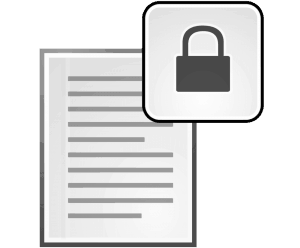 Brute-forcing a really important method that a hacker or a pentester must be aware of and he will use in various places.
Brute-forcing a really important method that a hacker or a pentester must be aware of and he will use in various places.
576. What is The Open Web and Why is it Dying?
 People switched from an open, hackable web to apps for a better user experience, but walled gardens now hinder UX. We need a better UX alternative.
People switched from an open, hackable web to apps for a better user experience, but walled gardens now hinder UX. We need a better UX alternative.
577. The Best Secure Email Provider To Choose
 Don’t you manage your affairs, both business and personal, via emails and
messengers? Sure, you do. It’s convenient and saves tons of time. Colleagues need email to send reports, entrepreneurs to exchange ideas, journalists to send confidential articles for publication, and so on. But there is one issue we all face - a data breach. People aware of this problem and have already found a solution - encrypted email.
Don’t you manage your affairs, both business and personal, via emails and
messengers? Sure, you do. It’s convenient and saves tons of time. Colleagues need email to send reports, entrepreneurs to exchange ideas, journalists to send confidential articles for publication, and so on. But there is one issue we all face - a data breach. People aware of this problem and have already found a solution - encrypted email.
578. Your VPN Might Be Tracking and Logging Your Browsing Habits

579. Interview with David Beberman, Prasaga CTO
 Last year, blockchain technology proved its mettle against the backdrop of a failing financial order and a thinly stretched health sector. The growing allure of this technology stems from its innovative approach to recurring issues in a broad range of industries. Recently, Jack Dorsey, the CEO of Twitter, reiterated his commitment towards utilizing blockchain technology to engineer a privacy-focused and fully decentralized social media platform. In the financial scene, we have witnessed the fusing of digital assets and legacy systems, which gave birth to the central bank digital currencies (CBDCs) and other blockchain-enabled banking operations. As such, there is no doubt that blockchain technology and cryptocurrencies are here to stay.
Last year, blockchain technology proved its mettle against the backdrop of a failing financial order and a thinly stretched health sector. The growing allure of this technology stems from its innovative approach to recurring issues in a broad range of industries. Recently, Jack Dorsey, the CEO of Twitter, reiterated his commitment towards utilizing blockchain technology to engineer a privacy-focused and fully decentralized social media platform. In the financial scene, we have witnessed the fusing of digital assets and legacy systems, which gave birth to the central bank digital currencies (CBDCs) and other blockchain-enabled banking operations. As such, there is no doubt that blockchain technology and cryptocurrencies are here to stay.
580. The ZEE5 User Data Leak That The Media Didn't Report On

581. Secret Network Discloses $400 Million Ecosystem Fund
 Read my article about $SCRT and their new ecosystem fund backed by major players in the #cryptocurrency space.
Read my article about $SCRT and their new ecosystem fund backed by major players in the #cryptocurrency space.
582. 6 Privacy Tips for Beginners To Help Sail Through The Lockdown
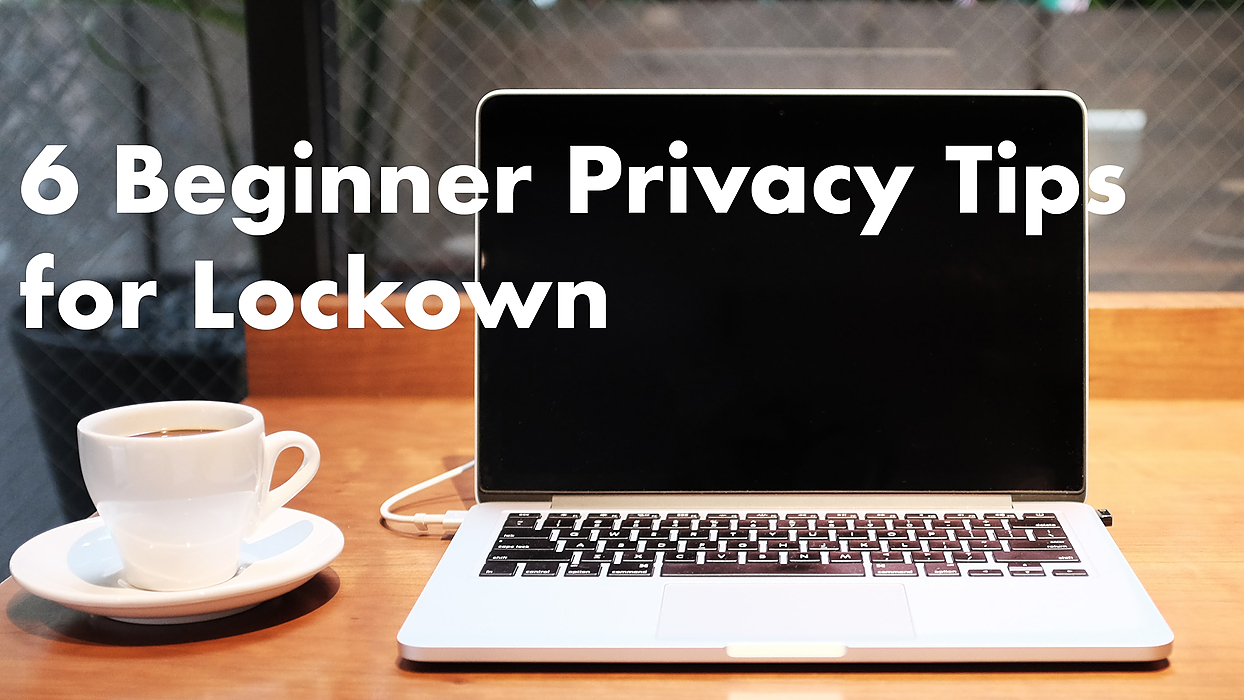 Over a third of the world is in lockdown; now is the perfect excuse to sort out your privacy. Here are my 6 tips:
Over a third of the world is in lockdown; now is the perfect excuse to sort out your privacy. Here are my 6 tips:
583. On Zero-Knowledge Proofs And Why They Matter
 There is a lot of enthusiasm for the application of zero-knowledge proof systems, at Dusk Network we’ve developed the open-source PLONK zero-knowledge proof system. It can be used for many things, and what better way to demonstrate its potential with an example!
There is a lot of enthusiasm for the application of zero-knowledge proof systems, at Dusk Network we’ve developed the open-source PLONK zero-knowledge proof system. It can be used for many things, and what better way to demonstrate its potential with an example!
584. The Unrelenting Spies in your Pocket and How to Get Rid of Them
 Privacy...that mythical unicorn many chase but only a few manage to catch. Though elusive, privacy is a pressing issue in a hyper-connected world where a handful of companies control the information you consume and the information you produce.
Privacy...that mythical unicorn many chase but only a few manage to catch. Though elusive, privacy is a pressing issue in a hyper-connected world where a handful of companies control the information you consume and the information you produce.
585. Currency-As-A-Model for Reframing The Debate on Data Privacy: A Thought Experiment
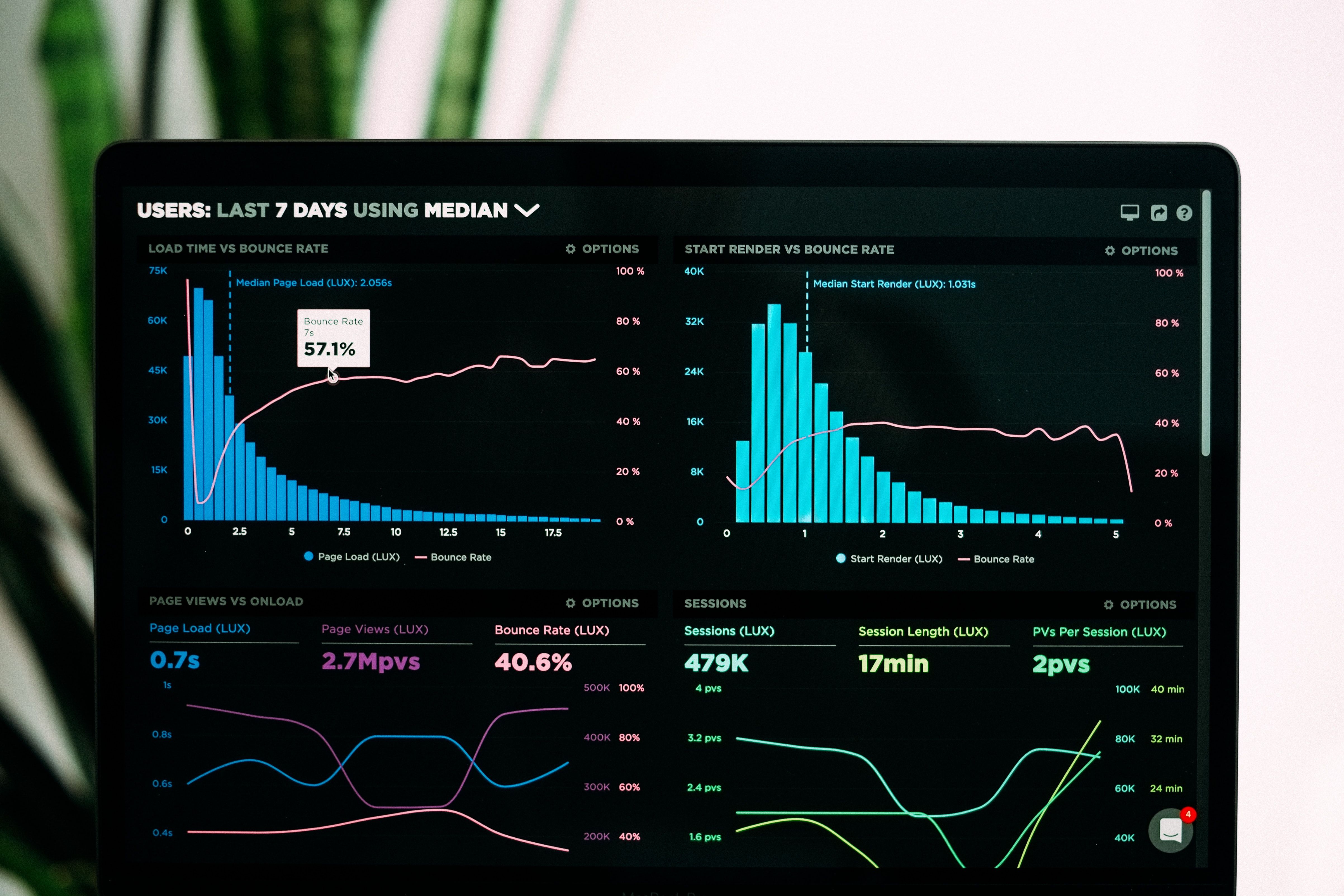 Using Currency as a Model for Reframing The Debate on Data Privacy. A thought experiment.
Using Currency as a Model for Reframing The Debate on Data Privacy. A thought experiment.
586. What to Learn From How the Korean Government Regulates Blockchain
 Regulators and those in software companies have often struggled to find peace with each other, as unlike previous technologies, the software moves exponentially faster and works under new business models that previous regulations did not account for. That is why Zuckerberg, who tried to avoid regulations in the past by being more transparent than incumbents, has been asking regulators to take a “more active role” and work together towards regulating the internet.
Regulators and those in software companies have often struggled to find peace with each other, as unlike previous technologies, the software moves exponentially faster and works under new business models that previous regulations did not account for. That is why Zuckerberg, who tried to avoid regulations in the past by being more transparent than incumbents, has been asking regulators to take a “more active role” and work together towards regulating the internet.
587. An Overview of the Bluetooth Contact Tracing Protocol by Apple & Google
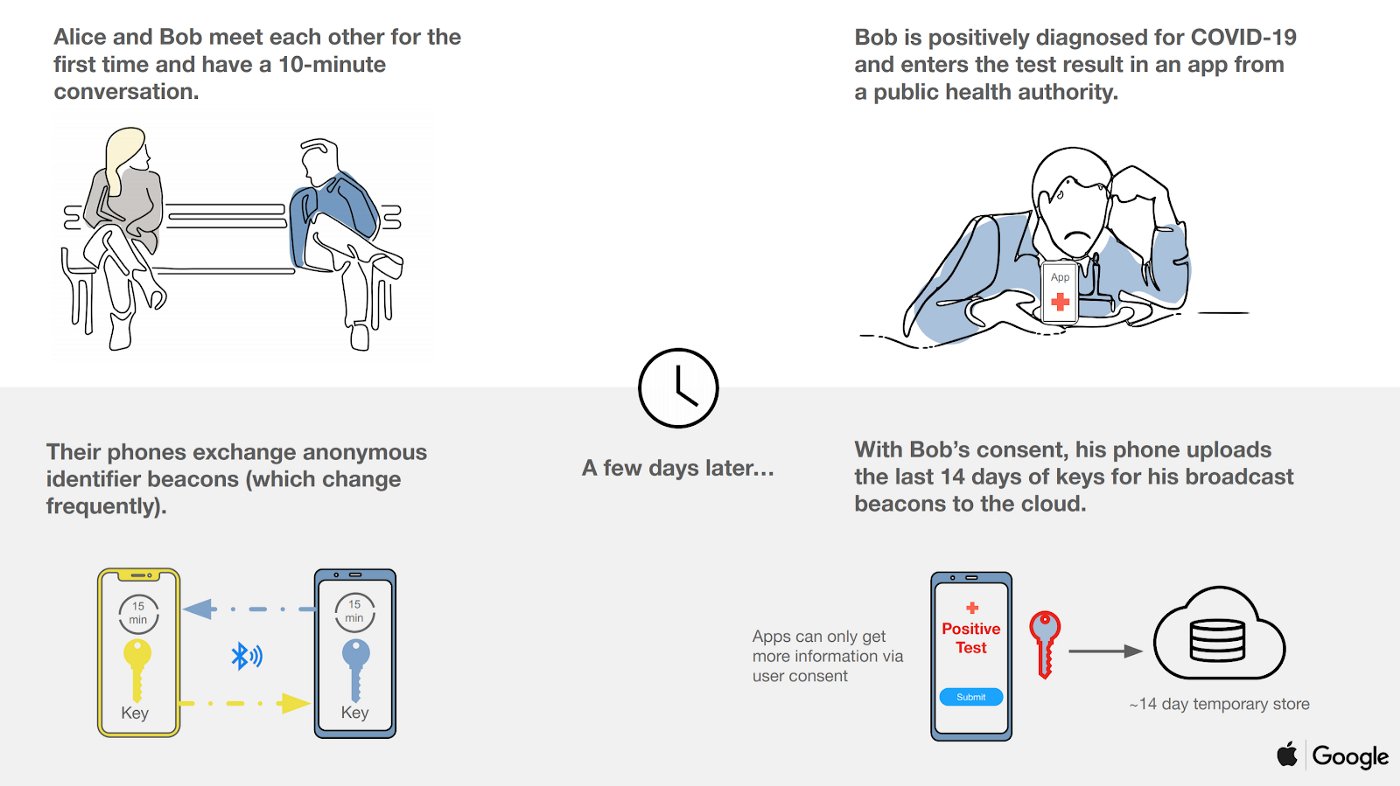
588. Privacy Blockchains With Teeth | Panther Protocol AMA
 An early-stage Ripple advisor, CBDC inventor, and Air Force Major walk into a bar. What happens next is a conversation about the impact of privacy.
An early-stage Ripple advisor, CBDC inventor, and Air Force Major walk into a bar. What happens next is a conversation about the impact of privacy.
589. How to Handle EU Data Without the EU-US Privacy Shield Framework
 On July 16, 2020, the European Court of Justice invalidated the EU-US Privacy Shield Framework, erasing the data protection measures that had previously allowed a United States business to hold the data of European Union citizens in servers that reside in the US.
On July 16, 2020, the European Court of Justice invalidated the EU-US Privacy Shield Framework, erasing the data protection measures that had previously allowed a United States business to hold the data of European Union citizens in servers that reside in the US.
590. The Monetization Model for A Decentralized Web/dWeb [Deep Dive]
 This is a second article in the ‘Decentralized web / dWeb’ series. To get an idea on what the dWeb is please check — this article.
This is a second article in the ‘Decentralized web / dWeb’ series. To get an idea on what the dWeb is please check — this article.
Thank you for checking out the 590 most read stories about Privacy on HackerNoon.
Visit the /Learn Repo to find the most read stories about any technology.

